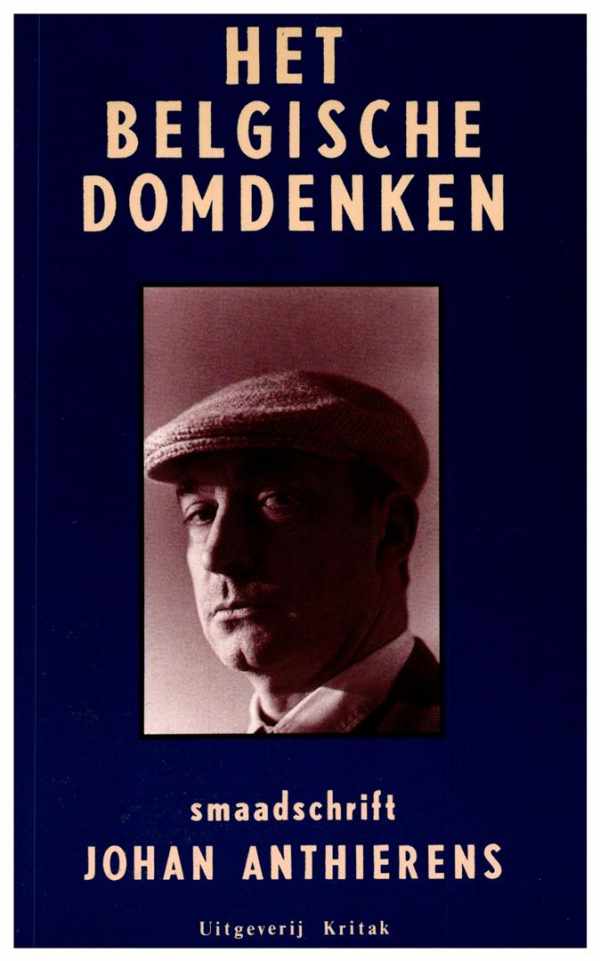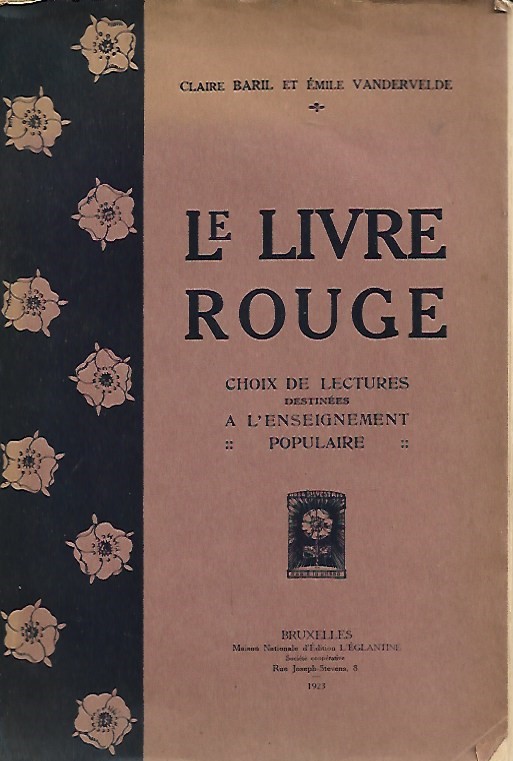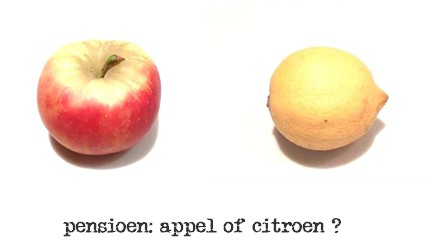



Search
CATEGORIES
We found 459 books in our category 'POLITICS'
We found 570 news items
We found 459 books

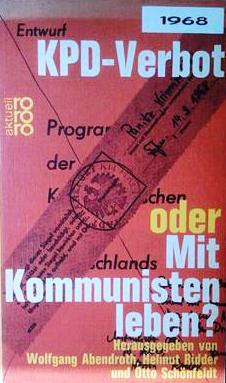
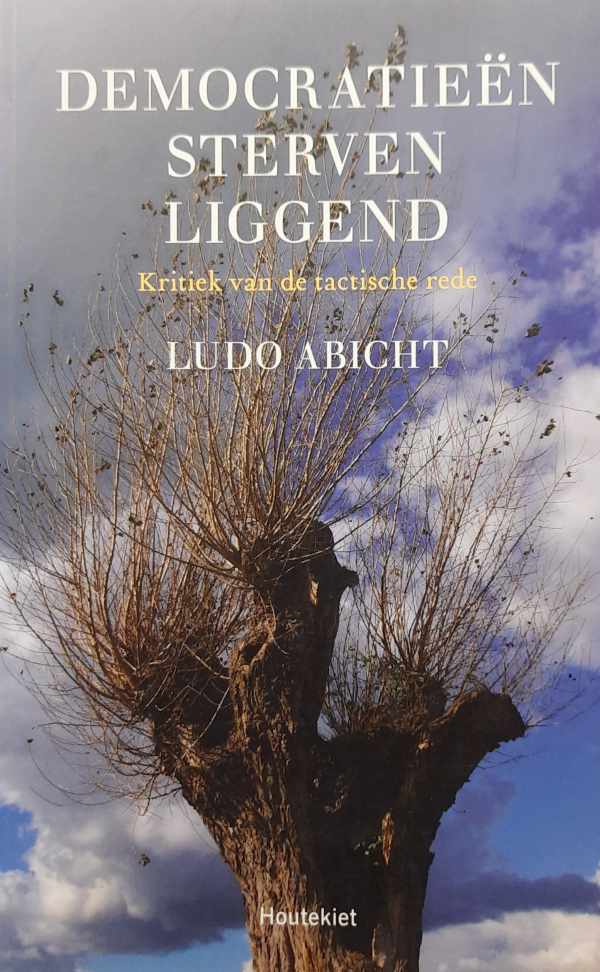
"Democratieën sterven liggend - kritiek van de tactische rede" is een boek van Ludo Abicht. In dit werk analyseert hij de huidige staat van de democratie en de uitdagingen die deze vorm van bestuur tegenkomt. Abicht stelt dat democratieën niet plotseling sterven, maar langzaam en vaak onopgemerkt. Hij bekritiseert de tactische rede, of de manier waarop politieke beslissingen vaak worden genomen op basis van kortetermijndoelen en persoonlijk gewin, in plaats van het algemeen belang. Het boek is een diepgaande en kritische reflectie op de huidige staat van de democratie, en een oproep tot bewustzijn en actie.

Het boek gaat diep in op de vraag wat het betekent om Vlaams te zijn en hoe deze identiteit zich manifesteert in de hedendaagse samenleving. Het biedt een grondige analyse van de culturele, historische, sociale en politieke aspecten die de Vlaamse identiteit vormen.
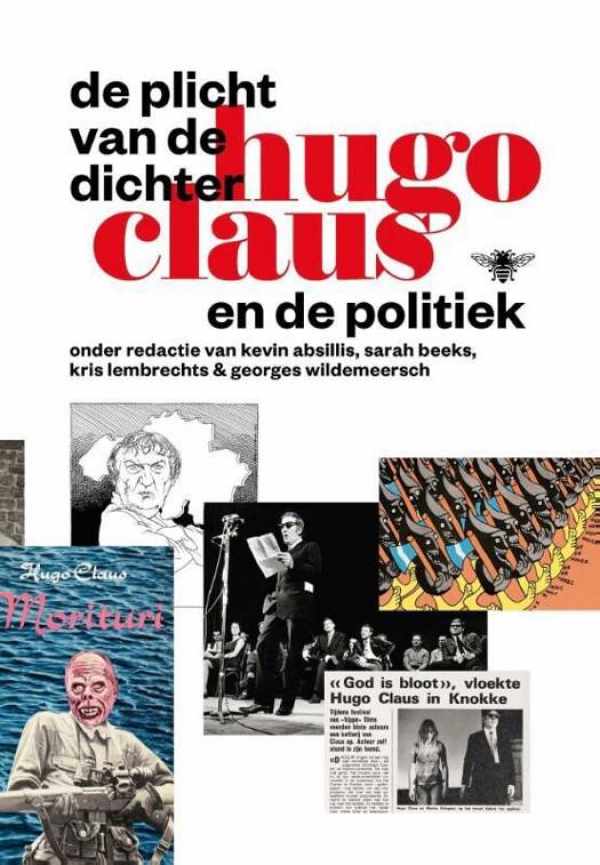
Essays en bronnenmateriaal over de rol van de politiek in leven en werk van de Vlaamse schrijver (1929-2008).
Het boek biedt een diepgaande analyse van de politieke betrokkenheid en standpunten van Hugo Claus, een van de meest prominente Vlaamse schrijvers van de 20e eeuw. Absillis onderzoekt Claus' politieke gedachten en acties in de context van zijn literaire werk en persoonlijke leven. Het boek is een waardevolle bron voor historici die geïnteresseerd zijn in de relatie tussen literatuur en politiek in België tijdens de tweede helft van de 20e eeuw.
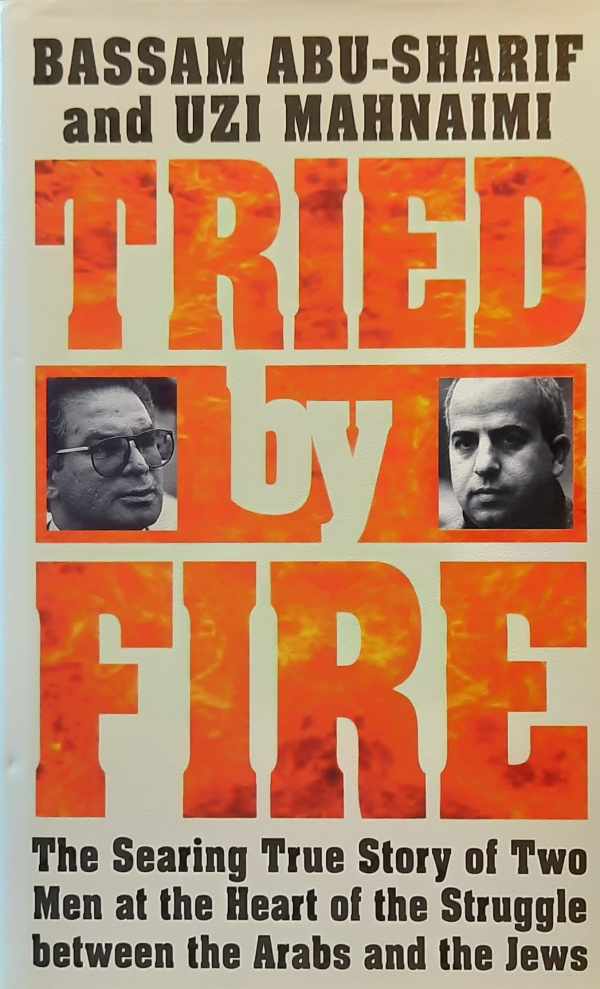
Bassam Abu-Sharif, Yasser Arafat's chief lieutenant, and Uzi Mahnaimi, a former Israeli intelligence major, met in a London restaurant in 1988, and joined forces in the search for peace. Their stories, and those of their fathers and grandfathers, personify 100 years of war between Arab and Jew.

Additional images
In 2025 werd Rudy Aernoudt de kabinetschef van MR-voorzitter Georges-Louis Bouchez.
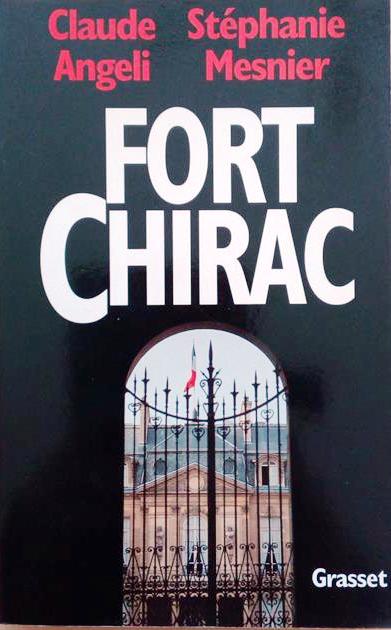
Claude Angeli (°1931) entre au Canard enchaîné en 1971, recruté par Jean Clémentin. Il devient chef des informations, puis rédacteur en chef adjoint pour l'information politique, et rédacteur en chef jusqu'en 2012.
Pour rappel:
■ Charles de Gaulle (8 janvier 1959 - 28 avril 1969)
■ Georges Pompidou (19 juin 1969 - 2 avril 1974)
■ Valéry Giscard d'Estaing (24 mai 1974 - 21 mai 1981)
■ François Mitterrand (21 mai 1981 - 17 mai 1995)
■ Jacques Chirac (17 mai 1995 - 16 mai 2007)
■ Nicolas Sarkozy (16 mai 2007 - 15 mai 2012)
■ François Hollande (15 mai 2012 - 14 mai 2017)
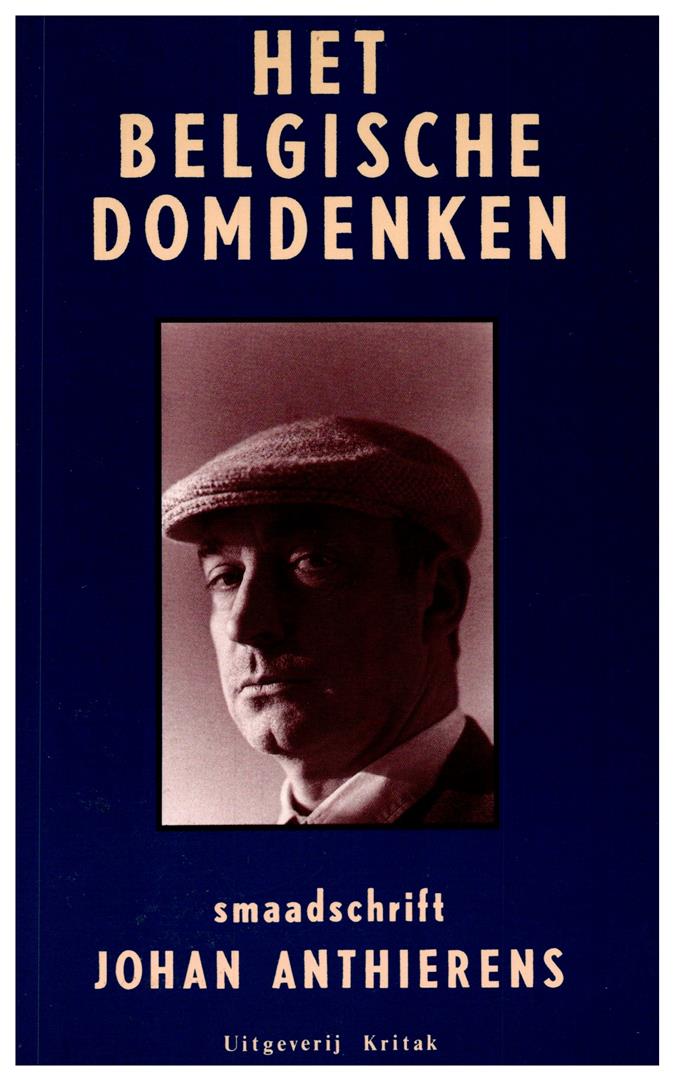
Johan Anthierens (Machelen, 22 augustus 1937 — Dilbeek, 20 maart 2000) was een Vlaams journalist, columnist, publicist, schrijver, satiricus en tedere anarchist.


This atlas is a treasure trove of information for geography enthusiasts, students, and researchers alike. It provides a detailed and in-depth look at the world's political and physical geography. The atlas is divided into sections that include political-physical maps, geographical summaries, and geographical comparisons. The maps are detailed and color-coded, making it easy to understand the political boundaries and physical features of different regions. The geographical summaries provide concise overviews of different regions, including their climate, population, economy, and more. The geographical comparisons allow readers to compare and contrast different regions based on various parameters. The book also includes a glossary of geographical terms, making it a great resource for those looking to expand their geographical vocabulary. The index to political-physical maps makes it easy to locate specific regions or features within the atlas.

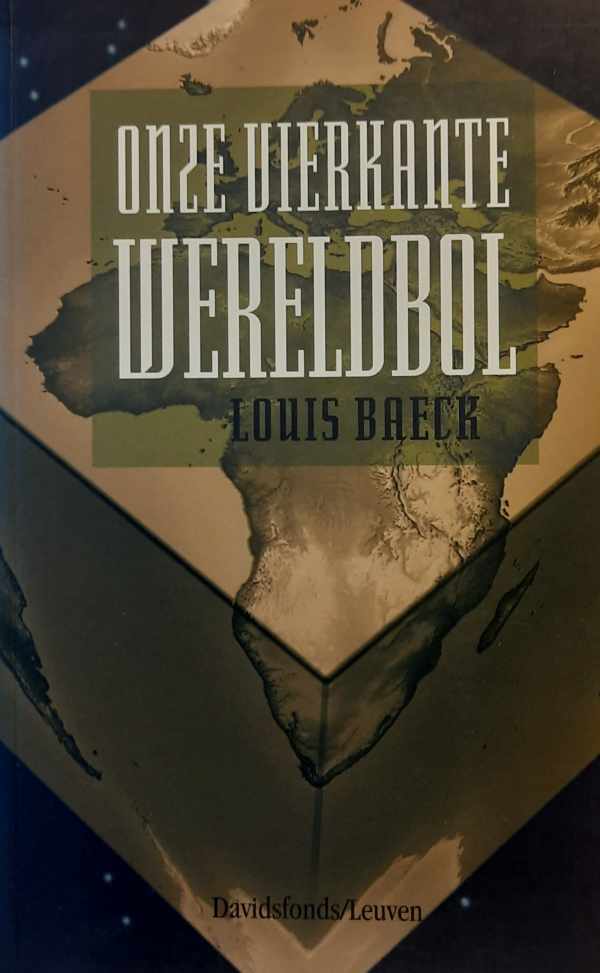
Analyse van de huidige stand van zaken met betrekking tot de politiek-economische en cultureel-godsdienstige ontwikkelingen in de verschillende werelddelen, waarbij de veronderstelde hegemonie van het westen sterk wordt gerelativeerd.
![Book cover 202109101819: BAKOENIN Michel [BAKOUNINE Michail], WITSE Rudy (intro) | God en de Staat. De heruitgave van de brosjure 'God en de Staat' door de russische anarchist Michel Bakoenin, verschenen in 1888 bij J.A. Fortuyn (Radicale Bibliotheek N° 1), verlucht met tekeningen van erkki liukku, pop-bedenkingen door sieg en met een inleiding van rudy witse](https://www.mers.be/COVERS_MERS/202109101819.jpg)

REGINE is a research project on regularisation practices in the European Union. The aim of the project is to provide a thorough mapping of practices relating to the regularisation of third country nationals illegally resident in EU Member States. Two additional non-EU countries - Switzerland and the US - will also be covered to gain insights in regularisation practices and the impact of regularisations elsewhere. In examining regularisation practices, the project also investigates the relationship of regularisation policies to the overall migration policy framework, including to protection issues and refugee policies. Moreover, the project examines the political position of different stakeholders towards regularisation policies on the national level. Finally, the project examines potential options for policies on regularisation on the European level, incorporating Member States as well as other stakeholders' views on possible instruments on the European level.

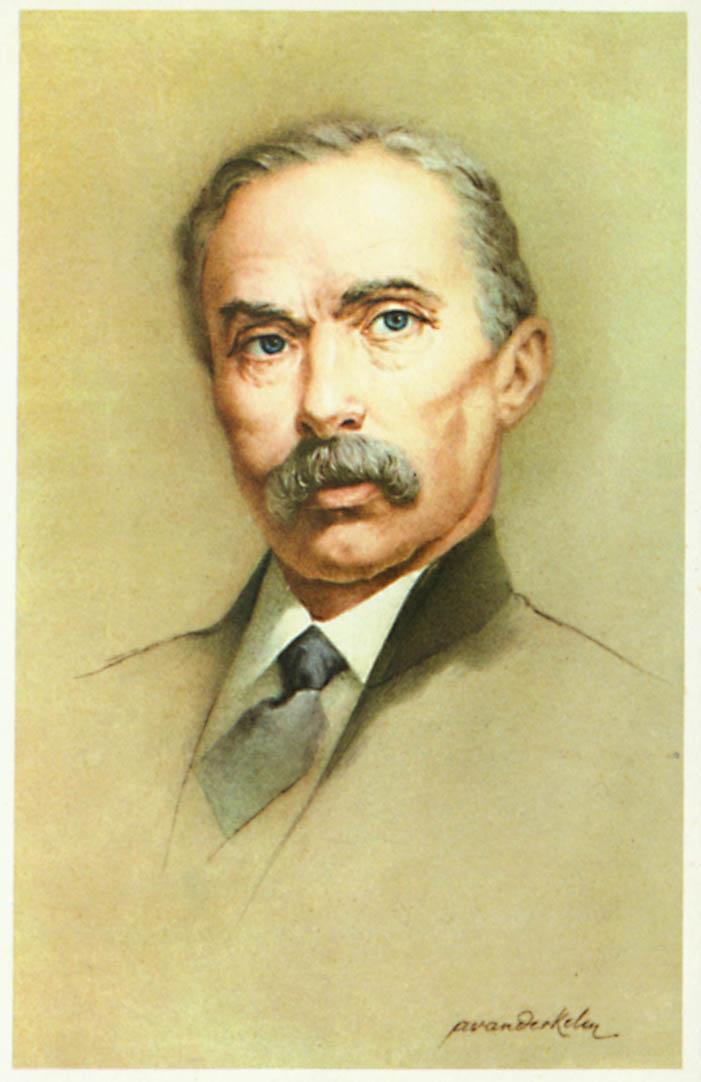 1st Mémoire publié pour la première fois, d'après le manuscrit original, avec un avant-propos (de juin 1919) de Pierre Nothomb. Broché In-12 IV+72 pp. Dans la série "Publications du Comité de Politique Nationale". Note LT: Banning (12/10/1836-1898)
1st Mémoire publié pour la première fois, d'après le manuscrit original, avec un avant-propos (de juin 1919) de Pierre Nothomb. Broché In-12 IV+72 pp. Dans la série "Publications du Comité de Politique Nationale". Note LT: Banning (12/10/1836-1898) 
 Mémoire publié pour la première fois, d'après le manuscrit original, avec un avant-propos (de juin 1919) de Pierre Nothomb. Broché In-12 IV+72 pp. Dans la série "Publications du Comité de Politique Nationale". Attention: scanned text 300 dpi in PDF-file. Note LT: Banning (12/10/1836-1898)
Mémoire publié pour la première fois, d'après le manuscrit original, avec un avant-propos (de juin 1919) de Pierre Nothomb. Broché In-12 IV+72 pp. Dans la série "Publications du Comité de Politique Nationale". Attention: scanned text 300 dpi in PDF-file. Note LT: Banning (12/10/1836-1898)Wij gebruiken WeTransfer om u deze PDF-file te zenden: simpel, snel en veilig.
Nous utilisons WeTransfer pour vous envoyer ce PDF: simple, rapide et sécurisé.
We use WeTransfer to send you this PDF-file: simple, fast and safe.

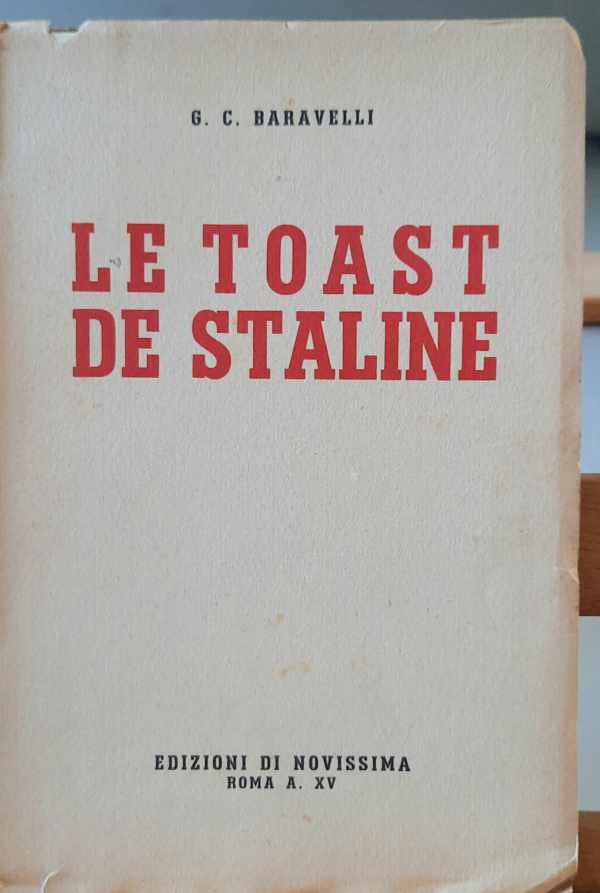
"Le toast de Staline" est un livre de l'auteur Baravelli G.C. qui nous plonge dans l'histoire de la Russie stalinienne. L'ouvrage est une exploration fascinante de la vie sous le régime de Staline, avec un accent particulier sur les aspects politiques et sociaux de cette époque. Le livre est riche en détails historiques et offre une perspective unique sur l'une des périodes les plus controversées de l'histoire russe. L'auteur utilise une variété de sources, y compris des archives personnelles et des documents officiels, pour raconter une histoire captivante qui est à la fois informative et émouvante. Le style d'écriture est engageant et accessible, rendant le livre attrayant pour les lecteurs de tous âges et de tous niveaux d'intérêt pour l'histoire.
We found 570 news items

Bij een sluiting van de zeeëngte van HORMUZ - en dat kan met weinig middelen - komt heel de oliebevoorrading van Europa in gevaar en stijgen de olieprijzen astronomisch. In zo'n context halen de VS-goederen het in de prijzenslag op de internationale markt.
De geëiste 5% van het BBP voor defensie heeft hetzelfde doel: Europa verarmen en in chaos storten.
Ook de tanende VS-hulp aan Oekraïne heeft tot doel de Europese slagkracht te verminderen.


Daaruit zal blijken hoe ver de tentakels van Reynders reiken.


Waar het 'zwarte' geld dan wel vandaan kwam - en dat is natuurlijk de hamvraag - is niet meteen duidelijk.
Of ook Jean-Claude Fontinoy aan de tand is gevoeld, is voorlopig niet bekend.
In 2021 verscheen bij Kritak een ophefmakend boek onder de titel 'De Clan Reynders'. Klik op de cover.
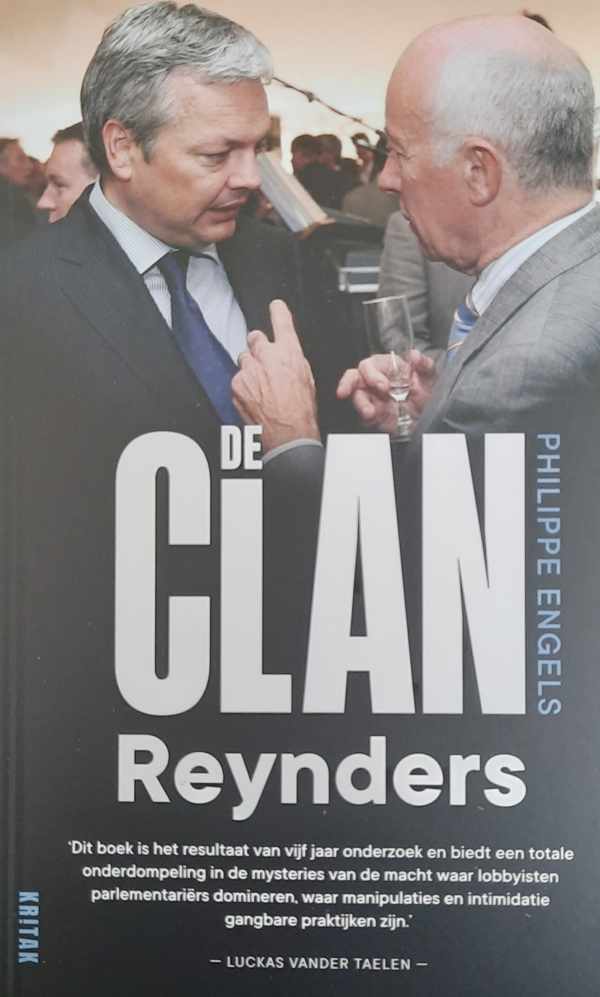

Het was de enige manier om de golf van de publieksstemmen die naar Israël zouden gaan, te counteren.
Over de berichtgeving: het geluid uit de zaal werd vakkundig gefilterd zodat het boe-geroep tijdens het optreden van de Israëlische kandidate niet op antenne kon gaan. Geluidscensuur.
Ook werd de Europese vlag uit de zaal geweerd. Begrijpe wie begrijpe kan.
De Nederlandse kandidaat werd gediskwalificeerd wegens een incident met een Israëlische cameravrouw.
De gehele communicatie van de EBU liep in het honderd.
Allen aan de coke zeker !?




Claes beweerde overigens nogmaals dat hij in de Agusta-affaire onterecht werd veroordeeld. Ingewijden weten wel beter. Ook het Hof voor de Mensenrechten oordeelde in 2005 dat Claes voor Cassatie een eerlijk proces had gekregen.
Als we wat verder teruggaan in de tijd: in 1973 was hij - samen met andere socialistische excellenties - betrokken bij de zgn. Ibramco-affaire. Dat gesjoemel werd op 18 april 1973 uitgebracht door De Standaard-journalist Leo Schrooten.
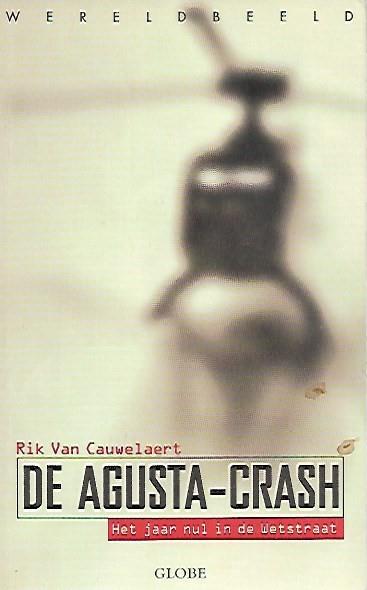
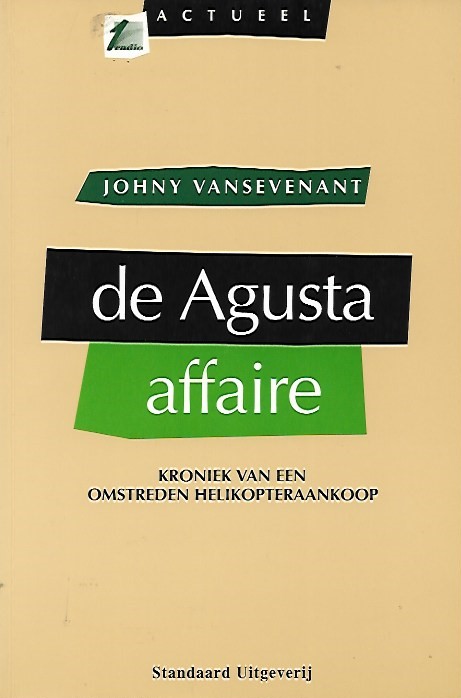

Wat minder bekend is: hij was een ongeremde poenpakker en graaier via verschillende bestuursmandaten in multinationals.
Als Guy Verhofstadt dat mocht, dan ook hij zal hij gedacht hebben.
De CD&V bolt dus naar de verkiezingen met een lijk in de kofferbak. Bergaf gaat dat sneller.


Opvallend - ook nu weer - een rechtse partij met een eerder links sociaal programma scoort. Dat was ook al zo toen de fascisten in Italië (vroege jaren 20) en in Duitsland (vroege jaren 30) aan de macht kwamen. Je moet immers 'het gewone volk' meekrijgen.
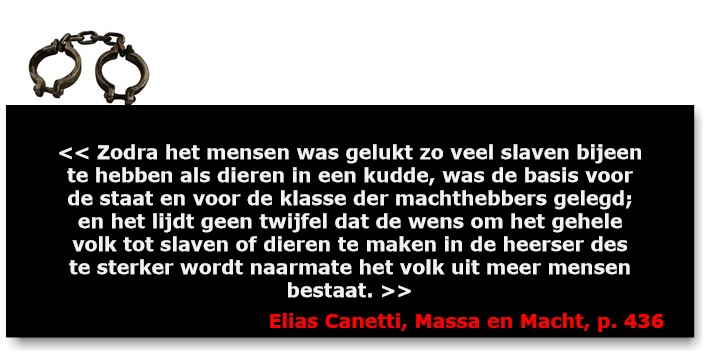
Een harde les: de kiezer straft vaak en beloont bijna nooit. En ja, de kiezer heeft een geheugen. Dat heeft de VVD ondervonden. Het neoliberalisme is ontmaskerd en afgeserveerd in Nederland. Het bedrog heeft lang genoeg geduurd. Hebben de mensen begrepen dat het perfide neoliberalisme het sociaal weefsel heeft ontwricht en vernietigd?
Een afwezig thema in de gehele campagne: belastingdruk.
Valt daar niks over te zeggen of is het te moeilijk om uit te leggen? Kan je er niet mee scoren? Nochtans zal je met inkomsten en uitgaven beleid moeten maken.
Wat er ook van zij, Nederland schuift op naar rechts. Om de macht te verwerven heeft Wilders zowaar zijn felle uitspraken gemilderd: van verwilderd naar vermilderd.
Alle partijprogramma's staan onder druk nu er over coalitievorming moet worden gesproken. Maar natuurlijk zijn politici kampioenen in het verschil maken tussen beloven en doen.
Pieter Omtzigt (NSC = CDA 2.0) haalt in één klap 20 zetels op een programma dat pleit voor degelijk bestuur en 'een grip op migratie'.
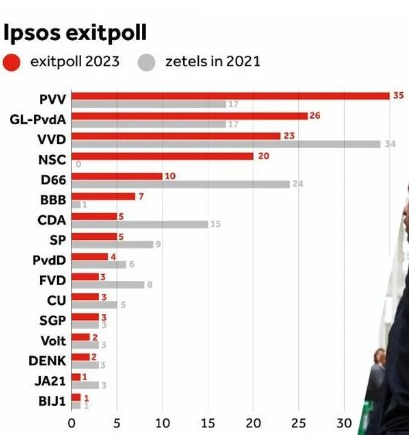




Vincent: Maar waarom zou ik dat doen? Dat valt toch onder de scheiding der machten?
Benny: Euh ... je weet het misschien nog niet maar er zijn nog andere beelden opgedoken van je verjaardagsfeestje. Iedereen liep daar blijkbaar te filmen. Wil je het zien?
Vincent: (...)
Benny: Wat denk je? Met dit wordt het een complete afgang en ga je door de modder kruipen. Kies je de mooie exit?
Vincent: Tja, dat lijkt me ook de beste weg. Organiseer maar een meeting met de persmeute.



De verantwoordelijke minister voert geen beleid ten gunste van de senioren maar van de aandeelhouders van de woonzorgcentra.


Om de vriendjes een plezier te doen.
We schreven toen
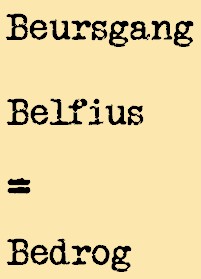

We leven effectief in een Graailand.


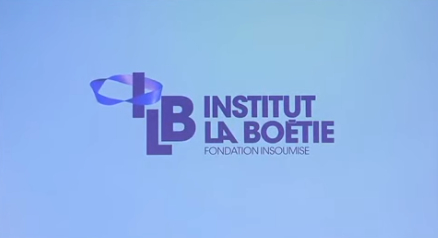
Une fois n’est pas coutume, je vais lire comme je le faisais dans les Assemblées lorsque le temps était minuté. Je le ferai d’autant plus que j’ai appris très récemment que je parlerais le dernier. Je demande à chacun d’entre vous ce que ça lui ferait de savoir qu’il parle après Abdourahman Waberi et Annie Ernaux. Il faut donc que l’émotion reste contenue dans la stabilité de l’écrit.
Car parler après vous tous, est une mission singulière.
Comme vous tous, je crois à la force de l’esprit humain, à la gloire de ses expressions, à la continuité de ses efforts d’émancipation.
Je le sais comme vous, que quand l’humanité, comme c’est le cas aujourd’hui, cherche son chemin à tâtons, les consciences librement insoumises par l’effet de l’art et des sciences, marchent sur nos premiers rangs.
Voilà pourquoi un homme politique peut se sentir dérisoire au moment de parler après vous tous, après Abdourahman Waberi, après Annie Ernaux.
Mais les lieux eux-mêmes aussi, pour peu qu’on soit capables de ressentir l’Histoire, et pas seulement de l’étudier et de la connaitre, ces lieux ajoutent au sentiment étrange qui m’a pris en préparant ce texte.
Ce réfectoire a reçu, à partir d’avril 1790, « la Société des Droits de l’Homme »…. et du Citoyen » sans lesquels ces droits ne sont rien. Cette société que l’on a surnommée ensuite le « Club des Cordeliers ».
Ici ont parlé avant nous George Danton, Camille Desmoulins, Jean-Paul Marat, Hebert, Chaumette. Des noms qui pour beaucoup d’entre nous, dans l’ensemble de la Révolution, claquent comme des drapeaux.
Cela vous le saviez.
Mais combien savent ici que s’exprima aussi le seul mouvement politique, féminin et féministe, de toute la Révolution. Celui qui s’assemblait dans la « Société des citoyennes républicaines révolutionnaires » de Paris. Non seulement Théroigne de Méricourt, mais Pauline Léon, chocolatière et Claire Lacombe, actrice.
Elles animaient ce groupe révolutionnaire, non mixte. Elles réclamaient le statut de citoyennes et le droit…. au port d’armes pour former des brigades féminines de défense de la révolution.
Encore une fois, le nom des femmes du peuple et leur radicalité a été effacé et souvent remplacé par celui des femmes de la haute société, toujours mieux recommandées, à leur époque comme à la nôtre.
Certes ces clubs furent ensuite indignement interdits. Mais, les femmes révolutionnaires, du temps de leur action, ont donné son sens complet à la grande révolution de 1789 !
Leur silence aurait relativisé, amoindri l’onde de choc qui travaille encore ce peuple et une partie du monde, et qui a jailli de la grande révolution de 1789.
Dans cette salle, on a voté avant l’Assemblée et avant toute autre organisation, la déchéance du roi après sa fuite à Varennes. Ici on a lancé la première pétition pour la proclamation de la République en France.
Ainsi, les voix entendues avant moi et les lieux qui nous reçoivent ont ouvert un chemin. Et nous venons assumer la continuité de son fil conducteur sous l’égide d’Etienne de la Boétie.
II
Le jeune insoumis du seizième siècle, écœuré par la barbarie de la répression des « pitaux », les piteux, pauvres gens s’insoumettant à la taxe sur le sel, rédigea à 18 ans le discours montrant comment les tyrans et les monarques de toutes sortes sont d’abord forts de notre soumission.
Il montre comment cette soumission devient volontaire quand nous choisissons de faire taire l’instinct de liberté qui nous anime tous comme tout être vivant, humains et bêtes.
Lui, puis Marie de Gournay plaidant à la même époque « l’égalité des hommes et des femmes » devant la reine Médicis, c’étaient parmi d’autres, en pleine nuit des guerres de religions, la petite cohorte fondatrice de ce qui deviendra le siècle des Lumières, puis de la grande Révolution qui a eu un de ses nids dans ce lieu.
Eux, affrontait alors un obscurantisme alors hégémonique qui combinait, de la naissance à la mort, un pouvoir religieux avec un pouvoir politique.
Eux, affirmaient et argumentaient la thèse d’une idée radicale que nous continuons de faire vivre. Celle du manifeste de Pic de la Mirandole « sur la dignité de l’Homme ». Il voulait dire de l’être humain. L’idée qui travailla les consciences dans le siècle des Lumières puis culmina avec la Déclaration des droits et enfin avec la Commune de 1871 : l’être humain est son propre auteur.
Rien d’autres que sa liberté ne fera jamais son Histoire. Il lui revient donc de savoir librement et rationnellement s’il doit se soumettre ou bien s’insurger.
Il a ses repères : les droits fondamentaux de la personne humaine sont inaliénables ! Ils forment la seule base légitime qui doit tenir lieu de règle à tout pouvoir politique. Il doit les servir et les satisfaire.
Liberté, savoir, raison : les trois convergent dans la revendication d’égalité des droits sociaux pour y accéder. Cette feuille de route reste la nôtre.
III
Car à notre tour, nous affrontons un obscurantisme. C’est la doctrine néolibérale. Elle exige de nous une soumission complète à un ordre économique destructeur de l‘humain et de la nature au nom d’une pure superstition.
C’est la foi dans l’existence d’une « main invisible », celle du marché, seule capable, en tous points et sur tous les sujets, de répondre aux besoins humains. Bien sûr, il s’agit d’une idéologie dominante, venant après d’autres. Bien sûr elle est au service de la classe dominante. Mais elle est peut-être l’obscurantisme le plus prégnant qu’on ait jamais connu.
Car si les idées professées sont comme à l’accoutumée une justification de l’ordre existant, celles-ci s’incrustent dans notre corps, jusque dans nos manières d’agir nos gouts et nos comportements.
Nombre d’entre nous ici pensons que la phase ascendante de cette idéologie est achevée. L’impasse sur laquelle elle débouche à la vue de tous gagne les consciences.
Mais l’ampleur des dégâts dans le saccage de la nature comme dans la destruction des sociétés est considérable. Son effet est maintes fois irréversible, qu’il s’agisse du dérèglement climatique ou de l’extinction de la biodiversité.
De la baisse de la fertilité, le recul de l’espérance de vie en bonne santé, de la multiplication des zoonoses, et l’obscénité des fortunes face aux masses de dénués de tout, quand une personne dans ce pays possède autant que 20 millions d’autres, nous font voir l’amorce d’une crise de la civilisation humaine. Au moins une aussi fondamentale que connut celle de l’Ancien Régime.
Et cela au moment où le blocage des relations internationales par la logique de compétition pour l’appropriation des matières premières et la domination politique, mettent de nouveau à l’ordre du jour la possibilité d’une guerre totale et mondiale.
Absurde, ce système est capable de se nourrir de ses propres dévastations. Il est donc incapable d’assumer l’intérêt général. Il doit être remplacé au nom de cet intérêt général humain. Les conditions pour le faire sont dans l’émergence d’une volonté politique écologique et sociale majoritaire.
Elle ne peut se construire sans la contribution décisive d’une pensée critique globale alternative. Notre ambition, dans cette Fondation, est là.
IV
La doctrine néolibérale est un obscurantisme au sens littéral et radical du terme. Elle l’est dans tous les cas où le mot peut s’appliquer. Par exemple quand elle voudrait faire croire que l’histoire accomplit un destin déterministe.
Le terminus, la « fin de l’histoire », ce serait l’instauration du marché dans tous les domaines. Ennemi des règlements et des lois, la doctrine néolibérale est alors d’abord l’ennemie du pouvoir citoyen qui les formule. Le néolibéralisme a une vocation autoritaire du fait même de ses prémices. Mais il avance masqué.
Le plus grave vient quand on mesure, et dans ce moment d’esprit je le souligne, quelle inversion du sens de l’histoire de la pensée il met en œuvre. Ainsi quand l’idéologie néolibérale domine le champ de la production des savoirs.
Le néolibéralisme agit alors en ennemi du savoir scientifique quand il paralyse ou interdit la libre circulation des connaissances en les privatisant. Et quand il entrave de cette façon l’effet de culture cumulative pourtant à l’origine de la civilisation humaine !
Telle est la situation dans laquelle nous vivons avec la généralisation des brevets à la suite des accords de l’OMC en 1994. Ce droit de propriété sur les connaissances et les découvertes a été multiplié par trois.
Alors a explosé le nombre des domaines du savoir soumis au régime de la propriété privée exclusive des détenteurs de brevets.
Les questions les plus sensibles sont impliqués.
Ainsi depuis 2001 plus de 50 000 demandes de brevets ont été déposées sur les séquences génétiques ! L’office européen des brevets a déjà accepté en 2015 un brevet sur une tomate et une variété de brocoli. C’est un début. De nombreuses autres demandes existent. Elles reviennent à vouloir créer un droit de propriété privée sur des espèces entières de nombreux organismes vivant.
Il s’agit là d’une tendance de fond. Elle accompagne le développement d’un capitalisme tributaire vivant davantage de propriété intellectuelle abusive que de prouesses dans la production et l’investissement.
La conséquence de cet obscurantisme s’est constatée à propos des vaccins pendant la pandémie de covid19. Ici rappelons d’abord comment le partage gratuit par les chercheurs du monde entier des connaissances sur le virus est à l’origine ensuite de l’activité des laboratoires privés.
Ces derniers se sont pourtant approprié le bénéfice de la mise au point et de l’exclusivité de la vente des vaccins !
Cette vente limitée aux pays riches a permis mille dollars de bénéfices par seconde sans aucun retour sur la recherche publique qui l’a rendue possible ! Mais doit-on oublier comment, jusqu’en 1959, il était interdit en France de déposer un brevet sur un médicament ? À L’époque le savoir scientifique se partageait gratuitement et universellement.
Dans ce registre du poids du « marché » sur l’avancée du savoir, doit-on aussi oublier comment les recherches sur cette famille de virus furent abandonnée en France parce qu’elles n’offraient pas de perspective rapide d’entrée sur le « marché » ?
Ou bien, à l’inverse comment l’entreprise MG en déposant deux brevets sur deux gènes associés au cancer du sein a obtenu le droit d’interdire ainsi toutes les recherches sur ces deux gènes par les laboratoires hospitaliers et universitaires ? L’usage des tests ainsi produits par MG sont facturés entre 3 et 4000 dollars.
Le caractère criminel contre l’Humanité de la rétention des savoirs est avéré quand on apprend comment des compagnies pétrolières ont caché pendant quarante ans leurs connaissances scientifiquement établies sur les conséquences climatique désastreuse du recours aux énergies carbonées.
Obscurantisme ! Quand la précarité des chercheurs bride leur liberté, quand les appels à projets minent les financements pérennes de leurs travaux. Quand ils donnent le pouvoir au temps court de la rentabilité sur le temps long du savoir fondamental. Oui, le temps long. On n’a pas inventé l’électricité en essayant d’améliorer la bougie. Quand le crédit d’impôt recherche a pour premiers bénéficiaires la grande distribution du commerce et la banque.
Freiner la connaissance, empêcher la circulation des savoirs, rentabiliser l’ignorance, tel est la verité de cet obscurantisme néo libéral.
V
Le néolibéralisme est un obscurantisme quand il professe la nécessité d’une croissance productiviste sans fin dans un monde aux ressources finies
Et encore quand il prône l’attribution d’un prix à la nature. Mais ! Ni la composition de celle-ci, ni les conditions de sa pérennité ne peuvent se dissocier. Ils ne peuvent donc en aucun cas s’évaluer au détail !
Ne faudrait-il pas aussi qualifier cet obscurantisme de « criminel » quand il suscite des consommations qui rendent malades d’obésité et de diabète des millions de personnes, pour ne rien dire des cancers. Et cela en consacrant des sommes considérables à injecter des besoins artificiels par l’envoutement publicitaire.
N’est-ce pas un obscurantisme de prêcher le contraire de ce que montrent les faits concrètement observables ? Ainsi quand il prétend organiser toute l’activité de la société par le système des prix et de l’échange marchand ? Ou quand il intime à l’État de se retirer pour « favoriser l’entreprise privée » et sa folle « énergie ».
Non, l’activité humaine ne correspond que bien rarement à des critères de marché. Et sans doute l’activité humaine n’est-elle réellement humaine que quand elle est absolument gratuite, c’est-à-dire sans attente d’un retour sur investissement.
Et les domaines où il s’instaure désormais sont aussitôt en proie au chaos ! On le voit pour l’énergie ou les transports, l’éducation ou la santé. Autant de domaines ou l’économie de marché provoque des pertes de savoirs et de savoir-faire. Au prix d’un recul net de l’efficacité du service.
Non, l’État n’a jamais été aussi présent qu’aujourd’hui dans le financement, à perte, de l’économie de marché. Aujourd’hui il y injecte en France davantage d’argent dans les entreprises sans aucune contrepartie qu’au temps où il finançait la planification économique.
Aujourd’hui l’État donne davantage aux entreprises qu’aux ménages. Mais sa ponction est plus grande sur les ménages que sur les entreprises.
Le discours néolibéral est donc une négation du réel, un rideau de fumée pour masquer un détournement massif de fond public au service de la cupidité qui accumule sans aucun retour sur la société.
Voilà ce qui pourrait se définir aussi comme une forme particulière du parasitisme.
La légitimation des inégalités et de la prédation cupide sous couleur de loi de la nature économique et leur donner la figure d’une discrimination naturelle par le racisme, par le sexisme. N’est-ce pas ce que nous entendons par un obscurantisme social ?
VI
J’ai répété le mot « obscurantisme » parce que j’ai voulu dans ce moment où nous installons solennellement la fondation La Boétie, lieu d’esprit critique, souligner l’inconciliable qui sépare notre travail du néolibéralisme et de l’idéologie du marché capitaliste par tout et pour tous.
Notre sujet est la plénitude de l’être humain. Son accès à l’harmonie avec ses semblables et avec la nature. L’idéologie néo libérale et le marché réduit l’humain à la marchandise qu’il contient : sa force de travail. Il cherche à l’utiliser sans limite tout en la dépréciant sans cesse.
Nous en avons l’exemple sous les yeux avec la réforme des retraites. Elle prétend que le seul temps socialement utile serait le temps contraint de la production. Sans discuter aucun des aspects de cette réforme, je veux pointer comment il y a pour eux une légitimité évidente à vouloir davantage au temps libre et aux fonctions sociales et culturelles qu’il accomplit dans la vie. Une décision à rebours du progrès historique qu’a représenté la diminution par deux du temps de travail depuis un siècle et la multiplication par 50 de la valeur produite.
C’est un obscurantisme de demander de travailler plus pour produire plus. Non, il faut travailler moins pour travailler tous et mieux et réduire la part incroyable du gâchis dans la production, la distribution et la consommation. Gâchis masqué, nié parce qu’il est compté comme un « plus » dans le PIB. Un Français consomme 26 kilos d’équipement électrique et électronique par an et doit en jeter 21 kilos la même année.
35% des dix millions de tonnes de déchets alimentaires par an sont perdus dans la production des industries agro-alimentaires et dans la distribution commerciale.
L’idéologie néolibérale est un système d’idée au service d’un régime politico-économique qui réduit les êtres humains à une seule fonction : consommer, et à un seul statut socialement utile : être un client et bien sur un client actif.
Quel monde alors ! Un monde où règne une seule valeur, une seule norme, une seule beauté à contempler, un seul désir légitime à exprimer sans limite. C’est la marchandise !
La marchandise est devenue un absolu, un idéal. Toujours disponible, toujours légitimement exigible, sécable, transportable, évaluable en monnaie, provisoire mais répétitive comme le désir qui en est la source, jetable aussi, comme tout ce qui encombre le besoin déjà satisfait.
La marchandise n’est pas un « en dehors de nous » mais un rapport social et intime qui peut tout englober tout reformuler l’être humain s’il n’y prend garde et n’allume pas les lumières de la raison face à l’obscurité des pulsions de la consommation.
Les modes d’emplois y sont une culture, une façon de se comporter, un signal de conformité sous le regard des autres. Les possessions y sont une sculpture de soi. Dans ce monde, l’être humain, ses contradictions, ses fantaisies, ses raisons et ses déraisons, dans cette complétude que je viens de nommer, dans ce désordre fécond qui est simplement la vie est une espèce en voie de disparition.
Quand l’avoir devient la seule manière d’être, le consommateur absorbe l’humain, le client efface le citoyen, la pulsion remplace la raison. Triple néant de sens humain. Triple disparition de l’humain.
A côté du transhumanisme qui prêche une hypothétique perfection individuelle là où nous, depuis Pic de la Mirandole et La Boétie mais surtout depuis Rousseau croyons à la perfectibilité collective permanente, voici surgir l’inhumanisme néolibéral. Il n’y a plus d’êtres, il n’y a plus d’échanges, il n’y a que le marché.
C’est le monde ou l’humain organise sa disparition comme sujet de son Histoire. C’est le monde qui s’évalue dans le niveau du PIB ou ne compte aucune des choses importantes : ni le niveau d’éducation, ni l’état de l’environnement, ni la santé des populations, ni le bonheur de vivre.
C’est la doctrine qui fait de ses pulsions et de ses désirs préfabriqués le tapis roulant de l’accumulation capitaliste.
VII
En face de quoi l’esprit critique que nous construisons et que nous voulons construire, chacun à notre manière, dans la liberté absolue de notre diversité, chacun part le chemin de ses propres savoirs, formule un Nouvel Humanisme.
La vie de l’esprit est notre front de lutte.
Notre fondation assume le projet d’être entièrement au service de la pensée critique du système dans lequel nous vivons.
Sans les outils sérieusement élaborés de cette pensée critique on ne peut comprendre ce qui se passe et encore moins sortir de l’impasse dans laquelle le système a enfermé l’humanité.
Ainsi que l’a formulé Kant : le pratique sans la théorie est aveugle, la théorie sans la pratique est absurde.
Et de cette manière, nous pensons formuler, au fil du travail de pensée, un « nouvel humanisme ».
Celui de notre temps. Bien sûr il dit de nouveau que les êtres humains sont les seuls auteurs de leur histoire et de leurs êtres. « les humains sont tels que les a fait leur culture » dit La Boetie Mais il le fait en assumant l’implication complète de l’humain avec tout le vivant dans un destin commun qui ne sépare pas les humains des animaux, ni d’une forme quelconque de la vie.
Et il doit le faire en documentant sans trêve l’absurdité dévastatrice du système. En produisant dans tous les domaines les éléments de compréhension alternative capables de nourrir l’action citoyenne et de reformuler la décision politique.
La pensée critique que nous travaillons est notre arme de démystification massive contre un système idéologique et un système économique basé sur le mensonge et l’abus de bien social et naturel.
Et c’est à la Boétie qu’il me faut emprunter pour un slogan de fin de discours dans le contexte de la grève générale de mardi prochain qui sera un grand moment d’esprit populaire. Et du grand rassemblement samedi prochain 11. Car personne ne s’y trompe, le refus de la retraite à 64 ans, c’est le refus d’un monde Nous qui ne voulons ni de la retraite à 64 ans ni de son monde, de cœur, de corps d’esprit, cessons de servir et alors nous seront bientôt libres.

Komaan, zeg.


Until 2016, up to three awards were made every year. Since 2017, a shortlist of six titles have been announced in advance of one overall winner.
(Winners are listed alphabetically by author)
2022
Devil-Land: England Under Siege, 1588-1688
Clare Jackson
(Allen Lane)
2022 Shortlist:
The Ottomans: Khans, Caesars and Caliphs
Marc David Baer
(Basic Books)
The Ruin of all Witches: Life and Death in the New World
Malcolm Gaskill
(Allen Lane)
Going to Church in Medieval England
Nicholas Orme
(Yale University Press)
God: An Anatomy
Francesca Stavrakopoulou
(Picador)
Fallen Idols: Twelve Statues that Made History
Alex von Tunzelmann
(Headline)
2021
Black Spartacus: The Epic Life of Toussaint Louverture
Sudhir Hazareesingh
(Allen Lane)
2021 Shortlist:
Survivors: Children’s Lives after the Holocaust
Rebecca Clifford
(Yale University Press)
Ravenna: Capital of Empire, Crucible of Europe
Judith Herrin
(Allen Lane)
Double Lives: A History of Working Motherhood
Helen McCarthy
(Bloomsbury)
Burning the Books: A History of Knowledge Under Attack
Richard Ovenden
(John Murray Press)
Atlantic Wars: From the Fifteenth Century to the Age of Revolution
Geoffrey Plank
(Oxford University Press)
2020
The Boundless Sea: A Human History of the Oceans
David Abulafia
(Allen Lane)
2020 Shortlist:
A History of the Bible: The Book and Its Faiths
John Barton
(Allen Lane)
A Fistful of Shells: West Africa from the Rise of the Slave Trade to the Age of Revolution
Toby Green
(Allen Lane)
Cricket Country: An Indian Odyssey in the Age of Empire
Prashant Kidambi
(Oxford University Press)
The Five: The Untold Lives of the Women Killed by Jack the Ripper
Hallie Rubenhold
(Doubleday)
Chaucer: A European Life
Marion Turner
(Princeton University Press)
2019
Reckonings: Legacies of Nazi Persecution and the Quest for Justice
Mary Fulbrook
(Oxford University Press)
Shortlist:
Building Anglo-Saxon England
John Blair
(Princeton University Press)
Trading in War: London’s Maritime World in the Age of Cook and Nelson
Margarette Lincoln
(Yale University Press)
Birds in the Ancient World: Winged Words
Jeremy Mynott
(Oxford University Press)
Oscar: A Life
Matthew Sturgis
(Head of Zeus)
Empress: Queen Victoria and India
Miles Taylor
(Yale University Press)
2018
Heretics and Believers: A History of the English Reformation
Peter Marshall
(Yale University Press)
Shortlist:
Out of China: How the Chinese Ended the Era of Western Domination
Robert Bickers
(Allen Lane)
The Butchering Art: Joseph Lister’s Quest to Transform the Grisly World of Victorian Medicine
Lindsey Fitzharris
(Allen Lane)
A Deadly Legacy: German Jews and the Great War
Tim Grady
(Yale University Press)
Black Tudors: The Untold Story
Miranda Kaufmann
(Oneworld)
Heligoland: Britain, Germany and the Struggle for the North Sea
Jan Rüger
(Oxford University Press)
2017
Meetings with Remarkable Manuscripts
Christopher de Hamel
(Allen Lane)
Shortlist:
The House of the Dead: Siberian Exile under the Tsars
Daniel Beer
(Allen Lane)
Henry IV
Chris Given-Wilson
(Yale University Press)
Sleep in Early Modern England
Sasha Handley
(Yale University Press)
Martin Luther: Renegade and Prophet
Lyndal Roper
(The Bodley Head)
Henry the Young King, 1155 – 1183
Matthew Strickland
(Yale University Press)
2016
Augustine: Conversions and Confessions
Robin Lane Fox
(Allen Lane)
KL: A History of the Nazi Concentration Camps
Nikolaus Wachsmann
(Little, Brown)
2015
National Service: Conscription in Britain, 1945-1963
Richard Vinen
(Allen Lane)
Ring of Steel: Germany and Austria-Hungary at War, 1914-1918
Alexander Watson
(Allen Lane)
2014
The Making of the Middle Sea: A History of the Mediterranean from the Beginning to the Emergence of the Classical World
Cyprian Broodbank
(Thames & Hudson)
Red Fortress: The Secret Heart of Russia’s History
Catherine Merridale
(Allen Lane)
2013
Thomas Wyatt: The Heart’s Forest
Susan Brigden
(Faber & Faber)
Fascist Voices: An Intimate History of Mussolini’s Italy
Christopher Duggan
(Random House)
2012
Nikolaus Pevsner: The Life
Susie Harries
(Chatto & Windus)
The Reformation of the Landscape: Religion, Identity & Memory in Early Modern Britain & Ireland
Alexandra Walsham
(Oxford University Press)
2011
The Man on Devil’s Island: Alfred Dreyfus and the Affair that Divided France
Ruth Harris
(Allen Lane)
Islanders: The Pacific in the Age of Empire
Nicholas Thomas
(Yale University Press)
2010
Russia against Napoleon: The Battle for Europe 1807 to 1814
Dominic Lieven
(Allen Lane)
The Hundred Years War, vol. III: Divided Houses
Jonathan Sumption
(Faber & Faber)
2009
Pompeii: The Life of a Roman Town
Mary Beard
(Profile Books)
Dance in the Renaissance: European Fashion, French Obsession
Margaret McGowan
(Yale University Press)
2008
After Tamerlane: The Global History of Empire since 1405
John Darwin
(Allen Lane)
God’s Architect: Pugin & the Building of Romantic Britain
Rosemary Hill
(Allen Lane)
2007
Iron Kingdom: The Rise and Downfall of Prussia 1600-1947
Christopher Clark
(Allen Lane)
City of Laughter: Sex and Satire in Eighteenth-Century London
Vic Gatrell
(Atlantic Books)
The Wages of Destruction: The Making and Breaking of the Nazi Economy
Adam Tooze
(Allen Lane)
2006
Shopping in the Renaissance: Consumer Cultures in Italy 1400-1600
Evelyn Welch
(Yale University Press)
Framing the Early Middle Ages: Europe and the Mediterranean 400-800
Christopher Wickham
(Oxford University Press)
2005
The Dictators: Hitler’s Germany and Stalin’s Russia
Richard Overy
(Allen Lane)
In Command of History: Churchill Fighting and Writing the Second World War
David Reynolds
(Allen Lane)
For distinguished contribution to the writing of history
Christopher Bayly
2004
Transformations of Love: The Friendship of John Evelyn and Margaret Godolphin
Frances Harris
(Oxford University Press)
The Fall of France: The Nazi Invasion of 1940
Julian Jackson
(Oxford University Press)
Reformation: Europe’s House Divided 1490-1700
Diarmaid MacCulloch
(Allen Lane)
2003
White Mughals: Love and Betrayal in Eighteenth-Century India
William Dalrymple
(HarperCollins)
Marianne in Chains: In search of the German Occupation 1940-1945
Robert Gildea
(Macmillan)
2002
Facing the Ocean: The Atlantic and its Peoples 8000BC-AD1500
Barry Cunliffe
(Oxford University Press)
London in the Twentieth Century: A City and its People
Jerry White
(Viking)
For distinguished contribution to the writing of history:
Roy Jenkins
2001
Hitler 1936-1945: Nemesis
Ian Kershaw
(Allen Lane)
The Balkans: From the End of Byzantium to the Present Day
Mark Mazower
(Weidenfeld & Nicolson)
Enlightenment: Britain and the Creation of the Modern World
Roy Porter
(Allen Lane)
2000
An Intimate History of Killing: Face-To-Face Killing In Twentieth-Century Warfare
Joanna Bourke
(Granta Books)
Salisbury: Victorian Titan
Andrew Roberts
(Weidenfeld & Nicolson)
For distinguished contribution to the writing of history
Asa Briggs
1999
Stalingrad
Antony Beevor
(Viking)
The Gentleman’s Daughter: Women’s Lives in Georgian England
Amanda Vickery
(Yale University Press)
1998
The Pleasures of the Imagination: English Culture in the Eighteenth Century
John Brewer
(HarperCollins)
Jennie Lee: A Life
Patricia Hollis
(Oxford University Press)
1997
A People’s Tragedy: The Russian Revolution 1891-1924
Orlando Figes
(Jonathan Cape)
For distinguished contribution to the writing of history
Eric Hobsbawm
1996
Gladstone, 1875-1898
HCG Matthew
(Oxford University Press)
1995
William Morris: A Life for Our Time
Fiona MacCarthy
(Faber & Faber)
The Kaiser and his Court: Wilhelm II and the Government of Germany
John Röhl
(Cambridge University Press)
1994
The Making of Europe: Conquest, Colonization and Cultural Change 950-1350
Robert Bartlett
(Allen Lane)
Living and Dying in England 1100-1540: The Monastic Experience
Barbara Harvey
(Oxford University Press)
1993
Britons: Forging the Nation 1707 – 1837
Linda Colley
(Yale University Press)
John Maynard Keynes, vol. 2: the Economist as Saviour 1920-1937
Robert Skidelsky
(PanMacmillan)
1992
Giordano Bruno and the Embassy Affair
John Bossy
(Yale University Press)
Hitler and Stalin: Parallel Lives
Alan Bullock
(HarperCollins)
1991
The Architecture of Medieval Britain: A Social History
Colin Platt
(Yale University Press)
1990
The Quest for El Cid
Richard Fletcher
(Hutchinson)
How War Came
Donald Cameron Watt
(William Heinemann)
1989
Death in Hamburg: Society and Politics in the Cholera Years, 1830-1910
Richard Evans
(Oxford University Press)
The Rise and Fall of the Great Powers: Economic Change and Military Control from 1500-2000
Paul Kennedy
(Unwin Hyman)
1987
Conquest, Coexistence, and Change: Wales 1063-1415
Rees Davies
(Oxford University Press)
The Mediterranean Passion: Victorians and Edwardians in the South
John Pemble
(Oxford University Press)
1986
The Count-Duke of Olivares: The Statesman in an Age of Decline
John Elliott
(Yale University Press)
European Jewry in the Age of Mercantilism 1550-1750
Jonathan Israel
(Oxford University Press)
1985
Dudley Docker: The Life and Times of a Trade Warrior
Richard Davenport-Hines
(Cambridge University Press)
Lloyd George: From Peace to War, 1912-1916
John Grigg
(Methuen)
1984
The Weaker Vessel: Woman’s Lot in Seventeenth-Century England
Antonia Fraser
(Weidenfeld & Nicolson)
Chivalry
Maurice Keen
(Yale University Press)
1983
Winston S. Churchill, vol. VI: Finest Hour
Martin Gilbert
(Heinemann)
King George V
Kenneth Rose
(Weidenfeld & Nicolson)
1982
Death and the Enlightenment: Changing Attitudes to Death Among Christians and Unbelievers in Eighteenth-century France
John McManners
(Oxford University Press)
For distinguished contribution to the writing of history
Steven Runciman
1981
A Liberal Descent: Victorian Historians and the English Past
John Burrow
(Cambridge University Press)
For distinguished contribution to the writing of history
Owen Chadwick
1980
The Making of the Habsburg Monarchy, 1550-1700: An Interpretation
Robert Evans
(Oxford University Press)
Culture and Anarchy in Ireland, 1890-1939
FSL Lyons
(Oxford University Press)
1979
Death in Paris , 1795-1801
Richard Cobb
(Oxford University Press)
Clementine Churchill
Mary Soames
(Cassell)
The Foundations of Modern Political Thought, vol. 1: The Renaissance
Quentin Skinner
(Cambridge University Press)
1978
A Savage War of Peace: Algeria, 1954-1962
Alistair Horne
(Macmillan)
For distinguished contribution to the writing of history
Howard Colvin
1977
Patriots and Liberators: Revolution in the Netherlands, 1780-1813
Simon Schama
(Collins)
Mussolini’s Roman Empire
Denis Mack Smith
(Longman & Co)
1976
A History of Building Types
Nikolaus Pevsner
(Thames & Hudson)
The Eastern Front 1914-17
Norman Stone
(Hodder & Stoughton)
1975
Edward VIII
Frances Donaldson
(Weidenfeld & Nicolson)
The Poor of Eighteenth-Century France, 1750-1789
Olwen Hufton
(Oxford University Press)
1974
The Ancient Economy
Moses Finley
(Chatto & Windus)
France, 1848-1945: Ambition, Love & Politics
Theodore Zeldin
(Oxford University Press)
1973
Henry II
WL Warren
(Eyre & Spottiswoode)
The Rosicrucian Enlightenment
Frances Yates
(Routledge & Kegan Paul)
1972
Grand Strategy, vol. IV: August 1942 – September 1943
Michael Howard
(HMSO)
Religion and the Decline of Magic: Studies in Popular Beliefs in Sixteenth and Seventeenth-Century England
Keith Thomas
(Weidenfeld & Nicolson)

Het VBO juicht zoals gewoonlijk.




1) Had Qatar een werkelijk belang bij een nogal amateuristische verdediging van zijn slavenpolitiek?
2) Wie had er belang bij dat het schandaal van de corruptie bekend zou worden?
Ik denk dat het antwoord op de eerste vraag negatief kan zijn.
Het feit dat er grote sommen cash geld in kleine coupures werden overhandigd, maakte het voor de ontvangers moeilijk om deze te verbergen. Bij ontdekking zou het misdrijf onmiddellijk zeer visueel kunnen geëxploiteerd worden door de media en was het bovendien een betrapping op heterdaad. Het is niet uitgesloten dat de bestelling van kleine coupures verliep via het drugsmilieu waar cash massaal aanwezig is. De biljetten zelf komen dus hoogstwaarschijnlijk vanuit België en niet uit een bankautomaat. Deze overwegingen sterken ons vermoeden dat de omkoperij bedoeld was om in de openbaarheid te komen.
Het zijn natuurlijk de opponenten van de EU die belang hebben bij dergelijk schandaal. Dat uitgerekend een Grieks europarlementslid, i.c. Eva Kaili, een hoofdrol speelt in het omkoopschandaal, kan ook wijzen in de richting van de vijanden van Griekenland. Mogelijk is er een collusie van belangen.
In dit geval hebben we te maken met een omkoopschandaal waarbij een staat betrokken is. Nu wordt algemeen aangenomen dat het om Qatar gaat maar ondertussen valt ook de naam van Marokko. En wie zegt dat een vijand van Qatar het land niet de das heeft willen omdoen?
De EU zal ook moeten bekijken hoe multinationals lobbyisten inzetten in Brussel.
Last but not least moet ook gekeken worden naar de prominente aanwezigheid van europarlementsleden in raden van bestuur van multinationals want daar is de belangenvermenging toch evident.



Zo zit de Griekse babe Eva Kaili (PASOK) in de cel.
In de media wordt niet gesproken over wie van de kant van Qatar optrad.



Geen van de aanwezigen reageert. Nochtans komt dit neer op het buiten spel zetten van het parlement. Indirect steunt Magnette dus het dictatoriale beleid van Macron.


Een van haar meest actieve medewerkers was Octave Hoebeeck, bijgestaan door Magda Baeyens.
Zij slaagde erin om de geregionaliseerde Dienst Kijk- en Luistergeld te laten verhuizen van Brussel naar haar kiesdistrict Aalst.
Haar kabinetschef was Etienne Schouppe.

Stage Kabinet De Bleeker
GEZOCHT: ENTHOUSIASTE STAGIAIR (M/V/X) MET STEVIGE HANDS-ON MENTALITEIT!
Staatssecretaris voor Begroting en Consumentenzaken Eva De Bleeker is op zoek naar jong talent voor een leerrijke stage op haar kabinet.
Wat? Een stageplaats in een boeiende en uitdagende omgeving. Wekenlang werkplezier, degelijke ondersteuning en een bom van ervaringen.
Waar? Warm en gezellig kantoor op het 6de verdiep van de Finance Tower, inclusief toffe collega's.
Wanneer? Minimum 8 weken stage, te beginnen afhankelijk van jouw mogelijkheden.
Wie?
Een stage bij onze cel Begroting: Enthousiast, leergierig, down-to-earth, een goed humeur en een stevige portie kennis van overheidsfinanciën. Je goochelt met cijfers en zit vol goesting om je tanden te zetten in de Belgische begroting. Je stage is onderdeel van een bachelor- of masteropleiding of jouw aanloop naar de arbeidsmarkt.
Een stage bij onze cel Consumentenbescherming: Enthousiast, leergierig, down-to-earth, een goed humeur en een stevige portie kennis van consumentenzaken. Je laat je door niemand bedotten en in je dromen ben jij de held die de consument tegen onrecht behoedt. Je stage is onderdeel van een bachelor- of masteropleiding of jouw aanloop naar de arbeidsmarkt.
Een stage bij onze cel Communicatie: Enthousiast, leergierig, down-to-earth, een goed humeur en je kan het -altijd- goed uitleggen. Jij kan als geen ander van een mug een sterk communicatief olifantenverhaal maken én dat ook op social media. Je zoekt en pluist graag alles uit en ziet een communicatie-opportuniteit achter elke hoek. Je stage is onderdeel van een bachelor- of masteropleiding of jouw aanloop naar de arbeidsmarkt.
Een stage bij ons secretariaat: Enthousiast, leergierig, down-to-earth, een goed humeur en allround inzetbaar. Word, Excel, Powerpoint of Outlook? Jij kent de bekendste informaticapakketten als je broekzak. Jouw zin voor nauwkeurigheid kent geen grenzen en het ondersteunen van anderen geeft je een warm en gelukkig gevoel. Je stage is onderdeel van een opleiding secretariaat.
Stuur jouw (video)CV naar info(at)debleeker.be en overtuig ons van jouw competenties.

Nou ja, ook een apocalyps moet een regisseur hebben.

Kaouakibi laat bij de Open-VLD een muis op de mat achter.
Maar laat het duidelijk zijn: elke politieke partij heeft in de coulissen schimmige figuren rondlopen. Deze huursoldaten willen er een graantje meepikken of hun ego oppompen.

'Qu'ils retournent en Afrique'
Versie 2:
'Qu'il retourne en Afrique'
Auditief is er in de Franse taal geen verschil.
De Assemblée weerhield versie 2 en dus sloeg de uitspraak op de huidskleur van Bilongo.

Delcroix regelde als nationaal CVP-secretaris (hij volgde Ludo Willems op) eigenhandig benoemingen in de magistratuur. Daarvan was ikzelf getuige tijdens een onderhoud (over mediazaken) met Delcroix in de Tweekerkenstraat.
Tegenover een benoeming kon een toegeving of een gunst staan in een heel ander dossier. Delcroix maakte daarvan een systeem, een ingewikkeld kluwen waarvan enkel hij de logica snapte. In zijn handen werden politieke beslissingen, mandaten en verkiesbare plaatsen het voorwerp van een constante ruilhandel achter de schermen.
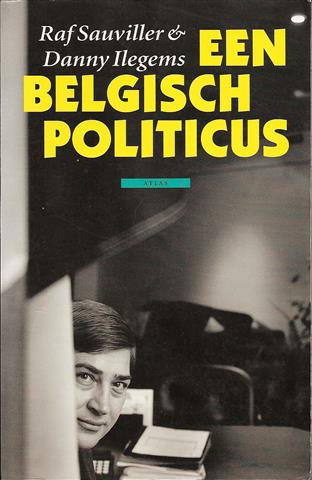





Er is een documentaire over haar in de maak.
Zich als een 'drama queen' opstellen komt dan van pas.
Want zo kan je jezelf van dader in slachtoffer veranderen.
Sommige mensen weten echt niet wat 'game over' betekent.



En het draait allemaal om belastingen en wie de zwaarste lasten moet torsen.
Wrong woman at the wrong time?





De tweede ronde volgt op 30 oktober.


De pot anders verdelen, de schaarse middelen rechtvaardiger inzetten, is blijkbaar een politiek taboe.
Sammy Mahdi werd door schoonmoeder Crevits van het dossier gehaald. Niet echt een fraai gezicht maar het toont wel wie de echte baas is bij CD&V.

En moeten grootverdieners ook nog kinderbijslag krijgen? Moeten we ook dat niet aftoppen?

Dat is de kat bij de melk zetten: U moet deze herstelling laten uitvoeren of ik geef u geen goedkeuring.
In het Engels is daar een uitdrukking voor: 'Organized Rip Off'.


Een goede sergeant marcheert links achter het peleton.


Links (of wat daarvoor door gaat) mag in het pensioendossier niet scoren.

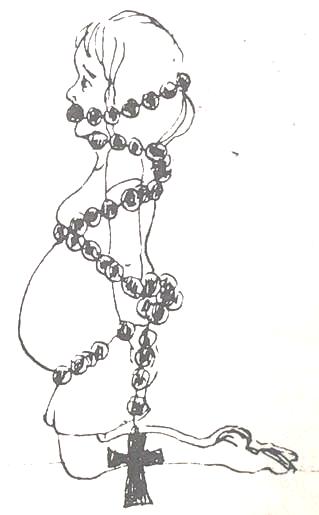 President Biden noemt dit een schandelijke dag voor de States.
President Biden noemt dit een schandelijke dag voor de States.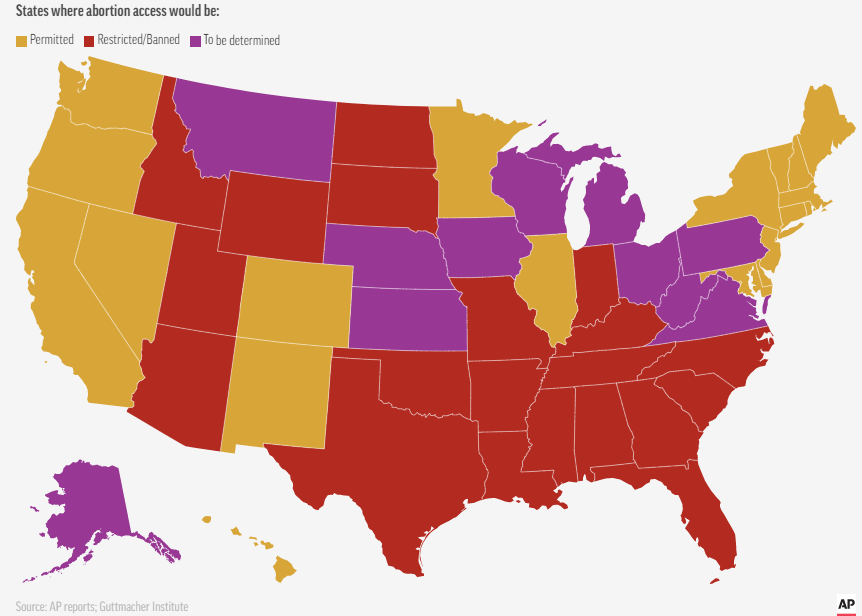

 NUPES (Mélenchon) en RN (Le Pen) rukken op.
NUPES (Mélenchon) en RN (Le Pen) rukken op.Les Républicains zijn niet happig om Macron (Ensemble) aan een meerderheid te helpen.
Onthoudingen (abstentions) op een dramatisch recordpeil.
Frankrijk gaat chaotische maanden tegemoet en daar wordt niemand beter van.
De grote verliezer van deze verkiezingen is het Franse volk. Maar we moeten ook zeggen dat diegenen die verzuimden te gaan kiezen daar mee schuld aan hebben. Democratie is niet gratis.




De nieuwsdienst beging een kapitale fout door godbetert de GEHELE persconferentie LIVE uit te zenden. Er werd zoveel aandacht gegeven aan het ontslag van Beke alsof heel de regering gevallen was. Daardoor kon Beke zichzelf meer dan tien minuten lang bewieroken. Vrouw, dochtertje en de kabinetsmedewerkers mochten in een pathetische setting opdraven om de held te horen zeggen hoe goed hij het wel gedaan had.
Alsof het allemaal niet genoeg was, haalde het gezin ook nog een oranje pull boven met daarop 'Nothing to prove'. Kleuters hadden het niet beter gekund.
Het bewijst nog maar eens tot welk niveau de politiek afglijdt.

Overigens zal het de bevolking worst wezen of een partij al dan niet overleeft.
Wat telt is de complete hervorming van de maatschappij waarin het welzijn van de mens en niet het geld centraal staat. Partijen en politici moeten ophouden zichzelf als belangrijk te zien. De grote vraagstukken moeten terug op tafel komen. Voor het oplossen van technische details hebben we aan een kundige en mondige administratie genoeg.

 Il veut un «troisième tour». Mardi soir face à Bruce Toussaint sur BFM TV, le chef de file des insoumis a appelé à une grande «union populaire» des partis de gauche derrière lui en vue des législatives de juin pour «l’élire» Premier ministre et imposer au futur président une cohabitation.
Il veut un «troisième tour». Mardi soir face à Bruce Toussaint sur BFM TV, le chef de file des insoumis a appelé à une grande «union populaire» des partis de gauche derrière lui en vue des législatives de juin pour «l’élire» Premier ministre et imposer au futur président une cohabitation. 
 Definitieve resultaten (bron: Politico, 20220411)
Definitieve resultaten (bron: Politico, 20220411)Emmanuel Macron: 27,8%
Marine Le Pen: 23,2%
Jean-Luc Mélenchon: 22%
Eric Zemmour: 7,1%
Pécresse: 4,8%
Jadot: 4,6%
Lassalle: 3,1%
Fabien Roussel: 2,3%
Dupont-Aignan: 2,1%
Anne Hidalgo: 1,8%
Poutou: 0,8%
Arthaud: 0,6%
De strategie van Marine Le Pen heeft gewerkt. Door de raciale standpunten te delegeren aan Zemmour, kon zij zich als acceptabel laten doorgaan. Nu kan zij in de tweede ronde de stemmen van Zemmour (7,1%), het reservoir, binnenrijven. Van kiezersbedrog gesproken!
Op de linkerzijde heeft de koppigheid van de kansloze kandidaten, die zich wentelen in hun ego, ervoor gezorgd dat Mélenchon niet kan doorstoten naar de tweede ronde. De zoveelste gemiste kans van links om nog iets voor het volk te betekenen.
De verkiezingsuitzending van France 2 was een draak van formaat. Meer show dan informatie: infotainment dus. Er werden enkel percentages genoemd, geen absolute cijfers. De digitale kaart (beschreven als een ultranieuwe app) op een touchscreen toonde enkel de winnaar per circonscriptie. De "estimation" bleef vanaf 20 uur tot laat in de avond behouden als zijnde waarachtig. Toen pas bleek dat Jean-Luc Mélenchon nog stevig kwam opzetten. De resultaten werden niet becommentarieerd door politologen maar door hoofdredacteurs van diverse media.
De TV-beelden uit het hoofdkwartier van Macron werden geleverd door het campagneteam van Macron en niet door de ENG-ploegen van France 2; deontologisch is dat naar onze mening een fout want de openbare zender geeft de camerabediening en de regie uit handen.

 Le 5 avril 2022, Jean-Luc Mélenchon était à Lille et dans 11 villes en hologramme pour son dernier discours du premier tour de l’élection présidentielle.
Le 5 avril 2022, Jean-Luc Mélenchon était à Lille et dans 11 villes en hologramme pour son dernier discours du premier tour de l’élection présidentielle. Après avoir salué le nombre et la démonstration de force que constitue ce meeting multi-holographique, il a placé son discours sous l’alerte du GIEC et le défi écologique, le plus important de notre époque.
Jean-Luc Mélenchon s’est ensuite attaché à expliquer le caractère anti-social du programme de Marine Le Pen : son refus du blocage des prix, son refus d’augmenter le SMIC, son programme rétrograde sur l’apprentissage. Il s’est aussi attardé sur son programme totalement vide sur la question de la souffrance animale. Il a égrainé l’ensemble des votes à l’Assemblée nationale sur lesquels elle était absente.
Le candidat de l’Union populaire a ensuite attaqué le Président de la République, Emmanuel Macron. Il est revenu sur la polémique qui l’oppose à lui sur l’apprentissage. Il en a profité pour développer ses propositions sur l’enseignement professionnel.
Jean-Luc Mélenchon a ensuite développé un principe essentiel de son projet : la reprise du contrôle. C’est une reprise du contrôle démocratique, à travers la 6ème république, le RIC, le référendum révocatoire. C’est aussi la reprise de contrôle sur le temps long grâce à la planification et le temps de la vie grâce à la réduction du temps de travail, la retraite à 60 ans et les 35h. Enfin, c’est le contrôle humain, c’est-à-dire le gouvernement par les besoins. Il a pris les exemple des EHPAD et de l’hôpital comme lieux dont la logique de la marchandise devra être chassé. Enfin, le candidat a parlé de la révolution féministe, qu’il a qualifié de révolution égalitaire globale. Il a conclu par un appel à l’espoir et la conviction que la victoire est possible.

 De consultancy-bureaus die hun cliënten helpen om via fiscale optimisatie minder of helemaal geen belastingen te betalen, factureren de staat (wij allen dus) om een bepaald beleid uit te stippelen, beleid dat even goed door de overheidsadministratie had kunnen worden voorbereid.
De consultancy-bureaus die hun cliënten helpen om via fiscale optimisatie minder of helemaal geen belastingen te betalen, factureren de staat (wij allen dus) om een bepaald beleid uit te stippelen, beleid dat even goed door de overheidsadministratie had kunnen worden voorbereid. Een werkelijk pijnpunt bestaat hierin: de consultant levert wel een advies maar er is geen transfert van knowhow of skills zodat de administratie beter en op eigen kracht diensten zou kunnen verlenen aan de gemeenschap.
Bovendien heeft McKinsey France de laatste tien jaar geen belastingen betaald in Frankrijk. De winsten van McKinsey France werden immers systematisch afgeroomd door het moederhuis dat in Delaware (USA) is gevestigd.
Bovendien heeft een verantwoordelijke van McKinsey daarover gelogen in een commissie van de Franse senaat.
De Senaat heeft justitie ingeschakeld en daarover volgend bericht verspreid:
En application de l’article 40 du code de procédure pénale, le Sénat a saisi la justice pour une suspicion de faux témoignage devant la commission d’enquête sur l’influence croissante des cabinets de conseil sur les politiques publiques.
Le 18 janvier 2022,un directeur associé du cabinet McKinsey a déclaré sous serment devant la commission d’enquête sénatoriale : "Je le dis très nettement : nous payons l’impôt sur les sociétés en France et l’ensemble des salaires sont dans une société de droit français qui paie ses impôts en France".
Or, l’enquête des sénateurs atteste que le cabinet McKinsey n’a pas payé d’impôts sur les sociétés en France depuis au moins 10 ans. Ces faits ont été étayés par deux contrôles sur pièces et sur place menés au ministère de l’économie et des finances.
Les faux témoignages devant une commission d’enquête, aussi appelés "parjures", sont passibles de sanctions pénales, prévues par l’ordonnance du 17 novembre 1958 sur le fonctionnement des assemblées parlementaires.
Dans le respect de la séparation des pouvoirs, il appartient désormais à la justice de statuer sur ce signalement du Sénat.
[https://www.senat.fr/presse/cp20220325.html]
De malversaties hebben overeenkomsten met de Belgische affaire Nethys (2021). Ook toen was McKinsey betrokken partij.


Ik schrijf je een lange e-mail. Je kan ook om 11u de livestream van de conferentie bijwonen via YouTube of Facebook.
Na bijna acht jaar heb ik beslist om mijn mandaat als partijvoorzitster van Groen terug te geven aan de partij.
Het is een beslissing die al een tijdje door mijn hoofd spookte, en waar ik het juiste moment voor zocht. Ik neem de beslissing niet lichtzinnig. Ik heb er heel wat over gepraat, thuis, met Dany, met de directie, met naasten.
Ik maak de keuze in de eerste plaats voor mezelf en mijn dichte familie, de mensen die me de voorbije jaren meer hebben gegeven dan ik hen kon bieden. Ik wil vaker bij mijn kinderen en mijn echtgenoot zijn. Ik wil de komende jaren mee voor mijn mama kunnen zorgen. Nabij kunnen zijn. Niet binnen nog eens zes maanden of eind 2024, maar gewoon, nu.
Corona maakte haarfijn duidelijk hoe belangrijk het is om zorg te dragen voor wat ons lief is. Maar meer dan ooit, in deze tijden, betekent zorg dragen ook durven kiezen. Durven veranderen. Dat geldt voor onze samenleving. Dat geldt voor de politiek. Dat geldt ook voor onze partij. En voor mezelf. Zorg dragen om wat je liefhebt betekent immers ook durven loslaten.
De afgelopen jaren heb ik het ongelooflijke privilege gehad om deze partij met al zijn mooie mensen en engagement te mogen leiden. In die tijd zijn we gegroeid in het aantal groepen, verkozenen en meerderheden. De lokale verkiezingen van 2018 waren onze meest succesvolle ooit.
Nationaal zijn we verhuisd van de oppositiebanken naar twee regeringen. We hebben onze grootste Vlaamse fractie ooit. We maken compromissen wanneer het moet en zetten onze hakken in het zand waar het kan. We zoeken in woelige tijden naar zekere stappen vooruit, met het ecologisme als gedeeld kompas.
Samen met Jeremie en Dany als ondervoorzitters, samen met het personeel, het partijbestuur en de politieke raad maakten we plannen om te verhuizen naar een echte groene hub in de hoofdstad. Vandaag is die droom realiteit, en zitten we met Ecolo in een gedeeld groen gebouw vlakbij onze parlementen.
Van daaruit zoeken we als kersverse federale meerderheidspartij onze weg in deze veranderende wereld. Dat is zelden makkelijk. Als partij van het voorzorgsprincipe worden we vandaag in de regeringen geconfronteerd met de gevolgen van decennia aan non-beleid.
Met Petra, Tinne en Elke hebben we drie van de beste ministers die dit land telt aan het roer gezet, om aan die uitdagingen het hoofd te bieden.
Petra staat voor een nieuw soort politiek. Een waardegedreven politiek, waarbij een minister over de eigen schaduw heen durft te springen zonder de lange termijn ooit uit het oog te verliezen. Met respect voor de ander en voor de meerstemmigheid van de democratie, vasthoudend aan onze eigen visie.
Tinne toont met haar expertise en standvastigheid dat niets in de politiek onmogelijk is. Zelfs een puinhoop die twintig jaar lang de kans kreeg om te groeien, kan opgekuist worden. En ondanks de karikaturen, de tegenkanting en de leugenachtige aanvallen blijft ze rechtdoorzee de energietransitie in goede banen leiden.
Elke maakt van Brussel een echte groene hoofdstad. Ze toont dat ecologisch en sociaal beleid één en ondeelbaar zijn, en dat Groen als leidende politieke partij langs Nederlandstalige kant een wezenlijk verschil maakt.
Naast deze drie kleppers telt onze partij ontzettend veel mandatarissen en vrijwilligers die elke dag de groene droom mee vorm geven. Want al klinken de roepers soms oorverdovend luid, de hoopvolle gezichten en geweldige ideeën, de stille zorgers en gulle gevers zijn met zo veel meer.
Jij bent er.
Dat geeft me een ongelooflijk gevoel van dankbaarheid.
Van hoop. Van vertrouwen.
Vertrouwen om Groen een beetje los te laten.
Ik blijf natuurlijk ecologiste in hart en nieren, een fier Vlaams parlementslid, in een fractie die broodnodig weerwerk biedt tegen de kille afbraakpolitiek van de Vlaamse regering. Ik zal jullie hopelijk nog veel tegenkomen op diverse groene gelegenheden. Maar ik ga even afstand nemen van de frontlinie van de partijpolitiek.
Is dit het beste moment voor een vertrek? Eigenlijk weet ik dat niet. Vergeleken bij de gruwel van oorlog is alles relatief. Voor het klimaat tikt de tijd genadeloos weg. En onze federale ministers konden en kunnen elke steun gebruiken in het gepolariseerde debat rond de energieswitch.
Maar voor Groen en voor mij heeft langer wachten geen zin, denk ik. We besturen in woelige tijden, waarbij het soms lang wachten is tot we in rustiger waters komen. Bovendien dwingt die woelige context ons intern en extern tot een herbronning als partij.
De nieuwe voorzitter hoeft daarbij niet van nul te starten: het voorbije jaar werd in alle luwte een breed traject gelopen om onze partij sterker te maken, een ‘herpositioneringsoefening’, zoals dat heet in tien lettergrepen. Die oefening is klaar om in de handen van een nieuwe voorzitter haar finale vorm te krijgen zodat we vandaaruit met frisse energie een doorstart als partij kunnen nemen.
Het is immers de groene partij die de antwoorden heeft op de uitdagingen van vandaag. Die op een andere manier aan politiek doet, zonder de toxische bullebakkerij, zoals we die vandaag al te vaak zien op sociale media. Zonder de tactische spelletjes, maar met een verhaal op lange termijn.
Een partij die moedige beslissingen durft nemen om onze samenleving in moeilijke tijden vooruit te helpen. Een partij die opkuist waar anderen besluiteloos bleven. Die durft veranderen, zodat we ook morgen kunnen blijven zorgen voor wat ons lief is. Een partij die gaat voor de veerkracht van mens en planeet, voor rechtvaardigheid en solidariteit.
Kortom: de beslissing om af te treden als voorzitster ligt in mijn hoofd al een tijdje vast, en de puzzelstukken voor een goede start van een opvolger werden voorbereid.
De komende weken zullen jullie samen beslissen wie die opvolger wordt. Ik zal doen wat ik kan om de overdracht vlot te laten verlopen, en in tussentijd blijven knokken voor het werk dat Tinne, Petra, Elke en vele anderen elke dag verzetten.
En ik blijf elke dag van de voorbije jaren koesteren, elke ontmoeting, elke lach, elk engagement.
Ik ben verdomd graag jullie voorzitster geweest en samen met Dany kijk ik met veel goesting uit naar wat nog komt.
Merci.
Meyrem




iii. At times it seems there was too little thought given to what was happening across the country in considering the appropriateness of some of these gatherings, the risks they presented to public health and how they might appear to the public. There were failures of leadership and judgment by different parts of No 10 and the Cabinet Office at different times. Some of the events should not have been allowed to take place. Other events should not have been allowed to develop as they did.
iv. The excessive consumption of alcohol is not appropriate in a professional workplace at any time. Steps must be taken to ensure that every Government Department has a clear and robust policy in place covering the consumption of alcohol in the workplace.
Noot LT: We kunnen ons afvragen of er ook onderzoek wordt gedaan naar de consumptie van cocaïne.

Wellicht schuilt het begin van elke waanzin wel in de ontkenning.






"Voorzitter, nu we toch over dat statuut bezig zijn: in december 2019 hebben we hier een resolutie goedgekeurd na lange discussies over de hoge lonen hier, om de parlementaire lonen met 5 procent te verminderen. Daar waren heel veel grote verklaringen over in de pers, namelijk dat parlementsleden eindelijk ook hun steentje zouden bijdragen. Wat blijkt twee jaar later? Dat dat niet is uitgevoerd. Die 5 procent is er gewoon niet af! Ik dacht dat wij daar nochtans een resolutie voor hadden goedgekeurd. Daar stond een deadline op. Dat was mei 2020. Dat is opnieuw iets dat het parlement perfect zelf kan beslissen. De Kamer heeft het al beslist. Het Vlaams Parlement kan het ook perfect beslissen. Er blijft dus een enorme terughoudendheid om in dit parlement over de eigen privileges te spreken."

by
Katharina Buchholz,
Oct 4, 2021
The offshore tax activities of prominent figures in the world of business, politics, entertainment and sports have once more been revealed in a massive leak, this time dubbed the Pandora Papers by the International Consortium of Investigative Journalists, which had also coordinated the release of prominent leaks the Paradise Papers and the Panama Papers.
As our chart shows, the newest leak is the largest to-date at a size of 2.94 terabytes. Compared to the famous 2010 Wikileaks release of U.S. diplomatic cables, the Pandora Papers are more than 1,700 times as large.
While the two previous releases had focused on single offshore enablers - law firms Mossack Fonseca and Appleby in the Panama and Paradise Papers, respectively - the new data dump combines records from 14 sources that operate in 38 jurisdictions, covering more corners of the globe than previous exposés.
The leak once more illustrates how the offshore financial system is tightly connected to global politics, corporate giants and notable individuals holding vast levels of private wealth. The list of those implicated this time around includes Colombian singer Shakira, Spanish crooner Julio Iglesias and former German top model Claudia Schiffer.
A total of 336 former or current politicians are also tied to offshore money via the release. The most common countries of origin for them were the Ukraine and Russia, but also many places in Latin America and Africa. The UK was the only European nation in the top 10 of countries with the most politicians named in the release. Among them are former prime minister Tony Blair, with more to be named in the upcoming days.




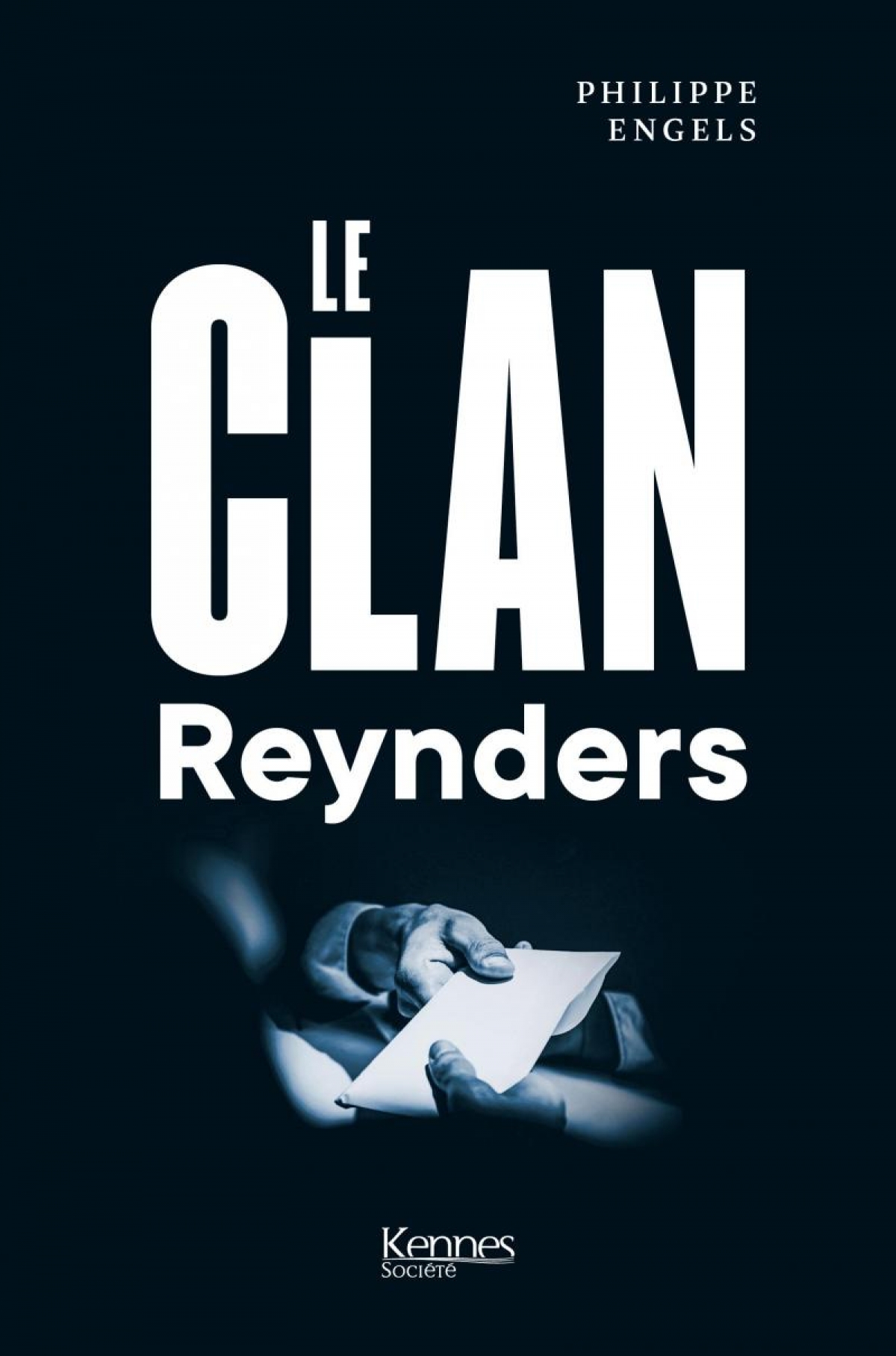










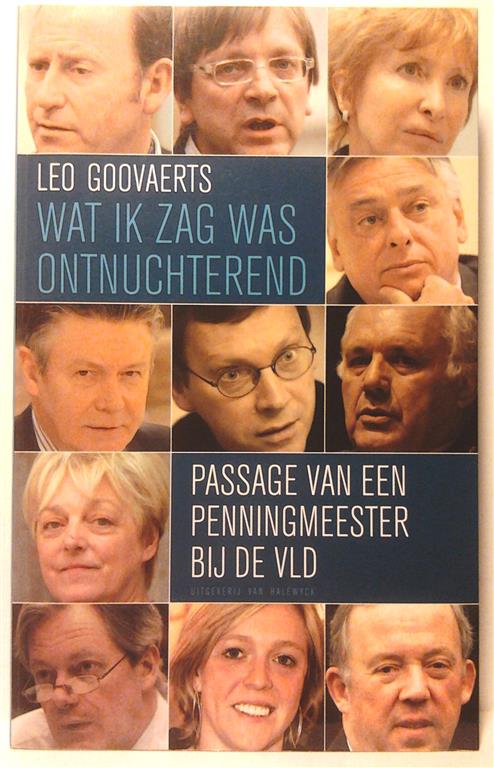
In 2014 ontrafelde Wilfried Dewachter in 'De trukendoos van de Belgische particratie' het systeem dat de democratie neutraliseert. ga naar het boek
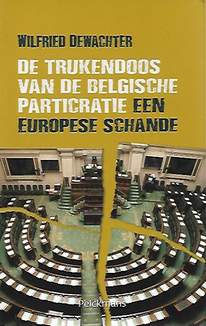
Als het mechanisme nog niet duidelijk zou zijn:
Vleespot nr 1 = de partijkas, door de Staat gespijsd via de wet op de partijfinanciering;
Vleespot nr 2 = de Staat.
In 2019 hebben we een oplossing naar voor geschoven
En vergeten we niet dat de oligarchie in de politiek zijn spiegelbeeld kent in de media. Wat wij daarover denken, vindt u hier.

Nu gaat hij cumuleren, iets wat hij altijd anderen heeft verweten.
In 'De Afspraak' (VRT) werd hij door Isabel Albers op de rooster gelegd.
Calvo had nauwelijks weerwerk. Het bleef bij wat gebazel. Schaamte is er blijkbaar niet.




zie wat men met Belfius en FPIM van plan was (is)



 Nu is het maar te hopen dat ze hun proces niet kunnen afkopen, schrijft Béatrice Delvaux in De Standaard.
Nu is het maar te hopen dat ze hun proces niet kunnen afkopen, schrijft Béatrice Delvaux in De Standaard.zie ook het bericht van 14 november 2019



 Voor het hoogtepunt zorgde Amanda Gorman (22) die haar gedicht - 'The Hill We Climb' - voordroeg. Zij toonde Amerika van zijn beste kant. Natuurlijk kan een gedicht de wereld niet veranderen, het kan wel het begin zijn van een nieuw inzicht, 'a new dawn'. En wellicht wordt het beleid van Joe Biden later wel afgerekend op deze ritmische woorden.
Voor het hoogtepunt zorgde Amanda Gorman (22) die haar gedicht - 'The Hill We Climb' - voordroeg. Zij toonde Amerika van zijn beste kant. Natuurlijk kan een gedicht de wereld niet veranderen, het kan wel het begin zijn van een nieuw inzicht, 'a new dawn'. En wellicht wordt het beleid van Joe Biden later wel afgerekend op deze ritmische woorden.
When day comes, we ask ourselves where can we find light in this never-ending shade?
The loss we carry, a sea we must wade.
We’ve braved the belly of the beast.
We’ve learned that quiet isn’t always peace,
and the norms and notions of what “just” is isn’t always justice.
And yet, the dawn is ours before we knew it.
Somehow we do it.
Somehow we’ve weathered and witnessed a nation that isn’t broken,
but simply unfinished.
We, the successors of a country and a time where a skinny black girl descended from slaves and raised by a single mother can dream of becoming president, only to find herself reciting for one.
And yes, we are far from polished, far from pristine,
but that doesn’t mean we are striving to form a union that is perfect.
We are striving to forge our union with purpose.
To compose a country committed to all cultures, colors, characters, and conditions of man.
And so we lift our gazes not to what stands between us, but what stands before us.
We close the divide because we know, to put our future first, we must first put our differences aside.
We lay down our arms so we can reach out our arms to one another.
We seek harm to none and harmony for all.
Let the globe, if nothing else, say this is true:
That even as we grieved, we grew.
That even as we hurt, we hoped.
That even as we tired, we tried.
That we’ll forever be tied together, victorious.
Not because we will never again know defeat, but because we will never again sow division.
Scripture tells us to envision that everyone shall sit under their own vine and fig tree and no one shall make them afraid.
If we’re to live up to our own time, then victory won’t lie in the blade, but in all the bridges we’ve made.
That is the promise to glade, the hill we climb, if only we dare it.
It’s because being American is more than a pride we inherit.
It’s the past we step into and how we repair it.
We’ve seen a force that would shatter our nation rather than share it.
Would destroy our country if it meant delaying democracy.
This effort very nearly succeeded.
But while democracy can be periodically delayed,
it can never be permanently defeated.
In this truth, in this faith, we trust,
for while we have our eyes on the future, history has its eyes on us.
This is the era of just redemption.
We feared it at its inception.
We did not feel prepared to be the heirs of such a terrifying hour,
but within it, we found the power to author a new chapter, to offer hope and laughter to ourselves.
So while once we asked, ‘How could we possibly prevail over catastrophy?’ now we assert, ‘How could catastrophy possibly prevail over us?’
We will not march back to what was, but move to what shall be:
A country that is bruised but whole, benevolent but bold, fierce and free.
We will not be turned around or interrupted by intimidation because we know our inaction and inertia will be the inheritance of the next generation.
Our blunders become their burdens.
But one thing is certain:
If we merge mercy with might, and might with right, then love becomes our legacy and change, our children’s birthright.
So let us leave behind a country better than the one we were left.
With every breath from my bronze-pounded chest, we will raise this wounded world into a wondrous one.
We will rise from the golden hills of the west.
We will rise from the wind-swept north-east where our forefathers first realized revolution.
We will rise from the lake-rimmed cities of the midwestern states.
We will rise from the sun-baked south.
We will rebuild, reconcile, and recover.
In every known nook of our nation, in every corner called our country,
our people, diverse and beautiful, will emerge, battered and beautiful.
When day comes, we step out of the shade, aflame and unafraid.
The new dawn blooms as we free it.
For there is always light,
if only we’re brave enough to see it.
If only we’re brave enough to be it.
herlees de speech die Martin Luther King gaf op 28 augustus 1963: I have a dream


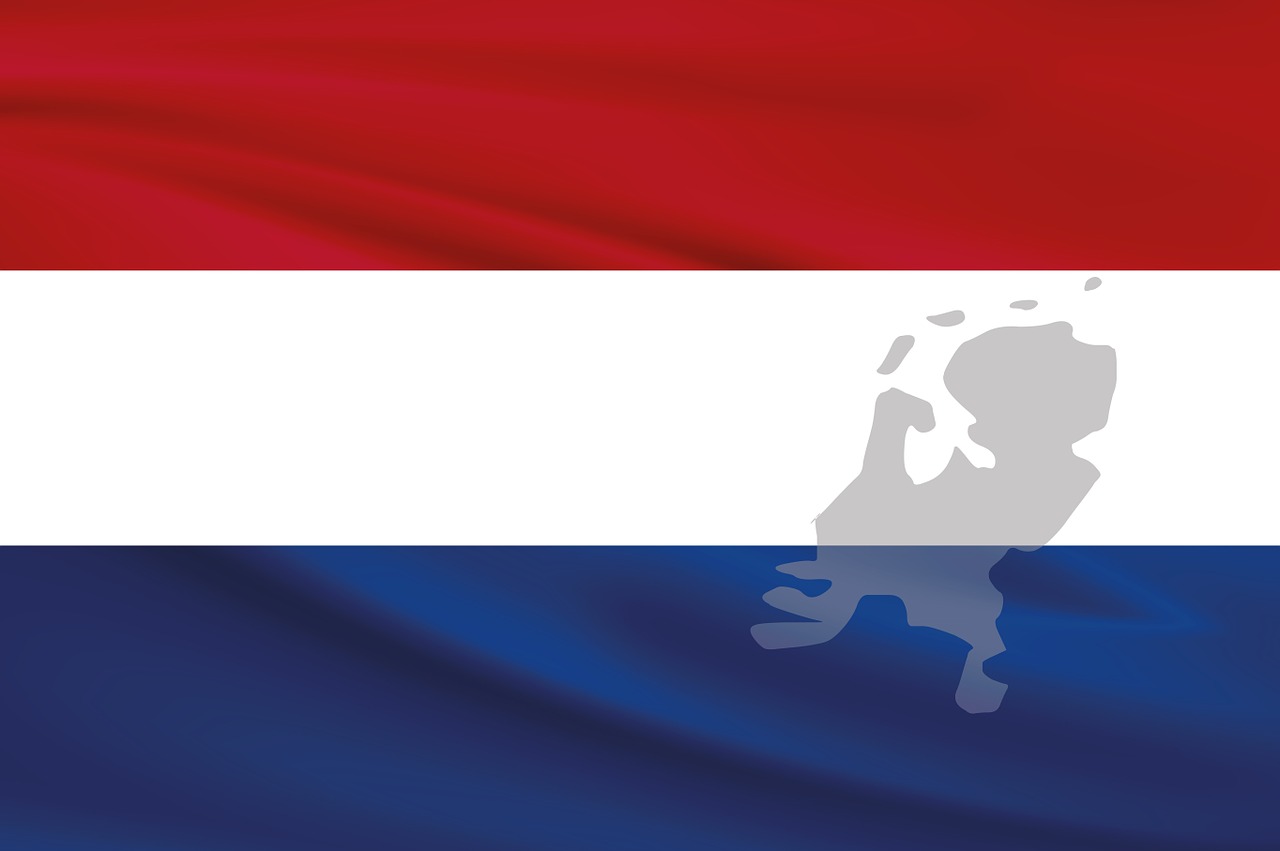 De toeslagenaffaire gaat terug tot 2013. Nadat aan het licht gekomen was dat een Bulgaarse bende voor miljoenen euro’s sociale uitkeringen opgestreken had, opende de belastingdienst een ware heksenjacht. Circa 26.000 gezinnen werden ten onrechte beschuldigd van gesjoemel met de toeslag voor kinderopvang en kregen voor tienduizenden euro’s vorderingen in de bus.
De toeslagenaffaire gaat terug tot 2013. Nadat aan het licht gekomen was dat een Bulgaarse bende voor miljoenen euro’s sociale uitkeringen opgestreken had, opende de belastingdienst een ware heksenjacht. Circa 26.000 gezinnen werden ten onrechte beschuldigd van gesjoemel met de toeslag voor kinderopvang en kregen voor tienduizenden euro’s vorderingen in de bus.De Nederlandse staat zal nu elk gedupeerd gezin minimaal 30.000 euro gaan uitkeren. Zelfs als het teruggevorderde bedrag lager lag.
Zo betalen de burgers van de staat de miskleumen van de politiek. Is het ooit anders geweest?
En na de verkiezingen komen dezelfde dames en heren terug aan het roer staan.

 'Trump scum' uit Dumbfuckistan kleurt de geschiedenis van de zogenaamde beschaafde Verenigde Staten. Schande !
'Trump scum' uit Dumbfuckistan kleurt de geschiedenis van de zogenaamde beschaafde Verenigde Staten. Schande !Wij hebben vragen bij de veiligheidsvoorzieningen rond Congres en Senaat.
De antwoorden volgen wellicht nooit.
Wat we wel weten is dat Trump zelf opriep tot een aanval op The Hill. Zijn verantwoordelijkheid is dus bewezen.
From Wiki:
Representatives Ted Lieu and Charlie Crist, and former Defense Secretary William Cohen called on Vice-President Pence to remove Trump after he supported protestors who stormed and occupied the United States Capitol building on January 6, 2021. The National Association of Manufacturers also asked Pence to "seriously consider" invoking the Twenty-fifth Amendment. In an article for New York, law professor Paul Campos also supported using Section 4 to remove Trump "immediately" and "for the good of the nation".
Twitter, Instagram en Facebook blokkeren Trump's accounts !
De situatie in het Witte Huis begint te lijken op Hitler's laatste dagen in de bunker onder de Reichstag.

 Het gebeurt allemaal wel heel traag en de task force wordt opgeroepen om de vaccinatiestrategie te herzien. Als het zorgpersoneel uitvalt en er komt een derde golf aan, zijn we gezien.
Het gebeurt allemaal wel heel traag en de task force wordt opgeroepen om de vaccinatiestrategie te herzien. Als het zorgpersoneel uitvalt en er komt een derde golf aan, zijn we gezien.






Het rapport sluit aan bij de in juli uitgebrachte studie van Artsen zonder Grenzen.
zie hier het rapport van Artsen zonder Grenzen van juli 2020

zie ook ons bericht van 17/1/2018
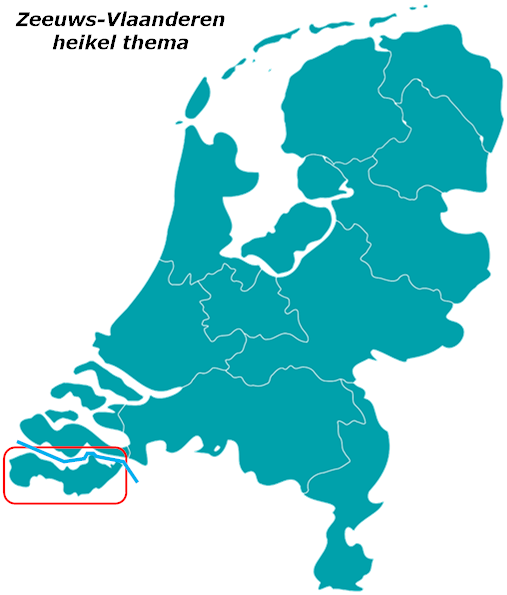




 Hij werd genoemd in het fameuze audit-rapport.
Hij werd genoemd in het fameuze audit-rapport. 


De economen verkopen nu veel blabla terwijl ze heel goed weten hoe het systeem in mekaar zit. Vaak hebben ze het zelf ontworpen.


Hij eist 12 miljoen euro.

 Audit Vlaanderen heeft een vernietigend rapport over de VRT klaar. Daarin is onder meer sprake van normvervaging en van onregelmatigheden bij de toekenning van overheidsopdrachten.
Audit Vlaanderen heeft een vernietigend rapport over de VRT klaar. Daarin is onder meer sprake van normvervaging en van onregelmatigheden bij de toekenning van overheidsopdrachten. Pro memorie: de VRT is een overheidsbedrijf dat met geld van ons allen werkt. Het is dan ook niet terecht dat het rapport niet wordt vrijgegeven, ook niet aan het Vlaamse Parlement.






De liberalen fier: er komt geen vermogenswinstbelasting.
Slotsom: de gewone man mag het begrotingsdeficit dichtrijden, nu en in de toekomst want het tekort zal met schuld worden gefinancierd.


Een suggestie: laat alle transacties (verdachte én niet-verdachte) met belastingparadijzen passeren via een wachtrekening bij een internationale fraudewaakhond.



Uiteraard ontsnappen politieke middens wereldwijd niet aan de infiltratie.






Dat hypocrisie bestaat wisten we al, maar blijkbaar bestaat er ook zoiets als hyperhypocrisie.




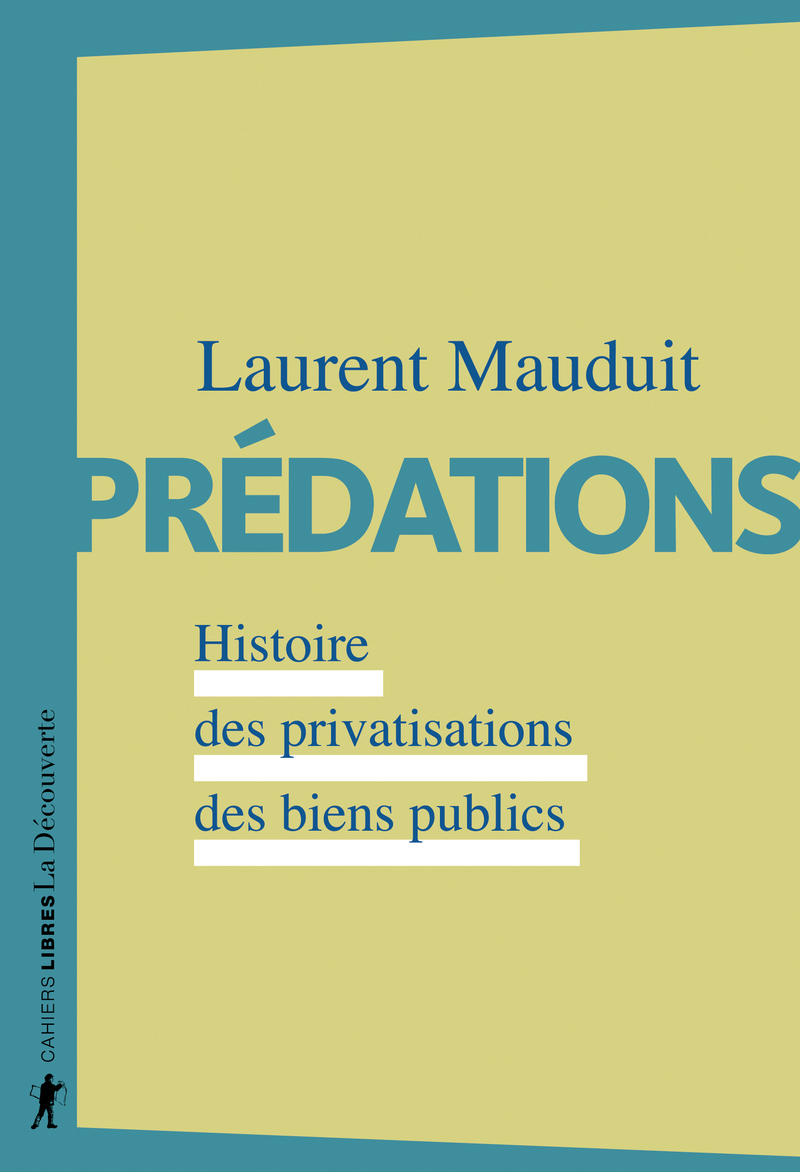
Quand tout sera privé, nous serons privés de tout ! Ce slogan, vu dans les manifestations contre la réforme des retraites ou en défense de l'hôpital public, à l'hiver 2019-2020, est le révélateur d'une prise de conscience collective : alors que les controverses autour des privatisations n'ont longtemps intéressé que des cercles restreints, désormais des mobilisations citoyennes nombreuses s'opposent à ces opérations de prédation, considérant qu'il serait irresponsable d'abandonner des biens publics aux logiques concurrentielles.
Depuis 1986, la France est frappée par les privatisations. Avec le temps, le séisme a pris de l'ampleur et, après les banques, l'industrie et la finance, de nombreux secteurs stratégiques et services publics sont cédés aux appétits privés (aéroports, autoroutes, EDF) et d'autres sont directement menacés (Sécurité sociale, hôpital public, université, La Poste, SNCF). Le modèle français est démoli par pans entiers au profit d'une marchandisation généralisée.
Le nouveau capitalisme, plus tyrannique que le précédent, ne connaît pas de bornes, et ce livre apporte de nombreuses révélations sur l'affairisme qui a constamment accompagné ces cessions. Toutefois l'analyse de ce processus montre que toutes les grandes vagues de nationalisations du xxe siècle ont débouché sur des échecs. C'est pourquoi il invite à former un nouvel avenir loin du capitalisme (comme du communisme) d'État : celui des communs.

Juan Carlos besteeg op 22 november 1975 de troon dankzij de steun van de fascistische dictator Franco, die een terreurbewind voerde.
De republikeinse stroming in Spanje bleef steeds sterk en de talloze massagraven houden de druk op de ketel. De Catalaanse afscheiding doet daar nog een schep bovenop.
Juan Carlos Alfonso Víctor María de Borbón y Borbón-Dos Sicilias (Rome, 5 januari 1938) was van 22 november 1975 tot en met 19 juni 2014 koning van Spanje als Juan Carlos I. Hij is de zoon van Juan de Borbón, graaf van Barcelona, en Maria de las Mercedes van Bourbon-Sicilië, achterkleindochter van Ferdinand II der Beide Siciliën. De Spaanse koning Alfons XIII is zijn grootvader. Op 2 juni 2014 kondigde de koning aan te zullen aftreden. Op 19 juni 2014 werd hij opgevolgd door zijn oudste zoon en derde kind Felipe. Na zijn aftreden behielden hij en zijn vrouw de titels van koning en koningin.
voor meer info verwijzen wij naar het boek van José Luis DE VILALLONGA
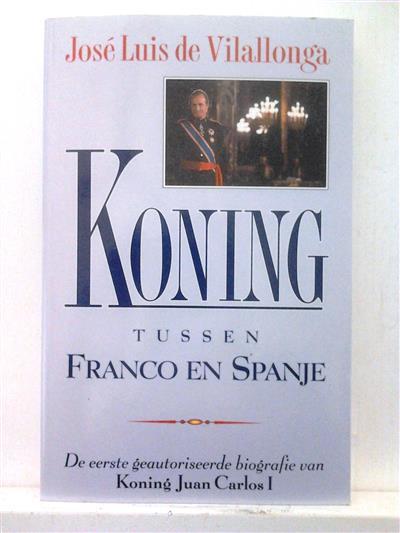

'We gaan het personeel vragen om 15 procent loon in te leveren. Om onze concurrentiepositie veilig te stellen. Enfin, u kent dat verhaal al. Tegelijk kondigen we aan dat er dit jaar geen dividenduitkering zal zijn. U moet dit jaar dus een inspanning doen. Voor de volgende jaren zijn de winstvooruitzichten goed tot zeer goed en de loonmatiging zal daarbij helpen want in het overleg met de vakbonden gaan we vanaf volgend jaar slechts met mondjesmaat - of helemaal niet - loonsverhogingen toestaan. Het zal jaren duren eer we weer het huidige loonpeil bereiken. Dat komt dan weer de dividenduitkering ten goede. De coronacrisis wordt alzo een uitgelezen kans om terug greep te krijgen op het loonoverleg. Bovendien blijft de delokalisatie van onze industriële tak naar Polen op de agenda staan.
De voorzitter zal u dan ook vragen om binnen enkele weken de uitgestippelde 'policy' goed te keuren tijdens de algemene vergadering. Uiteraard zullen hierover geen publieke verklaringen worden afgelegd.
Zijn er nog vragen ?'

Het pleidooi is OK maar komt rijkelijk laat.
En dan nog: wie steunt het ?
In 2015 hadden wij hiervoor reeds gepleit in een Open Brief aan de hoofdredactie van De Standaard





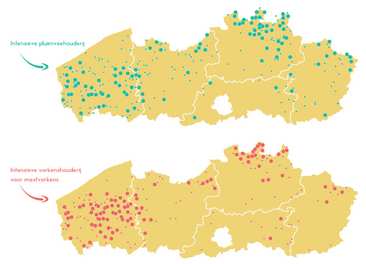



In Terzake reageert Conner Rousseau (voorzitter SPA) opvallend lauw op het voorstel van De Grauwe. Onbegrijpelijk, want wat De Grauwe voorstelt is nu net wat de socialisten met vuur zouden moeten verdedigen. Voor wij rijdt Rousseau eigenlijk ? De zoveelste zoetwatersocialist ?

Maar er is meer. Alhoewel het een prominent nieuwsitem was in het VRT-Journaal, brengt De Standaard hoegenaamd geen nieuws daarover.
Christian Leysen zetelt sinds de laatste verkiezingen voor Open-VLD in het parlement. Hij is de broer van Thomas Leysen, de 'grand patron' van de Standaardgroep. Ligt daar de knoop? Dat zou niet zo best zijn voor de reputatie van de Standaard-redactie.

Geen idee waar die man eigenlijk wél aan denkt.

Vandaag staat datzelfde bedrijf in de rij om 400 miljoen euro staatssteun binnen te rijven.
Want die 2 miljard van vorig jaar zijn natuurlijk gebruikt om boterhammen met choco te besmeren.

Welke garantie krijgt de Belgische staat en lopen we niet het risico dat Brussels Airlines toch de boeken neerlegt na de storting van de gevraagde 390.000.000 euro ?
Een en ander illustreert de door neoliberalen gewilde zwakheid van de Staat: een melkkoe.

Wat met bedrijven die banden hebben met fiscale paradijzen of die aan tax optimisation doen ?
Stevenen we af op het oude verhaal: 'Privatisering van de winsten en collectivisering van de verliezen ?' Wanneer zullen we deze perfide neoliberale logica vaarwel zeggen ?

De Standaard brengt het grootste deel van het verhaal maar in het VRT-Journaal slaagt men erin de naam van Beke niet te vernoemen.
Na de afloop van de coronacrisis (COVID-19) zullen er toch vragen moeten gesteld worden naar de competenties van Beke én naar de beschermingsoperaties van de media.

Hoeveel deze sinterklaas-politiek uiteindelijk gaat kosten, kan niemand zeggen. Maar het staat vast dat woonzorgcentra geen liefdadigheidscentra zijn, vaak zijn het bedrijven, gericht op winst. Dat merk je aan de maandelijkse facturen.
Vele oudere mensen blijven NOODGEDWONGEN in hun eigen huis of in een huurappartement wonen omdat ze die gepeperde facturen niet kunnen betalen van hun karig pensioen. Over die ouderen wordt helemaal niet bericht.

Het lijkt ons een goed idee om in ruil voor die steun de staat als waarborg aandelen te laten verwerven in deze bedrijven. Voor wat hoort wat.
In zo'n systeem kunnen we de werkgelegenheid laten primeren boven de rentabiliteitseisen van het kapitaal. Want de staat kan ook in rekening brengen wat werkloosheidsvergoedingen zouden kosten bij een faillissement van het bedrijf.





De testen komen te laat. De acties die moeten volgen op de tests zijn niet uitgetekend.
De ziekenhuizen sturen nu op eigen initiatief verpleegkundigen naar de woonzorgcentra.
De verzorgers moeten het doen met onvoldoende beschermend materiaal en worden zelf ziek.
Karine Moykens mag nu als leider van de taskforce de kastanjes uit het vuur halen en zo de incompetentie van Beke maskeren. Maar Moykens wordt aangesteld tot kapitein van een zinkend schip.
Onze harde conclusie: dump Beke vooraleer hij nog meer schade kan aanrichten.

Zelfs Marc Van Ranst had geen weet van de fout in de statistieken, zegt hij in 'De Afspraak' (7/4).
Sp.a-voorzitter Conner Rousseau twitterde: “Nu blijkt dat Wouter Beke cijfers uit rusthuizen niet meedeelde aan federaal. 241 in 4 dagen? Hoeveel overlijdens heeft hij onder de mat geveegd? Hallucinant.” Het bericht werd nadien terug verwijderd en aangepast.
Beke blunderde in december ook al met zijn lineaire besparing in de welzijnssector, die zelfs de werking van de Zelfmoordlijn aantastte.
Hoe lang dulden we Beke's incompetentie nog ?
Door de gang van zaken moet Sciensano zijn statistiek aanpassen. Ook de WHO zal dat moeten doen. Het imago van België wordt hierdoor geschaad. De illusie dat we het beter doen dan andere landen is vernietigd. Inderdaad hallucinant !

2. De VRT-ploeg laat de maskers onderzoeken door het Antwerpse instituut voor productontwikkeling. (1/4)
3. Uit de test van het instituut blijkt dat de maskers hoegenaamd geen bescherming bieden. (1/4)
4. VRT legt dit resultaat voor aan minister De Backer (1/4) maar die zegt dat het onderzochte lot wellicht een uitzondering is; niets aan de hand dus.
5. In De Standaard van 2 april 2020 is over deze feiten niets terug te vinden.

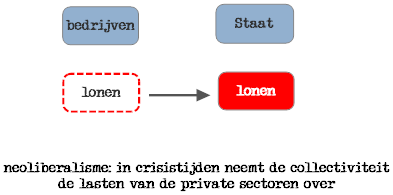



Zo koop je 'vergeet-tijd' of vergetelheid.

Noot LT: en ook die moet de overheid dan betalen ?

Het betekent ook het failliet van het neoliberalisme want de Staat moet nu iedereen te hulp snellen en begrotingstekorten worden weggelachen.


 Wat vanmorgen voor De Standaard voorpaginanieuws was ('TEKORT AAN MONDMASKERS HAD VERMEDEN KUNNEN WORDEN - Flater De Block heeft zware gevolgen') komt de gehele dag niet aan bod in de berichtgeving van de VRT.
Wat vanmorgen voor De Standaard voorpaginanieuws was ('TEKORT AAN MONDMASKERS HAD VERMEDEN KUNNEN WORDEN - Flater De Block heeft zware gevolgen') komt de gehele dag niet aan bod in de berichtgeving van de VRT.Wat gisteren een MAJEUR probleem was voor de hospitalen en de huisdokters - een nakende stockbreuk van mondmaskers - bestaat vandaag blijkbaar niet meer. Maar we vernemen ook niets over een mega-levering van mondmaskers.


Koens Geens (CD&V), vicepremier en minister van Justitie en Europese Zaken
Alexander De Croo (Open Vld), vicepremier en minister van Financiën en Ontwikkelingssamenwerking
David Clarinval (MR), vicepremier en minister van Begroting en Ambtenarenzaken.
Pieter De Crem (CD&V), minister van Veiligheid en Binnenlandse Zaken
Maggie De Block (Open Vld), minister van Sociale Zaken en Volksgezondheid en van Asiel en Migratie
Daniel Bacquelaine (MR), minister van Pensioenen
Marie Christine Marghem (MR), minister van Energie
François Bellot (MR), minister van Mobiliteit
Daniel Ducarme (MR), minister van Middenstand en Landbouw
Philippe De Backer (Open Vld), minister van Digitale Agenda, Telecommunicatie en Post
Nathalie Muylle (CD&V), minister van Werk, Economie en Consumenten
Philippe Goffin (MR), minister van Buitenlandse Zaken en van Defensie.

 Is de flater van een minister die in een kritieke periode mondmaskers bestelt via een bevriende vertaler-tolk geen nieuws?
Is de flater van een minister die in een kritieke periode mondmaskers bestelt via een bevriende vertaler-tolk geen nieuws? 
De vraag is niet of de minister ontslag neemt, wel wanneer ze dat doet.


 De uitzending van 'Vandaag' (VRT Eén) was volledig gewijd aan het corona-virus.
De uitzending van 'Vandaag' (VRT Eén) was volledig gewijd aan het corona-virus.Maar wat blijkt: de persconferentie, die de federale premier samen met de voorzitters van de gewestregeringen hield, moest wijken voor het praatprogramma. Er werden enkele ogenblikken uit de persconferentie gelicht en daarna mochten Danira Boukhris en Wim De Vilder het verder uitleggen. Want wat zij te vertellen hebben is natuurlijk belangrijker dan de boodschap van de premier. Wat een journalistieke blunder en wat een arrogantie ! Ook de regie gaat hier in de fout.
Een zichzelf respecterend medium toont zo'n persconferentie INTEGRAAL met voice over van een tolk.
Omdat we dit een onaanvaardbare manier van berichtgeving vinden, legden wij klacht neer bij de Nieuwsombudsman van de VRT, Tim Pauwels. De klacht werd geregistreerd onder contactnummer 00134914.


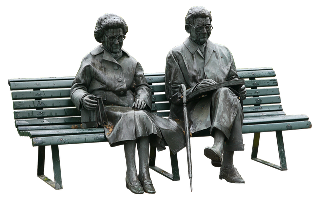

Als ik met mijn firma geen prestaties lever, mag ik toch ook geen factuur sturen.

'Zullen we de dienstwagen voorrijden, mevrouw de gouverneur?'
'Hoe lust u uw foie gras, mevrouw de gouverneur?'

 'Audit Vlaanderen' start een audit naar mogelijke malversaties. Of het om een zgn. forensische audit gaat is niet meteen duidelijk. In voorkomend geval wordt het een onderzoek naar fraude. Dan blijft de vraag in welke fase het parket wordt ingeschakeld.
'Audit Vlaanderen' start een audit naar mogelijke malversaties. Of het om een zgn. forensische audit gaat is niet meteen duidelijk. In voorkomend geval wordt het een onderzoek naar fraude. Dan blijft de vraag in welke fase het parket wordt ingeschakeld. De kwestie van contracten met productiehuizen roept herinneringen op aan de start van VTM in 1989. Toen werd DG Carlo Gepts aan de deur gezet omdat hij meer controle wilde op de contracten met de private TV-productiehuizen. De raad van bestuur van VTM koos toen voor het duo Depraetere-Verdrengh.
zie reactie van Gepts op zijn ontslag

 Enkele onderwerpen worden uitgemolken en nieuws uit het buitenland komt nauwelijks aan bod.
Enkele onderwerpen worden uitgemolken en nieuws uit het buitenland komt nauwelijks aan bod.In Terzake en De Afspraak worden diezelfde onderwerpen dan nog eens herkauwd.
De VRT moet beter kunnen.







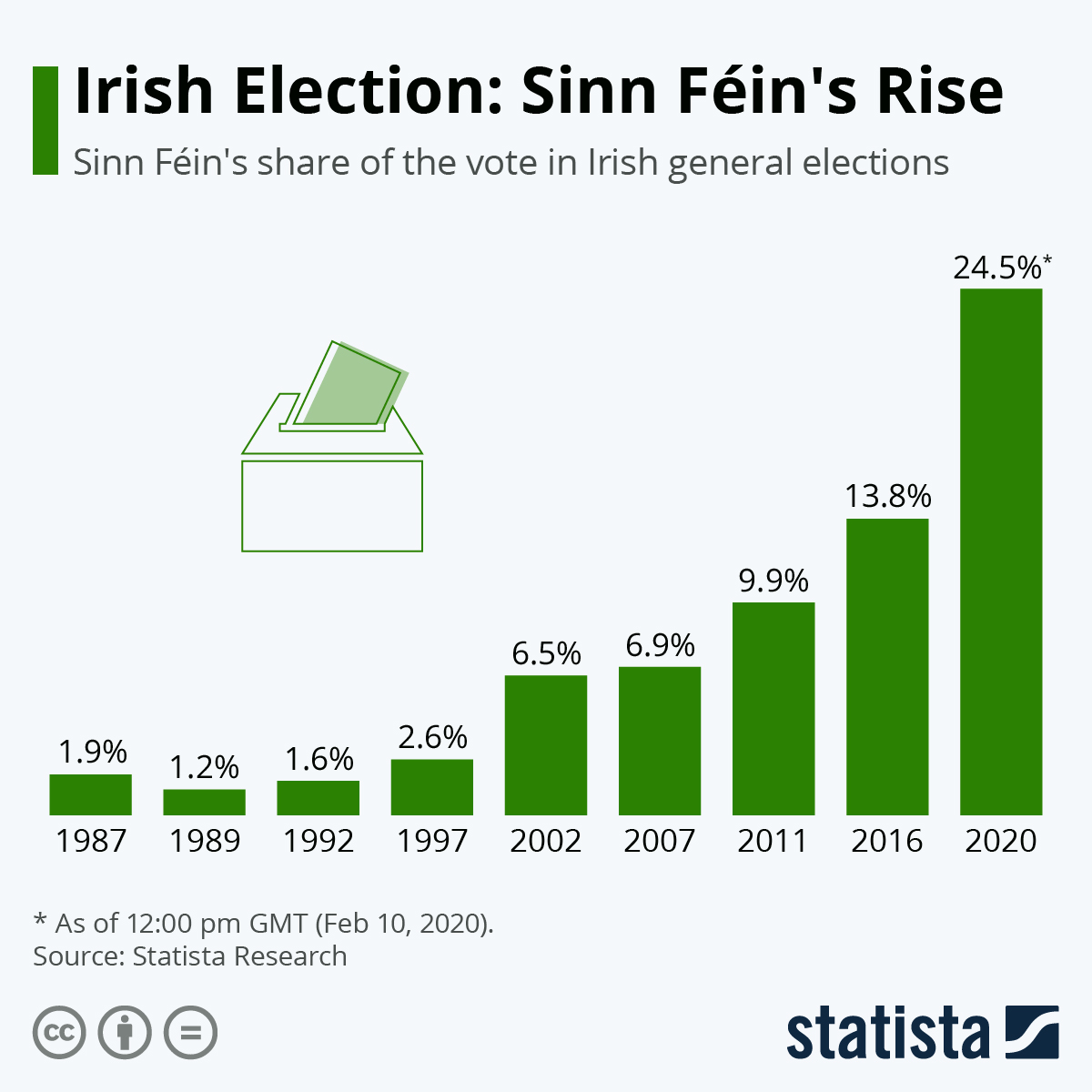


De nouveau, une grosse entreprise qui fait un maximum de bénéfices sacrifie l’emploi pour accroitre sa rentabilité. Inacceptable ! Le PS est aux côtés de tous les travailleurs touchés et de leur famille.
Pour le PS, il faut sortir définitivement de cette logique de la rentabilité maximale qui sacrifie les travailleurs. Le PS a déposé un texte à la Chambre pour interdire les licenciements boursiers. Le PS demande que ce texte soit traité dès la semaine prochaine au Parlement.
Voici le lien vers le texte : https://www.lachambre.be/FLWB/PDF/55/0729/55K0729001.pdf
Ce jeudi en séance plénière, Sophie Thémont, députée socialiste, interrogera la Première ministre à propos de ce licenciement.
En hier het manifest van de PTB

GSK, la multinationale n°1 mondial de l’industrie pharmaceutique, vient d’annoncer la perte de plus de 900 emplois en Belgique (720 licenciements et 215 non renouvellements). Malgré les plus de 500 millions de bénéfices réalisés en Belgique et les 3,6 milliards réalisés au niveau mondial. Malgré une loi sur mesure qui lui permet de payer seulement 0,1% d’impôt. Le PTB réintroduira sa proposition de loi pour interdire aux multinationales qui font des bénéfices de licencier.
« C’est indécent, réagit Raoul Hedebouw, porte-parole du PTB et député fédéral. Faire autant de profits et mettre autant de familles sur le carreau. il faut mettre un terme à ces politiques qui donnent tous les droits aux multinationales et qui réduisent des êtres humains, celles et ceux qui ont créé les richesses, à des variables d’ajustement budgétaire. Toute ma solidarité aux travailleurs. »
En 2018, sur un bénéfice de 516 millions d’euros, GSK a payé 555 000 euros d’impôts en Belgique. Cela correspond à un taux d’imposition réelle de 0,1 %. La raison principale pour ce taux d’imposition ridiculement bas? Une niche fiscale, la « déduction pour revenus de brevets », grâce à laquelle 80 % des revenus issus des brevets sont exonérés d'impôts. Cette dérogation fiscale est non seulement très coûteuse et prive l’État d’entrées importantes, mais, en plus, la mesure s’avère totalement inefficace. Elle n’incite pas les entreprises à investir elles-mêmes dans la recherche et le développement. Au contraire : elles y investissent proportionnellement de moins en moins. Cela ne les incite pas non plus à préserver l’emploi.
Détail révoltant: c’est GSK elle-même qui a tenu la plume lors de la rédaction du projet de loi introduisant la niche fiscale en 2007. C’est Didier Reynders, alors ministre des Finances, qui fait voter la loi mais on apprendra que le véritable auteur de la loi est le bureau d’avocats Linklaters, travaillant pour … GlaxoSmithKline (GSK).
Des faits qui font bondir Raoul Hedebouw : « Il faut arrêter que les multinationales secroient tout permis. Nous réintroduirons notre proposition de loi visant à pouvoir interdire les licenciements des multinationales qui font des profits ».

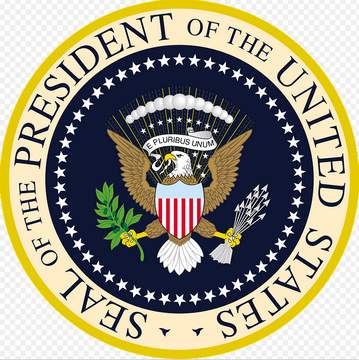





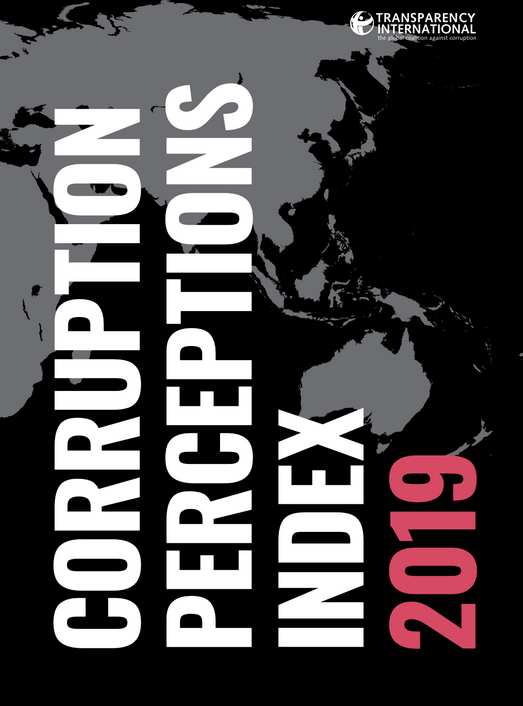 The Corruption Perceptions Index 2019 reveals a staggering number of countries are showing little to no improvement in tackling corruption. Our analysis also suggests that reducing big money in politics and promoting inclusive political decision-making are essential to curb corruption. The CPI scores 180 countries and territories by their perceived levels of public sector corruption, according to experts and business people.
The Corruption Perceptions Index 2019 reveals a staggering number of countries are showing little to no improvement in tackling corruption. Our analysis also suggests that reducing big money in politics and promoting inclusive political decision-making are essential to curb corruption. The CPI scores 180 countries and territories by their perceived levels of public sector corruption, according to experts and business people.In the last year, anti-corruption movements across the globe gained momentum as millions of people joined together to speak out against corruption in their governments. Protests from Latin America, North Africa and Eastern Europe to the Middle East and Central Asia made headlines as citizens marched in Santiago, Prague, Beirut, and a host of other cities to voice their frustrations in the streets. From fraud that occurs at the highest levels of government to petty bribery that blocks access to basic public services like health care and education, citizens are fed up with corrupt leaders and institutions. This frustration fuels a growing lack of trust in government and further erodes public confidence in political leaders, elected officials and democracy. The current state of corruption speaks to a need for greater political integrity in many countries. To have any chance of curbing corruption, governments must strengthen checks and balances, limit the influence of big money in politics and ensure broad input in political decision-making. Public policies and resources should not be determined by economic power or political influence, but by fair consultation and impartial budget allocation.



Het vredesakkoord maakt meteen de weg vrij voor het gemeenschappelijke bezoek van paus Franciscus en de anglicaanse aartsbisschop van Canterbury Justin Welby. De ondertekenaars vermelden in hun Akkoord van Rome overigens nadrukkelijk dat zij gemotiveerd zijn door de niet-aflatende spirituele en morele oproep voor vrede, verzoening en broederschap door paus Franciscus, aartsbisschop Welby van Canterbury en andere kerkleiders. Volgens het hoofd van de Zuid-Soedanese regeringsdelegatie, Barnaba Marial Benjamin, worden voor het eerst de grondoorzaken van het burgerconflict in Zuid-Soedan aangepakt, mee ook dankzij de positieve en vrije omgeving die de Sint-Egidiusgemeenschap heeft geboden. Daardoor konden de betrokkenen zonder druk of vooroordelen een reeks fundamentele kwesties aanpakken. Het staakt-het-vuren is nodig om het vertrouwen en de hoop in ons volk herop te bouwen. We volgden de uitnodiging van paus Franciscus om de verschillen opzij te zetten en te zoeken naar wat verenigt, de methode die ook de gemeenschap van Sant'Egidio inspireerde.
Volgens Pa'gan Amum Okiech, woordvoerder van Ssoma, gaat de eer voor de overeenkomst naar paus Franciscus. Dit gebaar van het kussen van de voeten ter gelegenheid van ons bezoek aan het Vaticaan (afgelopen april) inspireerde ons en zijn oproep tot voorspoed en broederschap voor het nieuwe jaar is een droom die uitkomt. En hij voegde eraan toe: Het is tijd is om de vijandelijkheden te beëindigen en van onze fouten te leren. Dit proces zou iedereen moeten omvatten.
Vermoed wordt dat de datum van het bezoek van paus Franciscus en aartsbisschop Justin Welby aan Zuid-Soedan op het einde van februari door het Vaticaan wordt bekendgemaakt.
Bron: I.Media/Vaticannews.va/Sant'Egidio

Michail Misjoestin was tot nog toe hoofd van de belastingdienst. Hij kent dus de raderen van de macht en weet wie wat (te verbergen) heeft.

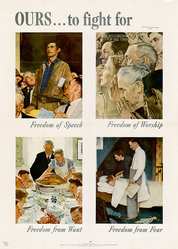



Dat betekent extra zitpenningen en een gepeperde factuur van Accord Group.
Beseffen die Hoge Heren wel dat ze met ONS geld bezig zijn ?

zie ons bericht van 2 september 2015


Maar meneer Beke krijgt het woord 'fout' niet over zijn lippen.
Zijn redenering - u gelooft het misschien niet - luidt nu: ‘We willen nu eerst een kritische analyse maken over wat werkt en wat niet’.
Bij goed beleid maak je die analyse vooraf, zou men denken.
Toen Beke nog voorzitter was van de CD&V bleven de gevolgen van zijn miskleunen beperkt tot de partij, nu lijdt Vlaanderen eronder.






U las het goed: het gaat om één komma één procent loonsverhoging op lonen die tot de laagste behoren. Per 10 euro gaat het dus om 11 cent. Er is geen schaamte meer in dit land.
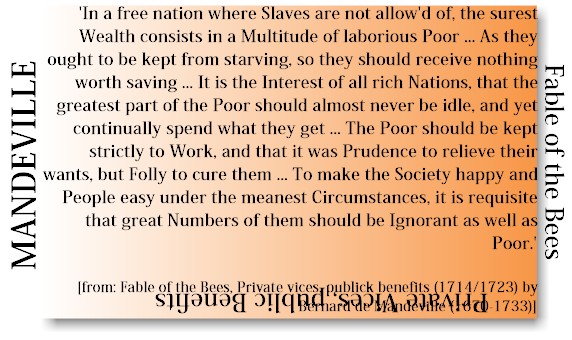


Kritiek op Israël wordt weer eens verward met antisemitisme.
En waar blijft het gezond verstand in dezer?
Hieronder een voorstelling van Herremans door Pax Christi:
Brigitte Herremans
Midden-Oostenexpert Brigitte Herremans wordt door media, academische wereld en middenveld vaak geconsulteerd voor haar genuanceerde duiding bij de conflicten in die regio. Daarmee is al één aspect belicht waarvoor zij de titel ‘Ambassadeur voor de Vrede’ ontvangt: haar manier van kijken en spreken getuigt van een verlangen om de conflicten in het Midden-Oosten te doorgronden en zo eerlijk mogelijk te duiden. Dankzij diepgaande studie vormt Herremans zich een evenwichtig beeld van wat er zich afspeelt. Respect voor het internationaal recht fungeert daarbij als permanent richtsnoer.
Haar passie voor de rijke geschiedenis van het Midden-Oosten, voor de al even rijke cultuur en – niet het minst – voor de mensen die er wonen, leidde haar naar studies Oosterse Talen en Culturen (Arabisch en Bijbels Hebreeuws) en Internationale Politiek. Tijdens haar studies reisde ze vaak naar het Midden-Oosten. Ze studeerde tevens in Jeruzalem en in Caïro. Ze verstaat de kunst om op een innemende manier relaties aan te knopen, steeds ingetogen en luisterbereid. In haar jobs ontwikkelde zij deze houding en visie verder, wat maakte dat zij goede relaties uitbouwde met politici en journalisten, met beleidsmensen, mensenrechtengroepen en activisten in de betreffende regio, maar dat zij ook een graag geziene begeleidster was van talloze vredestochten en missies naar Israël-Palestina. Haar kritische houding ten opzichte van de politieke gang van zaken in Israël en het Midden-Oosten wordt gevoed door een grote liefde voor de regio. De weigering – in 2016 – van toegang tot Israël voor 10 jaar is dan ook een bijzonder spijtige zaak. Dit gebeurde vlak voor de publicatie van het boek dat ze samen met Ludo Abicht schreef: Israël & Palestina. De kaarten op tafel. Ze schreef recent De mens in opstand. Hoe verhalen de strijd voor mensenrechten voeden. In 2010 ontving Herremans de titel van ‘Vredesvrouw’, overhandigd door de Vrouwenraad.
Brigitte Herremans was tussen 2002 en 2017 beleidsmedewerker rond het Midden-Oosten bij Pax Christi Vlaanderen en Broederlijk Delen. In 2017 en 2018 werkte zij ook als beleidsmedewerker Midden-Oosten en Noord-Afrika bij BOZAR, waar ze verbonden blijft aan de leerstoel Mahmoud Darwish. Sinds september 2019 werkt zij als vorser aan het Mensenrechtencentrum van de Universiteit Gent, waar ze onderzoek verricht naar de rol van kunst in het conflict in Syrië.
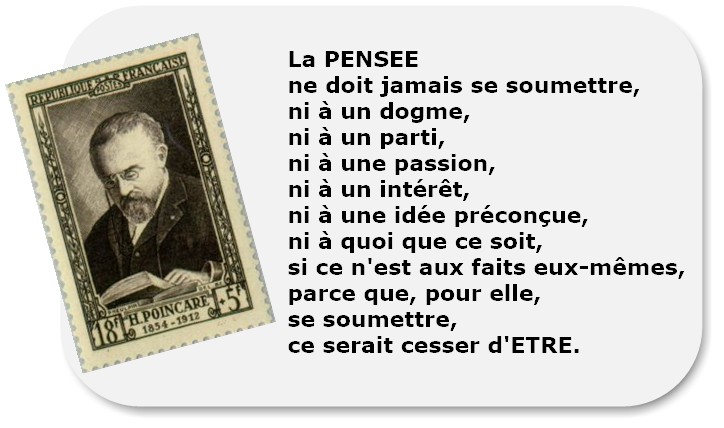

President Bouterse is veroordeeld tot twintig jaar cel, twee medeverdachten werden vrijgesproken.
Bouterse is niet in het land. Hij is op staatsbezoek in China.

Blijkbaar snapt de barones de kern van de zaak helemaal niet. We mogen van geluk spreken dat zij geen deel uitmaakte van het onderzoeksteam.
Je mag er gif op nemen dat Mia een kwade telefoon van de graaf heeft gekregen.
Weer opvallend: Dedecker is een geducht debater die zijn dossier kent.
Onze conclusie bij dit debat: de machtigen (i.c. het koningshuis) slagen er telkens in hun lusten te laten betalen door het volk, ook als dat manifest onwettelijk is.
herbekijk de uitzending

De Koninklijke Schenking vindt zijn oorsprong bij Leopold II en diens plundering van Congo, in samenwerking met de koloniale holdings.
Historiek:
Naar aanleiding van zijn vijfenzestigste verjaardag besloot koning Leopold II om de onroerende goederen die hij de voorbije jaren had verworven en die bijdroegen tot het natuurschoon, aan het land te schenken. Hij liet dat op 9 april 1900 per brief weten aan de regering.
Hij bedong dat een aantal van die goederen nooit mocht worden verkocht. Sommige moesten hun oorspronkelijke functie en uitzicht bewaren. Een deel moest ter beschikking blijven van de troonopvolgers.
Met een brief van 15 november 1900 werden aan de inventaris van 9 april nog enkele goederen toegevoegd.
De Staat aanvaardde de schenking bij wet van 31 december 1903 (Belgisch Staatsblad van 1 januari 1904).
Daarnaast vinden sommige onroerende goederen van het patrimonium hun oorsprong bij het Verdrag tot Afstand van de Onafhankelijke Staat Congo van 28 november 1907 en de Bijkomende Akte aan dit verdrag van 5 maart 1908, goedgekeurd bij wetten van 18 oktober 1908 (Belgisch Staatsblad van 19 oktober 1908).
In het begin werd het beheer van al die goederen verzekerd door de Dienst der Domeinen van het Ministerie van Financiën.
Na verloop van tijd werd de Koninklijke Schenking opgericht als een zelfstandige openbare instelling van de Staat en onder het toezicht van de minister van Financiën (koninklijk besluit van 9 april 1930 - Belgisch Staatsblad van 29 mei 1930). De Koninklijke Schenking bezit een eigen rechtspersoonlijkheid en een volledige financiële autonomie, dat wil zeggen dat zij zelfbedruipend moet zijn, zonder lasten voor de belastingplichtige.
Nu blijkt uit onderzoek van De Tijd, Knack, Apache en VRT dat de belastingbetaler toch opdraait voor onderhouds- en renovatiekosten. Dat gebeurt via speciale constructies: huurcontracten waarbij de overheid als huurder ook renovatiekosten op zich neemt.
Volgens graaf (sinds 2014) Paul Buysse is er geen vuiltje aan de lucht en werden er ook nooit vragen gesteld naar het reilen en zeilen van de Koninklijke Schenking.
Een eenvoudig onderzoekje via Google brengt al aan het licht dat de graaf de waarheid geweld aandoet (het eufemisme is gewild): er zijn wetsvoorstellen (vanaf 2009), vragen in het kader van openbaarheid van bestuur, boeken, etc. geweest, die net aandrongen op meer transparantie.
zie het artikel van Herman Matthijs in 2007
zie ook de weigering van de Koninklijke Schenking om documenten mede te delen (2017-2018)
amendementen van Vuye en Wouters op de uitgavenbegroting 2017
zie ook een wetsvoorstel van 2015 erop gericht meer transparantie over de Koninklijke Schenking
zie ook wetsvoorstel van 2009 van Pol Van den Driessche
zie ook het boek van Vuye en Wouters (2016)
De top leidt een luizenleventje op kosten van de gemeenschap. In dit dossier moet ook maar eens onderzocht worden of op de gronden en gebouwen onroerende voorheffing moet betaald worden en of de beheerders zitpenningen ontvingen.
Welke rol speelde de Patrimoniumdocumentatie (het vroegere Kadaster) hierin?
Bovendien vragen we ons af of dit steekvlamjournalistiek zal zijn.
Zoja, dan heeft de belastingbetaler via de dotatie aan de VRT ook nog eens onnuttige - want zonder gevolgen - onderzoeksjournalistiek gefinancierd.
De NVA vraagt een Parlementaire Onderzoekscommissie. Terecht, zo menen wij.
Huidige samenstelling van de beheerraad:
Voorzitter: Graaf Paul Buysse
Afgevaardigde-beheerder: Ph. Lens, adviseur bij de Algemene Administratie van de Patrimoniumdocumentatie (FOD Financiën)
Beheerders :
A. d’Aspremont Lynden, ere-professor aan de universiteit Lille 3
Noël De Bruyne, intendant van de Civiele Lijst
J. Hennes, vleugeladjudant van de koning
H. D’Hondt, voorzitter van het Directiecomité van de FOD Financiën, administratief adviseur
M. Evenepoel, administrateur-generaal van het Agentschap voor Natuur en Bos van de Vlaamse overheid, technisch adviseur
Geert Noels, chief economist en vennoot van de nv Econopolis
Vincent Pardoen, vertegenwoordiger van Z.M. Koning Albert II
Br. Quévy, directeur-generaal van het Directoriaat-generaal Landbouw, Natuurlijke hulpbronnen en Leefmilieu van de Waalse overheidsdienst, technisch adviseur
Pierre Warnauts, ere-protocolchef van het Huis van de Koning
Secretaris, zonder medebeslissende stem:
B. Bekaert, attaché bij de Algemene Administratie van de Patrimoniumdocumentatie
Administratieve zetel:
Brederodestraat 14
1000 Brussel



De arme kerel heeft bijscholing nodig. Vermeersch liet vaak een ander geluid horen dan wat de orkestleiders wilden horen. Dat is niet hetzelfde als de controverse zoeken. Dat is het algemene brave discours kritisch bijsturen.
Heeft Dewulf misschien naast de leerstoel gegrepen? Die ging naar Maarten Boudry. Zowel Dewulf als Boudry bewijzen (laatstgenoemde in De Afspraak in een reactie op het optreden van Greta Thunberg in de VN) overigens dat er voorlopig geen waardig opvolger voorhanden is voor Etienne Vermeersch.
Boudry hekelde de toon van de uitspraken van Thunberg en noemde haar optreden daarom contra-productief. Dat is een veelgebruikte tactiek om de boodschap onder te sneeuwen. Bovendien is Thunberg nog maar een kind, zo stelde hij samen met rector Van Goethem vast. Ook al een goedkoop argument om niet naar de boodschap te moeten luisteren.
En de boodschap is deze:
"My message is that we'll be watching you.
"This is all wrong. I shouldn't be up here. I should be back in school on the other side of the ocean. Yet you all come to us young people for hope. How dare you!
"You have stolen my dreams and my childhood with your empty words. And yet I'm one of the lucky ones. People are suffering. People are dying. Entire ecosystems are collapsing. We are in the beginning of a mass extinction, and all you can talk about is money and fairy tales of eternal economic growth. How dare you!
"For more than 30 years, the science has been crystal clear. How dare you continue to look away and come here saying that you're doing enough, when the politics and solutions needed are still nowhere in sight.
"You say you hear us and that you understand the urgency. But no matter how sad and angry I am, I do not want to believe that. Because if you really understood the situation and still kept on failing to act, then you would be evil. And that I refuse to believe.
"The popular idea of cutting our emissions in half in 10 years only gives us a 50% chance of staying below 1.5 degrees [Celsius], and the risk of setting off irreversible chain reactions beyond human control.
"Fifty percent may be acceptable to you. But those numbers do not include tipping points, most feedback loops, additional warming hidden by toxic air pollution or the aspects of equity and climate justice. They also rely on my generation sucking hundreds of billions of tons of your CO2 out of the air with technologies that barely exist.
"So a 50% risk is simply not acceptable to us — we who have to live with the consequences.
"To have a 67% chance of staying below a 1.5 degrees global temperature rise – the best odds given by the [Intergovernmental Panel on Climate Change] – the world had 420 gigatons of CO2 left to emit back on Jan. 1st, 2018. Today that figure is already down to less than 350 gigatons.
"How dare you pretend that this can be solved with just 'business as usual' and some technical solutions? With today's emissions levels, that remaining CO2 budget will be entirely gone within less than 8 1/2 years.
"There will not be any solutions or plans presented in line with these figures here today, because these numbers are too uncomfortable. And you are still not mature enough to tell it like it is.
"You are failing us. But the young people are starting to understand your betrayal. The eyes of all future generations are upon you. And if you choose to fail us, I say: We will never forgive you.
"We will not let you get away with this. Right here, right now is where we draw the line. The world is waking up. And change is coming, whether you like it or not.
"Thank you."


821K abonnees
Former Botswana president, Ian Khama has been invited by the Dalai Lama to attend a ceremony marking his 60th year of exile in India. He's travelled to India via South Africa.
In an interview with SABC News anchor Desiree Chauke, Khama thanked the South African government for affording him safe passage on this trip to India.
The conversation also covers a range of issues, including amongst others, Khama's relationship with his successor Dr. Mokgweetsi Masisi, the raid on his accountant's office, his thoughts on Zimbabwe and China, and the importance of his trip to India.

 Macron beroept zich dus op procedurefouten om het rapport in de onderste lade weg te stoppen.
Macron beroept zich dus op procedurefouten om het rapport in de onderste lade weg te stoppen.Een discutabele en gevaarlijke strategie wanneer het Elysée zich aan de controle van het parlement gaat onttrekken. Bovendien is de interpretatie van het Elysée lomp ongrondwettelijk (cfr. artikel 24: Le Parlement contrôle l'action du gouvernement).
In ons buurland groeit iets met het parfum van dictatuur: het macronisme.


 Nu pogen de overheid en de 'meegaande media' de beweging van de Gilets Jaunes in het antisemitische verdomhoekje te drukken en de kerneisen van de bewegingen te versmachten: RIC, koopkracht en eerlijke belastingen.
Nu pogen de overheid en de 'meegaande media' de beweging van de Gilets Jaunes in het antisemitische verdomhoekje te drukken en de kerneisen van de bewegingen te versmachten: RIC, koopkracht en eerlijke belastingen.Het procédé is bekend: licht een geïsoleerd incident uit een groter geheel en promoveer dat tot essentie.
Bliksemafleiding.
De Standaard brengt de hele komedie braafjes over in de krant van vandaag.

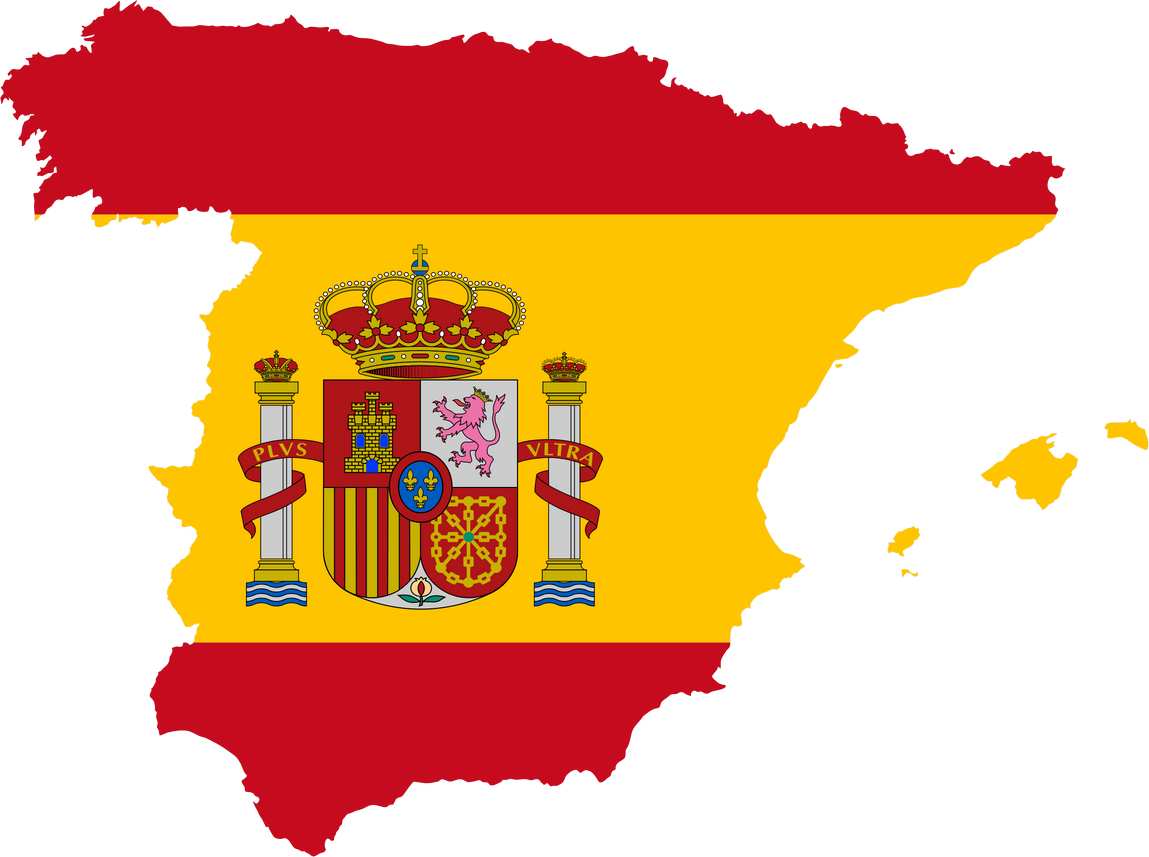
Madrid mag zich verder zorgen maken.
De Catalanen organiseerden op 1 oktober 2017 een referendum over onafhankelijkheid en riepen die op 27 oktober ook uit.
P.M. Op 26 januari was het 80 jaar geleden dat Franco's troepen Barcelona veroverden.

Leysen is 64 en zoekt een hobby.
En de Open VLD ... ? Die toont haar ware gelaat.
Of Leysen een valies met campagnegeld meebrengt, is niet bekend.
Wat wel bekend is: als de Open VLD straks in De Standaard/Het Nieuwsblad gaat adverteren, dan vloeit het geld naar Thomas & Co. Familiale communicerende vaten, weet u wel. Enfin, de redding van De Standaard 'bis' is in de maak.


1) een weliswaar verkozen president die zich na zijn verkiezing autoritair en beledigend gedraagt tegenover de zwaksten (fainéants, ...);
2) een entourage van bedenkelijk allooi (Benalla) rond de president;
3) extreem politioneel geweld tegen de volksbeweging van de Gilets Jaunes: uitgelokte confrontaties, afgerukte handen, ogen verminkt door flash balls, doden;
4) zeer zware veroordelingen van betogers via snelrecht (gevangenisstraffen en onbetaalbaar hoge boetes);
5) instrumentalisering van de 'bevriende' media (eigendom van 8 à 9 miljardairs) en justitie;
6) gebruik door de president van 'Le Grand Débat' als een verkiezingscampagne op kosten van de Staat;
7) huiszoekingen bij oppositiepartij 'France Insoumise' (L.F.I.) met schending van privacy-rechten;
8) intimiderende huiszoekingen bij oppositiemedia zoals 'Médiapart', dat de affaire Benalla uitspit en stoot op een dubieus netwerk dat tot in Rusland reikt;
9) inperking van het betogingsrecht door een 'loi anti-casseurs';
10) hervorming (lees: verzwakking) van het scholensysteem.
De Franse regering rijdt een gevaarlijk parcours. De uitgewerkte scenario's vertonen vele trekken van een regime op weg naar een dictatuur of ten minste toch naar een politiestaat.
Algemener kan men zeggen dat de stellingen van het mondiale neo-liberalisme op hun autodestructie afstevenen in Parijs en in de grote steden van Frankrijk. De grote klimaatbetogingen in andere landen kunnen zich met relatief groot gemak omvormen tot betogingen tegen het establishment en tegen de Europese technocratie. Het volstaat dat de ware oorzaken van de klimaatopwarming onthuld worden.

Tja, als je het niet meer weet ...
De betogers krijgen alvast gelijk: Our climat minister is a joke.
De CD&V heeft een groot probleem. Nog een.
Benieuwd hoe ze hier mee wegkomt.
P.S. De gehele toespraak van Schauvliege is gefilmd.
https://www.facebook.com/Lierde/videos/978446522542945/
“Een aantal natuurorganisaties hebben mij in het begin van mijn legislatuur, 3,5 jaar geleden gezegd: Wacht maar, onze wraak zal zoet zijn. Wij zullen ook betogingen doen, maar in de andere richting….Wat er de voorbije weken in scène gezet is rond klimaat en wat er allemaal gebeurt…dat is die omgekeerde beweging. Veel mensen beseffen dat niet. Ik weet wie achter heel die beweging zit, zowel de zondagse betogingen als de klimaatspijbelaars op donderdag. Men heeft mij dat ook verteld vanuit de Staatsveiligheid”.
In een tweet zei Schauvliege:
Ik heb mijn speech herbekeken en heb mij in het vuur van mijn betoog inderdaad te fors en fout uitgedrukt over de staatsveiligheid. Excuses aan wie daar aanstoot aan neemt. 56 / 11:06 PM - Feb 4, 2019
Een leugen heet voortaan: 'te fors en fout uitgedrukt'.
Excuses aan iedereen dus want de burgers van een rechtstaat kunnen het niet dulden dat een minister liegt. Dat hangt niet af van wie daar al dan niet aanstoot aan neemt. Zie uw cursus Publiek Recht bladzijde 264.
Dinsdagochtend dan: ‘Ik heb maandagavond al meteen laten weten dat ik mijn excuses aanbied, want ik heb in tegenstelling tot wat ik heb gezegd inderdaad geen rechtstreeks contact gehad met Staatsveiligheid. Ik excuseer me dan ook. Ik wil niet goedpraten wat ik heb gezegd, maar ik heb de laatste weken heel veel bagger over me heen gekregen, ook via e-mail en sms. Ik heb me daardoor laten meesleuren door een bepaalde frustratie en emotie.’
Enkele uren later klinkt het als volgt: 'Ik heb niet gelogen. Ik heb me vergaloppeerd.'
Een uur later tijdens de persconferentie: 'Ik heb mij laten meeslepen in een verbale uitschuiver. Ik heb een niet gecontroleerd gerucht voor waar aangenomen.'
Toch nog even de hete aardappel doorspelen naar een imaginaire kabinetard of een valse vriend.
Deze ex-minister is duidelijk aan rust toe. Een frisse boswandeling misschien ... ?




Klassejustitie met andere woorden.
Samen met de klassefiscaliteit een schandaal.

De Wever wordt dan mogelijk afhankelijk van de gedoogsteun van het Vlaams Belang.

 Het ruikt naar een afrekening maar Macron en zijn regering beroepen zich op de scheiding der machten. Mélenchon houdt het op intimidatie.
Het ruikt naar een afrekening maar Macron en zijn regering beroepen zich op de scheiding der machten. Mélenchon houdt het op intimidatie.Wat er ook van zij, de politieke sfeer in Frankrijk bereikt een kookpunt.

En wordt zo'n politicus niet eerder een interne lobbyist of zien wij dat verkeerd?

Ja, ik kom wel op de lijst staan, maar vrouwen de hand schudden dat is er niet bij.
Wordt het misschien: We gaan meedoen met de verkiezingen maar we gaan moeite doen om ze niet te winnen.
Wie is er nu van lotje getikt?
En dat komt allemaal van mensen die zichzelf bewieroken als goede leiders, uitstekende organisatoren, ervaren managers, goede communicatoren en nog meer fraais.




Potential Conflict Hotspots and Global Productivity Choke Points
Today, FracTracker is releasing a complete inventory of all 536 global oil refineries, along with estimates of daily capacity, CO2 emissions per year, and various products. These data have also been visualized in the map below.
Total productivity from these refineries amounts to 79,372,612 barrels per day (BPD) of oil worldwide, according to the data we were able to compile. However, based on the International Energy Agency, global production is currently around 96 million BPD, which means that our capacity estimates are more indicative of conditions between 2002 and 2003 according to BP’s World Oil Production estimates. We estimate this disparity is a result of countries’ reluctance to share individual refinery values or rates of change due to national security concerns or related strategic reasons.
These refineries are emitting roughly 260-283 billion metric tons (BMT) of CO2[1], 1.2-1.3 BMT of methane and 46-51 million metric tons of nitrous oxide (N2O) into the atmosphere each year. The latter two compounds have climate change potentials equivalent to 28.2-30.7 BMT and 14.1-15.3 BMT CO2, respectively.
66 million
Assuming the planet’s 7.6 billion people emit 4.9-5.0 metric tons per capita of CO2 per year, emissions from these 536 refineries amounts to the CO2 emissions of 52-57 million people. If you include the facilities’ methane and N2O emissions, this figure rises to 61-66 million people equivalents every year, essentially the populations of the United Kingdom or France.
BP’s data indicate that the amount of oil being refined globally is increasing by 923,000 BPD per year (See Figure 1). This increase is primarily due to improved productivity from existing refineries. For example, BP’s own Whiting, IN refinery noted a “$4-billion revamp… to boost its intake of Canadian crude oil from 85,000 bpd to 350,000 bpd.”
Potential Hotspots and Chokepoints
Across the globe, countries and companies are beginning to make bold predictions about their ability to refine oil.
Nigeria, for example, recently claimed they would be increasing oil refining capacity by 13% from 2.4 to 2.7 million BPD. Currently, however, our data indicate Nigeria is only producing a fraction of this headline number (i.e., 445,000 BPD). The country’s estimates seem to be more indicative of conditions in Nigeria in the late 1960s when oil was first discovered in the Niger Delta. Learn more.
Is investing in – and doubling down on – oil refining capacity a smart idea for Nigeria’s people and economy, however? At this point, the country’s population is 3.5 times greater than it was in the 60’s and is growing at a remarkable rate of 2.7% per year. Yet, Nigeria’s status as one of the preeminent “Petro States” has done very little for the majority of its population – The oil industry and the Niger Delta have become synonymous with increased infant mortality and rampant oil spills.
Sadly, the probability that the situation will improve in a warming – and more politically volatile – world is not very likely.
Such a dependency on oil price has been coupled to political instability in Nigeria, prompting some to question whether the discovery of oil was a cure or a curse given that the country depends on oil prices – and associated volatility – to balance its budget: Of all the Organization of Petroleum Exporting Countries (OPEC) countries, Nigeria is near the top of the list when it comes to the price of oil the country needs to balance its budget – Deutsche Bank and IMF estimate $123 per barrel as their breaking point. This is a valuation that oil has only exceeded or approached 4.4% of the time since 1987 (See Figure 2).
Former Central Bank of Nigeria Governor, Charles Soludo, once put this reliance in context:
… For too long, we have lived with borrowed robes, and I think for the next generation, for the 400 million Nigerians expected in this country by the year 2050, oil cannot be the way forward for the future.
Other regions are also at risk from the oil market’s power and volatility. In Libya, for example, the Ras Lanuf oil refinery (with a capacity of 220,000 BPD) and the country’s primary oil export terminal in Brega were the focal point of the Libyan civil war in 2011. Not coincidentally, Libya also happens to be the Petro State that needs the highest per-barrel price for oil to balance its budget (See Figure 2). Muammar Gaddafi and the opposition, National Transitional Council, jostled for control of this pivotal choke point in the Africa-to-Europe hydrocarbon supply chain.
The fact that refineries like these – and others in similarly volatile regions of the Middle East – produce an impressive 10% (7,166,900 BPD) of global demand speaks to the fragility of these Hydrocarbon Industrial Complex focal points, as well as the planet’s fragile dependence on fossil fuels going forward.
Dividing Neighbors
These components of the fossil fuel industry, and their associated feedstocks and pipelines, will continue to divide neighbors and countries as political disenfranchisement and inequality grow, the climate continues to change, and resource limitations put increasing stress on food security and watershed resiliency worldwide.
Not surprisingly, every one of these factors places more strain on countries and weakens their ability to govern responsibly.
Thus, many observers speculate that these factors are converging to create a kind of perfect storm that forces OPEC governments and their corporate partners to lean even more heavily on their respective militaries and for-profit private military contractors (PMCs) to prevent social unrest while insuring supply chain stability and shareholder return.[2,3] The increased reliance on PMCs to provide domestic security for energy infrastructure is growing and evolving to the point where in some countries it may be hard to determine where a state’s sovereignty ends and a PMC’s dominance begins – Erik Prince’s activities in the Middle East and Africa on China’s behalf and his recent aspirations for Afghanistan are a case in point.
To paraphrase Mark Twain, whiskey is for drinking and hydrocarbons are for fighting over.
The international and regional unaccountability of PMCs has added a layer of complexity to this conversation about energy security and independence. Countries such as Saudi Arabia and Venezuela provide examples of how fragile political stability is, and more importantly how dependent this stability is on oil refinery production and what OPEC is calling ‘New Optimism.’ To be sure, PMCs are playing an increasing role in political (in)stability and energy production and transport. Since knowledge and transparency are essential for peaceful resolutions, we will continue to map and chronicle the intersections of geopolitics, energy production and transport, social justice, and climate change.
By Ted Auch, Great Lakes Program Coordinator, FracTracker Alliance; and Bryan Stinchfield, Associate Professor of Organization Studies, Department Chair of Business, Organizations & Society, Franklin & Marshall College
Relevant Data
Inventory of all 536 Global Oil Refineries: Download zip file
Inventory of all Global Oil and Gas Shale Plays: Download zip file
Footnotes and References
Assuming a tons of CO2 to barrels of oil per day ratio of 8.99 to 9.78 tons of CO2 per barrel of oil based on an analysis we’ve conducted of 146 refineries in the United States.
B. Stinchfield. 2017. “The Creeping Privatization of America’s Armed Forces”. Newsweek, May 28th, 2017, New York, NY.
R. Gray. “Erik Prince’s Plan to Privatize the War in Afghanistan”. The Atlantic, August 18th, 2017, New York, NY.
see link
geconsulteerd 20200128




Henk en Marie-Jeanne hebben een klein landhuis op 'den buiten' waar zij op zaterdag en zondag met de kinderen vertoeven. Voor de goede lucht.
Op het terras onkruid verdelgen met Roundup? Geen sprake van en strafbaar.
Op het naastgelegen veld kweekt boer Frans savooien en hij spuit Roundup dat het een lieve lust is.
Vergis u niet: in België noemt men dit 'beleid' !

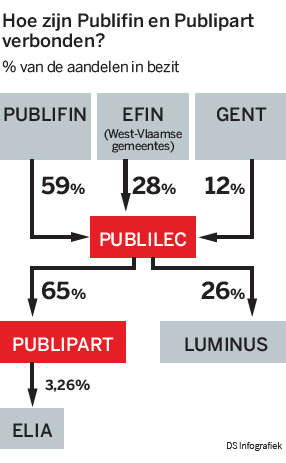
zie ons eerder bericht over Publifin
Zoals verwacht heeft de Open VLD maar één perfide remedie: verkoop toch die boel, kraait Gwendolyn Rutten triomfantelijk. Ook dat is natuurlijk graaien.


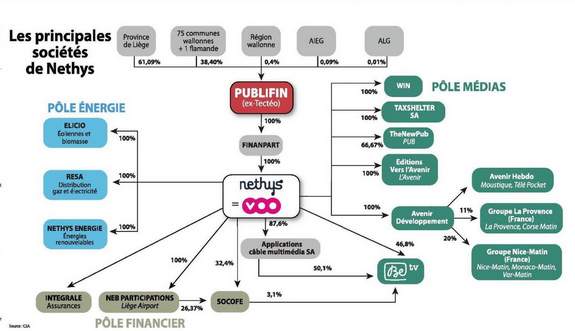
1923 : création de l'Association liégeoise d'électricité
1970 : création de Télédis qui permet l’accès à la télédistribution dans la région de Liège
2006 : création de la marque VOO en collaboration avec Brutélé. VOO propose des services d'accès à Internet, de téléphonie et de télévision analogique et digitale en Wallonie et à Bruxelles. Création de Tecteo Energy qui produit de l'énergie renouvelable.
2009 : rachat du réseau de télécommunication wallon WIN.
2010 : intégration de l'Association liégeoise du gaz (ALG)
2013 : rachat des Éditions de l'Avenir.
2014 : Tecteo devient Publifin et crée deux nouvelles sociétés : Finanpart et Nethys.



For the President's Eyes Only-Secret Intelligence and the American Presidency from Washington to Bush.
New York: Harper Collins Publishers, 1995.
Ray Cline
The CIA: Reality vs Myth--The Evolution of the Agency from Roosevelt to Reagan,
(Revised edition of The CIA under Reagan, Bush and Casey).
Washington, DC: Acropolis Books, 1982.
The author, a former top official of the Agency, discusses what clandestine work in an open society is like, why it is needed, and how it can be carried out effectively.
Arthur Darling
The Central Intelligence Agency: An Instrument of Government to 1950.
State College: Pennsylvania State University Press, 1990.
A look at the bureaucratic struggles that led to the development of the CIA and the battles that ensued afterward.
Douglas F. Garthoff
Directors of Central Intelligence as Leaders of the U.S. Intelligence Community — 1946-2005
Washington, DC: Center for The Study of Intelligence, Central Intelligence Agency, 2005.
A comprehensive study of how politics, institutions, and personalities influenced the DCI's ability to oversee the Intelligence Community.
Ted Gup
The Book of Honor: The Secret Lives and Deaths of CIA Operatives
New York: Random House, 2000
Journalist Ted Gup presents the stories of many of the CIA officers who died in the service of their country.
Loch K. Johnson
The Central Intelligence Agency: History and Documents.
New York: Oxford University Press, 1989.
Johnson, a professor at the University of Georgia who worked for the Church Committee, discusses both the history of the Agency and the theory of intelligence as he grapples with the issues of secret intelligence in a free society.
Ronald Kessler
The CIA At War: Inside the Secret Campaign Against Terror.
New York: St. Martin's Press, 2003
A look at the major events of the Agency from the 1980s to the present based mainly on interviews with DCIs and former Agency personnel.
William M. Leary, ed.
The Central Intelligence Agency: History and Documents.
Tuscaloosa, AL: University of Alabama Press, 1984.
This book reprints Anne Karalekas's "History of the Central Intelligence Agency," originally published in Book IV of the Church Committee's report. Leary has added an introduction and an appendix of historical documents.
G. J. A. O'Toole
Honorable Treachery: A History of Intelligence, Espionage, and Covert Action from the American Revolution to the CIA.
New York: Atlantic Monthly Press, 1991.
A wide-ranging study by a former Agency officer places intelligence in general and the CIA in particular in historical context.
John Ranelagh
The Agency: The Rise and Decline of the CIA.
New York: Simon and Schuster, 1987.
A comprehensive and well-researched history of the CIA written by a British author, this work provides a sharp description of the people and events that created the Agency.
Donald P. Steury
On the Front Lines of the Cold War: Documents on the Intelligence War in Berlin, 1946-1961.
Washington, D.C.: CIA History Staff, Center for the Study of Intelligence, 1999.
A look at the beginnings of the Cold War from the front lines of Berlin.
Thomas F. Troy
Donovan and the CIA: A History of the Establishment of the Central Intelligence Agency.
Frederick, MD: University Publications of America, 1981.
Troy studies the concept of centralized intelligence from 1939-1947 and describes the bureaucratic battles involved in trying to establish a central intelligence organization. He had access to many classified documents, some of which appear in the book.
Michael Warner, ed.
The CIA Under Harry Truman
Washington, D.C.: Center for the Study of Intelligence, 1994.
A valuable collection of primary documents that shed light on CIA's creation.
Michael Warner
The Office of Strategic Services: America's First Intelligence Agency.
Washington, D.C.: CIA History Staff , Center for the Study of Intelligence, 2000.
The story of CIA's WWII predecessor.
H. Bradford Westerfield, ed.
Inside the CIA's Private World: Declassified Articles from the Agency's Internal Journal, 1955-1992.
New Haven, CT: Yale University Press, 1996.
Declassified articles from the Agency's "Studies in Intelligence" authored by mostly CIA employees and covering a wide range of intelligence topics.

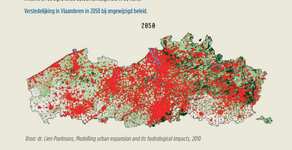


zie de nota aan de Vlaamse regering VR 20140404 DOC.0468/1
"Ha, da Joke !"
"Dag Gino, hoe is de Entre-deux-Mers?"
"Fameus goe, ook een glaske? En een oesterke?"
"Allez, vooruit, om het af te leren."
Gino komt een minuutje later terug met een glas en een bordje met drie oesters. Hij likt zijn duim af.
"Seg, Joke, we moeten eens klappen. Wij gaan doen waarda gelle ook goe in zij."
"Ah, ja, wat is dat dan?"
'We gaan putten graven! Hahaha'

Persvrijheid en vrije berichtgeving liggen moeilijk in islamitische landen en dictaturen, blijkbaar omdat men er geen onderscheid kan maken tussen de diverse machten die in een democratische rechtstaat actief zijn. In dictaturen is de controle allesomvattend. De nazi's duidden dat aan met het adjectief 'allumfassend' en 'Gleichschaltung' (alle Vereine, Institutionen und Organisationen dazu zwingen, die Ideologie der Regierung zu vertreten).

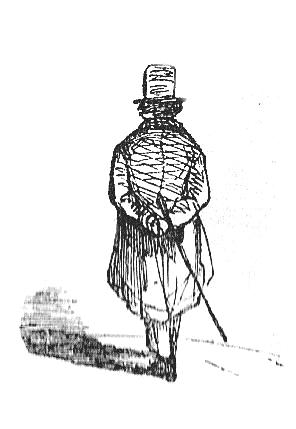

Persvrijheid en vrije berichtgeving liggen moeilijk in islamitische landen en dictaturen, blijkbaar omdat men er geen onderscheid kan maken tussen de diverse machten die in een democratische rechtstaat actief zijn. In dictaturen is de controle allesomvattend. De nazi's duidden dat aan met het adjectief 'allumfassend' en 'Gleichschaltung' (alle Vereine, Institutionen und Organisationen dazu zwingen, die Ideologie der Regierung zu vertreten).




The song by Jamala called “1944” is dedicated to the deportation of Crimean Tatars by Soviet dictator Joseph Stalin. The singer was born into a mixed Tatar Armenian family and was inspired to write the lyrics by her grandmother’s account of those tragic events, she told the media. A record number of over 300,000 Ukrainians voted in the national selection for the contest.
RT maakt enkele interessante vergelijkingen
zie ook de geschiedenis van het Stalinisme


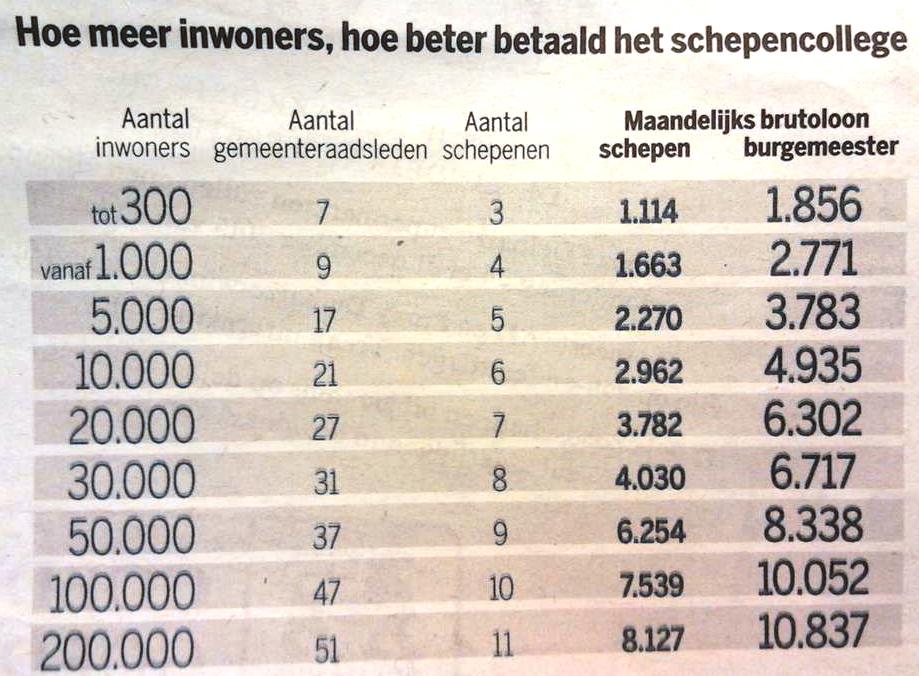


Dat blijkt uit een analyse van RTL Z. De overige drie kandidaten hadden afgelopen jaar geen noemenswaardige neveninkomsten.
Bij pensioenuitvoerder APG is Verhofstadt vice-voorzitter van de Raad van Commissarissen. Hoewel het jaarverslag over 2013 nog niet online staat, kreeg hij daar volgens een woordvoerder 43.100 euro voor. Daarnaast is Verhofstadt commissaris bij het Belgische Exmar, een internationale scheepvaartgroep, groot in de gas- en olie-industrie. Exmar maakte vorig jaar 60.000 euro over aan de Europarlementariër.
Zie ook: Twitteraars slaan Verhofstadt met grappen om de oren
Maar de grootste pot toucheert Verhofstadt bij het Belgische beursfonds Sofina. Sofina is een holdingmaatschappij, met belangen in onder meer Danone en GDF Suez. Afgelopen jaar werd Verhofstadt beloond met een bedrag van 130.500 euro. Daarmee komt het totaalbedrag uit op 233.340 euro. Onduidelijk blijft in hoeverre Verhofstadt ook voor andere functies, beloond wordt.
KBO Sofina
Het voorzitterschap bij het Europees Instituut voor Bestuurskunde zou maandelijks nog een bedrag op kunnen leveren tussen de 1.000 en 5.000 euro per maand. Het EIB, dat gesubsidieerd wordt door de lidstaten, wil de exacte bedragen niet bekend maken. Zelfs bij een conservatieve schatting echter zou het al kunnen gaan om tienduizenden euro's per jaar. In alle gevallen gaat het om klussen waarvoor Verhofstadt toestemming heeft gekregen van Brussel.
12.500 voor een spreekbeurt
Los van de commissariaten, is Verhofstadt ook in te huren voor dagvoorzitterschappen en speeches. En ook daar is de prijs niet mals. Verhofstadt zou zo'n 12.500 euro voor een spreekbeurt vragen. RTL Z belde anoniem met sprekersbureau Assemblee, voor een grove prijsopgaaf voor 'een uurtje Verhofstadt' die die suggesties bevestigt. Onduidelijk is hoeveel van dit soort klussen Verhofstadt nog doet op persoonlijke titel.
Lees ook het opmerkelijke boek van Leo Goovaerts.
De andere twee kandidaten, waarvan overigens nog lang niet vast staat of de keuze überhaupt op één van de genoemde heren valt, hadden geen noemenswaardige neveninkomsten. Martin Schulz, op dit moment voorzitter van het Europees Parlement en kandidaat namens de sociaaldemocraten, had geen nevenfuncties. Wel ontving hij royalties voor een boek dat hij schreef. Ska Keller, kandidaat van de Europese Groenen, gaf eveneens aan geen nevenfuncties te bekleden. Oud-eurogroep voorzitter en christendemocraat Juncker is recentelijk afgetreden als premier van Luxemburg, en slechts nog actief als bewindvoerder van het IMF.

Sinds de staatsgreep van 22 mei 2014 leeft het koninkrijk Thailand onder een militaire dictatuur, o.l.v. generaal Prayut Chan-o-cha (°1954).
lees meer over de schending van mensenrechten en censuur op de site van HRW
Het reisadvies van het Belgische ministerie van buitenlandse zaken luidt als volgt: "Sinds de staatsgreep van 22 mei 2014 wordt Thailand de facto bestuurd door het leger. Op grond van artikel 44 van de interim grondwet beschikt de eerste minister over ruime bevoegdheden om de openbare orde te handhaven en de vrijheid van meningsuiting en vereniging te beperken. Kritiek geven op de staatsgreep, het koningshuis of de regering is strafbaar. Blijf weg van samenscholingen en leef steeds de instructies van de lokale autoriteiten na. Het risico op geweld blijft bestaan."


De dames van de MR scoren slecht als het op transparantie aankomt. Eerder dit jaar werkte minister van Energie Marie-Christine Marghem (MR) zich negatief in de kijker door geheime contracten met EDF/Suez/Electrabel over de nucleaire rente. Die kostten de Staat (ons allen dus) honderden miljoenen euros. Om de begroting te doen kloppen moet die minderopbrengst gecompenseerd worden door bijkomende lasten voor de gewone burgers.
Beleid? Het algemeen belang?


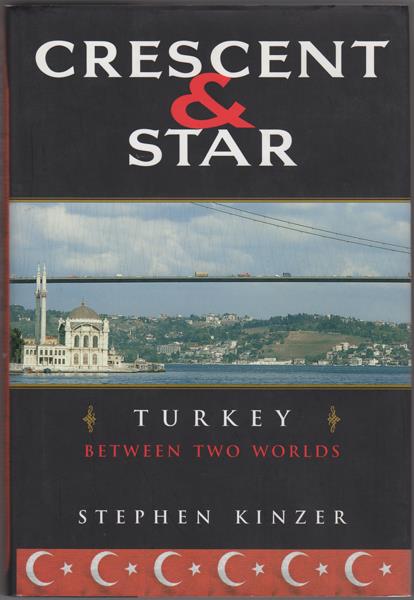
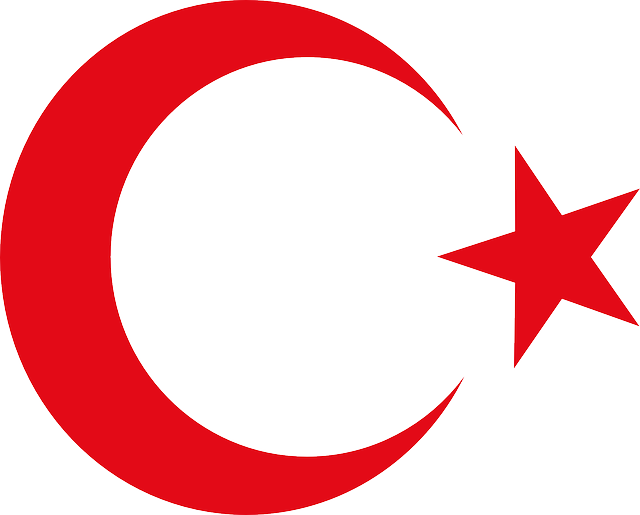 Hardcover. "Drawing on its unique geography, history, and politics, this study of Turkey considers its prospects for democratic rule and its place among nations in the 21st century. Kinzer travels across the land, interviews its many peoples, and considers the key issues confronting Turkey: the role of its military; the secular and religious traditions; and the politics and human rights issues in relation to joining the European Union. Arguing that Turkey is the most "audacious nation of the twenty-first century" the author explores the unrealized potential of this nation--once the seat of a great empire--sandwiched neatly between Europe and Asia. Offers an intimate report on Turkey today, pulling aside the veil that has hidden it from the outside world. Traces its development into a modern state, and outlines the great dilemmas it now faces.Turkey is poised between Europe and Asia, caught between the glories of its Ottoman past and its hopes for a democratic future, between the traditional power of its army and the needs of its impatient citizens, between Muslim traditions and secular expectations. " 252p. index.
Hardcover. "Drawing on its unique geography, history, and politics, this study of Turkey considers its prospects for democratic rule and its place among nations in the 21st century. Kinzer travels across the land, interviews its many peoples, and considers the key issues confronting Turkey: the role of its military; the secular and religious traditions; and the politics and human rights issues in relation to joining the European Union. Arguing that Turkey is the most "audacious nation of the twenty-first century" the author explores the unrealized potential of this nation--once the seat of a great empire--sandwiched neatly between Europe and Asia. Offers an intimate report on Turkey today, pulling aside the veil that has hidden it from the outside world. Traces its development into a modern state, and outlines the great dilemmas it now faces.Turkey is poised between Europe and Asia, caught between the glories of its Ottoman past and its hopes for a democratic future, between the traditional power of its army and the needs of its impatient citizens, between Muslim traditions and secular expectations. " 252p. index. 
Coluche begon in 1985 met de "Restos du Cœur", een organisatie die voedsel, geld en kleding inzamelt voor daklozen. Zijn actie zette de politici in hun blootje want Coluche voerde ook uit wat hij beloofde.
Op 19 juni 1986 verongelukte Coluche met zijn motor.

Ook Uplace kreeg haar goedkeuring.
De macht in ranzige handen.

Numac : 2015018256
Publicatie in uitvoering van artikel 7, º 3, van de bijzondere en de gewone wetten van 26 juni 2004 tot uitvoering en aanvulling van de bijzondere en de gewone wetten van 2 mei 1995 betreffende de verplichting om een lijst van mandaten, ambten en beroepen, alsmede een vermogensaangifte in te dienen (elfde toepassingsjaar)
Definitieve lijst van mandaten, ambten en beroepen uitgeoefend in het jaar 2014 of een gedeelte van dat jaar

Toen Oekraïne in vuur en vlam stond ging diezelfde V. zonder enig mandaat staan schreeuwen: 'Europe will support you.'
En de Belgen zijn natuurlijk vergeten dat indertijd de gaten in de begrotingen stelselmatig werden dichtgereden met de verkopen van de nationale activa. De neoliberale logica is in essentie immers een verarming van de collectiviteit (de staat) ten voordele van de rijke vriendjes. Dat alles onder het mom van efficiëntie-verhogingen.
Naar verluidt wil V. naar Griekenland gaan als adviseur. Op nummer één staat de privatisering van het Parthenon. Vervolgens wordt er een restaurant van gemaakt en worden er opnamen van 'Komen eten' gepland op de locatie. Volgens dezelfde bron heeft Berlusconi interesse voor het afhuren van het Parthenon voor de organisatie van Bunga-Bunga-feestjes. Op de wat koudere avonden wil vriend Poetin wel gasbranders leveren. DSK zou zorgen voor wat men eufemistisch 'casting' noemt; naar de leeftijd van de sollicitantes wordt niet geïnformeerd. Omdat prostitutie en drugshandel mee is opgenomen in de berekening van het BBP verwacht men voor Griekenland een positieve invloed op de groeivooruitzichten.
Vanop een houten platform worden levende witte duiven gekatapulteerd en dan afgeschoten door diegenen die zich zouden vervelen. Griekenland wordt een grote feesttent.
De eilanden zouden reeds grotendeels verkocht zijn aan de meestbiedenden, die daarvoor 0,00005 promille van hun in Dubai geparkeerde spaarcenten hebben aangesproken.
Als toemaatje zou er een geheim akkoord bestaan om het Griekse gedeelte van Cyprus af te staan aan Turkije. De deportatie van de Grieks-Cyprioten naar Kreta zou uitgevoerd worden met schepen van de Luxemburgs-Griekse rederijen. De Lybische reders worden onder druk gezet om geen offerte in te dienen en zich met hun rubberboten verder op de Afrika-Europa-route te richten. De Belgische marine zal de Godetia blijven inzetten om een en ander in goede banen te leiden. Over de bescherming van de konvooien tussen Cyprus en Kreta door Nederlandse blauwhelmen wordt nog onderhandeld maar men wil eerst garanties over het percentage van niet-geholpen drenkelingen. Om dat waar te maken heeft een befaamd merk van verrekijkers een contract aangeboden voor de levering van kijkers waarmee je kan wegkijken van de te observeren noodtoestand.
De Poolse regering heeft toegezegd om enkele scheepsladingen wodka te leveren teneinde de deportatie in de beste voorwaarden te laten plaatsvinden.
In de coulissen van Europa gonst het van de geruchten over de opgedane ervaringen met het laboratorium Griekenland. Een nog onbekende factor van de formule is de rol van het leger en dan meer bepaald de kleinzoons van de kolonels.


Charlotte Vekemans
Belgische bezetters: de lange schaduw van de Eerste Wereldoorlog
De afgelopen twee jaar herdacht het Belgische volk de gruwel van de Eerste Wereldoorlog, nu honderd jaar geleden. Maar wat gebeurde er toen op 11 november 1918 de wapens zwegen? Toen de rook optrok van het slachtveld aan de IJzer en de partijen samen rond de tafel gingen zitten? Wat volgde is een relatief onbekend stukje Belgische geschiedenis waarin ons land optreedt als bezettingsmacht en zich een weg zoekt tussen de Europese grootmachten.
Wespennest
Vanaf de wapenstilstand op 11 november 1918 bezetten Groot-Brittannië, Frankrijk, de Verenigde Staten en België het gebied aan de linker Rijnoever. België voelde zich verplicht mee te stappen in deze bezetting, hoewel ze niet werd betrokken in de wapenstilstandsonderhandelingen en eigenlijk afkerig stond ten opzichte van een langdurige bezetting. Het kleine landje vreesde de omsingeling door Frankrijk, dat Luxemburg al volledig onder haar invloed had geplaatst. Als Frankrijk ook nog eens het aan België grenzende Rijngebied zou beheersen, zou België omsloten worden door een land dat al verschillende keren op haar grondgebied had geaasd. De heilige schrik voor zo’n omsingeling zou tijdens de hele bezetting door de hoofden van de Belgische staatsmannen spoken. De enige uitweg die de regering en legerleiding zagen was om mee het Rijngebied te bezetten en zo op de hoogte te blijven van de plannen van de geallieerden.
Tijdens de bezetting werd het hoofdkantoor van de bezetters, de Haute Commission Interalliée des Territoires Rhénans, het schouwtoneel van het Europese machtsspel. De nasleep van de Eerste Wereldoorlog en de verschillende politieke spelletjes komen er samen in het kleine gebied tussen België, Frankrijk en de Rijn. ‘Brave Little Belgium’ besefte te laat in wat voor een wespennest het zichzelf had gestort. Na de oorlog hadden de Belgen gehoopt op een plaats tussen de grootmachten. Een plaats die ze naar eigen mening hadden verdiend door de geleverde oorlogsinspanningen. De eerste Belgische stappen in de Europese politiek werden echter op hoongelach onthaald door de Duitsers. De Belgen, die hun neutraliteit nog maar net hadden afgeschud, werden door de geallieerden al snel ingedeeld bij de kleine landjes. De Belgen beseften al snel dat één gewonnen oorlog haar geen grootmacht maakte. Ze kozen dan voor een bemiddelaarsrol, wat helaas ook niet van een leien dakje zou lopen.
Tijd voor revanche
Naast de enorme politieke problemen, werd België ook nog eens geconfronteerd met de dagdagelijkse problemen die een bezetting met zich meebracht. Na Frankrijk leverde het kleine landje het grootste aantal manschappen voor de bezetting en al snel bleek dat de oorlog nog net iets te vers in het geheugen van de soldaten zat. Pesterijen en vernederingen werden dagelijkse kost voor de Duitse bevolking, die daarnaast door de geëiste herstelbetalingen ook nog eens in diepe economische miserie zat. De Duitsers moesten alle Belgische officieren groeten, voor hen aan de kant gaan op straat en hun hoed afnemen. “Hut Ab!” werd een standaardgroet van de Belgen, die er plezier in vonden de Duitsers verder te vernederen. Wanneer de Duitser in kwestie weigerde zijn hoed af te nemen, sloegen de Belgen de hoed van hun hoofd. De legerleiding berichtte meermaals aan Brussel dat de officieren de bezetting zagen als een voortzetting van de oorlog waarin ze wraak konden nemen op de Duitsers.
Vanuit Brussel waren de orders steevast dezelfde: het Belgisch leger moest een goede verhouding tot stand brengen met de bevolking, in het kader van toekomstige economische samenwerking. Ondanks de verschillende orders die vanuit Brussel naar het Rijngebied vertrokken, bleef de legerleiding met problemen kampen. Naast de pesterijen zorgde de verveling bij de troepen helaas al snel voor een welig tierende prostitutie en drugstrafiek. Dit laatste probleem strekte zich zelfs helemaal tot de haven van Antwerpen waar de Amerikaanse soldaten een profijtelijke handel hadden opgezet in cocaïne. Bovendien waren verschillende Belgische soldaten ingekwartierd bij Duitse gezinnen, wat tot veel conflicten leidde. Burgers klaagden over prostituees die het huis betraden, hoge elektriciteits- en gasrekeningen en zelfs mishandelde huisdieren. In een aantal gevallen liepen de spanningen zo hoog op dat er doden vielen aan beide zijden. Met de uitbreiding van de bezetting naar het Roergebied in 1923 werd er een aanslag gepleegd op de Belgen waarbij er tien soldaten het leven lieten. Aan de Duitse zijde waren de slachtoffers meestal burgers die in aanvaring waren gekomen met de Belgen. Het precieze aantal slachtoffers van de bezetting is niet geweten.
Tussen twee vuren
In sommige districten waren de relaties tussen bevolking en bezetters een stuk beter, zoals in Krefeld. Daar zaten de officieren met de handen in het haar omdat bezetter en bevolking elkaar zo leuk vonden dat ze regelmatig met elkaar op café of in bed belanden. Verschillende keren werd er aan de militaire leiding gemeld dat de Belgen gezellig stonden te keuvelen met de Duitse bevolking tijdens hun dienst. Dat was natuurlijk ook weer niet de bedoeling. Lokaal twijfelden de officieren tussen een strikt militair bewind en een vriendelijke behandeling van de bezette bevolking. Op internationaal niveau brachten de gevolgen van de Eerste Wereldoorlog het kleine België middenin een stormachtige Europese strijd. Binnen deze storm balanceerden de Belgen op een slap koord tussen hun droom om als grootmacht te worden geaccepteerd en hun angst verzeild te raken in een politiek conflict dat hen opnieuw in een Groote Oorlog zou storten. Voor veel Belgen en Duitsers, bleek de Eerste Wereldoorlog nog tot ver na 1918 een schaduw te werpen op hun relaties en dagdagelijks leven.
Bibliografie
Bibliografie
Literatuur
BARIETY, J., “La Haute Commission Interalliée des Territoires Rhénanes”, Problèmes de la Rhénanie 1919-1930 / Die Rheinfrage nach dem ersten Weltkrieg. Université de Metz. Centre de recherches Relations internationales, 1975, 15-28.
BAYLISS, G.M., The occupation of the Rhineland. 1918-1929, London, 1987.
DENK-HELMOLD, M., Die Reaktion der Reichsregierung Cuno auf die Besetzung des Ruhrgebietes durch französische und belgische Truppen 1923 im Spiegel der Presse, Doktordissertation, 1988, Köln.
DEPOORTERE, R., La question des réparations allemandes dans la politique étrangère de la Belgique après la première guerre mondiale 1919-1925, Brussel, 1997.
“De terugkeer van de ‘Russische archieven’”, Vizier. Driemaandelijks infoblad van het Koninklijk Legermuseum, 15(2002), 1-2.
“Die Vergiftung Europas”, Der Spiegel 37(2013), 48-50.
FISCHER, C. en SHARP, A. red., After the Versailles treaty, enforcement, compliance, contested identities, London, 2008.
FRAENKEL, E., Military Occupation and the Rule of Law: Occupational Government in the Rhineland, 1918-1923, Londen, 1944.
HAUBEN, H., Krefeld Die Geschichte der Stadt. Vom Ende des Ersten Weltkrieges bis zum Gegenwart, Krefeld, 2010.
HERREBOUT, E., Quellen zur Geschichte der deutsch-belgischen Beziehungen in den belgischen Staatsarchiven (mit Hinweisen auf Archivgut deutscher Provenienz) (1830 - 1962), Brussel, 2008.
HYMANS, P., VAN KALKEN, F. en BARTIER, J. , Mémoires, 2 dln., Brussel, 1958.
JACOBS, C.W.W., Belgien und die Rhein-Ruhrfrage 1918 - 1923. Ein Beitrag zur belgischen Außenpolitik der Zwischenkriegszeit, Dissertatie,Bonn, 1976.
JEANNESSON, S.,“Pourquoi la France a-t-elle occupé la Ruhr?”, Vingtième Siècle. Revue d'histoire, No. 51 (1996), 56-67.
JEANNESSON S., “French Policy in the Rhineland”, Diplomacy & Statecraft, 16(2005), 475-486.
JEFFERY, K.,““Hut ab,” “Promenade with Kamerade for Schokolade,” and the Flying Dutchman: British Soldiers in the Rhineland, 1918–1929”, Diplomacy & Statecraft, 16(2005) , 455-473.
KENT, B., The spoils of war, the politics, economics and diplomacy of reparations 1918-1932, Oxford, 1991.
KOSZYCK, K., Deutsche Presse 1914-1945, Berlin, 1972.
KRAUS, H.-C., Versailles und die Folgen. Außenpolitik zwischen Revisionismus und Verständigung 1919 - 1933, Berlijn, 2013.
LAUTER, A.-M., Sicherheit und Reparationen. Die französische Öffentlichkeit, der Rhein und die Ruhr (1919-1923), Essen, 2006.
MARKS, S., Innocent Abroad: Belgium at the Paris Peace Conference of 1919, Chapel Hill, 1981.
NEFORS, P. en TALLIER, P.-A. red., Quand les canons se taisent, actes du colloque international organisé par les Archives de L’Etat et le Musée royal de l’Armée et d’Histoire militaire (Bruxelles, 3-6- novembre 2008), Brussel, 2010.
O’RIORDAN, E., “The British Zone Of Occupation in the Rhineland”, Diplomacy & Statecraft, 16(2005), 439-454.
PANKE, D., “Dwarfs in international negotiations: how small states make their voices heard,” Cambridge Review of International Affairs, 25(2012), 313-328.
PAWLEY, M., The watch on the Rhine. the military occupation of the Rhineland, 1918 - 1930, 2007, Londen.
SHARP, A., The Versailles settlement, peacemaking in Paris 1919, Basingstoke, 1991.
SÜß, M., Rheinhessen unter französischer Besatzung, Stuttgart, 1988.
TIRARD, P., La France sur le Rhin: Douze Années d'Occupation Rhénane, Parijs, 1930.
URLANIS, B., Wars and Population, Moskou, 1971.
VANLANGENHOVE, F., “Contribution à l'histoire de la politique rhénane de la Belgique de 1919 à 1925”, Revue belge de philologie et d'histoire, 56 (1978), 410- 430.
VANLANGENHOVE, F., L'élaboration de la politique étrangère de la Belgique entre les deux guerres mondiales, Brussel 1980.
VERBEECK, G., Een geschiedenis van Duitsland. Sporen en dwaalsporen van een natie, Leuven, 2010.
VOGELS, W., red., Die verträge über besetzung und räumung des Rhinelandes und die Interalliierten Rheinlandoberkommission in Coblenz, Berlijn, 1925.
WIGGER, I., Die “Schwarze Schmach am Rhein”, Münster, 2007.
WILLIAMSON, D. G., The British in Germany. 1918–1930: The Reluctant Occupiers, Oxford en New York, 1991.
Digitale Informatie
“Albert Devèze”, Algemeen Rijksarchief België, (http://search.arch.be/nl/zoeken-naar-archieven/zoekresultaat/ead/index/….) Laatst geraadpleegd op 11 augustus 2014.
BREDENBROCK, C. [History Dokus], Der Feind am Rhein: Die allierte Besatzung nach dem ersten Weltkrieg, video, 1 maart 2013, (https://www.youtube.com/watch?v=if0pqIP-IBg). Laatst geraadpleegd op 1 augustus 2014.
“De Namenlijst”, In Flanders Fields Museum, (http://www.inflandersfields.be/nl/namenlijst/navigatie/kenniscentrum/do…). Laatst geraadpleegd op 4 augustus 2014.
“Der Reichskommissar für die besetzten rheinischen Gebiete”, Landschaftsverband Rheinland, (http://www.rheinische-geschichte.lvr.de/themen/Das%20Rheinland%20im%202…) Laatst geraadpleegd op 28 juli 2014.
“Edmond De Gaiffier D'hestroy”, Archive Catholic Herald (http://archive.catholicherald.co.uk/article/10th-august-1935/19/baron-d…). Laatst geraadpleegd op 11 augustus 2014.
“Ferdinand Foch”, Encyclopedia Britannica (http://www.britannica.com/EBchecked/topic/211837/Ferdinand-Foch). Laatst geraadpleegd op 11 augustus 2014.
“Ferdinand Peltzer”, Algemeen Rijksarchief België, (http://search.arch.be/nl/zoeken-naar-archieven/zoekresultaat/ead/index/…). Laatst geraadpleegd op 30-07-14.
“Fulgence Masson”, Liberaal archief, (http://www.liberaalarchief.be/Masson2005.pdf)Laatst geraadpleegd op 11 augustus 2014.
“Henri Jaspar”, Encyclopedia Britannica (http://www.britannica.com/EBchecked/topic/301525/Henri-Jaspar). Laatst geraadpleegd op 11 augustus 2014.
JUNG, A., “Als der Mark vernichtet wurde”, Der Spiegel Online, (http://www.spiegel.de/einestages/hyperinflation-1923-a-948427.html), 31 juli 2009, Laatst geraadpleegd op 23-03-2014.
“Kölnische Volkszeitung”, Landschaftsverband Rheinland (http://www.rheinische-geschichte.lvr.de/themen/Das%20Rheinland%20im%202…) Laatst geraadpleegd op 2 augustus 2014.
“Louis Rucquoy”, Wikipedia, (http://fr.wikipedia.org/wiki/Louis_Ruquoy) Laatst geraadpleegd op 11 augustus 2014.
“Organisation Escherich, Historisches Lexicon Bayern, 2014.(http://www.historisches-lexikon-bayerns.de/artikel/artikel_44558). Laatst geraadpleegd op 28 juli 2014.
“Paul Tirard”, Le comité des travaux historiques et scientifiques, (http://cths.fr/an/prosopo.php?id=114410#) Laatst geraadpleegd op 11 augustus 2014.
“Rolin-Jaquemyns”, Algemeen Rijksarchief België (http://search.arch.be/nl/zoeken-naar-archieven/zoekresultaat/ead/index/…). Laatst geraadpleegd op 11 augustus 2014.
Bronnenmateriaal
AAKEN, Stadtarchiv, Besatzungszeit 1918-1922.
AAKEN, Stadtarchiv, Befreiung Aachens 1930.
DORTMUND, Institut für Zeitungsforschung, Aachener Anzeiger. Politisches Tageblatt.
DORTMUND, Institut für Zeitungsforschung, Aachener Anzeiger. Echo der Gegenwart.
DORTMUND, Institut für Zeitungsforschung, nr.:8: Besatzungszeit.
KREFELD, Stadtarchiv, nr.: 4 Belgische Besatzung, Reparationen.
KREFELD, Stadtarchiv, nr.: 9 Besatzung.
MÜNSTER, Zeitungs- und Pressearchiv, Kölnische Volkszeitung.
BRUSSEL, Archief Ministerie van Buitenlandse Zaken, HCITR, nr. 49: Attentats.
BRUSSEL, Archief Ministerie van Buitenlandse Zaken, HCITR, nr. 47: Incidents en Territoires Occupés.
BRUSSEL, Archief Ministerie van Buitenlandse Zaken, HCITR, nr. 190: Affaires diverses: activisme, séparatisme.
BRUSSEL, Archief Ministerie van Buitenlandse Zaken, HCITR, nr. 41: Presse Belge en Territoires Occupés.
BRUSSEL, Archief Ministerie van Buitenlandse Zaken, HCITR, nr. 46: Propagande pangermaniste en Territoires Occupés
BRUSSEL, Archief Ministerie van Buitenlandse Zaken, Archives Diplomatiques, nr. 10 447: Actes violences a charge de troupes Belges.
BRUSSEL, Archief Ministerie van Buitenlandse Zaken, Archives Diplomatiques, nr. 10 443: Attitude.
BRUSSEL, Archief Ministerie van Buitenlandse Zaken, Archives Diplomatiques, nr. 10 437: Attitude.
BRUSSEL, Archief Ministerie van Buitenlandse Zaken, Archives Diplomatiques, nr. 10 422: Diverses
BRUSSEL, Archief Ministerie van Buitenlandse Zaken, Archives Diplomatiques, nr. 10 432: Divergences et griefs.
BRUSSEL, Archief Ministerie van Buitenlandse Zaken, Archives Diplomatiques, nr. 10 095: Anti-allié (ruhr).
BRUSSEL, Archief Koninklijk Legermuseum, Rhenanie, nr. 88/83: Troupes - Population.
BRUSSEL, Archief Koninklijk Legermuseum, Rhenanie, nr. 88/1-4: Presse.
BRUSSEL, Archief Koninklijk Legermuseum, Rhenanie, nr. 88/86: Attentats.
BRUSSEL, Archief Koninklijk Legermuseum, Moskou, nr. 185/63-66: Propaganda tegen de Belgen.
BRUSSEL, Archief Koninklijk Legermuseum, Moskou, nr. 185/167: Historische notities.
Gedigitaliseerde bronnen
“Kabinettssitzung vom 3 November 1919”, Bundesarchiv (http://www.bundesarchiv.de/aktenreichskanzlei/1919-1933/1000/bau/bau1p/…). Laatst geraadpleegd op 29 juli 2014.
“Ministerraad 16 januari 1919”, Algemeen Rijksarchief (http://extranet.arch.be/lang_pvminister.html) Laatst geraadpleegd op 26 juli 2014.
“Ministerraad 7 maart 1921”, Algemeen Rijksarchief (http://extranet.arch.be/lang_pvminister.html) Laatst geraadpleegd op 31 juli 2014.
“Ministerraad 11 april 1921”, Algemeen Rijksarchief (http://extranet.arch.be/lang_pvminister.html) Laatst geraadpleegd op 31 juli 2014.
“Ministerraad 3 mei 1919”, Algemeen Rijksarchief (http://extranet.arch.be/lang_pvminister.html) Laatst geraadpleegd op 26 juli 2014. “Ministerraad 4 mei 1919”, Algemeen Rijksarchief (http://extranet.arch.be/lang_pvminister.html) Laatst geraadpleegd op 26 juli 2014.
“Ministerraad 7 mei 1921”, Algemeen Rijksarchief (http://extranet.arch.be/lang_pvminister.html) Laatst geraadpleegd op 31 juli 2014.

 Ayelet Shaked (°1976) wordt de nieuwe minister van Justitie in de vierde regering van Benjamin Netanyahu. De politica van de extreemrechtse partij ‘Joods Huis’ wees steevast elk vredesakkoord met Palestina af. Nadat Hamas twee Joodse kinderen ontvoerd had, maande ze zelfs aan tot de annexatie van delen van de Westelijke Jordaanoever.
Ayelet Shaked (°1976) wordt de nieuwe minister van Justitie in de vierde regering van Benjamin Netanyahu. De politica van de extreemrechtse partij ‘Joods Huis’ wees steevast elk vredesakkoord met Palestina af. Nadat Hamas twee Joodse kinderen ontvoerd had, maande ze zelfs aan tot de annexatie van delen van de Westelijke Jordaanoever.Op 16 november 2015 zei Shaked over het Midden-Oosten: "The entire region is shifting, and the nation states all collapse. It’s a tribal landscape now, and every bit of territory abandoned by the West is seized by radical Islam." (interview)

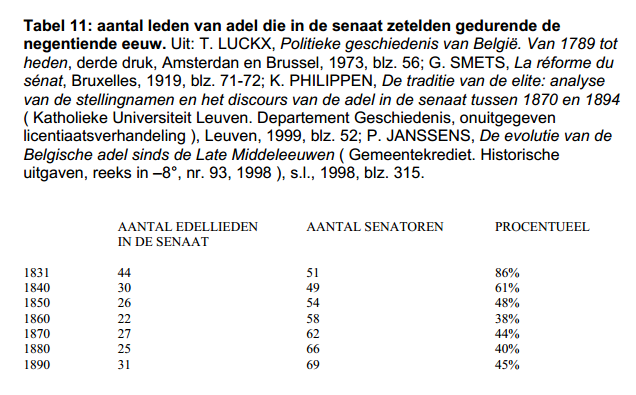
Tabel 11: aantal leden van adel die in de senaat zetelden gedurende de negentiende eeuw. Uit: T. LUCKX, Politieke geschiedenis van België. Van 1789 tot heden, derde druk, Amsterdan en Brussel, 1973, blz. 56; G. SMETS, La réforme du sénat, Bruxelles, 1919, blz. 71-72; K. PHILIPPEN, De traditie van de elite: analyse van de stellingnamen en het discours van de adel in de senaat tussen 1870 en 1894 ( Katholieke Universiteit Leuven. Departement Geschiedenis, onuitgegeven licentiaatsverhandeling ), Leuven, 1999, blz. 52; P. JANSSENS, De evolutie van de Belgische adel sinds de Late Middeleeuwen ( Gemeentekrediet. Historische uitgaven, reeks in –8°, nr. 93, 1998 ), s.l., 1998, blz. 315. AANTAL EDELLIEDEN AANTAL SENATOREN PROCENTUEEL IN DE SENAAT 1831 44 51 86% 1840 30 49 61% 1850 26 54 48% 1860 22 58 38% 1870 27 62 44% 1880 25 66 40% 1890 31 69 45%



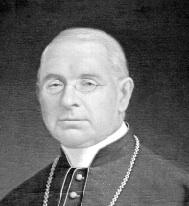
Nulty rose to become the Most Reverend Bishop of Meath and was known as a fierce defender of the tenant rights of Irish tenant farmers throughout the 34 years that he served in that office from 1864 to 1898.[5][6] Thomas Nulty is famed for his 1881 tract Back to the Land, wherein he makes the case for land reform of the Irish land tenure system.[7] Nulty was a friend and supporter of the Irish nationalist Charles Stewart Parnell until Parnell's divorce crisis in 1889.[8][9]
Dr. Thomas Nulty, who had attended the First Vatican Council in 1870, said his last mass on December 21, 1898.
To the Clergy and Laity of the Diocese of Meath:
Dearly Beloved Brethren,-
I venture to take the liberty of dedicating the following Essay to you, as a mark of my respect and affection. In this Essay I do not, of course, address myself to you as your Bishop, for I have no divine commission to enlighten you on your civil rights, or to instruct you in the principles of Land Tenure or Political Economy. I feel, however, a deep concern even in your temporal interests — deeper, indeed, than in my own; for what temporal interests can I have save those I must always feel in your welfare? It is, then, because the Land Question is one not merely of vital importance, but one of life and death to you, as well as to the majority of my countrymen, that I have ventured to write on it at all.
With a due sense of my responsibility, I have examined this great question with all the care and consideration I had time to bestow on it. A subject so abstruse and so difficult could not, by any possibility, be made attractive and interesting. My only great regret, then, is that my numerous duties in nearly every part of the Diocese for the last month have not left me sufficient time to put my views before you with the perspicuity, the order and the persuasiveness that I should desire. However, even in the crude, unfinished form in which this Essay is now submitted to you, I hope it will prove of some use in assisting you to form a correct estimate of the real value and merit of Mr. Gladstone’s coming Bill.
For my own part, I confess I am not very sanguine in my expectations of this Bill — at any rate, when it shall have passed the Lords. The hereditary legislators will, I fear, never surrender the monopoly in the land which they have usurped for centuries past; at least till it has become quite plain to them that they have lost the power of holding it any longer. It is, however, now quite manifest to all the world — except, perhaps, to themselves — that they hold that power no longer.
We, however, can afford calmly to wait. While we are, therefore, prepared to receive with gratitude any settlement of the question which will substantially secure to us our just rights, we will never be satisfied with less. Nothing short of a full and comprehensive measure of justice will ever satisfy the tenant farmers of Ireland, or put an end to the Land League agitation.
The people of Ireland are now keenly alive to the important fact that if they are loyal and true to themselves, and that they set their faces against every form of violence and crime, they have the power to compel the landlords to surrender all their just rights in their entirety.
If the tenant farmers refuse to pay more than a just rent for their farms, and no one takes a farm from which a tenant has been evicted for the non-payment of an unjust or exorbitant rent, then our cause is practically gained. The landlords may, no doubt, wreak their vengeance on a few, whom they may regard as the leaders of the movement; but the patriotism and generosity of their countrymen will compensate these abundantly for their losses, and superabundantly reward them for the essential and important services they have rendered to their country at the critical period of its history.
You know but too well, and perhaps to your cost, that there are bad landlords in Meath, and worse still in Westmeath, and perhaps also in the other Counties of this Diocese. We are, unfortunately, too familiar with all forms of extermination, from the eviction of a Parish Priest, who was willing to pay his rent, to the wholesale clearance of the honest, industrious people of an entire district. But we have, thank God, a few good landlords, too. Some of these, like the Earl of Fingal, belong to our own faith; some, like the late Lord Athlumny, are Protestants; and some among the very best are Tories of the highest type of conservatism.
You have always cherished feelings of the deepest gratitude and affection for every landlord, irrespective of his politics or his creed, who treated you with justice, consideration and kindness. I have always heartily commended you for these feelings.
For my own part, I can assure you, I entertain no unfriendly feelings for any landlord living, and in this Essay I write of them not as individuals, but as a class, and further, I freely admit that there are individual landlords who are highly honourable exceptions to the class to which they belong. But that I heartily dislike the existing system of Land Tenure, and the frightful extent to which it has been abused, by the vast majority of landlords, will be evident to anyone who reads this Essay through.
I remain, Dearly Beloved Brethren, respectfully yours,
+THOMAS NULTY.
BACK TO THE LAND
Our Land System Not justified by its General Acceptance.
Anyone who ventures to question the justice or the policy of maintaining the present system of Irish Land Tenure will be met at once by a pretty general feeling which will warn him emphatically that its venerable antiquity entitles it, if not to reverence and respect, at least to tenderness and forbearance.
I freely admit that feeling to be most natural and perhaps very general also; but I altogether deny its reasonableness. It proves too much. Any existing social institution is undoubtedly entitled to justice and fair play; but no institution, no matter what may have been its standing or its popularity, is entitled to exceptional tenderness and forbearance if it can be shown that it is intrinsically unjust and cruel. Worse institutions by far than any system of Land Tenure can and have had a long and prosperous career, till their true character became generally known and then they were suffered to exist no longer.
Human Slavery Once Generally Accepted.
Slavery is found to have existed, as a social institution, in almost all nations, civilised as well as barbarous, and in every age of the world, up almost to our own times. We hardly ever find it in the state of a merely passing phenomenon, or as a purely temporary result of conquest or of war, but always as a settled, established and recognised state of social existence, in which generation followed generation in unbroken succession, and in which thousands upon thousands of human beings lived and died. Hardly anyone had the public spirit to question its character or to denounce its excesses; it had no struggle to make for its existence, and the degradation in which it held its unhappy victims was universally regarded as nothing worse than a mere sentimental grievance.
On the other hand, the justice of the right of property which a master claimed in his slaves was universally accepted in the light of a first principle of morality. His slaves were either born on his estate, and he had to submit to the labour and the cost of rearing and maintaining them to manhood, or he acquired them by inheritance or by free gift, or, failing these, he acquired them by the right of purchase — having paid in exchange for them what, according to the usages of society and the common estimation of his countrymen, was regarded as their full pecuniary value. Property, therefore, in slaves was regarded as sacred, and as inviolable as any other species of property.
Even Christians Recognised Slavery.
So deeply rooted and so universally received was this conviction that the Christian religion itself, though it recognised no distinction between Jew and Gentile, between slave or freeman, cautiously abstained from denouncing slavery itself as an injustice or a wrong. It prudently tolerated this crying evil, because in the state of public feeling then existing, and at the low standard of enlightenment and intelligence then prevailing, it was simply impossible to remedy it.
Thus then had slavery come down almost to our own time as an established social institution, carrying with it the practical sanction and approval of ages and nations, and surrounded with a prestige of standing and general acceptance well calculated to recommend it to men’s feelings and sympathies. And yet it was the embodiment of the most odious and cruel injustice that ever afflicted humanity. To claim a right of property in man was to lower a rational creature to the level of the beast of the field; it was a revolting and an unnatural degradation of the nobility of human nature itself. (etc, see link)
Back to the land

Uit een antwoord van minister-president Geert Bourgeois op een vraag van Vlaams Belang-parlementslid Tom Van Grieken blijkt nu dat er twee Vlaamse ex-ministers van de regeling gebruik maken. Het gaat om gewezen SP.A-ministers Ingrid Lieten en Freya Van den Bossche. De rest van de vorige Vlaamse ministerploeg is trouwens opnieuw aan de slag als minister in de nieuwe Vlaamse regering (Geert Bourgeois, Philippe Muyters, Hilde Crevits, Joke Schauvliege en Jo Vandeurzen) of in een andere regering (Kris Peeters in de federale regering en Pascal Smet in de Brusselse regering).
De totale kostprijs voor de medewerkers voor Lieten en Van den Bossche bedraagt bijna 500.000 euro per jaar en dus bijna 2,5 miljoen tegen 2019. De medewerkers worden ook betaald vanuit het kabinet van de minister-president.
Vlaams minister-president Geert Bourgeois liet afgelopen zomer in De Tijd al verstaan dat hij niet gelukkig is met de regeling. "Je kan je inderdaad vragen stellen bij de huidige regeling. Ze wordt op dit moment onderzocht", aldus Bourgeois in het antwoord op de schriftelijke vraag.
Vraagsteller Tom Van Grieken zelf noemt de regeling "politieke zelfbediening ten top" en een "verkwisting van belastinggeld". Hij roept de Vlaamse regering op de "gunstmaatregel" af te schaffen en dringt er bij de twee ex-ministers op aan afstand te doen van hun recht.



Land and Dignity in Paraguay analyzes the sociopolitical mobilization around land rights of the indigenous communities in this country.
Throughout Paraguay, indigenous communities have seen their lands sold to private agriculture business, in addition to being subjected to arrests, intimidation, and torture. Since the fall of Stroessner’s dictatorship in 1989, these communities have been organizing to oppose neoliberal policies, especially that of land privatization. Such mobilization nearly always coalesces around an organizing frame, and the prominence of dignity in the framing of the Paraguayan movement is clear.
Drawing on media coverage and extensive interviews with indigenous leaders, civil society leaders, and government officials, the book argues that active social mobilization developed around the dignity frame and concludes by looking at the implications for conflict resolution processes and for Paraguay’s new democracy.
A unique case study, Land and Dignity in Paraguay will interest anyone studying indigenous politics, Latin American politics, as well as issues of development and human rights.
see also: Land Tenure in Paraguay


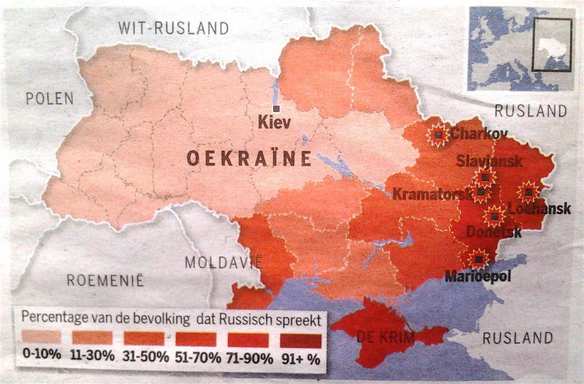

Houyet is een gemeente in de Belgische provincie Namen. De gemeente telt ruim 4500 inwoners.
Deelgemeenten: Ciergnon, Finnevaux, Hulsonniaux, Mesnil-Église, Mesnil-Saint-Blaise, Celles, Custinne, Hour en Wanlin.
chateau en hotel
kasteel van Ciergnon

(Moscow) – The Azerbaijani government should immediately end a hostile campaign of intimidation against writer Akram Aylisli. Aylisli recently published a controversial novel depicting relationships between ethnic Azeris and Armenians in Azerbaijan.
Foreign governments and intergovernmental organizations of which Azerbaijan is a member should speak out against this intimidation campaign. They should urge the authorities to immediately investigate those responsible for threats against Aylisli, and to respect freedom of expression.
“The Azerbaijani authorities have an obligation to protect Akram Aylisli,” said Hugh Williamson, Europe and Central Asia director at Human Rights Watch. “Instead, they have led the effort to intimidate him, putting him at risk with a campaign of vicious smears and hostile rhetoric.”
Aylisli, a member of the Union of Writers of Azerbaijan since the Soviet era, is the author of Stone Dreams. The novel includes a description of violence by ethnic Azeris against Armenians during the 1920s, and at the end of the Soviet era, when the two countries engaged in armed conflict. Aylisli told Human Rights Watch that he saw the novel as an appeal for friendship between the two nations. The novel was published in Friendship of Peoples, a Russian literary journal, in December 2012.
Azerbaijan and Armenia fought a seven-year war over Nagorno-Karabakh, a primarily ethnic Armenian-populated autonomous enclave in Azerbaijan. Despite a 1994 ceasefire, the conflict has not yet reached a political solution. Against the background of the unresolved nature of the conflict, Aylisli’s sympathetic portrayal of Armenians and condemnation of violence against them caused uproar in Azerbaijan. An escalating crescendo of hateful rhetoric and threats against Aylisli started at the end of January 2013, culminating in a February 11 public statement by Hafiz Hajiyev, head of Modern Musavat, a pro-government political party. Hajiyev publicly said that he would pay AZN10,000 [US$12,700] to anyone who would cut off Aylisli’s ear.
“Azerbaijan’s authorities should immediately investigate and hold accountable anyone responsible for making threats against Aylisli, and ensure his personal safety,” Williamson said.
On January 29, officials from the Yeni Azerbaijan, Azerbaijan’s ruling party, publicly called on Aylisli to withdraw the novel and ask for the nation’s forgiveness. Aylisli told Human Rights Watch that two days later, a crowd of about 70 people gathered in front of his home, shouting “Akram, leave the country now,” and “Shame on you”, and burned effigies of the author. Witnesses told Human Rights Watch that police were present but made no effort to disperse the crowd. No damage was done to Aylisli’s home.
In a speech about Aylisli’s book, a high level official from Azerbaijan’s presidential administration said that, “We, as the Azerbaijani people, must express public hatred toward these people," a comment that appeared aimed at Aylisli.
During a February 1 session, some members of Azerbaijan’s parliament denounced Aylisli, called for him to be stripped of his honorary “People’s Writer” title and medals, and demanded that he take a DNA test to prove his ethnicity. On February 7, President Ilham Aliyev signed a decree stripping Aylisli of the title, which he had held since 1998, and cutting off his presidential monthly pension of AZN1000 [US$1,270], which he had drawn since 2002. Aylisli learned of the presidential decree from television news.
In the wake of the public vitriol, Aylisli’s wife and son were fired from their jobs. On February 4, a senior officer at Azerbaijan’s customs agency forced Najaf Naibov-Aylisli, Aylisli’s son, to sign a statement that he was “voluntarily” resigning from his job as department chief. Aylisli told Human Rights Watch his son had received no reprimands during his 12 years on job.
“My son had nothing to do with politics,” Aylisli said. “In fact he always advised me not to write about politics and never agreed with my political views.”
On February 5, Aylisli’s wife, Galina Alexandrovna, was forced to sign a “voluntary” statement resigning from her job at a public library, following an inspection announced several days before.
Public book burnings of Aylisli’s works, some organized by the ruling party, have taken place in several cities in Azerbaijan.
“The government of Azerbaijan is making a mockery of its international obligations on freedom of expression,” Williamson said. “This is shocking, particularly after Azerbaijani officials flocked to Strasbourg last month to tout the government’s human rights record at the Council of Europe.”
The European Court of Human Rights has issued numerous rulings upholding the principle that freedom of speech also protects ideas that might be shocking or disturbing to society. In a judgment handed down against Azerbaijan, in a case that dealt speech related to the Nagorno Karabakh conflict, the court said, “[F]reedom of information applie[s] not only to information or ideas that are favorably received, but also to those that offend, shock or disturb.”

Vooral de naam van Robert Bourgi - die Foccart als mentor had - is belangrijk als go between tussen het Elysée en de Afrikaanse staten. Hij werd ingeschakeld door Nicolas Sarkozy.
Te onthouden: vanaf 2000 nemen de captains of industry het over van het Elysée.
Te onthouden: Nigeria heeft uranium.
De grote rol van Gabon en president Omar Bongo in de Franse (sic!) politiek.
In 1994 ontploft de affaire ELF; de onderzoeksrechter is Eva Joly.
De rol van BIDERMANN Textiles in de affaire ELF.
In 1997 sterft Foccart.
Te onthouden: de meeste presidenten van de FranceAfrique behoren tot de loge.
Onthoudt ook de naam van Vincent Bolloré.
L'espace « françafricain »
Afrique francophone. Population de 363 millions en 201312. Population prévue entre 785 millions13 et 814 millions12 en 2050.
14,15
Pays considérés comme francophones
Pays non francophones mais membres ou Observateurs de l'OIF
Les pays considérés comme appartenant à des degrés divers à la « Françafrique » sont les anciennes colonies françaises en Afrique subsaharienne, à savoir :
En Afrique de l'Ouest : Sénégal, Côte d'Ivoire, Burkina Faso, Togo, Bénin, Niger, Mali
En Afrique centrale : République du Congo, Gabon, Tchad, République centrafricaine, Cameroun
Dans l'océan Indien et la corne de l'Afrique : Comores, Madagascar, Djibouti

BRUSSEL
07/2/2012© BRUSSELNIEUWS.BE
Bart Dewaele
De Koninklijke Schenking vangt sinds 2010 asielzoekers op in de conciërgewoning van het kasteel van de koning in Ciergnon. Het is echter het OCMW dat de opvang betaalt.
Dat schrijft knack.be.
Sinds 2010 huisvest de koning asielzoekers in de conciërgewoning van zijn kasteel in Houyet. Er is plaats voor vier mensen, meestal gaat het om gezinnen. Dat raakte vorige week bekend naar aanleiding van de opvangcrisis in de daklozensector.
Nu blijkt dat de Koninklijke Schenking daarvoor zelf geen kosten draagt. Die worden betaald door het OCMW van Houyet. Dat antwoordde premier Di Rupo (PS) in de Commissie Binnenlandse Zaken dinsdag op een vraag van parlementslid Theo Francken (N-VA).
Het OCMW betaalt dus voor water, elektriciteit en andere leefkosten. Het gebouw wordt wel zonder huur ter beschikking gesteld van het OCMW, dat het in beheer heeft.


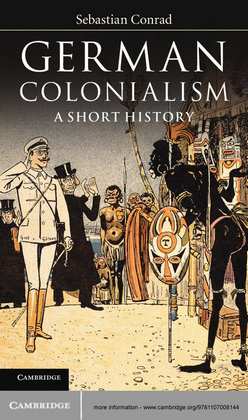 Germany was a latecomer to the colonial world of the late nineteenth century but this history of German colonialism makes clear the wide-reaching consequences of Germany's short-lived colonial project. Sebastian Conrad charts the expansion of the empire from its origins in the acquisition of substantial territories in present day Togo, Cameroon, Namibia and Tanzania to new settlements in East Asia and the Pacific and reveals the colonialist culture which permeated the German nation and its politics. Drawing on the wider history of European expansion and globalisation he highlights the close interactions and shared vocabularies of the colonial powers and emphasises Germany's major role in the period of high imperialism before 1914. Even beyond the official end of the empire in 1919 the quest for Lebensraum and the growth of the Nazi empire in Eastern Europe can be viewed within a framework of colonialism whose effects resonate to the present day.
Germany was a latecomer to the colonial world of the late nineteenth century but this history of German colonialism makes clear the wide-reaching consequences of Germany's short-lived colonial project. Sebastian Conrad charts the expansion of the empire from its origins in the acquisition of substantial territories in present day Togo, Cameroon, Namibia and Tanzania to new settlements in East Asia and the Pacific and reveals the colonialist culture which permeated the German nation and its politics. Drawing on the wider history of European expansion and globalisation he highlights the close interactions and shared vocabularies of the colonial powers and emphasises Germany's major role in the period of high imperialism before 1914. Even beyond the official end of the empire in 1919 the quest for Lebensraum and the growth of the Nazi empire in Eastern Europe can be viewed within a framework of colonialism whose effects resonate to the present day.'With its many excellent illustrations and maps, its annotated critical bibliography and its acute awareness of historiographical trends, it is a model of its kind, providing an essential guide to the subject and intelligent pointers for further research.' London Review of Books

2Voici donc une brève histoire de la Ve République sous la forme d’un name dropping de candidat(e)s à la présidentielle qui s’inscrit dans les concaténations d’un système politique qui les dépasse et les produit.
1965. Terra incognita
3Tout commence bien sûr en 1962. La France se dote pour la seconde fois de son histoire de l’élection au suffrage universel direct du président de la République. C’est peu dire que les partis politiques accueillent la nouveauté avec méfiance, voire perplexité. Le funeste précédent louis-napoléonien n’y est pas pour rien.
4Certains sentent cependant qu’un coup peut être joué. Différents groupes socioprofessionnels – les « forces vives de la Nation » – chaperonnés par des hauts fonctionnaires « modernisateurs » regroupés, pour beaucoup, au sein du Club Jean Moulin, ont décidé de se lancer dans la bataille de l’élection présidentielle. Non pas pour gagner, mais pour empêcher sa neutralisation par la candidature de personnalités de second rang – stratégie envisagée par
5Guy Mollet, le patron de la sfio – et pérenniser ainsi la pratique présidentialiste du nouveau régime où ils voient la promesse de réaliser leur projet d’une « démocratie économique ». Et voilà qu’en septembre 1963 entre en lice leur champion : Monsieur X, alias Gaston Defferre, le maire socialiste de Marseille. Le premier candidat à la première élection présidentielle de la Ve République prend de vitesse la sfio et le mrp, et s’essaie durant presque deux années à une recomposition des forces politiques à gauche, laissant de côté les communistes électoralement affaiblis mais surtout encore politiquement « infréquentables ». Il y voit un préalable à sa candidature alors que d’autres, mais plus tard, comprendront qu’une candidature présidentielle peut être un point de départ à une telle entreprise. Mais ni la sfio ni le mrp n’acceptent de se plier aux exigences de cette recomposition. La tentative de créer, en juin 1965, une fédération pouvant réunir socialistes et démocrates-chrétiens derrière le candidat Defferre sonne le glas de ce coup de force contre les appareils partisans. Privé de soutiens, Gaston Defferre ne peut alors que se retirer de la compétition. À six mois de la présidentielle – cela paraît stupéfiant vu d’aujourd’hui –, il n’y a plus de candidats crédibles à l’élection présidentielle.
6Dans cet espace politique vide, certains profitent de l’aubaine : l’avocat d’extrême droite Jean-Louis Tixier-Vignancour, accompagné de son lieutenant Jean-Marie Le Pen, promène son chapiteau dans toute la France pour rameuter les nostalgiques de la France de Vichy et de l’Algérie française ; le sénateur Pierre Marcilhacy, candidat d’une droite libérale, inconnu du grand public, préconise une présidence arbitrale ; Marcel Barbu se présente comme le porte-parole des « chiens battus » et défend des causes alors peu audibles (référendum d’initiative populaire, création d’un ministère des Droits de l’homme, etc.).
7Pas de candidat chez les communistes, pas de candidat chez les radicaux et les centristes, pas de candidat chez les indépendants – dont la figure tutélaire, Antoine Pinay, vient de se retirer de la vie politique –, pas de candidat chez les socialistes – Guy Mollet y veille... Reste la figure de Pierre Mendès France. Mais ce dernier est hostile et au nouveau régime et à l’élection directe du président de la République. Alors, début septembre, surgit François Mitterrand, seul ou presque, à peine accompagné d’une poignée de fidèles regroupés dans une Convention des institutions républicaines. À défaut de faire consensus, sa candidature ne gêne personne à gauche. Il précise même qu’il ne négociera avec personne, et le voilà qui rafle la mise des soutiens radicaux, socialistes et... communistes. Le soutien du pcf à François Mitterrand est la goutte d’eau qui fait déborder le vase démocrate-chrétien. En octobre 1965, après un mois de réflexion, Jean Lecanuet, le président du mrp, se lance également dans la bataille.
8Pour cette première élection présidentielle, les commentateurs attendent bien sûr le général de Gaulle. En septembre, lors d’une conférence de presse, il a refusé de se prononcer. C’est fait le 4 octobre, au cours d’une allocution télévisée. Nous sommes à un mois et un jour du premier tour de l’élection. Fidèle à son personnage, mais aussi à la conception qu’il se fait de cette élection, c’est à une sorte de plébiscite qu’invite le général de Gaulle. « Moi ou le chaos », titrera la presse le lendemain.
9Les six candidats à la première élection présidentielle de la Ve République vont alors – comme les Français – aller de découverte en découverte : celle d’une campagne télévisée (en noir et blanc) où tous sont à égalité de temps d’antenne – mais à laquelle le général de Gaulle ne veut pas s’abaisser ; celle des sondages, qui indiquent assez vite la mise en ballottage du président sortant – au point que de Gaulle va finalement se décider à utiliser son temps de parole ; celle de la personnalisation de la vie politique. Au lendemain du second tour – et sans doute grâce à ce second tour –, chacun a compris qu’être candidat à l’élection présidentielle c’est avoir rendez-vous avec l’Histoire.
1969. L’apprentissage sans la figure du Commandeur
10Le 28 avril 1969, le général de Gaulle annonce sa démission. La deuxième élection présidentielle se déroule dans le tempo très bref que fixe la Constitution en cas de vacance de la présidence de la République.
11En dépit de la surprise, tout est déjà presque en place, acteurs et décor. L’élection de 1969 s’est en effet jouée pour partie au printemps et à l’été 1968. François Mitterrand s’est brûlé les ailes en annonçant sa candidature dans le feu des événements de Mai, et les appareils de la sfio et du parti radical en profitent pour torpiller la Fédération de la gauche démocrate et socialiste qu’il préside. Exit donc Mitterrand. Le Parti communiste, fortement bousculé par Mai 68, porte le fardeau de l’invasion estivale de la Tchécoslovaquie par l’Union soviétique. Il doit jouer en solo s’il veut exister, quitte à trouver un candidat – Jacques Duclos – dont la faconde, l’accent rocailleux du Sud-Ouest et le pedigree d’ancien combattant de Verdun et de résistant atténuent le curriculum de parfait stalinien. La sfio a traversé Mai 68 sans rien y comprendre, et n’a toujours pas assimilé l’enjeu de l’élection présidentielle. Plus occupée par le ripolinage de sa façade – elle deviendra « parti socialiste » en juillet 1969 –, elle se laisse imposer la candidature de Gaston Defferre, qui s’adjoint ensuite Pierre Mendès France pour une sorte de « ticket » incompréhensible et fort éloigné de « l’esprit » de la Ve République. Surtout, cette candidature n’occupe pas tout l’espace de la gauche non communiste. À sa gauche, le sémillant Michel Rocard, énarque au débit de mitraillette, mais bien dans l’air du temps soixante-huitard, est le candidat du psu, lequel est flanqué à sa gauche par l’improbable Alain Krivine, choisi par la lcr sans que l’intéressé n’ait eu son mot à dire, alors même qu’il vient d’être incorporé sous les drapeaux au sortir d’une peine de prison liée à son activité « révolutionnaire ». Ce qui vaudra d’ailleurs son heure de gloire (constitutionnelle) à un autre candidat, Louis Ducatel, entrepreneur en travaux publics aussi triste que Marcel Barbu pouvait être original, qui contestera (en vain) devant le Conseil constitutionnel la candidature du soldat Krivine. Mais c’est surtout au centre gauche, et y compris au sein de la sfio, que la candidature de Gaston Defferre ne mobilise pas. Les radicaux, comme bon nombre de socialistes en sous-main, et bien sûr des démocrates-chrétiens, soutiennent le centriste Alain Poher, président de la République par intérim, qui bénéficie du fiasco du référendum qui devait faire disparaître le Sénat dont il est le nouveau président. Si ce dernier hésite longuement – il ne se déclarera qu’à moins de trois semaines du premier tour –, les sondages emportent la décision en lui prédisant la victoire au second tour... À droite, bien sûr, Georges Pompidou a gagné, dans la tempête de Mai mais aussi dans le raz-de-marée gaulliste des législatives de juillet, ses galons d’héritier et de successeur, même s’il est mis brutalement en réserve de la République par le général de Gaulle. Il capitalise également le rôle central qu’il s’est octroyé lors des législatives de 1967 : pour la première fois dans l’histoire de la République, un chef de gouvernement est le chef d’une majorité parlementaire qu’il réussit à reconduire en la menant au combat électoral. Une majorité étonnement disciplinée au regard des pratiques antérieures : en dépit de dissensions entre les républicains indépendants et les gaullistes, l’unité de candidature est réalisée dans chaque circonscription. Au lendemain de la démission du général de Gaulle, en dépit des tergiversations de Valéry Giscard d’Estaing qui, faute d’être candidat, voudrait solliciter celle de son ancien mentor Antoine Pinay, Georges Pompidou reçoit le soutien des cadres giscardiens et rallie une partie des troupes du Centre démocrate créé par Jean Lecanuet, appliquant une partie de la martingale de l’élection présidentielle : au premier tour, on rassemble son camp.
1974. Au cœur de la Ve République bipolarisée
12Cette fois, c’est la mort du président en exercice... Encore une élection anticipée, encore une élection organisée dans la précipitation, mais peut-être la première « vraie » élection présidentielle de la Ve République. Tous ont compris que l’avenir politique se jouait là, et que la valeur du trophée présidentiel valait bien une restructuration de grande ampleur du système de partis et des alliances électorales.
13François Mitterrand s’est emparé en 1971 du nouveau Parti socialiste avec l’objectif d’unifier la gauche non communiste, de jouer pleinement le jeu de la présidentialisation du régime et d’adopter une stratégie d’union de la gauche avec les communistes. En 1972, c’est la signature d’un programme commun de gouvernement qui rassemble communistes, socialistes et radicaux « de gauche ». Cette nouvelle donne n’est pas sans effets à droite. C’est ainsi que le rapprochement entre la majorité pompidolienne et les centristes s’accélère, en 1972, à l’occasion du référendum sur l’élargissement des Communautés européennes.
14Lors des élections législatives de 1973, la discipline républicaine joue à plein à gauche. Socialistes et radicaux de gauche constituent une Union de la gauche démocrate et socialiste (ugds). L’ugds, le pcf et le psu concluent un accord de désistement automatique pour le second tour. La gauche obtient ainsi 46,6 % des suffrages, qui se répartissent de façon équilibrée entre le pc (21,55 %) et l’ugds (21,3 %). La droite aussi part aux élections de façon ordonnée. La majorité se rassemble dans une « Union des républicains de progrès pour le soutien au président de la République », qui présente un candidat unique dans 405 des 473 circonscriptions sur la base d’un programme présenté par le Premier ministre, Pierre Messmer. La majorité retrouve son niveau de 1967 au premier tour (37 %), et ne doit sa victoire qu’aux 13,25 % des électeurs du centre « d’opposition » qui, cette fois, basculent du côté de la majorité, à l’appel de Jean Lecanuet qui veut faire barrage à la coalition socialo-communiste. Le rapprochement entre la majorité pompidolienne et le centre est scellé.
15Nous sommes là dans une configuration qui s’est clairement bipolarisée. Cette bipolarisation va-t-elle résister à l’élection présidentielle imprévue ? À gauche, la solidité de l’union se vérifie tout de suite. Le Parti communiste renonce à présenter un candidat, sans doute pour empêcher François Mitterrand de se « recentrer ». L’ensemble des partis de gauche, mais aussi des syndicats ouvriers (cgt et cfdt), appelle à la candidature de François Mitterrand. À droite, en revanche, la bataille de succession est féroce, alors même que le parti gaulliste est déjà secoué par de fortes divisions qui opposent barons du gaullisme et « pompidoliens », mais aussi conservateurs et progressistes. Après bien des épisodes, retournements de veste, « trahisons » (celle du ministre de l’Intérieur gaulliste Jacques Chirac au profit de Valéry Giscard d’Estaing sera la plus spectaculaire), vraies-fausses candidatures (Edgar Faure, Pierre Messmer, Christian Fouchet), deux candidats principaux restent en lice : Jacques Chaban-Delmas et Valéry Giscard d’Estaing.
16Trois candidats pour gagner : un à gauche, deux à droite. Mais aussi neuf candidats pour... s’exprimer (deux candidats supplémentaires ont été invalidés par le Conseil constitutionnel : l’un n’était pas éligible, l’autre n’avait pas recueilli suffisamment de parrainages). Pour la première fois se vérifie la « règle » de la proportionnalisation de l’élection présidentielle. Contrairement à une idée reçue, il n’y a pas ici d’exception française. Comme le montre l’analyse politique comparée [1]
[1]
Matthew S. Suhugart, John M. Carey, Presidents and Assemblies :…, une élection nationale majoritaire à deux tours finit toujours, pour reprendre la jolie expression d’Olivier Duhamel, par transformer le premier tour en « forum proportionnel » [2]
[2]
Olivier Duhamel, Histoire des présidentielles (Seuil, 2008) que….
17Certains candidats-figurants ne laisseront pas de traces dans les mémoires. C’est le cas de l’avocat Jean-Claude Sebag, soutenu par le Mouvement fédéraliste européen, du professeur de droit Guy Héraud qui défend un socialisme autogestionnaire, du socialiste anticommuniste Émile Muller, ou encore de Bertrand Renouvin, le plus original, à la fois royaliste, gauchiste et gaulliste. Jean Royer marquera un peu plus les esprits en menant une campagne de défense de l’ordre moral, fustigeant la pornographie, et dont la publicité est assurée par le harcèlement constant de militants libertaires. L’agronome René Dumont inaugure une longue série de candidatures écologistes, et le candidat au pull rouge et au verre d’eau entrera ainsi au panthéon de l’écologie politique pour les générations futures. Alain Krivine est désormais flanqué d’une nouvelle candidate des « travailleuses, travailleurs », Arlette Laguiller, la plus célèbre employée du Crédit Lyonnais, qui inaugure le mano a mano présidentiel des familles trotskystes, lcr vs lo. Enfin Jean-Marie Le Pen commence ici aussi sa longue aventure de candidat à la présidentielle.
1981. Le produit du quadrille bipolaire
18On connaît l’image du « quadrille bipolaire » utilisée pour décrire l’aggiornamento du paysage partisan au cours des années 1970, dont l’expression électorale la plus aboutie a été donnée par les législatives de 1978. La quatrième présidentielle en est le produit : un système de partis bipolarisé – le centre a disparu – avec une compétition féroce pour le leadership au sein de chaque pôle, qui se donne à voir aussi comme une guerre des chefs. La guerre des droites est brutale, elle se joue quotidiennement au Parlement à partir de la démission de Jacques Chirac de son poste de Premier ministre, oblige à des restructurations partisanes (le rpr succède à l’udr en 1976 pour servir la carrière de son président, l’udf fédère les soutiens de VGE à partir de 1978), se rejoue à chaque scrutin (en emportant Paris lors des municipales de 1977, Jacques Chirac gagne une manche importante, mais perd sévèrement lors des européennes de 1979 face à la liste conduite par Simone Veil). À gauche, la division n’est pas moindre. L’union de la gauche s’est avérée une stratégie électoralement payante (« belle défaite » de 1974, succès des cantonales et des municipales qui suivent). Mais le renforcement du Parti socialiste qui, depuis les « assises du socialisme » en octobre 1974, rallie à lui des anciens du psu (comme Michel Rocard), beaucoup de militants issus de mouvements chrétiens de gauche (comme Jacques Delors), et fait jeu égal avec les communistes dans l’électorat ouvrier, inquiète justement le Parti communiste. L’actualisation du programme commun de 1972 conduit à la rupture de l’union de la gauche en septembre 1977. Pour la première fois, lors des législatives de 1978, le ps devance le pc, accentuant les préventions de ce dernier. On sait alors qu’il y aura quatre candidats lors de l’élection présidentielle de 1981, un pour chacune des formations du « quadrille » : Valéry Giscard d’Estaing, Jacques Chirac, Georges Marchais et... La seule incertitude vient du Parti socialiste. Au lendemain des législatives, Michel Rocard est devenu le favori des sondages. Mais, au début des années 1980, le verdict sondagier peut être encore contrecarré par la maîtrise de l’appareil partisan. François Mitterrand s’y emploie et obtient une nette victoire contre le tandem Rocard-Mauroy lors du congrès de Metz d’avril 1979. Michel Rocard ne renonce pas pour autant. Il annonce sa candidature en octobre 1980 tout en précisant qu’il pourrait reconsidérer sa position si... François Mitterrand était candidat. Moins d’un mois plus tard, ce dernier est officiellement candidat. La messe est dite.
19Avec la loi organique de juin 1976, les conditions de la candidature à la présidentielle ont été durcies : il faut dorénavant 500 parrainages (contre 100 auparavant), émanant d’au moins 30 départements (contre 10) sans qu’un dixième d’entre eux provienne du même, et ces parrainages sont désormais publics (ce qui renforce le contrôle des partis sur les candidatures). Mais cela n’empêche pas la floraison de candidatures : 57. Certains ne font qu’un petit tour avant de renoncer. C’est le cas de Coluche, éphémère candidat pourtant crédité de 12,5 % des intentions de vote fin 1980. D’autres durent plus longtemps, comme l’ancien ministre des Affaires étrangères pompidolien Michel Jobert, qui finira par soutenir Mitterrand, ou encore l’ancien député exclu du pcf qui n’est pas encore devenu islamiste-négationniste Roger Garaudy, ou encore l’associatif multi-casquettes Jean-Claude Delarue. Des anciens candidats à la présidentielle se heurtent également à la contrainte des 500 parrainages, comme Alain Krivine ou Jean-Marie Le Pen. Mais d’autres passent entre les mailles du filet : l’ancien Premier ministre Michel Debré et l’ancienne conseillère pompidolo-chiraquienne Marie-France Garraud pour la droite ; Huguette Bouchardeau pour le psu et Michel Crépeau pour les radicaux de gauche. Arlette Laguiller est seule à représenter les familles trotskystes, tandis que Brice Lalonde est cette fois le porte-parole des écologistes. Conséquence de cet éparpillement, pour la première fois les deux candidats arrivés en tête au premier tour ne totaliseront pas à eux deux 50 % des électeurs inscrits (de Gaulle et Mitterrand avaient rassemblé 64 % du corps électoral en 1965).
1988. Sans surprises
20La première élection consécutive à une cohabitation en porte la trace. Deux candidats naturels, sans suspense : le président de la République et le Premier ministre sortants dont la lutte feutrée accapare depuis 1986 toute l’attention des médias. Elle porte aussi la trace de la fin du « quadrille bipolaire ». Le pc dont le déclin électoral s’accentue d’élection en élection a délégué André Lajoinie pour faire acte de présence, concurrencé par un ancien communiste, Pierre Juquin, qui reçoit le soutien hétéroclite de la lcr et du psu ; Arlette Laguiller poursuit son show bien rodé, à peine troublée par un nouveau venu trotskyste, Pierre Boussel du Mouvement pour un parti des travailleurs. L’environnementaliste André Waechter représente le nouveau parti Vert, créé en 1984, sur une ligne ni gauche ni droite. Raymond Barre porte les espoirs de ce qui reste de giscardisme, paraît même pouvoir l’emporter à droite jusqu’au début de la campagne, mais souffre de l’éclatement de l’udf, des réticences du Parti républicain de François Léotard et du silence assourdissant de Valéry Giscard d’Estaing. Cette fois Jean-Marie Le Pen a réussi à être candidat. Aux européennes de 1984, le Front national a fait presque jeu égal avec la liste du Parti communiste, en 1986 il a obtenu 35 députés grâce au scrutin à la proportionnelle. Premier entré en campagne, débarrassé du bandeau noir qui lui masquait un œil, il est maintenant dans la cour des grands. Pour longtemps...
1995. La guerre des chefs
21La réélection de François Mitterrand a ouvert une période erratique de la vie politique. Pensée comme le pivot structurant et stabilisant de la Ve République, l’élection présidentielle ne semble plus jouer son rôle face à ce qui se donne à voir comme une série de dérèglements du jeu politique. Pis, elle pourrait les aggraver.
22La dynamique de la présidentielle de 1988 a été insuffisante pour assurer à François Mitterrand une majorité autre que relative lors des législatives anticipées qui suivent. Le parti présidentiel se déchire au congrès de Rennes de 1990, incapable de régler la question du leadership post-mitterrandien, avec à la clef bien sûr une future candidature à l’Élysée. La ratification référendaire du traité de Maastricht, en 1992, aggrave les divisions à gauche, même si elle bouleverse tout autant la droite. La sévère défaite socialiste aux législatives de 1993 ouvre de nouveau une période de cohabitation. Michel Rocard s’empare du ps pour buter sur l’obstacle des européennes en 1994, où la liste qu’il conduit peine à devancer celle de... Bernard Tapie. Dernier petit tour de piste de l’éternel rival de François Mitterrand, et nouvel épisode de la valse des premiers secrétaires du ps (ils seront quatre à se succéder de 1988 à 1995 : Pierre Mauroy, Laurent Fabius, Michel Rocard, Henri Emmanuelli), potentiels candidats à la fonction suprême, sans compter quelques outsiders toujours à l’affût comme Jack Lang et, déjà, Ségolène Royal. Lors du congrès de Liévin, le ps a modifié la procédure de désignation de son candidat ; désormais il doit être élu directement par les adhérents. Nul ne pense l’utiliser puisque les socialistes se sont trouvé un candidat providentiel, venu de Bruxelles, assuré par les sondages d’une éclatante victoire : Jacques Delors. Un candidat qui pourrait permettre au Parti socialiste de trouver au centre droit les voix que ne rapporte plus, sur son flanc gauche, le Parti communiste. Mais Delors renonce et le mécanisme de Liévin s’avère providentiel. Jospin l’emporte sur le premier secrétaire en fonction, Henri Emmanuelli. Contre la logique de l’appareil, ce sont les militants qui auront eu le dernier mot. La leçon sera retenue.
23À droite, l’accalmie est de courte durée. Et quand le conflit va naître ce sera au sein d’une fratrie et non pas entre cousins plus ou moins éloignés. Jacques Chirac, qui a renoncé à Matignon, se fait doubler par son « ami de trente ans » Édouard Balladur. C’est la guerre au sommet au rpr – avec la violence extrême des histoires de famille –, une histoire d’hommes qui est grosse d’une recomposition partisane tant le conflit déstructure plus encore l’udf par capillarité, alors même que Valéry Giscard d’Estaing, de retour, essaie en vain d’y imposer son autorité. Charles Pasqua, ministre de l’Intérieur, soutien d’Édouard Balladur, propose sans succès en septembre 1994 un système de primaires à droite. Arc-bouté sur son pré carré partisan, le candidat Jacques Chirac défie l’élu des sondages. Parti politique contre sondages, cet ingrédient-là de la compétition présidentielle au moins reste stable.
24Tout comme le cortège des seconds couteaux qui jouent les figurants. Cette fois, ils sont six : Arlette Laguiller que l’on ne présente plus à sa quatrième participation, Robert Hue le sympathique nouveau patron « rénovateur » du Parti communiste, Dominique Voynet qui commence à consolider l’ancrage à gauche des Verts, l’ex sous-préfet organisateur de spectacles et vicomte Philippe de Villiers, l’inconnu Jacques Cheminade et le persévérant Jean-Marie Le Pen, qui n’inquiète toujours pas outre mesure.
2002. Au risque de l’émiettement
25Le résultat du premier tour de l’élection de 2002 en a écrasé la perspective et a fourni un nouveau concept au commentaire politologique, « le risque d’un 21 Avril ». Mais la première source d’étonnement est en amont : la capacité de Jacques Chirac à imposer sa candidature en dépit d’une série de revers jamais égalés. C’est bien sûr la dissolution ratée de 1997 qui conduit à la troisième cohabitation, mais c’est aussi l’échec du parti du président aux européennes de 1999 (la liste conduite par Nicolas Sarkozy se fait doubler par celle de Charles Pasqua et de Philippe de Villiers, et peine à dépasser celle de François Bayrou), son incapacité à contrôler le rpr (Michèle Alliot-Marie en est élue présidente contre le candidat de l’Élysée) et, ô combien symbolique, la perte de la mairie de Paris en 2001. Chirac, sans véritable rival à droite, une droite démembrée et exsangue... Les centristes (François Bayrou), les libéraux (Alain Madelin), les catholiques « sociaux » (Christine Boutin), les écologistes – de droite (Corinne Lepage) et même les chasseurs (Jean Saint-Josse) barbotent dans le grand bain présidentiel, mais ne forment qu’une cohorte de figurants sans grand relief.
26À gauche, l’étonnement est presque inverse : l’incapacité de l’homme fort, patron du pouvoir gouvernant depuis cinq ans, Lionel Jospin, à rassembler son camp, voire à se revendiquer de sa propre famille politique. « Le projet que je propose n’est pas socialiste », n’hésite pas à proclamer le Premier ministre socialiste adoubé par un congrès extraordinaire de son parti à la majorité écrasante de 99 % des suffrages... Laissons de côté l’étonnante fécondité présidentielle des familles trotskystes. Cette fois ils sont trois candidats, la doyenne Arlette Laguiller, bien sûr, Olivier Besancenot qui donne un coup de jeune altermondialiste à la lcr, et le mystérieux Daniel Gluckstein pour le micro-Parti des travailleurs. C’est du sein même de la gauche dite plurielle que vient la surprise, ou la démonstration de l’attraction irrésistible de la présidentielle. Ils sont tous sur la ligne de départ : Robert Hue pour le pc, Jean-Pierre Chevènement pour le mrc, Christiane Taubira pour le prg et Noël Mamère pour les Verts (après avoir éliminé Alain Lipietz pourtant désigné par une primaire interne). Entre un candidat socialiste qui n’est pas socialiste et ses amis de gouvernement qui n’existent qu’en le critiquant, la surprise était annoncée.
27L’émiettement... Même Jean-Marie Le Pen est flanqué du félon Bruno Mégret. L’élection présidentielle ne structure plus le paysage politique, elle le démantèle.
2007. Bis repetita (on ne reprend pas toujours les mêmes, mais on recommence)
28Les principaux challengers sont différents, beaucoup plus jeunes, nouveaux même si anciens dans la vie politique. Pour le reste, rien ne change. L’élection présidentielle semble être définitivement devenue un forum proportionnel, alors même que le 21 Avril hante tous les esprits. Les deux habitués trotskystes, Arlette Laguiller et Olivier Besancenot sont accompagnés cette fois par Gérard Schivardi du Parti des travailleurs qui se présente curieusement (et illégalement) comme le « candidat des maires ». À gauche, les « nonistes » au référendum sur la Constitution européenne de 2005 ont bien essayé de partir unis à la bataille, en vain. Marie-George Buffet représentera le Parti communiste mais n’empêchera pas la candidature de l’altermondialiste José Bové, cornaqué par une directrice de campagne écologiste. Il y a d’ailleurs pléthore de candidats potentiels chez les écologistes. Nicolas Hulot renonce au bénéfice de la signature de son pacte écologique, Antoine Waechter et Corinne Lepage faute d’obtenir les 500 parrainages. Dominique Voynet pour les Verts représentera donc seule cette mouvance. Le chasseur de service est bien là en la personne de Frédéric Nihous, tout comme la France éternelle et europhobe incarnée par Philippe de Villiers. Jean-Marie Le Pen ne peut pas ne pas être là, bien sûr. François Bayrou récidive, renonce heureusement à faire campagne à bord d’un bus au colza comme en 2002, et cherche à faire valoir sa prétention à être le principal opposant à « l’État-ump » – lui qui a perdu l’essentiel de ses troupes lors de l’opa du rpr sur l’udf au lendemain de la précédente présidentielle. C’est le candidat vedette des sondages, qui ne passe pas le premier tour mais est vainqueur au second... Nicolas Sarkozy a joué la carte maîtresse, celle de la conquête du parti, contre celle du prestige, Matignon, qu’il n’a d’ailleurs jamais eue en main. La chance – notamment le crash politique de Dominique de Villepin dans l’affaire du cpe – a fait le reste pour qu’il s’impose à droite. Ségolène Royal a réussi à allier le contournement partisan – médiatique, sondagier, organisationnel (avec son association Désirs d’avenir) – et le soutien majoritaire des cadres de l’appareil socialiste et des nouveaux adhérents à vingt euros pour imposer sa candidature face à Laurent Fabius et Dominique Strauss-Kahn.
29La seule nouveauté, et elle est de taille, tient en un mot : « primaires ». Encore raillée en 2006, quand elle faisait l’objet d’une proposition de loi déposée par les radicaux, voilà que la procédure des primaires – devant les adhérents, les sympathisants, demain le « peuple de gauche » (ou de « droite », qui sait) ? – est considérée comme le remède miracle à la maladie devenue chronique de la Ve République : candidater à la présidentielle. On peut en douter.
Notes
[1]
Matthew S. Suhugart, John M. Carey, Presidents and Assemblies : Constitutionnal Design and Electoral Dynamics, New York, Cambridge University Press, 1992 ; et Juan J. Linz, Arturo Valenzuela (éd.), The Failure of Presidential Democracy, Baltimore, Johns Hopkins University Press, 1994.
[2]
Olivier Duhamel, Histoire des présidentielles (Seuil, 2008) que l’on peut compléter par Michel Winock, L’Élection présidentielle en France, 1958-2007 (Perrin, 2e éd., 2008).
Mis en ligne sur Cairn.info le 14/11/2011


Verhofstadt zal in de Rvb van Exmar zetelen naast onder meer ex-Tractebelbaas Philippe Bodson (voorzitter), textielondernemer Philippe Vlerick en François Gillet (Sofina).
Verhofstadt is niet de eerste ex-premier die bestuurder wordt. Jean-Luc Dehaene nam al een aantal mandaten op. Hij is voorzitter bij Dexia en bestuurder bij Thrombogenics, Lotus Bakeries, Umicore en AB InBev. Voormalig premier Mark Eyskens was een tijd voorzitter van chemiebedrijf UCB.(belga)
Het wordt stilaan tijd om de mandaten in kaart te brengen.
De collusie tussen business en politiek is opvallend maar slecht gedocementeerd.

Pol Van Den Driessche
Wetsvoorstel tot de inrichting van een transparant systeem inzake de Civiele Lijst en de Koninklijke Schenking (4-1482)
(28-10-2009)
Ingediend door Pol Van Den Driessche en Els Schelfhout
TOELICHTING
Op 20 november 2008 werd naar aanleiding van enkele parlementaire vragen in de schoot van de Senaat een werkgroep opgericht die zich moest buigen over de dotaties aan leden van de Koninklijke familie. Tijdens de installatievergadering van 20 november 2008 werd beslist dat de werkgroep de werkwijze van het Bureau overneemt aangezien de vaste leden van de werkgroep eveneens lid zijn het Bureau.
De werkgroep vergaderde achter gesloten deuren en hoorde enkele nationale en internationale deskundigen: prof. H. Matthijs (VUB), mevr. K. Stangherlin, prof. A. Alen (KULeuven), prof. M. Verdussen (UCL), prof. W. Konijnenbelt (Univ. Amsterdam) en prof. Luis Maria Diez-Picazo (magistraat in het Spaanse Tribunal supremo).
Na elf werkgroepvergaderingen nam de werkgroep op 2 juli 2009 enkele aanbevelingen aan, gericht aan de regering, om het statuut van de dotaties aan leden van de Koninklijke familie te regelen.
Er wordt een abstract systeem van dotaties voorgesteld dat er uitziet als volgt:
- er wordt een dotatie toegekend aan de vermoedelijke troonopvolger vanaf 18 jaar waarbij onderscheid gemaakt wordt tussen het gedeelte dat dienst doet als kostenvergoeding en het gedeelte dat overeenkomt met een inkomen. De vermoedelijke troonopvolger vervult, zijn/haar taken in overleg met de regering;
- de mogelijkheid wordt gecrëeerd om de dotatie van de vermoedelijke troonopvolger bij huwelijk te verhogen of aan de echtgeno(o)t(e) een dotatie toe te kennen;
- er wordt een dotatie toegekend aan de overlevende echtgeno(o)t(e) van de Koning/Koningin en de vermoedelijke troonopvolger. De dotatie van de overlevende echtgeno(o)t(e) van de Koning/Koningin mag niet hoger zijn dan de dotatie van de vermoedelijke troonopvolger;
- er wordt een dotatie toegekend aan de Koning/Koningin op rust en zijn overlevende echtgeno(o)t(e);
- de bestaande dotaties van prins Laurent en prinses Astrid worden gerespecteerd;
- er wordt een regeling uitgewerkt inzake onverenigbaarheden voor het genot van een dotatie;
- er wordt een stelsel inzake bezoldiging voor taken van algemeen belang uitgewerkt;
- het toezicht op de dotaties gebeurt door de eerste Voorzitter van het Rekenhof. Elk jaar worden de bedragen van de voornaamste rubrieken van de dotaties bekend gemaakt samen met een verslag van de voornaamste activiteiten van algemeen belang van de Koninklijke familie.
Op het moment van de redactie van huidig wetsvoorstel heeft de regering nog geen wetgevend initiatief genomen om de aanbevelingen uit te voeren.
Met betrekking tot de Civiele Lijst en de Koninklijke Schenking werden er echter geen aanbevelingen gemaakt door de werkgroep. Deze onderwerpen kwamen echter wel ruim aan bod tijdens de bespreking in de werkgroep.
Reeds jarenlang wordt er in media en politiek gespeculeerd en gediscussieerd over de ‘werkelijke kostprijs’ van onze monarchie. Maar hoeveel bedraagt die kostprijs nu eigenlijk? Om de discussie te kunnen voeren op basis van betrouwbare en correcte gegevens, en niet op basis van emoties, en om de discussie uiteindelijk ook te kunnen beslechten, is het noodzakelijk dat er een grotere transparantie ontstaat met betrekking tot de kosten die verband houden met de monarchie. Een grotere transparantie zorgt voor een betere democratische controle en meer politieke stabiliteit. Deze transparantie kadert in de ‘monarchie nieuwe stijl’, een monarchie die beter beantwoordt aan de verwachtingen van de bevolking anno 2009 en beter gewapend is ten aanzien van de hedendaagse uitdagingen waaraan onze constitutioneel systeem wordt blootgesteld.
Huidig wetsvoorstel regelt daarom de transparantie met betrekking tot de Civiele Lijst en de Koninklijke Schenking.
Civiele Lijst – De Civiele Lijst kan worden omschreven als « de financiële middelen die ter beschikking gesteld worden van de Koning. Krachtens artikel 89 G.W. wordt de Civiele Lijst door de wet vastgesteld voor de duur van de Regering van elke Koning. Op die manier wordt ook de financiële onafhankelijkheid van de Koning t.a.v. het Parlement bewerkstelligd. »
In de memorie van toelichting van het wetsontwerp dat later de wet van 16 november 1993 is geworden, wordt de Civiele Lijst als volgt gedefinieerd: « het geheel der middelen die de Natie ter beschikking stelt van het staatshoofd om hem toe te laten in volledige morele en materiële onafhankelijkheid gestalte te geven aan de Koninklijke functie, zowel in het binnen als het buitenland. Ze bestaat enerzijds uit een éénmalig vast te stellen dotatie, en anderzijds uit het recht op het gebruik van de Koninklijke woningen, teneinde hem toe te laten met passende waardigheid en uitstraling de continue vertegenwoordiging van het land te verzekeren. »
De Civiele Lijst heeft een « sui generis » karakter en is sterk verbonden met het instituut van de Koning, als constitutioneel staatshoofd en als onderdeel van de uitvoerende macht. De goederen van de Civiele Lijst zijn vrij van enige bijdrage aan de Schatkist. Er moet geen belasting op worden betaald. Juridisch kan men de geldelijke middelen van de Civiele Lijst ook kwalificeren als een dotatie.
De Civiele Lijst voor de huidige vorst, Koning Albert II, werd vastgelegd in de wet van 16 november 1993 houdende vaststelling van de Civiele Lijst voor de duur van de regering van Koning Albert II, tot toekenning van een jaarlijkse en levenslange dotatie aan Hare Majesteit Koningin Fabiola en van een jaarlijkse dotatie aan Zijne Koninklijke Hoogheid Prins Filip.
De term ‘Civiele Lijst’ is een term die stamt uit het Verenigd Koninkrijk van de 17de eeuw en het jaargeld uitmaakt dat de schatkist toekent aan de Vorst om zijn/haar werkzaamheden te kunnen uitoefenen. Zowel de Franse Grondwet van 3 september 1791 als de Belgische Grondwet van 1831 (oud artikel 77 G.W.) namen het principe van de ‘Civiele Lijst’ over.
In 1965 is de indexering van de Civiele Lijst geïntroduceerd voor de Regering van Koning Boudewijn. Deze indexering wordt niet geacht strijdig te zijn met het principe van de eenmalige vaststelling door de wet van de Civiele Lijst, zoals voorzien in art. 89 G.W. Daarnaast werd de Civiele Lijst met ingang van 1994 driejaarlijks geherwaardeerd op grond van de evolutie van de reële lonen van de diensten van algemeen bestuur van de Federale Staat en van de toename van de werkgeversbijdragen inzake sociale zekerheid.
Ten gevolge van een wetswijziging van 22 december 2008 werd het systeem van indexatie gewijzigd. De wet voorziet dat de evolutie van de Civiele Lijst en de dotaties aan de diverse leden van het Koningshuis vanaf 1 januari 2009 worden gekoppeld aan de gezondheidsindex en niet langer aan de index der consumptieprijzen.
Het bedrag van de Civiele Lijst werd in 1993 vastgelegd op 244 miljoen frank en wordt betaald per trimester. Anno 2009 bedraagt het bedrag van de Civiele Lijst iets meer dan 10,5 miljoen euro.
Hierna treft men een vergelijkende tabel aan betreffende het bedrag van de Civiele Lijst sinds het ontstaan van de Belgische monarchie (in Belgische frank):
C.L. in toenmalige BEF In BEF 2000 Budget Staat In BEF 2000 einde regering Budget Staat
Leopold I 1831 2.751.450 729.134.250 3,35% 606.581.240 1,38%
1865
Leopold II 1865 3.300.000 727.513.890 1,661% 568.783.580 0,533%
1909
Albert I 1909 3.300.000 568.783580 0,533% - -
1926
1927 9.500.000 209.719.580 - 248.365.690 0.082%
1934
Leopold III 1934 12.000.000 313.725.090 0,104% 173.769.880 0,037%
1951
Boudewijn 1951 36.000.000 208.523.860 0,045% - -
1959
1960 42.000.000 219.931.790 - 241.757.970 0,012%
Albert II 1993 244.000.000 275.263.390 0,014% 284.900.000 0,015%
-
De Civiele Lijst voorziet dat de Koning de beschikking krijgt over de onroerende Kroongoederen (Koninklijke woningen) (Koninklijk Paleis van Brussel, het kasteel van Laken, de helft van het park van Laken en een pand in de Brederodestraat met de garages en ambtsappartementen van de chauffeurs) onder beding dat de Civiele Lijst wordt aangewend voor het inwendig onderhoud en de meubilering ervan. De Koninklijke familie heeft ook de beschikking over bepaalde onroerende goederen van de Koninklijke Schenking (infra). De brandstof nodig voor de verwarming van het paleis te Brussel wordt door de Federale Staat geleverd. Er wordt geen melding gemaakt van andere kosten die ten laste worden gelegd van de Federale Staat. Conform de redenering gemaakt in de wet van 16 november 1993 moeten alle andere kosten die betrekking hebben op de uitoefening van de functie van de Koning van de Civiele Lijst worden betaald. Uit de bovenstaande tabel kan men opmaken dat het bedrag van de Civiele Lijst aanzienlijk gestegen is voor de Regering van Koning Albert II ten aanzien van de Regering van Koning Boudewijn. Deze stijging werd door de toenmalige minister van Financiën MAYSTADT verantwoord als volgt: « Bij de bepaling van het bedrag van deze Civiele Lijst heeft de regering tevens rekening willen houden met het gegeven dat tijdens de regering van Koning Boudewijn I talrijke kosten aanzienlijk sneller zijn gestegen dan de kosten van levensonderhoud. Dat is met name het geval voor de loonkosten. »
Koninklijke Schenking – De oorsprong van de Koninklijke Schenking is terug te vinden in de Regeerperiode van Koning Leopold II. Onder meer door zijn zakelijke activiteiten in de voormalige kroonkolonie Kongo had deze een aanzienlijk vermogen opgebouwd. Omdat hij niet wenste dat het vermogen bij zijn dood zou overgaan op zijn twee spilzuchtige dochters en hun buitenlandse echtgenoten schonk hij in 1903 een groot deel van zijn onroerend vermogen aan de Belgische Staat. Aan de schenking zijn wel een aantal voorwaarden verbonden, zo mag onder meer de eigendom niet worden vervreemd, het karakter moet worden bewaard (oorspronkelijke functie en uitzicht) en het genotrecht van de goederen aan de Koninklijke familie moet worden verzekerd. De Koninklijke Schenking moet daarnaast zelfbedruipend zijn, dat wil zeggen dat de opbrengsten voldoende moeten zijn om de kosten te dekken. In 1930 werd om het patrimonium beter te kunnen beheren – het beheer was in de loop van de tijd immers over verschillende departementen verspreid – een openbare instelling opgericht onder toezicht van de minister van Financiën. De Koninklijke Schenking wordt beheerd door een beheerraad die bestaat uit 11 leden: vier dignitarissen of gewezen dignitarissen, een vertegenwoordiger van de rechterlijke macht, twee vertegenwoordigers van de respectievelijk openbare en private financiële sector, twee ambtenaren van respectievelijk het Vlaamse en Waalse bestuur, twee ambtenaren van de administratie van de B.T.W., Registratie en Domeinen. Het voorzitterschap wordt waargenomen door de Grootmaarschalk van het Hof. Begin 2008 werd Geert Noels, voormalig hoofdeconoom van het succesvolle beurshuis Petercam aangesteld als nieuwe bestuurder van de Koninklijke Schenking om wat ‘nieuw bloed’ te brengen in de overwegend ‘oude’ raad van bestuur van de Koninklijke Schenking.
De Koninklijke Schenking betreft een publieke instelling, en niet een privé-bezit. De Koninklijke Schenking valt als bestuurlijke overheid onder artikel 32 GW en onder de wet van 11 april 1994 betreffende de openbaarheid van bestuur.
De waarde van het patrimonium van de Koninklijke Schenking wordt op zo’n 450 à 480 miljoen euro geschat. In 2007 bleek dat de Koninklijke Schenking stelselmatig financieel tegenvallende resultaten boekt. De redenen hiervoor zouden slecht beheer zijn van het patrimonium van de Koninklijke Schenking. De gebouwen in de Europese wijk zouden verhuurd worden met erg nadelige huurcontracten, de huur- en pachtopbrengsten vallen sterk tegen en ook uit de roerende beleggingen wordt geen voldoende rendement behaald. Met een vastgoedportefeuille van een dergelijke omvang zou men er toch moeten kunnen in slagen om ten minste een ‘break even’ resultaat te boeken. In de laatste vijf jaar was de Koninklijke Schenking echter drie jaren verlieslatend waardoor er zelfs gebouwen verkocht moesten worden.
Met betrekking tot de Koninklijke Schenking bestaat er een groot gebrek aan transparantie. In zijn rapport van 2002 stelt het Rekenhof onder andere dat « er geen precieze en volledige inventaris of lijst bestaat van de roerende en onroerende goederen » en « dat het nagaan van het rendement van de gebouwen of de uitbating van het rendement van de gebouwen of de uitbating van het vermogen bij gebrek aan informatie niet mogelijk is. » De auditeur van het Rekenhof constateert dat « … het boekhoudsysteem van de Koninklijke Schenking, dat slechts een ontvangsten- en uitgavenrekening bevat overeenkomstig een koninklijk besluit dat van 1930 dateert, onvoldoende rekenschap geeft van de financiële en patrimoniale toestand van de instelling en niet langer beantwoordt aan de huidige verwachtingen inzake de aflegging van rekeningen en inzake transparantie. »
De Koninklijke Schenking zou uit de volgende goederen bestaan:
Onroerende goederen:
Huisvesting van Koning, Koningin en kroonprins:
Koninklijk Paleis van Brussel, Belvédèrekasteel (woning Koning Albert en Koningin Paola), het Kasteel van Laken, het park van Laken en de Koninklijke serres
Opm. Het Kasteel van Laken en het Koninklijk Paleis zijn staatseigendom
Woningen en buitenverblijven:
Kasteel Stuyvenberg, Villa Clementine, Kasteel van Ciergon, kasteel van Fenffe, kasteel van Villers-sur-Lesse
Goederen opengesteld voor het publiek:
Dudenpark Vorst, de Japanse toren en het Chinees paviljoen, Elisabethpark, het arboretum in Tervuren, de Kapel van Küssnacht, het herenhuis ‘Bellevue’, het domein te Raversijde
Verhuurde goederen:
Voormalige woning prinses Astrid aan de achterkant van het paleis van Brussel, woningen in Laken en in de Ardennen betrokken door personeelsleden, kasteel Ravenstein met golf, grond British school of Brussels, eerste Koninklijke residentie Langestraat te Oostende, de Golf van Klemskerke, Hertoginnedal, kasteel Narafi, sportstadion Royal Union, vijvers te Bosvoorde, Brussel Royal Yacht Club te Laken, Internossportclub in Strombeek-Bever, bioscoop Vendôme te Elsene, kantoorgebouw Coudenberg, kantoorgebouw Jan Jacobs, kantoorgebouw Quatre Bras, meer dan de helft van het grondgebied van Villers-sur-Lesse met inclusief een 7-tal boerderijen, 6.700 hectare Koninklijke domeinen in de Ardennen, landgoed van Ferage
Roerende goederen:
Portefeuille roerende goederen ter waarde van 300 miljoen euro.
Transparantie
Uit diverse onderzoeken en parlementaire vragen betreffende de Civiele Lijst, de inkomstenbronnen en uitgaven van het Koningshuis, de Koninklijke Schenking en de diverse activiteiten - waaronder de Koninklijke stichtingen en fondsen - blijkt dat het verkrijgen van een volledig, transparant en correct beeld van de diverse inkomstenbronnen van het Koningshuis en de wijze waarop deze worden besteed, allesbehalve een gemakkelijke opgave is.
Met betrekking tot de inkomsten en uitgaven van het Koningshuis wordt immers geen dubbele boekhouding bijgehouden. Daarnaast blijkt dat er in diverse hoekjes van de begroting van verschillende departementen nog wordt voorzien in inkomsten en het betalen van uitgaven voor het Koningshuis naast de Civiele Lijst. Via diverse constructies van stichtingen en VZW’s (o.a. de VZW ‘t KINT) wordt voorzien in bijkomende vormen van subsidiëring van bepaalde leden van het Koningshuis.
De totale kostprijs van de Belgische monarchie wordt op 17.800.000 euro geraamd zonder de Civiele Lijst en zonder de dotaties en ongeveer op 30.000.000 euro met de Civiele Lijst en de dotaties. De uitgaven in de verschillende departementsbegrotingen in verband met de Belgische Monarchie zouden de volgende zijn:
Binnenlandse Zaken 14-15 miljoen euro
(220 manschappen van de federale politie
die voor de veiligheid instaan)
Buitenlandse Zaken 981.000 euro
(Staatsbezoeken, officiële bezoeken, etc.)
Defensie 2 miljoen euro
(Gedetacheerde militairen, gebruik militaire
vliegtuigen)
Wetenschapsbeleid 598.000 euro
(Openstellen voor het publiek van het
Koninklijk Paleis)
Om voorgaande redenen wordt voor de Civiele Lijst een systeem ingevoerd dat vergelijkbaar is met het systeem van het Nederlandse staatsmodel.
In Nederland is een systeem van toepassing waarin alle andere kosten met betrekking tot het Nederlandse koningshuis, door andere departementen gemaakt, bekend gemaakt worden op een transparante wijze. Recent deed de stuurgroep Zalm, opgericht door de Nederlandse regering, enkele concrete aanbevelingen ten behoeve van de tweede Kamer met betrekking tot de transparantie van de kosten van de monarchie in de rijksbegroting. In het rapport wordt een onderscheid gemaakt tussen drie begrotingsposten, de eerste post betreft de uitkeringen en de twee andere posten betreffen functionele uitgaven van de Koningin en doorbelaste uitgaven van andere begrotingen. Het gaat hierbij om de uitgaven die een directe relatie hebben met de constitutionele Koning als staatshoofd. Van jaar tot jaar moet de hoogte ervan worden vastgesteld. Zij kunnen dus variëren maar men moet binnen die posten blijven.
In huidig wetsvoorstel wordt bepaald dat er in de algemene toelichting bij de begroting een gedetailleerd verslag wordt opgenomen waarin ‘alle’ uitgaven met betrekking tot de monarchie worden opgenomen. Het betreft niet enkel de uitgaven voor de Civiele Lijst en de dotaties maar ook de uitgaven opgenomen in de begroting van de diverse departementen ten behoeve van de monarchie worden in het verslag opgenomen, zoals uitgaven voor beveiliging, uitgaven voor staatsbezoeken, enz. De burger verkrijgt op deze wijze ook de transparantie die hij/zij verdient: de uitgaven voor het Koningshuis – al dan niet via de Civiele Lijst – worden immers betaald door de belastingbetaler, dat komt de politieke stabiliteit ten goede. Ten slotte moet een volledig en transparant beeld van de inkomsten- en uitgavenstromen het voor de Wetgevende Kamers ook mogelijk maken om het bedrag van de Civiele Lijst met kennis van zaken te kunnen beoordelen op het ogenblik dat een nieuwe vorst aantreedt.
Voor wat de Koninklijke Schenking betreft wordt in het wetsvoorstel voorzien dat de inkomsten, de uitgaven en alle activa van de Koninklijke Schenking het voorwerp uitmaken van een systeem van dubbel boekhouden. Daarnaast moet er een jaarrekening worden opgesteld die moet worden gecontroleerd door het Rekenhof en vervolgens overgemaakt aan de Wetgevende Kamers. Op deze wijze verkrijgt men een volledig en transparant beeld op het patrimonium en het beheer van de Koninklijke Schenking.
ARTIKELSGEWIJZE TOELICHTING
Art. 1
Conform artikel 83 van de Grondwet moet elk wetsvoorstel aangeven of het een aangelegenheid betreft als bedoeld in artikel 74, 77 of 78 G.W.
Art. 2
Uit diverse parlementaire vragen blijkt dat overheidsdepartementen taken verrichten voor het Koningshuis terwijl de Civiele Lijst moet dienen om de kosten van het Koningshuis te dekken. Daarnaast wordt langs allerlei begrotingsposten bij de diverse overheidsdepartementen voorzien in additionele inkomsten voor het Koningshuis, terwijl dat niet is voorzien in de wet van 16 november 1993 en hierop ook geen enkele vorm van democratische controle bestaat. De enige uitzondering die is voorzien inzake de kosten die daarnaast nog ten laste komen van de Staat zijn de brandstofkosten voor de verwarming van het Paleis in Brussel.
Dit artikel voert een vorm van transparantie in met betrekking tot de uitgaven gedaan ten behoeve van de monarchie, vergelijkbaar met het Nederlands systeem. In de algemene toelichting bij de begroting wordt een gedetailleerd verslag opgenomen waarin alle uitgaven met betrekking tot de monarchie worden opgenomen.
Art. 3
Dit artikel voert een vorm van transparantie in met betrekking tot de Koninklijke Schenking. Er wordt met betrekking tot de activiteiten van de Koninklijke Schenking een systeem van dubbele boekhouding ingevoerd. De beheerraad van de Koninklijke Schenking zorgt voor de opstelling van een jaarrekening en een jaarverslag. Daarnaast wordt voorzien dat het Rekenhof de jaarrekening controleert. De jaarrekening, het jaarverslag en het rapport van het Rekenhof worden aan de Wetgevende Kamers overgemaakt. Op deze wijze is een democratische controle mogelijk. Het spreekt voor zich dat alle kosten die hiermee verband houden ten laste vallen van de Koninklijke Schenking zelf, inzake de privéondernemingen die dezelfde boekhoudkundige verplichtingen moeten naleven vallen deze kosten immers ook ten laste van de onderneming zelf. Er weze opgemerkt dat een dubbele boekhouding één van de aanbevelingen vormt van het rapport van het Rekenhof van 12 januari 2005.
Art. 4
Het Koninklijk Besluit van 9 april 1930 dat betrekking heeft op de inrichting en het juridisch statuut van het beheer van de Koninklijke Schenking wordt opgeheven. Aangezien er een systeem van dubbel boekhouden wordt geïnstalleerd, is het voornoemde K.B. niet langer relevant en wordt het daarom opgeheven.
Art. 5
Het artikel wijzigt de samenstelling van de beheerraad van de Koninklijke Schenking. Er wordt voorzien in een meer evenwichtige samenstelling van de raad van beheer door naast twee vertegenwoordigers van de FOD Financiën ook een vertegenwoordiger van de minister van Begroting toe te voegen. Daarnaast wordt voorzien in een democratische controle vanwege de wetgevende macht door een vertegenwoordiger van Kamer en Senaat op te nemen in de beheerraad.
De beheerraad kan zelf een afgevaardigd bestuurder aanduiden onder de leden van de beheerraad die wordt belast met het algemeen en lopende beheer van de Koninklijke Schenking.
De beslissingen van de beheerraad worden genomen bij gewone meerderheid indien het quorum bereikt is. Aangezien de beheerraad voortaan slechts uit negen leden bestaat, wordt de regeling van een beslissende stem van de voorzitter niet langer weerhouden. De beheerders kunnen zich schriftelijk laten vertegenwoordigen door een collega. De procedure om geldig te stemmen op een nieuwe bijeen geroepen vergadering met dezelfde agenda, indien de beheerraad niet in aantal is, wordt behouden in het wetsvoorstel.
Art. 6
Technische wijzigingen naar aanleiding van artikel 5 van huidig wetsvoorstel.
Art. 7
Het artikel regelt de datum van inwerkingtreding van de wet.
POL VAN DEN DRIESSCHE
ELS SCHELFHOUT
WETSVOORSTEL
Art. 1
Deze wet regelt een aangelegenheid als bedoeld in artikel 78 van de Grondwet.
Art. 2
Artikel 10 van de gecoördineerde wetten op de Rijkscomptabiliteit van 17 juli 1991 wordt aangevuld met een 7° dat luidt als volgt:
« 7° een volledig en gedetailleerd verslag inzake alle uitgaven voor de monarchie, gefinancierd door: de Civiele Lijst, het dotatiesysteem voor sommige leden van de Koninklijke familie, de algemene uitgavenbegroting van het rijk, of door gelijk welke natuurlijke of rechtspersoon, instelling of orgaan gefinancierd met staatsmiddelen. »
Art. 3
§ 1. Met betrekking tot de Koninklijke Schenking zoals opgericht in het Koninklijk Besluit van 9 april 1930 dat betrekking heeft op de nieuwe inrichting en het juridisch statuut van het beheer van de Koninklijke Schenking wordt een systeem van dubbel boekhouden gevoerd overeenkomstig de boekhoudkundige principes vervat in de wet van 17 juli 1975 met betrekking tot de boekhouding van de ondernemingen.
§ 2. De beheerraad van de Koninklijke Schenking zoals voorzien in het Koninklijk Besluit van 9 april 1930 wordt belast met het opstellen van de boekhouding en de jaarrekening zoals bepaald in § 1.
De jaarrekening wordt opgesteld binnen de zes maanden na afsluiten van het boekjaar en overhandigd aan de beide Wetgevende Kamers;
§ 3. De beheerraad van de Koninklijke Schenking zoals voorzien in het Koninklijk Besluit van 9 april 1930 wordt belast met het opstellen van een jaarverslag conform artikel 96 van het Wetboek Vennootschappen dat binnen de zes maanden na afsluiting van het boekjaar wordt overhandigd aan de beide Wetgevende Kamers;
§ 4. De jaarrekening wordt gecontroleerd door het Rekenhof.
Het Rekenhof beschikt voor de uitoefening van haar taken over alle bevoegdheden voorzien in artikel 5bis van de Wet op de inrichting van het Rekenhof van 29 oktober 1846.
Het Rekenhof stelt naar aanleiding van de jaarrekening een omstandig schriftelijk rapport op dat wordt overhandigd aan de beide Wetgevende Kamers.
§ 5. De kosten voor het opstellen van de boekhouding, de jaarrekening, het jaarverslag en de controle op de jaarrekening worden gedragen door de Koninklijke Schenking;
Art. 4
Het Koninklijk Besluit van 9 april 1930 dat betrekking heeft op de nieuwe inrichting en het juridisch statuut van het beheer van de Koninklijke Schenking wordt opgeheven.
Art. 5
De Koninklijke Schenking wordt bestuurd door een beheerraad bestaande uit de volgende personen:
- twee dignitarissen of gewezen dignitarissen van het Huis van de Koning waaronder: de intendant die van rechtswege lid is;
- één ambtenaar (of gewezen ambtenaar) van het Vlaamse Gewest bevoegd voor de bossen;
- één ambtenaar (of gewezen ambtenaar) van het Waalse Gewest bevoegd voor de bossen;
- twee ambtenaren (of gewezen ambtenaar) van de FOD Financiën;
- één ambtenaar (of gewezen ambtenaar) aangeduid door de minister van begroting;
- twee leden van de wetgevende kamers aangeduid door hun respectieve plenaire vergadering bij gewone meerderheid waarvan één behoort tot de Kamer van Volksvertegenwoordigers en één behoort tot de Senaat.
De leden van de beheerraad worden aangewezen bij Koninklijk Besluit.
Een lid van de beheerraad kan zich schriftelijk laten vertegenwoordigen door een collega, zonder dat een beheerder meer dan twee collega’s kan vertegenwoordigen.
De raad verkiest een afgevaardigde beheerder onder de leden van de beheerraad die de titel van afgevaardigd beheerder voert en belast wordt met het algemeen en lopend beheer van de Koninklijke Schenking;
De raad kan alleen geldige beslissingen nemen indien de meerderheid van de leden aanwezig of vertegenwoordigd is.
De beslissingen worden genomen bij meerderheid van de stemmen.
Indien de beheerraad niet in voldoende getal is, kan een tweede vergadering met dezelfde dagorde als de eerste geldig beraadslagen, wat ook het aantal van de aanwezige leden zij. De oproepingen worden in dit geval per ter post aangetekende brief minstens acht dagen voor de vergadering verzonden; de afgifte van de brief op de post geldt als kennisgeving vanaf de volgende dag.
Art. 6
De minister van Financiën wordt belast met de uitvoering van deze wet.
Art. 7
Deze wet treedt in werking op de dag van bekendmaking in het Belgisch Staatsblad.
POL VAN DEN DRIESSCHE
ELS SCHELFHOUT

its first resolution on the `Responsibility to Protect', promoting efforts
to protect the world's population from genocide, war crimes, ethnic
cleansing and other crimes against humanity.


Until the beginning of the eighteenth century, to be 'Italian' meant to identify with a number of collective memories, rather than a national memory. Yet there are elements of continuity that have shaped Italian identity over the past 1,500 years. Religion, food, art and architecture, a literary language, as well as a particular relationship between cities and countryside, between family and civil society have all contributed to present day Italian culture and politics. Baldoli explores the history of Italy as a country, rather than as a nation, in order to trace its fascinating cultural and political development.
Offering a way into each period of Italian history, the book brings Italy's past to life with extracts from poetry, novels and music. Drawing on the latest research published in English and Italian, this is the ideal introduction for all those interested in Italy's cultural and social past and its significance for the country's present.
Published in 2009.

Johan Slembrouck
De Financietoren werd in 2001 samen met het aanpalende Rijksadministratief Centrum verkocht aan het Nederlandse vastgoedbedrijf Breevast. Om een begroting in evenwicht in te dienen werden de gebouwen door de toenmalige paarse regering Verhofstadt I verkocht via een sale-and-lease-back-constructie.
Het Brusselse gerecht onderzocht enkele dubieuze geldstromen rond de verkoop na een klacht van de Bijzondere Belastinginspectie. Het onderzoek is afgerond en het parket heeft nu een eindvordering opgesteld. Het parket stelt vast dat drie zakenlui verdachte commissielonen hebben opgestreken voor hun tussenkomst in de verkoop aan het Nederlandse vastgoedbedrijf. Het gaat over enkele miljoenen euro die via Luxemburgse vennootschappen zijn verborgen gehouden voor de Belgische fiscus.
Eén van de zakenlui is Rony Van Goethem, hij zou de commissies ontvangen hebben via een Luxemburgse vennootschap. Van Goethem zou aan het gerecht verklaard hebben dat het geld enkel en alleen voor hemzelf was bestemd, maar gezien de omvang van het bedrag hechten de speurders weinig geloof aan die uitleg. Er is sprake van commissies van 1 tot 2 miljoen euro, waarvan een deel mogelijk bestemd was voor de omgeving van toenmalig minister van Overheidsbedrijven Rik Daems (Open Vld), die verantwoordelijk was voor de verkoop van de Financietoren. Een andere lobbyist is Michel Bellemans, hij was tot eind 2004 bestuurder bij de federale participatiemaatschappij en werkte tot maart 2000 als adviseur voor minister van Overheidsbedrijven Rik Daems (Open Vld).
In 2006 had ik reeds een artikel gewijd aan de verkoop van de financietoren waarvan de volgende tekst nog steeds actueel is:
Een flagrant voorbeeld van hoe de paarse regering van VERHOFSTADT met belastinggeld morst is de verkoop van de Financietoren in 2001 voor 276.525.227 euro en dit gebeurde zonder gedetailleerde schatting van het gebouw, aldus het Rekenhof.
De Financietoren werd verkocht met de voorwaarde dat de Staat het gebouw na de verkoop voor 25 jaar zou huren. De huurlast per jaar bedroeg: 25.907.229 euro met een duurtijd van 25 jaar. De nieuwe eigenaar verplichtte zich ertoe het asbest te verwijderen en het gebouw te renoveren. De huurprijs na de werken zou worden vastgesteld door de basishuur te vermeerderen met 7,65 % van de kosten van de asbestverwijdering en de renovatiewerken. Beide partijen kwamen overeen dat deze huur echter marktconform moest zijn en stelden 34.705.093 euro als marktconforme huur vast. Het gebouw bleek meer asbest te bevatten dan oorspronkelijk gedacht. Er ontstond een een dispuut over wat verstaan moest worden onder het asbestvrij maken van het gebouw. Om uit de impasse te raken stelde de eigenaar/verhuurder een alternatieve oplossing voor: het gebouw zou bij de renovatie ingrijpend worden gewijzigd waardoor 30.000 m² extra kantoorruimte ter beschikking zou komen. Door die extra kantoorruimte zouden 4.600 ambtenaren kunnen worden gehuisvest in plaats van de oorspronkelijke 3.200. Op basis van dit alternatieve voorstel werd opnieuw onderhandeld. Het alternatieve voorstel werd aanvaard en vastgelegd in een addendum bij het oorspronkelijke huurcontract. De huurprijs werd vastgesteld op 42.700.000 euro. De looptijd van het huurcontract werd vastgesteld op 27 jaar vanaf de datum van aanvaarding van de werken (of een totale looptijd van 33 jaar).
Conclusie: de overheid zal na 33 jaar 1.345.140.744 euro (ongeveer 1,4 miljard euro) betaald hebben voor de financietoren dat voor 276,5 miljoen werd verkocht. Of een verschil met de verkoopprijs van 1.068.615.517 (ongeveer 1,1 miljard euro).
De huur zou intussen oplopen tot bijna 50 miljoen euro, of minstens 900 euro per maand per ambtenaar. Het contract loopt tot in 2031. Dit is volgens Verhofstadt en zijn VLD goed beleid!



Traditioneel nam de USA een isolationistische houding aan. In 1890 verschijnt het boek ‘The Influence of Sea Power Upon History 1660-1783’ van de Amerikaanse kapitein-ter-zee Mahan. Voor hem is een natie zonder expansie ten dode opgeschreven. Hij verwijst naar de wereldmacht van Groot-Brittannië en het belang van de Royal Navy bij de instandhouding van die wereldomvattende heerschappij. Volgens Mahan hebben de Verenigde Staten een sterke vloot nodig, groter dan die van het Britse rijk. Het advies wordt opgevolgd en tussen 1890 en 1914 stijgt de marinebegroting van de Verenigde Staten van 22 naar 139 miljoen dollar. Illustratief voor de expansionistische tendens is de staatsgreep van de suikermaffia op Hawaï (1893), gesteund door de Verenigde Staten. Tijdens de Cuba-crisis van 1898 leidt Spanje een smadelijke nederlaag op zee. Daarop volgt de annexatie van Hawaï (7 juli 1898) door de Verenigde Staten. Hawaï dient als springplank om de Stille Oceaan over te steken naar de Filippijnen, die in datzelfde jaar van Spanje worden afgekocht voor twintig miljoen dollar. Amerika houdt er een kater aan over want tot in 1902 moet men bloedige gevechten leveren tegen de vrijheidstijders van Aguinaldo. Het uiteindelijke doel van de hink-stap-sprong over de Stille Oceaan is de handelsroute met China te beveiligen. Strategisch sluit de expansiedrang van de Verenigde Staten aan op de kolonisering van Afrika (1885) door de Europese naties. Met de Spaans-Amerikaanse oorlog was duidelijk gemaakt dat de Verenigde Staten geen inmenging zouden dulden in die delen van de wereld die zij zichzelf toematen. Op het einde van de 19de eeuw is de notie van de ‘invloedssfeer’ definitief gelanceerd.
Moesten in het zeiltijdperk de schepen aanlegplaatsen hebben om voedsel en vers water te bunkeren, dan komt er vanaf de snelle opkomst van de grote stoomschepen een moeilijkheid bij: het inslaan van steenkool (later zware stookolie) en dus de vestiging van steunpunten over de gehele aardbol. Marinebasissen worden cruciaal bij de bescherming van de handelsroutes. In een tweede boek, ‘The Problem of Asia and its effect upon International Politics’, verdedigt Mahan in 1900 die stelling met verve. In diezelfde geopolitieke logica is de zeggenschap over een aantal kritieke doorvaarten en regio’s van groot belang voor de wereldhandel: Gibraltar, het Suez-kanaal (geopend op 17 november 1869) en aansluitend de Golf van Aden, het Panama-kanaal (de graafwerken begonnen in 1881), de Bosporus, de zeeëngte van Ormuz in de Perzische Golf, Hawaï, Singapore, Korea, Timor. Het simpele feit van hun geografische ligging is reeds voldoende om deze plaatsen aan belang te doen winnen. Het snel opkomende belang van olie (auto’s, vliegtuigen, petrochemie, ...) onderstreept dat belang. De boeken van Mahan worden natuurlijk niet alleen in de Verenigde Staten gelezen. Ook de Duitse keizer is vol lof voor de Amerikaanse strateeg. De Duitse Hochseeflotte zou, parallel aan de explosieve groei van de handelsvloot, in snel tempo en met ‘Deutsche Grundlichkeit’ worden uitgebouwd.
De Britse Navy heeft last van een remmende voorsprong en krijgt op haar wereldmarkt te maken met twee opposanten die allebei kunnen steunen op een solide industriële basis en een enorm bewapeningspotentieel. Komt daar nog bij dat in Azië de Japanse oorlogsvloot sterk komt opzetten. De meeste Japanse oorlogsschepen waren in Groot-Brittannië gebouwd! In 1900 bezit de Japanse vloot met de ‘Asahi’ de grootste en de snelste kruiser ter wereld. De Brits-Japanse alliantie van 1902 verlicht de druk op de Britse vloot. Maar om de heerschappij op de wereldzeeën te behouden had Groot-Brittannië dringend een nieuwe maritieme strategie en een geheel nieuw concept van slagschip nodig. Voor de strategie zorgde admiraal John Fisher. De plannen kwamen in 1904 van de tekentafel en de HMS Dreadnought liep in februari 1906 van stapel. Het slagschip munt uit door snelheid (aandrijving door turbines, gevoed door een mengsel van steenkool en olie), onconventionele vuurkracht (ook vuur in de lengterichting). Vooral de korte opleveringstijd (366 dagen) is van strategisch belang.




Dans une décision récente du 7 avril 2006, le Tribunal de première instance de Leuven constate que le fisc n’est pas parvenu à démontrer l’existence de comptes bancaires auprès de la Kredietbank Luxembourg dans le chef de certains contribuables.
Comme dans d’autres affaires, l’administration s’est fondée en l’espèce uniquement sur des microfiches pour établir les impôts litigieux. Il a été décidé dans des affaires semblables que pareils documents ne permettent en rien d’établir l’existence d’un compte auprès de la banque KB-Lux, et encore moins d’en déduire l’existence de revenus.
En effet, les microfiches ne sont pas signées, sont établies sur du papier libre ; on n’y voit ni le logo, ni l’indication d’une mention quelconque ayant un lien avec la KBLux, ni aucun cachet, ni, d’une manière générale, aucune indication de provenance. Rien ne permet de s’assurer de l’authenticité de ces documents.
Au cours du litige devant le Tribunal de première instance de Leuven, l’administration fiscale a soulevé que les microfiches provenaient d’un dossier judiciaire relatif à la KB-Lux, que l’administration avait obtenu du Procureur-Général de Bruxelles l’autorisation de consulter. Selon l’administration les microfiches en question provenaient à l’origine de la comptabilité de la KBLux.
De plus, l’administration relevait également avoir obtenu les informations du dossier judiciaire de façon légale et qu’il n’appartenait pas au juge fiscal de vérifier si le parquet est entré en possession de ces pièces de façon légale.
Finalement, l’administration était d’avis que même si le parquet avait obtenu ces pièces de façon illégale, leur production en justice n’en devenait pas pour autant illégale.
Le tribunal a toutefois rejeté le raisonnement du fisc.
Le tribunal constate d’abord que les documents, notamment les microfiches, ne contiennent aucune indication de provenance.
De plus, le tribunal se fonde sur le rapport du Comité P du 27 juillet 1999 qui a démontré le caractère douteux des documents. En effet, ces documents sont parvenus aux autorités judiciaires dans des circonstances très suspectes. L’analyse de ce rapport revéle de curieuses pratiques. A supposer que des documents soient sortis de la KB-Lux, ce ne peut être qu’au moyen d’un vol commis par des anciens employés. Ces anciens employés ont ensuite essayé de les vendre. Ils ont été en contact avec un indicateur, que la police elle-même considère comme peu fiable, et les contacts avec cet indicateur sont qualifiés par le Comité P lui-même, d’irréguliers. Les documents ont été saisis chez une personne accusée d’un détournement, par une autre personne, elle-même incarcérée pour d’autres infractions, et habitant au même endroit. Ces documents ont été saisis « par hasard » par la ,police. Comme le parquet considérait que ces documents avaient une origine délictueuse, il a refusé de les utiliser. Les documents dits « KB-Lux » se retrouvent à cinq reprises entre les mains de la police et du greffe, avant qu’on en fasse quelque chose. Ils font l’objet de saisies sans procès-verbal et disparaissent par la suite.
Le rapport du Comité P démontre donc le caractère éminemment suspect et à tout le moins non probant des microfiches.
Le tribunal rejette la thèse de l’administration selon laquelle celle-ci pourrait simplement utiliser les informations du dossier pénal pour la taxation, vu qu’elle a obtenu l’accès à ce dossier de façon légitime. Le tribunal objecte aussi qu’il lui appartient de vérifier si ces informations sont parvenues au parquet de façon légitime.
Le jugement du Tribunal de première instance de Leuven est intéressant, puisqu’il confirme que l’administration fiscale doit également s’en tenir aux principes de bonne administration, lorsqu’elle envisage d’enrôler un impôt.
En effet, le tribunal estime que le principe de fair play est compromis si l’administration recourt à des éléments de preuve dont elle savait que ceux-ci ont été collectés par un tiers de façon illégitime. En d’autres termes, l’administration ne peut traiter le citoyen de façon injuste. Des éléments de preuve collectés de façon illégitime par les services de police ne peuvent jamais constituer des preuves fiscales valides.pas les limites de ses compétences et qu’elle respecte les principes de droit fondamentaux qui veillent à la protection judiciaire de la société en général et de l’individu en particulier.
En effet, dans un Etat de droit, on peut attendre de l’administration qu’elle s’en tienne à la lettre et à l’esprit de la loi dans l’exécution de sa mission, qu’elle ne dépasse
Ingrid HUYBERECHTS
http://www.idefisc.cx/vue-par-numero.php?article_id=10337&PHPSESSID=3861f7bcf746b2a0e873eafd46f53b5a (20060821)


Bron: VRT, Ten Huize van ..., 13 april 2003


Iraq-Palestine, Politics, 8/20/2002
The Qatari al-Jazeera TV said on Monday from well-informed Palestinian sources that Sabri al-Banna, better known as Abu Nidal, leader of Fatah group, the revolutionary council, was found killed several days ago in Baghdad in vague circumstances.
Al-Jazeera TV said that certain reports from Baghdad are talking about al-Banna's suicide.
Al-Jazeera correspondent in Ramullah said that several Palestinian sides confirmed the killing of Sabri al-Banna, known as "Abu Nidal."
The correspondent added that Palestinian sources which confirmed the killing of al-Banna, refused to disclose their identity.
The correspondent added that no further details were stated about his killing and "some information arrived to us said that an Iraqi force headed to his house, may be to arrest him but he was found killed and this news arrived to the Palestinian side." The correspondent said that the Palestinian side finds it difficult to predict who precisely killed al-Banna.
http://www.arabicnews.com/ansub/Daily/Day/020820/2002082008.html (20030630)

Biografie[bewerken]
Gaston Geens behaalde aan de Katholieke Universiteit Leuven een doctoraat rechten en een licentie economie. Hij manifesteerde mee voor de terugkeer van Leopold III en deed mee met het verzet van de CVP tegen de onderwijspolitiek van Leo Collard (1954) onder de linkse regering Achille Van Acker IV (1954-1958). Geens noemde zichzelf een typisch partijproduct van de Schoolstrijd. In 1954 werd hij lid van de CVP-Jongeren.
In 1961 behoorde hij - als eerst onderdirecteur en vervolgens directeur van de studiedienst CEPESS van de CVP - samen met Frank Swaelen en Leo Tindemans tot de think tank van de partij. In 1972 werd hij lid van het hoofdbestuur.
Op 11 oktober 1970 werd hij verkozen tot raadslid van Winksele voor de lijst Winksele Toekomst. Na de fusie in 1977 zetelde hij kort in de gemeenteraad van Herent voor de CVP.
Onder Leo Tindemans kreeg hij op 25 april 1974 de portefeuille van staatssecretaris voor Begroting en voor Wetenschapsbeleid. Na de regeringswijziging in 1976 (noodzakelijk na de breuk in het Rassemblement Wallon) behield Geens zijn portefeuille, maar dan als volwaardig minister. Tijdens de stakingen die het ABVV en het ACV tegen het Egmontplan voerden, kondigde Tindemans vervroegde verkiezingen aan. Geens behaalde daarbij een persoonlijk succes met bijna 25.000 voorkeurstemmen. Hij werd minister van Financiën in de regering-Tindemans II. De regering Tindemans II zou echter vallen over het Egmontpact.
Geens behield zijn portefeuille in de overgangsregering Paul Vanden Boeynants. Geens bleef op Financiën in de regeringen onder leiding van Wilfried Martens I en II, tijdens Martens III kreeg hij zijn vroegere post van begroting terug. In Martens IV bleef Geens minister van Begroting maar werd hij daarbij ook adjunct-minister naast Willy Calewaert (onderwijs). Hij werd tevens voorzitter van de eerste echte Vlaamse deelregering in opvolging van zijn partijgenoot Rika De Backer.
In de korte regering van Mark Eyskens (van april tot september '81) behield hij deze functies.
Door de vervroegde verkiezingen werden de deelregeringen vroeger dan verwacht losgekoppeld van de nationale regering.
Eind december 1981 werd Geens aangesteld tot minister-president (toen nog "voorzitter" genoemd) van de eerste autonome Vlaamse Executieve.
In de periode april 1974-oktober 1980 zetelde hij als gevolg van het toen bestaande dubbelmandaat ook in de Cultuurraad voor de Nederlandse Cultuurgemeenschap, die op 7 december 1971 werd geïnstalleerd. Vanaf 21 oktober 1980 tot mei 1995 was hij lid van de Vlaamse Raad, de opvolger van de Cultuurraad en de voorloper van het huidige Vlaams Parlement.
Geens zal vooral herinnerd worden als de man die Vlaanderen officieel vorm gaf naast een nieuwe economische identiteit dito elan. Via de DIRV-campagne (Derde Industriële Revolutie in Vlaanderen), die als sluitstuk de Flanders Technology beurs had, werd Vlaanderen zelfzeker gepositioneerd. De eerste Flanders Technology (de "international" kwam er pas later bij) werd georganiseerd van 3 tot 7 mei 1983. Geens hield eraan verschillende actoren bij elkaar te brengen. De Flemish Aerospace Group (FLAG), het IMEC en de GIMV kwamen mee onder zijn impuls tot stand. Hij lanceerde de uitspraken: Wij zullen moeten bewijzen dat wij wat we zelf doen, beter doen, meestal verkeerd geciteerd als wat we zelf doen, doen we beter en het België met de twee snelheden (dit laatste onder grote consternatie van de andere gewesten).
Hij heeft ook in grote mate mee de basis gelegd voor een vernieuwd sociaal overleg in Vlaanderen. In 1998 werd hij benoemd tot minister van Staat. Gaston Geens overleed op zeventigjarige leeftijd thuis aan een hartstilstand.
Op 30 mei 2009 werd in Aarschot door premier Herman Van Rompuy een standbeeld van de politicus onthuld. Het werk is van de hand van Jan Rosseels en staat opgesteld in het centrum van de stad. Daarnaast werd ook de nieuwe laan in Heverlee aan het IMEC, en dit op initiatief van Burgemeester Louis Tobback, naar de eerste Vlaamse minister-president vernoemd.





Dehaene in business
In recent weeks it was announced that Jean-Luc Dehaene was appointed in the board of management of telecom company Telinfo and in that of Union Minière. The way in which Dehaene II at the end of 1995 guided the reorganization of Union Minière is now getting a funny aftertaste. It costed social security 500 to 600 million a year, and this for several years on end. Also the way in which the previous coalition handed over ASLK to Fortis and supported the take-over of the Generale Bank by ortis, brings up new questions with the inauguration of Dehaene in the Generale-group. Maybe the financial acts of the previous government should be presented to a parliamentary investigation commission after all.
http://www.vvb.org/set.htm?/fps/en/tekst/hfdstk115.htm~VVBmain

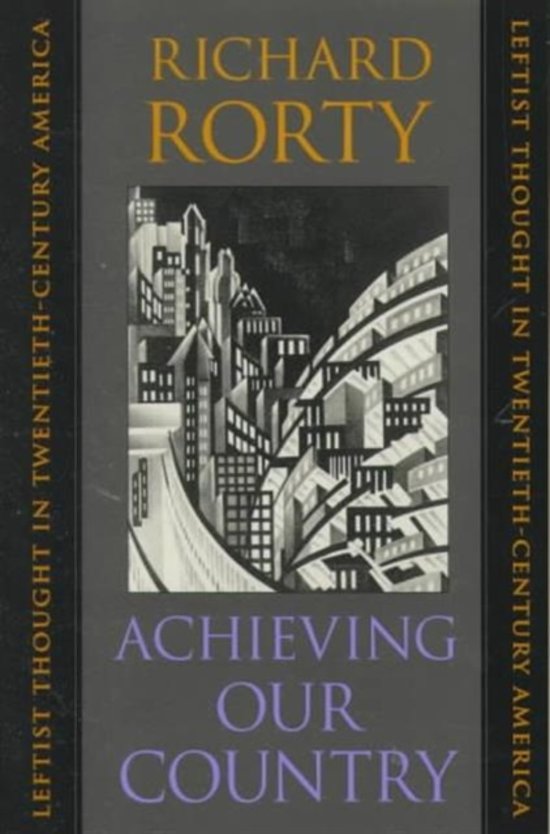
Must the sins of America's past poison its hope for the future? Lately the American Left, withdrawing into the ivied halls of academe to rue the nation's shame, has answered yes in both word and deed. In Achieving Our Country, one of America's foremost philosophers challenges this lost generation of the Left to understand the role it might play in the great tradition of democratic intellectual labor that started with writers like Walt Whitman and John Dewey. How have national pride and American patriotism come to seem an endorsement of atrocities--from slavery to the slaughter of Native Americans, from the rape of ancient forests to the Vietnam War? Achieving Our Country traces the sources of this debilitating mentality of shame in the Left, as well as the harm it does to its proponents and to the country. At the center of this history is the conflict between the Old Left and the New that arose during the Vietnam War era. Richard Rorty describes how the paradoxical victory of the antiwar movement, ushering in the Nixon years, encouraged a disillusioned generation of intellectuals to pursue High Theory at the expense of considering the place of ideas in our common life. In this turn to theory, Rorty sees a retreat from the secularism and pragmatism championed by Dewey and Whitman, and he decries the tendency of the heirs of the New Left to theorize about the United States from a distance instead of participating in the civic work of shaping our national future. In the absence of a vibrant, active Left, the views of intellectuals on the American Right have come to dominate the public sphere. This galvanizing book, adapted from Rorty's Massey Lectures of 1997, takes the first step toward redressing the imbalance in American cultural life by rallying those on the Left to the civic engagement and inspiration needed for achieving our country.
REVIEWS
Richard Rorty [is] John Dewey's ablest intellectual heir and one of the most influential philosophers alive...In lively prose, [Achieving Our Country] offers a pointed and necessary reminder that left academics have too often been content to talk to each other about the theory of hegemony while the right has been busy with the practice of it. If those criticized in the book dismiss it the way they brush aside the Blooms and D'Souzas of the world, an opportunity will be lost. Rorty invites a serious conversation about the purposes of intellectual work and the direction of left politics. I wouldn't want him to have the last word, but the conversation should be joined. If it is conducted with the verve of Achieving Our Country, and if it shares Rorty's genuine commitment to revitalizing the left as a national force, it will be a very good thing. The Nation There is much to be debated, much that will probably infuriate, in Rorty's picture of contemporary Left intellectuals... Achieving Our Country is meant to be pointedly polemical, and Rorty...[has] succeeded at stirring up emotions as well as thoughts. -- Vincent J. Bertolini American Literature In his philosophically rigorous new book, Achieving Our Country, Richard Rorty raises a provocative if familiar question: Whatever happened to national pride in this country?...[and] he offers a persuasive analysis of why such pride has been lost. -- Christopher Lehmann-Haupt New York Times Achieving Our Country is an appeal to American intellectuals to abandon the intransigent cynicism of the academic, cultural left and to return to the political ambitions of Emerson, Dewey, Herbert Croly and their allies. What Rorty has written--as deftly, amusingly and cleverly as he always writes--is a lay sermon for the untheological...[Americans] do not need to know what God wants but what we are capable of wanting and doing...[Rorty argues] that we would do better to try to improve the world than lament its fallen condition. On that he will carry with him a good many readers. -- Alan Ryan New York Times Book Review [In this] slim, elegantly written book...Rorty scolds other radical academics for abandoning pride in the nation's democratic promise; in their obsession with 'victim studies,' he argues, they have neglected to inspire the 'shared social hope' that motivated every mass movement against injustice from the abolitionists to the voting rights campaign. -- Michael Kazin Washington Post Book World The heart of Achieving Our Country is Professor Rorty's critique of the cultural left. Barricaded in the university, this left has isolated itself, he asserts, from the bread-and-butter issues of economic equality and security and the practical political struggles that once occupied the reform tradition...Controversies are seeded like land mines in every paragraph of this short book. -- Peter Steinfels New York Times Mr. Rorty calls for a left which dreams of achieving America, a patriotic left he recognises from the days of the New Deal and which he remembers from the early 1960s when, for example, people campaigned for civil-rights laws to make their country better. Where, he wonders, has such reformist pride gone? In place of Marxist scholasticism , Mr. Rorty wants a left which makes reducing inequalities part of a civic religion . Yet material differences are not the only sort of thing that bothers Mr. Rorty about the contemporary United States. On a communitarian note, he argues that the civic religion he advocates should include commitment to shared values that rise above ethnic or minority loyalties. The Economist Richard Rorty's Achieving Our Country is short, comprehensible and urges a civic and political agenda--the re-engagement of the Left...Rorty seeks to revive the vision of Walt Whitman and John Dewey, and what he sees as the real American Dream--a compassionate society held together by nothing more absolute than consensus and the belief that humane legal and economic agreements stand at the centre of democratic civilisation. -- Brian Eno The Guardian, Featured in the Books of the Year issue for 1998 A succinct, stimulating, crisply written book...Rorty proposes a return to the liberal values that animated American reform movements for the first two-thirds of this century: from the long struggle of labor unions to obtain better conditions for workers, to the efforts of leaders like Woodrow Wilson, Theodore and Franklin Roosevelt, John Kennedy, and Lyndon Johnson to redistribute the nation's wealth more equitably...Although Rorty is an academic philosopher, in this book, addressed to the general reader, he employs clear, vigorous language that makes reading a pleasure rather than a chore. -- Merle Rubin Christian Science Monitor Rorty made us realise how much poorer we are if Jefferson, Emerson, Whitman, Thoreau, Stowe, Peirce, William James, Santayana and Dewey are not familiar landmarks in our intellectual scenery...If we [scoff] at Rorty's patriotic American leftism, we may find that it sets off some doubts that will come back to haunt us. When we quibble over his interpretations of our favourite thinkers, are we not confirming his stereotype of left pedantry? When we sniff at him for keeping company with rightists and renegades, do we not bear out his idea of a Left that is keener on its own purity than on fighting for the poor? As we look down our noses at the etiolation of socialism in America, should we not reckon the costs and benefits of European mass movements, and reflect on the political history of the anti-Americanism that comes to us so easily? Before leftist subjects of Her Majesty get snooty about American democracy, we might stop and wonder whose interests are served by our unshakable optimism about the past. The unguarded naiveties of Achieving Our Country are not quite as negligent as they look, and the book may well turn out to be one of the first signs of a long-delayed breaking of the ice in socialist politics following the end of the Cold War. The fact that Rorty's old-style American leftism is closer to British New Labour than to good old socialism may prove not that he is confused, but that it is time to reset our political chronometers. -- Jonathan Ree London Review of Books Achieving Our Country criticizes academic theorists and reminds us that left-wing reformers in previous periods of American history either made their careers outside the university or, at least, developed strong links with the decidedly non-academic labor movement...Rorty's distinction between a 'cultural Left' and a reformist Left is useful. As Freud replaced Marx in the imagination of academic theorists, Rorty explains, a cultural left--one that thinks more about stigma than about money, more about deep and hidden psychosexual motivations than about shallow and evident greed --came into being. -- Alan Wolfe The Chronicle of Higher Education Richard Rorty is considered by many to be America's greatest living philosopher. That assessment is firmly supported in this short, profound, and lucid volume. In Achieving Our Country, Rorty does what many of us think philosophers ought to do, namely, lay a foundation and establish a framework within which we as individuals and as a society can conceptualize and fashion operational theories by which to live and prosper together...I can think of no more important book that I have read in recent years or one that I could more fervently recommend to the readers of this journal that Rorty's Achieving Our Country. -- Thomas R. DeGregori Journal of Economic Issues For many years now, Rorty has been one of the most important American pragmatists, defending the experimental modes of inquiry first propounded by John Dewey from both traditionalists and postmodernists...In Achieving Our Country, a brief but eloquent book, Rorty begs his academic colleagues to return to the real world. I am nostalgic for the days, he writes, 'when leftist professors concerned themselves with issues in real politics (such as the availability of health care to the poor and the need for strong labor unions) rather than with academic politics. -- Jefferson Decker In These Times Rorty offers a resolute defense of pragmatic and reformist politics, coupled with a sophisticated rereading of the history of 20th-century American leftist thought. The result is a book that ends up reaffirming the great achievements of American left liberalism--strong unions, Social Security, and the principled regulation of corporate power--even as it illuminates the ways in which the cultural myopia of today's academic left has placed those achievements in jeopardy...In his insistence that there is a great American tradition of leftist reform, and that this rendition can be reinvigorated only by a return to the idea of the nation, Rorty has constructed as humane and as hopeful a defense of patriotism as one can imagine. -- James Surowiecki Boston Phoenix Rorty's new book urges a return to American liberalism's days of hope, pride, and struggle within the system...Subtle without being dense, good-natured in its defiance of a whole spectrum of conventional wisdoms, Achieving Our Country is a rare book. It should be compulsory reading--if that weren't contrary to all it stands for. -- Richard Lamb The Reader's Catalog A deeply considered diagnosis, a vital set of prophecies. Publishers Weekly Richard Rorty is remarkable not just for being a gadfly to analytical philosophers, but for his immense reading, his lively prose and his obvious moral engagement with the issues...The conversation of philosophy would be much poorer without him...Achieving Our Country is a valuable addition to Rorty's writings...He has things to say that are important and timely...They are said powerfully. -- Hilary Putnam Times Literary Supplement It is refreshing to find so hard-hitting a portrait of the contemporary academic Left in the work of one of its own. -- Peter Berkowitz Commentary Richard Rorty is an inspirational writer who makes a valiant effort in this book to create an atmosphere of cooperation among those he characterizes as he Reformist Left. He wants us to return to the ideals of John Dewey and Walt Whitman and achieve the greatness that is possible in a country of our wealth and dominance. -- Edward J. Bander Bimonthly Review of Law Books A bracing tonic against the jejune profundities and the self-centered talking points by the far Right that find their way into the media. In sharply etched arguments Rorty weaves in philosophical and historical perspectives...His message isn't one of resignation, rather of hope grounded in the Left's potential for reinventing itself. He thinks it's time for the Left to stop demonizing capitalist America and to develop once again a political program of its own. -- Terry Doran Buffalo News On behalf of countless readers whose reaction to most left academic writing over the past two decades has increasingly been not so much either agreement or disagreement as an overpowering sense of So what?, the eminent philosopher Richard Rorty has composed a marvelous philippic against the entrenched irrelevance of much of the American left...Rorty's most important insight is into the political worldview of the academic left: that it is essentially nonpolitical...He offers a withering comparison of the core beliefs of the current cultural left with those of one of its forebears, Walt Whitman. -- Harold Meyerson Dissent Achieving our country (the phrase is culled from James Baldwin's The Fire Next Time) isn't just a redeemable aim, it's what good radical politics has always been about. -- Gideon Calder Radical Philosophy Politically progressive academics should consider carefully Rorty's arguments...They pose important questions about American politics and public intellectual practice. -- Harvey Kaye Times Higher Educational Supplement


Olusengun Obasanjo is de eerste burgerlijke president ooit van Nigeria


Although my own interest in this particular study stems more from concern for politics in the Congo than from any sustained involvement in bilateral diplomacy between the United States and Belgium, I nevertheless discovered here much useful background information. Jonathan E. Helmreich's work is a study of the high-level bilateral diplomatic negotiations between the two states during the twenty years between 1940 and 1960. Unfortunately, however, this diplomatic focus does not provide readers with a broadly based study of political, cultural, and economic interactions between the United States and Belgium. At its best, this is a competent diplomatic history; at worst, it is a frustrating exercise that confronts readers with some of the limitations of classic diplomatic history.
http://www.historycooperative.org/cgi-bin/justtop.cgi?act=justtop&url=http://www.historycoop.org/journals/ahr/104.5/br_15.html
UNITED STATES RELATIONS WITH BELGIUM AND THE CONGO, 1940–1960, Jonathan E. Helmreich. This comprehensive study of United States-Belgo diplomatic ties focuses on the small power-superpower relationship and the Congo's effect upon it. Consideration is given to the U.S. purchase of Congolese uranium and the fairness of the compensation paid, Belgium's assistance to U.S. efforts to encourage European integration, and the coming of independence in the Congo. Belgium's participation in NATO, trade of Congo goods, and American policy toward UN action in the Congo are also discussed.
653-9 $43.50
http://www.english.udel.edu/udpress/catalog_stoz.html

(summary) For the third consecutive year, Belgian politics was to a large extent dominated by the aftermath of the Dutroux-pedophile case. The political world was under pressure to reform the judiciary and the police-forces, as these had shown lack of competence in this case. The pressure mounted after Dutroux' brief escape on April 23rd, which caused the resignation of the ministers of Interior (Van de Lanotte) and of Justice (De Clerck). Dutroux' escape, however, reunited the majority and the opposition parties to make a deal on the reforms of the judiciary and the police-forces (the Octopus-agreements).
The aftermath of Dutroux' escape, and the Octopus-agreements overshadowed the entry of Belgium into the EMU. It also made an end to the everlasting speculations about snap elections.
From autumn 1998 onwards, most attention was paid to the policy on asylum and the Agusta/Dassault trial. The dead of a Nigerian refugee during her forced repatriation caused the resignation of deputy prime minister Tobback, and a limited adjustment of the procedure to grant asylum. In December 1998, the Court of Cassation convicted the politicians that were charged in the Agusta/Dassault-bribery cases.
Other important issues in 1998 were the policy on employment, the right to vote for non-Belgian citizens and disputes on the implementation of the language-laws in communities with a special linguistic status.



Drie grote thema's beheersten het politieke leven: het Toekomstplan voor de Werkgelegenheid, de 'EMU'-begroting voor 1997, gekoppeld aan een 'modernisering' van de sociale zekerheid, en de politieke gevolgen van enkele kindermoorden (de zogenaamde zaak-Dutroux).
Tijdens de eerste maanden van het jaar trachtte eerste minister Dehaene met werkgevers en vakbonden een 'Toekomstcontract voor de Werkgelegenheid' te sluiten, maar een ontwerpakkoord stuitte op verzet van de basis van de socialistische vakbond ABVV. De regering nam de afspraken over in haar 'Toekomstplan voor de Werkgelegenheid'. Voor de uitvoering daarvan maakte zij gebruik van bijzondere machten. Ook voor de uitvoering van de 'Maastricht-begroting' en de 'modernisering' van de sociale zekerheid vroeg den kreeg de regering van hara parlemenatire meerderheid bijzondere machten.
In het najaar ging de grootste aandacht van de regering naar hervormingen bij politie en gerecht. Zij reageerde daarmee op de fouten en tekortkomingen in de werking van het politionele en justitiële apparaat die door de zaak-Dutroux aan het licht waren gekomen. In december bracht de zaak-Di Rupo het kabinet zelf in moeilijkheden.


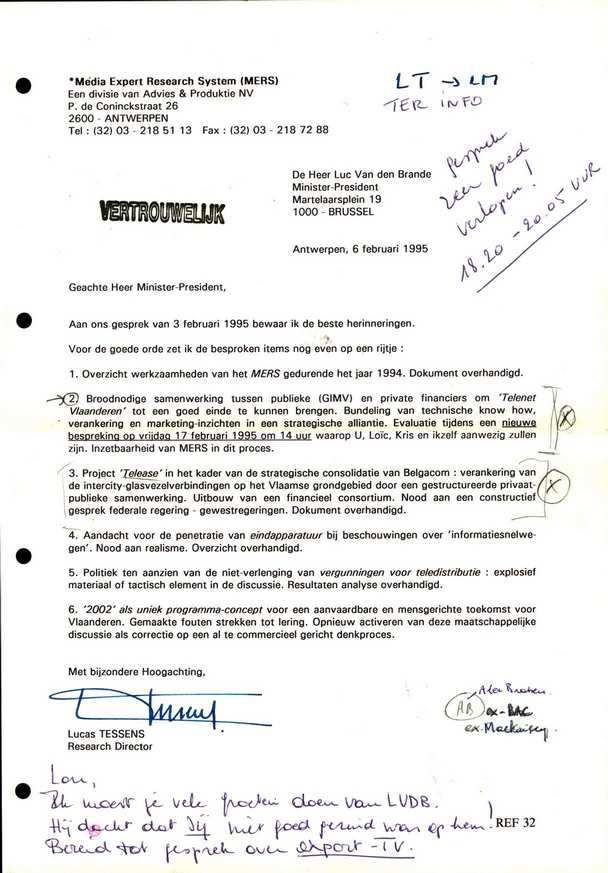








LE CHANGEMENT SALUTAIRE ET CIVILISATIONNEL
Samedi 7 Novembre 1987 : l'un des fils vaillants de la Tunisie, Zine El Abidine BEN ALI, alors Secrétaire Général du Parti Socialiste Destourien (P.S.D) et Premier Ministre, opére à la tête de l'Etat, un changement salutaire, dans le strict respect de la légalité constitutionnelle.
En effet, le 7 Novembre 1987 et sur la foi d'un rapport médical établi par les sept médecins habituels -de différentes spécialités- de l'ancien Président Habib Bourguiba, celui-ci est déclaré dans l'incapacité de continuer à assumer les charges de la magistrature suprême. En application de l'article 57 de la Constitution tunisienne, le Premier ministre Zine El Abidine BEN ALI accède à la présidence.
C'est, pour la Tunisie, l'avènement d'une ère nouvelle. La déclaration du 7 Novembre exprime, en effet, les aspirations profondes du peuple à la dignité, à la liberté et à la démocratie et plaide vigoureusement pour le droit de tous les citoyens à une vie politique moderne, dans le respect de tous les droits de l'Homme, dans leur acception globale, qu'ils soient politiques, économiques, sociaux ou culturels.
En opérant le Changement, Zine El Abidine BEN ALI mettait fin à une longue période d'incertitude politique qui faisait planer les plus lourdes menaces sur le devenir de la Tunisie. A l'époque, en effet, la situation politique était dans l'impasse, la situation économique désastreuse et la situation sociale au bord de l'explosion. Les partisans de l'extrémisme religieux, de la violence et du terrorisme opéraient au grand jour. Le Parti Socialiste Destourien, exsangue, malade de la sénilité de son Président et de la vacance du pouvoir au sommet de l'Etat, n'était plus qu'une machine essoufflée, après s'être déconnecté des réalités du peuple et avoir perdu son influence et sa crédibilité.
Réconcilié avec lui-même et avec ses dirigeants, avec ses réalités et son Histoire, le peuple tunisien, unanime, a, en ce jour mémorable, réservé au Président Zine El Abidine BEN ALI, un accueil à nul autre pareil dans les annales de l'histoire contemporaine du pays.
Une nouvelle page s'ouvrait devant la Tunisie.
http://www.rcd.tn/html/historique/historique10.html (20030929)




Originally published in Winter 1984 on page 5
Copyright (c)1985, 1997 by Context Institute
HOWEVER NATURAL “owning” land may seem in our culture, in the long sweep of human existence, it is a fairly recent invention. Where did this notion come from? What does it really mean to “own” land? Why do we, in our culture, allow a person to draw lines in the dirt and then have almost complete control over what goes on inside those boundaries? What are the advantages, the disadvantages, and the alternatives? How might a humane and sustainable culture re-invent the “ownership” connection between people and the land?
These questions are unfamiliar (perhaps even uncomfortable) to much of our society, for our sense of “land ownership” is so deeply embedded in our fundamental cultural assumptions that we never stop to consider its implications or alternatives. Most people are at best only aware of two choices, two patterns, for land ownership – private ownership (which we associate with the industrial West) and state ownership (as in the Communist East).
Both of these patterns are full of problems and paradoxes. Private ownership enhances personal freedom (for those who are owners), but frequently leads to vast concentrations of wealth (even in the U.S., 75% of the privately held land is owned by 5% of the private landholders), and the effective denial of freedom and power to those without great wealth. State ownership muffles differences in wealth and some of the abuses of individualistic ownership, but replaces them with the often worse abuses of bureaucratic control.
Both systems treat the land as an inert resource to be exploited as fully as possible, often with little thought for the future or respect for the needs of non-human life. Both assume that land ownership goes with a kind of exclusive national sovereignty that is intimately connected to the logic of war.
In short, both systems seem to be leading us towards disaster, yet what other options are there?
The answer, fortunately, is that there are a number of promising alternatives. To understand them, however, we will need to begin by diving deeply into what ownership is and where it has come from.
THE HISTORICAL ROOTS
Beginnings Our feelings about ownership have very deep roots. Most animal life has a sense of territory – a place to be at home and to defend. Indeed, this territoriality seems to be associated with the oldest (reptilian) part the brain (see IN CONTEXT, #6) and forms a biological basis for our sense of property. It is closely associated with our sense of security and our instinctual “fight or flight” responses, all of which gives a powerful emotional dimension to our experience of ownership. Yet this biological basis does not determine the form that territoriality takes in different cultures.
Humans, like many of our primate cousins, engage in group (as well as individual) territoriality. Tribal groups saw themselves connected to particular territories – a place that was “theirs.” Yet their attitude towards the land was very different from ours. They frequently spoke of the land as their parent or as a sacred being, on whom they were dependent and to whom they owed loyalty and service. Among the aborigines of Australia, individuals would inherit a special relationship to sacred places, but rather than “ownership,” this relationship was more like being owned by the land. This sense of responsibility extended to ancestors and future generations as well. The Ashanti of Ghana say, “Land belongs to a vast family of whom many are dead, a few are living and a countless host are still unborn.”
For most of these tribal peoples, their sense of “land ownership” involved only the right to use and to exclude people of other tribes (but usually not members of their own). If there were any private rights, these were usually subject to review by the group and would cease if the land was no longer being used. The sale of land was either not even a possibility or not permitted. As for inheritance, every person had use rights simply by membership in the group, so a growing child would not have to wait until some other individual died (or pay a special fee) to gain full access to the land.
Early Agricultural Societies Farming made the human relationship to the land more concentrated. Tilling the land, making permanent settlements, etc., all meant a greater direct investment in a particular place. Yet this did not lead immediately to our present ideas of ownership. As best as is known, early farming communities continued to experience an intimate spiritual connection to the land, and they often held land in common under the control of a village council. This pattern has remained in many peasant communities throughout the world.
It was not so much farming directly, but the larger-than- tribal societies that could be based on farming that led to major changes in attitudes towards the land. Many of the first civilizations were centered around a supposedly godlike king, and it was a natural extension to go from the tribal idea that “the land belongs to the gods” to the idea that all of the kingdom belongs to the god-king. Since the god-king was supposed to personify the whole community, this was still a form of community ownership, but now personalized. Privileges of use and control of various types were distributed to the ruling elite on the basis of custom and politics.
As time went on, land took on a new meaning for these ruling elites. It became an abstraction, a source of power and wealth, a tool for other purposes. The name of the game became conquer, hold, and extract the maximum in tribute. Just as The Parable Of The Tribes (see IN CONTEXT, #7) would suggest, the human-human struggle for power gradually came to be the dominant factor shaping the human relationship to the land. This shift from seeing the land as a sacred mother to merely a commodity required deep changes throughout these cultures such as moving the gods and sacred beings into the sky where they could conveniently be as mobile as the ever changing boundaries of these empires.
The idea of private land ownership developed as a second step – partly in reaction to the power of the sovereign and partly in response to the opportunities of a larger-than- village economy. In the god-king societies, the privileges of the nobility were often easily withdrawn at the whim of the sovereign, and the importance of politics and raw power as the basis of ownership was rarely forgotten. To guard their power, the nobility frequently pushed for greater legal/customary recognition of their land rights. In the less centralized societies and in the occasional democracies and republics of this period, private ownership also developed in response to the breakdown of village cohesiveness. In either case, private property permitted the individual to be a “little king” of his/her own lands, imitating and competing against the claims of the state.
Later Developments By the early days of Greece and Rome, community common land, state or sovereign land, and private land all had strong traditions behind them. Plato and Aristotle both discussed various mixtures of private and state ownership in ideal societies, with Aristotle upholding the value of private ownership as a means of protecting diversity. As history progressed, the “great ownership debate” has continued between the champions of private interests and the champions of the state, with the idea of community common land often praised as an ideal, but in practice being gradually squeezed out of the picture. Feudal Europe was basically a system of sovereign ownership. The rise of commerce and then industrialism shifted power to the private ownership interests of the new middle class (as in the United States). The reaction against the abuses of industrialism during the past 150 years swung some opinion back again, bringing renewed interest in state ownership (as in the Communist countries).
As important as these swings have been historically, they have added essentially nothing to our basic understanding of, or attitudes about, ownership. Throughout the whole history of civilization land has been seen as primarily a source of power, and the whole debate around ownership has been, “To what extent will the state allow the individual to build a personal power base through land ownership rights?”
TAKING A FRESH LOOK
But the human-human power struggle is hardly the only, or even the most important, issue in our relationship to the land. Whatever happened to the tribal concerns about caring for the land and preserving it for future generations? What about issues like justice, human empowerment and economic efficiency? How about the rights of the land itself? If we are to move forward towards a planetary/ecological age, all of these questions and issues are going to need to be integrated into our relationship to the land. To do this we will have to get out beyond the narrow circle of the ideas and arguments of the past.
We have been talking about “ownership” as if it was an obvious, clear-cut concept: either you own (control) something or you don’t. For most people (throughout history) this has been a useful approximation, and it has been the basis of the “great ownership debate.” But if you try to pin it down (as lawyers must), you will soon discover that it is not so simple. As surprising as it may seem, our legal system has developed an understanding of “owning” that is significantly different from our common ideas and has great promise as the basis for a much more appropriate human relationship to the land.
Ownership Is A Bundle Of Rights The first step is to recognize that, rather than being one thing, what we commonly call “ownership” is in fact a whole group of legal rights that can be held by some person with respect to some “property.” In the industrial West, these usually include the right to:
use (or not use);
exclude others from using;
irreversibly change;
sell, give away or bequeath;
rent or lease;
retain all rights not specifically granted to others;
retain these rights without time limit or review.
These rights are usually not absolute, for with them go certain responsibilities, such as paying taxes, being liable for suits brought against the property, and abiding by the laws of the land. If these laws include zoning laws, building codes, and environmental protection laws, you may find that your rights to use and irreversibly change are not as unlimited as you thought. Nevertheless, within a wide range you are the monarch over your property.
No One Owns Land Each of these rights can be modified independent of the others, either by law or by the granting of an easement to some other party, producing a bewildering variety of legal conditions. How much can you modify the above conditions and still call it “ownership”? To understand the answer to this, we are going to have to make a very important distinction. In spite of the way we normally talk, no one ever “owns land”..In our legal system you can only own rights to land, you can’t directly own (that is, have complete claim to) the land itself. You can’t even own all the rights since the state always retains the right of eminent domain. For example, what happens when you sell an easement to the power company so that they can run power lines across you land? They then own the rights granted in that easement, you own most of the other rights, the state owns the right of eminent domain – but no single party owns “the land.” You can carry this as far as you like, dividing the rights up among many “owners,” all of whom will have a claim on some aspect of the land.
The wonderful thing about this distinction is that it shifts the whole debate about land ownership away from the rigid state-vs.-individual, all-or-nothing battle to the much more flexible question of who (including community groups, families, etc. as well as the state and the individual) should have which rights. This shift could be as important as the major improvement in governance that came with the shift from monolithic power (as in a monarchy) to “division of powers” (as exemplified in the U.S. Constitution with its semi-independent legislative, executive and judicial branches).
Legitimate Interests How might the problems associated with exclusive ownership (either private or state) be solved by a “division of rights” approach? To answer this, we need to first consider what are the legitimate interests that need to be included in this new approach. If we are to address all the concerns appropriate for a humane sustainable culture we need to recognize that the immediate user of the land (be that a household or a business), the local community, the planetary community, future generations, and all of life, all have legitimate interests. What are these interests?
The immediate users need the freedom to be personally (or corporately) expressive, creative, and perhaps even eccentric. They need to be able to invest energy and caring into the land with reasonable security that the use of the land will not be arbitrarily taken away and that the full equity value of improvements made to the land will be available to them either through continued use or through resale should they choose to move.
The local community needs optimal use of the land within it, without having land held arbitrarily out of use by absentee landlords. It needs to be able to benefit from the equity increases in the land itself due to the overall development of the community, and it needs security that its character will not be forced to change through inappropriate land use decisions made by those outside the community or those leaving the community.
The planetary community, future generations, and all of life need sustainable use – the assurance that ecosystems and topsoil that have been developed over hundreds of thousands of years will not be casually destroyed; that the opportunities for life will be enhanced; that non-renewal resources will be used efficiently and for long term beneficial purposes. This larger community also needs meaningful recognition that the earth is our common heritage.
Is it possible to blend these various interests in a mutually supportive way, rather than seeing them locked in a power struggle? The answer, fortunately, is yes. Perhaps the best developed alternative legal form that does this is called a land trust.
LAND TRUSTS
A land trust is a non-governmental organization (frequently a non-profit corporation) that divides land rights between immediate users and their community. It is being used in a number of places around the world including India, Israel, Tanzania, and the United States. Of the many types of land trusts, we will focus here on three – conservation trusts, community trusts, and stewardship trusts. These will be discussed in more detail in other articles in this section, but an initial overview now will help to draw together many of the threads we have developed so far.
In a conservation land trust, the purpose is generally to preserve some aspect of the natural environment. A conservation trust may do this by the full ownership of some piece of land that it then holds as wilderness, or it may simply own “development rights” to an undeveloped piece. What are development rights? When the original owner sells or grants development rights to the conservation trust, they put an easement (a legal restriction) on the land that prevents them or any future owners from developing the land without the agreement of the conservation trust. They have let go of the right to “irreversibly change” listed above. The conservation trust then holds these rights with the intention of preventing development. The Trust For Public Land (82 Second St, San Francisco, CA 94105, 415/495-4015) helps community groups establish conservation and agricultural land trusts.
A community land trust (CLT) has as its purpose removing land from the speculative market and making it available to those who will use it for the long term benefit of the community. A CLT generally owns full title to its lands and grants long term (like 99-year) renewable leases to those who will actually use the land. Appropriate uses for the land are determined by the CLT in a process comparable to public planning or zoning. Lease fees vary from one CLT to another, but they are generally more than taxes and insurance, less than typical mortgage payments, and less than full rental cost. The lease holders have many of the use and security rights we normally associate with ownership. They own the buildings on the land and can take full benefit from improvements they make to the land. They can not, however, sell the land nor can they usually rent or lease it without the consent of the trust. The Institute For Community Economics (57 School St. Springfield, MA 01105, 413/746-8660) is one of the major support groups for the creation of community land trusts in both urban and rural settings.
The stewardship trust combines features of both the conservation trust and the CLT, and is being used now primarily by intentional communities and non-profit groups such as schools. The groups using the land (the stewards) generally pay less than in a normal CLT, but there are more definite expectations about the care and use they give to the land.
In each one of these types, the immediate users (nonhuman as well as human) have clear rights which satisfy all of their legitimate use needs. The needs of the local community are met through representation on the board of directors of the trust which can enforce general land use standards. The larger community usually has some representation on the trust’s board as well. Thus by dividing what we normally think of as ownership into “stewardship” (the users) and “trusteeship” (the trust organization), land trusts are pioneering an approach that better meets all the legitimate interests.
The system is, of course, still limited by the integrity and the attitudes of the people involved. Nor are current land trusts necessarily the model for “ownership” in a humane sustainable culture. But they show what can be done and give us a place to build from. I’ll explore more of where we might build to in a later article, but now lets turn to other perspectives and experiences with going beyond ownership.
Bibliography
Chaudhuri, Joyotpaul, Possession, Ownership And Access: A Jeffersonian View (Political Inquiry, Vol 1, No 1, Fall 1973).
Denman, D.R., The Place Of Property (London: Geographical Publications Ltd, 1978).
Institute For Community Economics, The Community Land Trust Handbook (Emmaus, PA: Rodale Press, 1982).
International Independence Institute, The Community Land Trust (Cambridge, MA: Center For Community Economic Development, 1972).
Macpherson, C.B., Property: Mainstream And Critical Positions (Toronto: Univ Of Toronto Press, 1978).
Schlatter, Richard, Private Property: The History Of An Idea (New Brunswick, NJ: Rutgers University Press, 1951).
Scott, William B., In Pursuit Of Happiness: American Conceptions Of Property (Bloomington: Indiana University Press, 1977).
Tully, James, A Discourse On Property: John Locke And His Adversaries (Cambridge: Cambridge Univ Press, 1980).
Land Rights
by John Talbot
IT WAS NOT so long ago in human history that the rights of all humans were not acknowledged, even in the democracies. Slavery was only abolished a few generations ago. In the same way that we have come to see human rights as being inherent, so we are now beginning to recognize land rights, and by land I mean all life that lives and takes its nourishment from it, as well as the soil and earth itself. Once we have understood and accepted that idea, we can truly enter into a cooperative relationship with Nature. I’m not talking about living in fear of disturbing anything or a totally “hands off nature” angry ecologist view, but simply acknowledging the right to be of land and nature, and that when we do “disturb” it we do so with sensitivity and respect, doing our best to be in harmony with what is already there.
Being in harmony, apart from being a very subjective state, may not always be possible: for example in the case of putting a house down where once there wasn’t one. But we as humans have needs too. Nature knows that and is, I believe, quite willing to accommodate us. Our responsibility is, however, to act consciously and with the attitude of respect and desire for cooperation. It is no different from respecting other people’s rights in our interactions, being courteous and sensitive to their needs and feelings. This attitude toward the land is almost universally held by aboriginal and native peoples, from the Bushman to the Native American Indians to the tribes of the South Pacific. Earth Etiquette, you might say.
Following directly from that is the principle that you cannot really buy, sell or own the land. Just as we cannot (or should not) own slaves of our own species, we would not make slaves of animals, plants or the land and nature in general. Sounds easy but I feel this represents a very profound and fundamental change in human attitudes; one that takes thought, effort and time to reprogram in ourselves.

By WOLFGANG SAXON
Published: December 4, 1984
Edward Crankshaw, one of the most respected authors on the Soviet Union and chronicler of the Hapsburgs, died last Thursday in his native Britain after what was described as a ''long and painful illness.'' He was 75 years old and lived in Hawkhurst, in rural Kent.
His death was reported Sunday in The Observer, the British weekly for which he kept watch on the Soviet scene starting in 1947. Mr. Crankshaw, who spurned the label of ''Kremlinologist,'' was regarded as Britain's premier journalistic expert on Soviet politics.
The author of about 20 books, including three novels, Mr. Crankshaw contribued a steady flow of prefaces, essays and articles to publications in Britain and the United States, including The New York Times. In addition, he commented on Soviet affairs for the BBC.
Difficult to place politically, Mr. Crankshaw reluctantly became a Soviet specialist when The Observer asked him to take the assignment after World War II, part of which he had spent in Moscow. One of the conclusions he had reached was that Kremlin policies must be seen as something that did not start with the Bolshevik takeover in 1917, but had ancient roots. He Avoided Speculation
Thus, Mr. Crankshaw avoided speculations about absences from the Kremlin wall at anniversary parades. Instead, his basic impressions had been formed when the Russians were fighting for survival, and he took heart from Stalin's evocations of historical ''Holy Russia.''
His political testament came in a preface written this year to a selection from his writings, ''Putting Up With the Russians.''
As a conservative dedicated to the survival of European civilization, he rejected the harsh tones adopted by President Reagan and his supporters, accusing them of trying to turn the Soviet Union into a pariah. Mr. Crankshaw viewed detente with some skepticism, but he insisted on the need for co- existence.
He was the author of ''Russia Without Stalin'' in 1956, regarding the changes in everyday life in the post- Stalin era. He also wrote ''Khrushchev's Russia'' (1960) and ''Khrushchev: A Career,'' published six years later.
He then wrote the introduction for ''Khrushchev Remembers,'' a rich compilation of comments, speeches, conversations and interviews by Nikita I. Khruschev, the Kremlin leader who denounced the Stalinist terror. 'Khrushchev Himself'
Mr. Crankshaw, who also contributed copious footnotes and commentary to the Khrushchev book, helped defend the book against doubters. He said that by ''style and content'' the words were ''Khrushchev himself, quite unmistakably speaking.'' His faith in the book's authenticity has come to be shared by most others since its publication in 1970.
Though ailing for many years, Mr. Crankshaw, a slight and courtly man, continued to write even in bed whenever he was unable to move about.
His last volume published in this country was ''Bismarck'' in 1982. Writing in The New York Times Book Review, George L. Mosse called the book ''a cautionary tale about political and military power'' that sees Bismarck's ''apparent success as a failure because the Iron Chancellor exalted the amoral concept of politics into a principle.''
Edward Crankshaw was born on Jan. 3, 1909, in rural Essex. As a boy, he often visited the London magistrate's court where his father, Arthur, worked as chief clerk. He attended Bishop's Stortford College but left early - hence his claim to having been largely self- taught.
Instead, Mr. Crankshaw went to the Continent to travel, and he lived in Vienna, becoming fluent in German. His Austrian years turned out to be formative ones for his mind as he watched democracy crumble in the new Austrian republic. They also instilled him with a passion for literature and music.
From Europe, he wrote for British publications subjects ranging from twelve-tone music to books, art and the theater. But he gave up journalism to write ''Joseph Conrad: Some Aspects of the Art of the Novel,'' a study of Conrad's methods and the novelist's art in general. Another book, ''Vienna: The Image of a Culture in Decline,'' appeared in 1938. Posted to Moscow in '41
In 1936, Mr. Crankshaw was commissioned into Britain's Territorial Army. In 1941, he was posted to Moscow as an intelligence officer, and he did all he could to understand the Russians, their history, national character and government.
Having also traveled on the periphery of the Soviet Union, he was asked by The Observer to return to journalism as its Russian expert. His early books on the subject were ''Britain and Russia'' (1945), ''Russia and the Russians'' (1947) and ''Russia by Daylight'' (1951).
A well-received history was The Shadow of the Winter Palace: The Drift to Revolution, 1825-1917 which appeared in 1976. Other well-received books were ''The Fall of the House of Hapsburg'' (1963) and ''The Hapsburgs'' (1971).
Of Mr. Crankshaw's ''Maria Theresa'' (1969), Thomas Lask wrote in his review in The New York Times, ''Mr. Crankshaw has managed in what is a model of compression and judicious selection to rescue Maria Theresa from the history books and to turn a monument into a warm and appealing woman.''
Mr. Crankshaw is survived by his wife, the former Clare Chesterton Carr.




Lebanon
Date: 14 Mars, 2008
Auteur: Signoles Aude
The Sabra and Shatila massacre took place between the 16th and the 18th of September 1982 in Lebanon. It was perpetrated by a Lebanese Christian militia, the Phalangists, which was under the political and military control of the State of Israel. The victims were mostly civilians from Sabra and Shatila. Sabra and Shatila are two Palestinian adjoining refugee camps located in the southwest of Beirut (see maps).
On the 18th of September, after about forty hours of killing, the first images of the massacre showing civilian victims appeared on TV. They provoked worldwide indignation and compassion.
A. CONTEXT
At the time of the massacre, the question of Palestine and the Palestinian presence in Lebanon were major stakes on the regional and internal political arena.
Palestinians have settled in Lebanon in the aftermath of the creation of the State of Israel. “During the summer of 1948, some 110,000 Palestinians were driven out of Galilee and crossed the border into Lebanon” (Picard 2002:79). Most of them became refugees. During the seventies, the Palestine Liberation Organization (PLO) set up its headquarters in Lebanon after its leaders and activists had been expelled from Jordan. The PLO was responsible for some 340,000 Palestinians. It provided social services and basic infrastructures and built institutions in various domains (economic, cultural, social and political). In the same time, Yasser Arafat, the PLO’s historic leader, developed a military apparatus to lead the armed struggle against Israel. Thousands of Palestinian fighters (the fedayin) were sheltered and trained in the refugee camps. The camps were under the sole control of the Palestinian military police, according to an agreement signed by Y. Arafat and the chief of the Lebanese army in 1969. In that context, refugee camps became symbols of Palestinian resistance.
In 1975, civil war broke out in Lebanon, opposing two camps: the “Christian-conservatives” and the “Islamic-progressives” (Picard, 2002). The first group mainly included Christians (Maronites, in particular) and formed “a bloc around the presidency for the preservation of the traditional order” (Picard, 2002:108). The Phalangists (or Kataeb), founded in 1936 by Pierre Gemayel, increasingly ruled the coalition. The second group, which constituted “a heterogeneous coalition with three focuses - leftist, Muslim, and Palestinian” (Picard, 2002:108), shed a doubt on the prevailing leadership. Its leaders “wanted Lebanon to make a decisive commitment to the cause of Palestinian resistance”, whereas the “Christian conservatives” supported the status quo from which they benefited.
In 1976, the Syrian armed forces took part in the Lebanese civil war, invading Lebanon and strengthening one camp first and then, the other. Israel’s support to the Christians was instituted almost at the same time. It was agreed that Israel would help if the existence of Lebanese Christians were to become endangered. According to the Phalangists, the number of Palestinian refugees, for the most part Muslims, threatened the demographic balance between Christians and Muslims in the country. They also feared that it may weaken their (profitable) position in the political game.
From the mid-onwards, the South of Lebanon became the favourite battlefield of the Israeli-Palestinian conflict. The Palestinian fighters carried out commando raids against Israeli interests and citizens throughout the world and planned more and more attacks at the Northern border of Israel. The Israeli government reacted by interfering on Lebanese soil and directing “policing” or “preventive” operations towards Palestinians – in total contradiction with International Law. The everyday lack of security caused by these policing interventions and by bombings affected not only the Palestinians, but also the Lebanese, especially in the South. The Israeli Prime Minister Menahem Begin also put pressure on the Lebanese Army, as he wanted the latter’s command to play a role in protecting Israeli interests by attacking the PLO’s apparatus.
In March 1978, the Israeli Defence Forces (IDF) invaded the South of Lebanon up to the Litani River. The Israeli leaders reproached the Lebanese army with not being able to secure the border. Forced to withdraw in July due to international protests, the IDF decided thereafter to create a Lebanese border militia. The Army of Free Lebanon (AFL) was formed with deserters from the Lebanese army and placed under the command of Saad Haddad. Its purpose consisted in protecting the northern border of Israel from Palestinian incursions. S. Haddad coordinated the AFL’s actions directly with the Israeli military command.
On the 6th of June, 1982, the IDF invaded Lebanon for a second time. The Israeli troops rapidly encircled West Beirut where the PLO had established its headquarters, and met with the Phalangist forces, posted in the eastern part of the city. This military operation, named “Peace for Galilee”, officially aimed at ensuring the security of the inhabitants of Northern Israel. But the weakening of the PLO’s infrastructure and apparatus was also on the agenda.
Although the military balance of forces was largely in favor of the IDF, the “Islamic-progressives” stood up to air strikes, naval gunfire and tank artillery launched on the Lebanese capital. The siege of Beirut, which lasted all summer, found an issue in negotiations that aimed at preparing the PLO’s withdrawal from Lebanon. The negotiations were conducted by US envoy Philip Habib with spokespersons of the Palestinian side, as the United States did not recognize the PLO.
An agreement was reached in the middle of August on the principle of an evacuation of the Palestinian fighters and PLO officials and the dismantlement of PLO offices and infrastructures. The “Habib Roadmap” put the evacuation under the supervision of a multinational force formed by some Italian, French and American troops and scheduled to remain on the battlefield during thirty days from the date of their arrival. It also guaranteed security to the Palestinian civilians that were to remain in the camps after the PLO’s departure. Indeed, Y. Arafat feared retaliations against his people.
The evacuation was carried out from the 21 th of August to the 1st of September 1982 and was followed by the withdrawal of the multinational force, which came sooner than scheduled.
A new Lebanese President was elected by the Parliament in the aftermath of the PLO’s evacuation. Bechir Gemayel, chief of the Phalangists, won the ballot on the 23rd of August. But the “Islamic-progressives” had boycotted the elections, for they considered the leader of the “Christian-conservatives”’ as the candidate of Israel. Indeed, it is a fact that the Israeli authorities - and especially the Minister of Defence Ariel Sharon - wanted to install a friendly Lebanese government, which could be brought to sign a formal peace agreement with Israel.
However, B. Gemayel was killed on the 14th of September before assuming office. This political assassination gave the Israeli government an opportunity to condemn the Palestinians, and an argument to enter West Beirut. The massacre of Sabra and Shatila started two days later.
B. INSTIGATORS AND PERPETRATORS
At the time of the massacre, the Sabra and Shatila camps were under the military control of the IDF. Soon after the announcement of Gemayel’s death and in contradiction with “Habib’s roadmap”, M. Begin and A. Sharon decided to enter West Beirut. The invasion began on Wednesday the 15th in the early morning, with tank shelling and gunboats. A. Sharon arrived on the field at 9:00 to oversee the operation. By 12:00 noon on Thursday the 16th of September, he announced the military takeover of the city. The IDF’s headquarters were located at the traffic circle of the Kuwaiti embassy near the Sabra and Shatila camps. Israeli tanks surrounded the camps, sealing the main entrances with checkpoints.
The Israel’s invasion of West Beirut led to worldwide protest. As indignation rose, even among some members of the Israeli government who were not kept informed as well as in the United States, the Israeli Prime Minister, the Minister of Defence, and the top military leaders, claimed that they entered Beirut in order to prevent violence and pogroms. In their opinion, Gemayel’s death could produce disorder. As for Y. Arafat, he reiterated his fear for the fate of Palestinian civilians who had remained in Lebanon after the PLO’s departure.
The Phalangists entered the Sabra and Shatila camps in the afternoon on Thursday the 16th. As proven by a multitude of sources, their entrance was coordinated with, and authorized by, the IDF. According to the inquiry of an Israeli Commission (The Kahan Commission, 1983) (see below), which was based upon testimonies of the political and military hierarchy, the Israeli leaders decided to send the Phalangists in the camps during a meeting on Wednesday the 15th. Those present were A. Sharon, IDF chief of staff General Rafael Eitan, Major General Amir Drori, head of Israel’s northern command, Fadi Ephram, the Phalangists’ commander in chief, and Elias Hobeika, chief of intelligence. The Israelis ordered the Christian militiamen to enter the camps in search of “terrorists” and weapons. According to them, 2000-armed terrorists had remained in the camps despite the PLO’s evacuation; they should be forced out.
In the afternoon of September the 16th, meetings were held between the Phalangists and the Israeli military command, including General Amos Yaron, IDF chief in Beirut. Around 17:00 - 18:00, the first Phalangists’ unit (about 150 men) entered the camps with E. Hobeika at its head. Saad Haddad’s troops were not part of the operation, contrary to what was asserted by some direct witnesses and the Lebanese authorities. The Israeli Commission of inquiry (The Kahan Commission, 1983) and A. Kapeliouk’s field research (Kapeliouk, 1982) showed that the Israeli leadership neither ordered, nor coordinated the entry in Sabra and Shatila with the Army of Free Lebanon. But it could be possible that a few of its members were deserters and had joined the Phalangists before the massacre occurred.
The killing started almost immediately after the Phalangists’ entrance, according to the inhabitants’ testimonies. Electricity had been cut off since the end of the afternoon but the camps were well-lit thanks to flares fired by the IDF over the camps. The militiamen entered houses, shooting people, slitting them with knives, axes or hatchets, raping women and girls. Injured refugees started to arrive at the Gaza hospital north of Sabra, carried by their relatives. Furthermore, scared inhabitants seeking protection asked the medical teams to take them in.
On the morning of Friday the 17th, new Phalangists’ units entered the camps. At the height of the assault, the militiamen were about 400. The killing went on all day long with its share of summary executions, house demolitions, and looting of private goods such as money or jewellery. Corpses were lying on the streets, abandoned under ruins or bulldozed in mass graves. Witnesses saw many inhabitants piled up onto trucks and driven outside the camps to unknown destinations. Nobody knows what became of them. They are the “missing” of the Sabra and Shatila massacre.
The first rumours of massacre reached journalists from refugees who had escaped. They also reached the Israeli command as some of the IDF soldiers, posted at the entrances of the camps, witnessed killings of civilians and reported it to their hierarchy. The Israeli Commission of inquiry (The Kahan Commission, 1983) revealed that at 12:00 noon, General A. Drori warned his superior General R. Eytan in Tel Aviv who, then, decided to fly to Beirut to check. The IDF chief of staff met F. Ephram and E. Hobeika in the following hours: they agreed on a withdrawal of the militiamen for the next morning.
Early in the morning on Saturday the 18th, the Phalangists ordered the camps’ inhabitants by loudspeaker to surrender. They gathered them outside, separated the Lebanese from the Palestinians, men from women, executed some of them, let others go, threw some inside trucks and forced the majority of the men to enter the Sports City stadium, where IDF officers and Phalangists questioned them. Meanwhile, a group of militiamen went to the Gaza hospital, asked the foreign medical team to leave the building, and killed the Arab personnel.
At 10:00, the Phalangists left the Sabra and Shatila camps. But testimonies certify that the interrogations continued at the Sports city (Fisk, 2001). The Lebanese army took control of camps on the following day, Sunday the 19th.
C. VICTIMS
The exact number of victims from the Sabra and Shatila massacre is not and will never be precisely known. Estimations have always varied widely between 700 to 3500. The lowest number (between 700 and 800 victims) has been produced by the IDF and was used by the Israeli Commission of inquiry, as « this may well be the number most closely corresponding to reality » (The Kahan Commisssion, 1983). The Lebanese authorities published higher figures in the middle of October 1982. According to official sources, casualties reached the number of 2 000, and are divided as follows: 762 identified corpses have been buried by the Lebanese army or the Red Cross, whereas 1200 others have been buried by families on their own initiative and registered with the Red Cross.
The Lebanese historian Bayan al-Hout (2004) conducted fieldwork between 1982 and 1984 on casualties in Sabra and Shatila. She identified 1390 cases: 906 dead and 484 “missing”.
Amnon Kapeliouk, an Israeli journalist, worked on a reconstitution of the events soon after the slaughter. He based his personal inquiry upon primary sources, such as testimonies, IDF archives and declarations, press reports, evidences gathered by the Israeli Commission of inquiry, etc. and published the results of his research in 1982: Sabra and Shatila. Inquiry Into a Massacre [Sabra et Chatila: enquête sur un massacre], which became a reference book.
In A. Kapeliouk’s opinion, the number of victims reached 3 000 - 3 500. He added to the 2000 death formally listed and recognized by the Lebanese authorities three other kinds of victims:
-* Those who were buried in mass graves dug up by the assailants and whose bodies have not been brought up;
-* Those who died under the ruins of their houses;
-* The “missing” who were taken alive to unknown destinations and never returned. According to the Red Cross, the number of the “missing” reached 359 between the 18th and the 20th of September.
No estimation of the number of injuried was given, but cases of mutilation are numerous.
The victims of the Sabra and Shatila massacre presented several features. First, a large number of them were civilians. The massacre was perpetrated on the fringers of Beirut, inside refugee camps which are densely populated and mostly residential areas. Moreover, the slaughter occurred a week after the departure of the majority of the PLO’s fighters. Even if the Israelis claimed that some combatants remained in the camps, no clear evidence has been provided. On the contrary: whereas a three-month-siege was not able to force the Palestinian resistance to lay down its arms, only one day was needed for the IDF to take over Beirut after the PLO’s departure.
Secondly, males were the majority of victims of the massacre, although one witnessed women, eldery people or babies among the victims. Indeed, men were most systematically searched, lined up and/or executed by the Phalangists.
Thirdly, most of the victims were 1948-Palestinian refugees and their descendents living in the Sabra and Shatila camps. Some of the dead were Lebanese. The Lebanese casualties either shared their lives with a Palestinian man or woman and had settled in camps, were visiting relatives, or had escaped from the shelled South Lebanon and found refuge in Beirut’s suburbs. A few foreign workers were also to be counted among the victims, according to the Palestine Red Crescent and the Lebanese authorities. Indeed, the Syrians, Pakistanis, Iraqis or Egyptians who work in Lebanon as unskilled and under-employed workers, often live in Palestinian refugees camps where the cost of living is cheaper.
This leads to a fourth remark: the dead of the Sabra and Shatila massacre were poor. They came from the lower class settled in Beirut. The Lebanese who had come from the South had left their land behind and were forced to work as unskilled workers in Beirut. By law, Palestinians in Lebanon are not allowed to practice a large number of professions, such as doctor, advocate, ingeneer, civil servant, etc. They therefore cannot earn a decent salary and are financially dependant on international organizations and reminittescences from the diaspora.
Fifth, the victims of the massacre were mostly Muslims, even if some Lebanese Christians (civilians or militiamen) have been killed during the slaughter. The Muslim dead were Sunni, in keeping with the general characteristics of the Palestinian population as most Palestinians follow Sunni Islam. But the Lebanese from the South were Shi’i.
Finally, violence inflicted on human bodies as witnessed by some journalists and broadcasted worldwide after the massacre contributed to distinguish the Sabra and Shatila slaughter from other carnages that have been perpetrated during the civil war. This kind of “savagery” and the fact that the victims were mostly civilians also contributed to it being considered a “striking” event in the genealogy of political violence in Lebanon and in collective and individual memories.
D. WITNESSES
Many people saw and spoke to victims in the immediate aftermath of the massacre. A few hours after the slaughter, testimonies were recorded or written down by foreign journalists, diplomats and Red Cross teams.
Leila Shahid (1983; 2002) was among the first to directly interview victims. She was the leader of the General Union of Palestinian Students (GUPS) in France at that time and was visiting Beirut with Jean Genet, a French novelist (J. Hankins, 1992) who wrote a famous essay based on his direct experience as an eye witness (1997). There is also a play issued from J. Genet’s novel, entitled “Quatre heures à Chatila”. The testimonies L. Shahid compiled are personal reminiscences by the camps’ inhabitants who considered themselves “survivors”. Like other testimonies (al-Shaikh, 1984), they emphasized the following facts:
-* Rumours of massacre rapidly emerged inside the camps, but were not taken seriously by the inhabitants; “Thursday night, we were sitting at home when the sky over the camp was lit by flares. A man came in and said the Phalangists are massacring people. We didn’t believe him and went to bed”. Testimony from Sobhia F. (Shahid, 2002:45).
-* People did not know exactly what was going on, nor precisely who was behind the persecutors;
-* The assailants proceeded neighbourhood-by-neighbourhood, house-by-house, threatening and killing in cold blood in front of relatives or neighbours. “They killed the men right in front of us. There was my husband, Hamid Mustafa, who was only forty-seven. My son Hussein was fifteen, and my son Hassan was fourteen. There was also the son and brother of our neighbour, and others too. In all, seven men they killed and piled one on top of the other in front of the house. They emptied their pockets, taking their watches and whatever they were carrying. Then they dug a pit and buried them”. Testimony from Umm Hussein (Shahid, 2002:57).
Similar narratives have been heard during the commemoration of the 20th anniversary of the massacre, as well as during the trial that was held in Belgium against A. Sharon in 2001-2003 (Revue d’Etudes Palestiniennes, 2003 ; Péan, 2002) [See below].
A few foreigners were direct witnesses of the massacre. They were mostly Western doctors and nurses. The majority of them had arrived in Lebanon during the Israeli invasion and were working at the Akka and Gaza Hospitals, both located in Sabra and Shatila camps. Their testimonies were widely broadcasted on Western media, as they spoke other languages than Arabic. They were also asked to testify in front of the Israeli inquiry commission (Siegel, 2001). Their version was very similar to the Palestinian refugees’ testimonies.
Some IDF soldiers also directly witnessed the massacre, as was revealed by the Israeli Commission of inquiry (The Kahan Commission, 1983). Their testimonies confirmed the killing of civilians. For example, Lieutenant Grabowsky declared to the magistrates, that on Friday the 17th, « in the early morning hours, he saw Phalangists soldiers taking men, women and children out of the area of the camps and leading them to the area of the stadium. Between 8:00 and 9:00, he saw two Phalangist soldiers hitting two young men. The soldiers led the men back into the camp, after a short time he heard a fex shots and saw the two Phalangist soldiers coming out. At a later hour he went up the embankment with the tank and then saw the Phalangist soldiers had killed a group of five women and children” (The Kahan Commission, 1983).
Foreign journalists and diplomats entered the camps in the aftermath of the massacre after the IDF had withdrawn from the entrances. Their reports and photographs all expressed despair and brutality. Loren Jenkins, from the Washington Post, wrote on September the 23th: “The scene at the Chatila camp when foreign observers entered Saturday morning was like a nightmare. Women wailed over the deaths of loved ones, bodies began to swell under the hot sun, and the streets were littered with thousand of spent cartridges. Houses had been dynamited and bulldozed into rubble, many with the inhabitants still inside. Groups of bodies lay before bullet-pocked walls where they appeared to have been executed. Others were strewn in alleys and streets, apparently shot as they tried to escape”.
In 2004, a German film-documentary, entitled Massaker (produced by Monika Borgmann, Lokman Slim et Hermann Theissen, this documentary was awarded several times at film festivals), gave the floor to executioners. Six Phalangists who remain anonymous tell about how they killed civilians in Sabra and Shatila, but also how they had been trained by the IDF during all of the civil war and how they were under their orders when they perpetrated the slaughter (Mandelbaum, 2006).
E. MEMORIES
There are several narratives on the Sabra and Shatila massacre, which vary widely from one another, and even sometimes contradict each other.
After the massacre had occurred, the Israeli leaders denied any responsibility in it. They argued that no Israeli forces were patrolling the camps when the slaughter was perpetrated. They also pretended that they could not have been aware of what was going on, as they could neither see, nor hear anything in the camps, from their positions. “I can say clearly and immediately that no soldier and no commander in the Israel Defence Forces participated in this terrible act. The hands of the IDF are clean”, the Minister of Defence A. Sharon stated in his address to Parliament on September 22nd, 1982 (Journal of Palestine Studies, 1982:213). The Prime Minister, M. Begin, declared on his side, that he learned of the massacre only on Saturday the 18th from a radio report.
The Israeli leaders also claimed that they had not had any direct contact with the Phalangists on the field. “We don’t give the Phalangists orders, and we are not responsible for them”, General Eitan said (Journal of Palestine Studies, Winter 1983:103). Moreover, the Israeli leaders insisted on the fact that their orders were clear: the militiamen should target the “terrorists”, but should not harm the civilians.
Finally, the Minister of Defence explained that the IDF’s non-interference in the camps had prevented casualties inside Israeli ranks. He added: “We did not imagine in our worst dreams that the Phalangists would act thus (...). The inhuman tragedy, which took place, was beyond our control, notwithstanding all the pain and the sorrow. We cannot bear the responsibility on our shoulders” (Journal of Palestine Studies, 1982:216-217). But, according to the Israeli officials, the Phalangists, and especially their chief of intelligence E. Hobeika, should be charged.
A part of the Israeli population reacted to the Israeli public statements with scepticism. On the 25th of September, about 400 000 people (almost 10% of the population) demonstrated against the government’s actions. It was the largest demonstration in the Israeli national history. “Begin is a murderer” or “Fascism will not take over” were slogans chanted by the protesters. Zeev Shiff, the military correspondent of the newspaper Haaretz, accused Begin’s government of lying: “ It is not true that these atrocities came to our attention only on Saturday afternoon after foreign correspondents had filed reports on them from Beirut (...). I myself heard of the massacre in the camps on Friday morning, and I immediately informed a senior official. This means that the slaughter started on Thursday night, and that whatever I learned on Friday morning was certainly already known to other people by the time it reached my ears” (Journal of Palestine Studies, Winter 1983:175). He goes on blaming: “It is not true that the Phalangists sneaked into the camps without our knowledge. When the IDF surrounds the camps with such huge forces, it is impossible for scores of armed men to pass through without arousing our attention” (Journal of Palestine Studies, Winter 1983:176).
Popular pressure, in addition to international condemnations, led Begin’s government to accept the idea of setting up a national Commission of inquiry (see below). But the latter’s report largely called into question the Israeli official narrative. Indeed, it considered the political and military hierarchy indirectly responsible for the tragedy. Yet some of the leaders have continued denying any kind of responsibility. This denial is particularly evident since the Second Intifada has begun in September 2000 in the Palestinian Territories. In fact, as A. Kapeliouk rightly asserts (REP, 2003), there have been attempts from the Israeli to reformulate national history as soon as the relationship with the Palestinian neighbours became increasingly tense.
In Lebanon, after the massacre, the political authorities accused S. Haddad’s troops (Israel’s traditional ally) of being responsible for it. They also accused the Israeli government of complicity, as the camps’ entrances were under the IDF’s control. But the authorities never blamed the Phalangists for their actions in the camps, although they were the perpetrators. Moreover, the Christian militia was cleared of any kind of responsibility by all political parties, even the leftists. One could explain the sudden Lebanese consensus by the priority given to « national reconciliation » in the aftermath of the Israeli invasion and the siege of Beirut. The « Christian conservatives » and the « Islamic-progressists » gathered behind their new President, Amin Gemayel (Beshir’s brother) to put an end to the Israeli occupation of South Lebanon. Thus, the accusations towards a common foreign enemy - the State of Israel - momentarily helped the Lebanese overcome their internal divisions.
As for the Palestinian refugees, they also considered the Israeli government as the main instigator of the Sabra and Shatila massacre. They particularly charged A. Sharon who was suspected of having planned their expulsion. The Israeli Minister of Defence has been named, from that time onwards, “the butcher of Sabra and Shatila”.
In 2002, the 20th anniversary of the slaughter was commemorated in all Palestinian refugee camps in Lebanon. Candles were lit in order to keep alive the memory of the slaughter. Mass graves in front of the Sabra and Shatila entrances have been used as memorials. Many witnesses were asked to testify on what happened, in order for the new generations to remember (Péan, 2002 ; Revue d’Etudes Palestiniennes, 2003 ; Sayigh, 2001). Lebanese and Palestinian political parties also organized a march in solidarity with the Palestinian people, which gathered 2000 people. European activists and even European deputies, took part in the demonstration, and called for A. Sharon’s sentence. Indeed, at the same period in Brussels, A. Sharon was personally accused of “war crimes” for his actions in Sabra and Shatila [see below]. A. Sharon’s trial in front of a Belgian Court, as well as the ceremonies of the anniversary, have strengthened the Palestinian narrative of the Sabra and Shatila massacre. Furthermore, A. Sharon’s arrival to power as the Prime Minister of Israel in 2002 has crystallized enmity against his person. His policy of repression towards the Palestinians in the West Bank and Gaza Strip, and especially the “massacre of Jenin” in 2002 (in which the IDF launched a military operation against the refugee camp of Jenin in the Northern West Bank. The battle lasted for more than a week. Its aim, according to the Israeli authorities, was the weakening of armed groups supposed to be responsible of suicide-bombings. The number of victims has been subject to controversy. During the attack, civilians were killed and many houses from the same camp’s neighbourhood bulldozed. Access to the camps was prohibited to humanitarian organizations and media, even some days after the end of the attack), has reinforced the Palestinian narrative, according to which A. Sharon wants to destroy the social organisation of the Palestinian people and to weaken its national identity (Nab’aa, 2006).
1982: Israel faced a moral crisis
In Israel, the Sabra and Shatila massacre aggravated the moral crisis the Israeli society was facing since June 1982 and the invasion of Lebanon. Throughout the summer, a growing protest movement emerged in the country calling into question the legitimacy of the war. For the first time in its national history, a military operation appeared to have been unnecessary for Israel’s survival. For the first time too, some anti-war actions were conducted. The dissenters came from the opposition in Parliament (Labour party), the intellectual elite, the mass media and even some IDF soldiers. They criticized the army’s strategy as not appropriate (for fighting the PLO), the military methods as disproportionate (to the threat) and considered the Israeli government as morally responsible for the killing of civilians (Journal of Palestine Studies, 1982:214-225).
In the days following the Sabra and Shatila massacre, protest and emotion grew in intensity. The population was shocked by the TV images coming from Beirut and the first testimonies of survivors. How could the “only true democracy” of the Near East could have gone this far astray?
F. GENERAL AND LEGAL INTERPRETATIONS
The question of whether the Israeli forces had been involved, directly or indirectly, in the massacre that was reported to have been carried out by the Phalangists, divided (and still divides) the legal experts’ and researchers’ communities. Several bodies tried to describe in legal terms what occurred in the Sabra and Shatila camps.
At the international level, the Security Council of the United Nations immediately « condemn[ed] the criminal massacre of Palestinian civilians in Beirut » (resolution 521, September 19th, 1982). On December 16th, 1982, the General Assembly declared the massacre as « an act of genocide » (resolution 37/123). Some members asked for an official United Nations investigation authority to be created, but in vain. A few international experts, mainly lawyers, therefore established an “International Commission to enquire into reported violations of International Law by Israel during its invasion of the Lebanon”. Sean McBride, President of the International Peace Bureau in Geneva, was its Head. The experts’ conclusions were mainly based upon the fourth Geneva Convention. They asserted that “the Israeli authorities bear a heavy legal responsibility, as the occupying power, for the massacres at Sabra and Chatila. From the evidence disclosed, Israel was involved in the planning and the preparation of the massacres and played a facilitative role in the actual killings” (McBride, 1983). They also labelled the Israeli invasion as a “cultural genocide” or “sociocide”. Most of them considered that one could substantiate “the allegation of the deliberate destruction of the national and cultural rights and the identity of the Palestinian people and (...) this constitutes a form of genocide”.
In Lebanon, a commission of inquiry was established after the massacre and placed under the chairmanship of As‘ad Germanos. But it never published its findings since the Lebanese authorities wanted to support “national reconciliation” and downplay, in that context, the Phalangists’ implication in the Sabra and Shatila killing. However, one should note that E. Hobeika, the Phalangist chief of intelligence, was killed in Beirut in a car-bomb attack on January 25th, 2005. Two days before his death, he had declared that he was ready to testify about the Sabra and Shatila massacre in front of the Belgian Court that charged A. Sharon for “genocide”, “war crimes”, and “crimes against humanity” (see below).
On the Israeli side, a national commission of inquiry was also set up on September 28th, 1982 and was headed by Itzhak Kahan, Head of the High Court. I. Kahan was asked, with the help of Aharon Baron, Judge in the High Court and General Yona Efrat, “to investigate all the facts and factors connected with the atrocity which was carried out by a unit of the Lebanese Forces against the civilian population of the Shatilla and Sabra camps” (The Kahan Commission, 1983). On February 7 th, 1983, the Kahan Commission published clear conclusions: the Phalangists perpetrated the atrocities; none of the Israeli leaders had been directly involved in it. Nevertheless, the Commission considered that the Israeli political and military top command bears indirect responsibility. Indeed, the leaders should have foreseen that the danger of a massacre existed: “it is evident that the forces who entered the area were steeped in hatred for the Palestinians, in the wake of the atrocities and severe injuries done to the Christians during the civil war in Lebanon by the Palestinians and those who fought alongside them; and these feelings of hatred were compounded by a longing for revenge in the wake of the assassination of the Phalangists’ admired leader Bashir and the killing of several dozen Phalangists two days before their entry into the camp” (The Kahan Commission, 1983). Moreover, “no energetic and immediate actions were taken to restrain the Phalangists and stop their actions” (The Kahan Commission, 1983), although IDF soldiers had reported about illegal activities in the camps. Nonetheless, no legal proceedings were taken against the Israeli leaders. Only A. Sharon was blamed personally and asked to “draw the appropriate personal conclusions arising out of the defects revealed (...) and if necessary, (...) consider whether he should exercise his authority” (The Kahan Commission, 1983), or not. He resigned from his office on February 11th, 1983. But he remained part of the government as a Minister without portfolio.
The conclusions of the Israeli Commission of inquiry are partly called into question by the scientific community. A. Kapeliouk (1982), G. de La Pradelle (2003) and the McBride Commission (in which G. de La Pradelle was also one of the lawyers, 1983), but also journalists (Péan, 2002; Fisk, 2001), rejected, for instance, the argument that the IDF’s officers posted near the camps were not able to see what happened. According to them, the Israeli headquarters were located on a several-floor building, which was overlooking the camps.
Their main objection to the conclusions of the Kahan Commission, however, concerns the assessment of the level of Israel’s responsibility. A. Kapeliouk (1982) and G. de La Pradelle (2003) argued that the massacre of Sabra and Shatila was not an isolated incident, contrary to what the Commission inferred. The Sabra and Shatila slaughter was part of a long Palestinian drama, which had started in 1948 with the creation of the Israeli State and the expulsion of Palestinians from their land. For both authors, the 1982 massacre should be considered as the prolongation of an old Israeli policy, which has consisted in threatening the PLO, or even try to eliminate it. As the McBride Commission noticed: “there has been a conscious attempt to disrupt the social organisation of the Palestinian people to ensure that through their dispersal, their sense of identity and group loyalty would be weakened, if not destroyed” (Race & Class, 1983:469).
Finally, researchers pointed out signs of the existence of a “plot” planned by the Israeli top command and the Phalangist chiefs. They asserted: “The massacre was not a spontaneous act of vengeance for the murder of Bashir Gemayel, but an operation planned in advance aimed at effecting a mass exodus by the Palestinians from Beirut and other parts of Lebanon” (al-Tal, without date). The Kahan Commission vigorously rejected the idea of a conspiracy “between anyone from the Israeli political echelon or from the military echelon in the IDF and the Phalangists, with the aim of perpetrating atrocities in the camps” (The Kahan Commission, 1983). It explained that the entry of the Phalangists into the camps had been carried out without prior knowledge that a massacre would be perpetrated.
To conclude, one can say that the Israeli hierarchy had probably not ordered the Phalangists to perpetrate a slaughter. But at the same time, one should emphasize that the weakening of the PLO’s infrastructures and the national feelings of Palestinians by military means have been consistent aims of Israeli politics.
G. JUDICIAL ACTIONS
In June 2001, 23 victims of the Sabra and Shatila massacre brought a complaint against A. Sharon in front of a Belgian Court. They charged him with “genocide”, “war crimes” and “crimes against humanity”. The same complaint was brought against General A. Yaron. Indeed, according to the Belgian “Law of Universal Competence”, an alleged victim could charge somebody whatever his nationality and place of residence.
Mr. Chebli Mallat, a Christian Maronite from Lebanon, was one of the plaintiffs. Being a well-known lawyer, he explained his commitment to A. Sharon’s trial by his will to “put an end to impunity” (Naïm, 2001).
But in June 2002, the Belgian justice declared the complaint inadmissible. The Court based its argument on two grounds:
-* Firstly, the defendant must be found and arrested in Belgium. At the moment of the trial, however, A. Sharon and General A. Yaron were living in Israel.
-* Secondly, according to Israeli law, the defendant cannot be prosecuted if he holds a political office. Indeed, A. Sharon was Prime Minister when the charges were brought against him.
The group of plaintiffs decided, therefore, to appeal the case to the Belgium’s Supreme Court of Appeal. In February 2003, the highest court of Belgium called into question the first argument that was given by the magistrates’ court. The Supreme Court asserted that pursuits could be instituted even if the defendant does not live in Belgium. But the Supreme Court of Appeal confirmed the second argument which deals with A. Sharon’s political immunity. In fact, it is likely that some political pressure was exercised in order to downplay the case.
H. BIBLIOGRAPHY
Almond H., 1984 (July), “Israel in Lebanon: The Report of the International Commission”, The American Journal of International Law, vol. 78, n° 3: 726-727 [Reviewed Work]
AL-SHAIKH Z., 1984 (Fall), “Sabra and Shatila 1982: Resisting the Massacre”, Journal of Palestine Studies, Vol. XIV 1 (53): 57-90.
AL-HOUT B., 2004, Sabra and Shatila, London: Pluto Press.
AL-TAL A., without date, “The Massacre of Sabra and Chatila in 1982”, http://www.jerusalemites.org/new/index.php/2015-09-30-11-48-28/2015-12-05-09-43-41/2015-12-05-09-50-00/item/552-the-massacre-of-sabra-and-chatila-in-1982-by-ahmad-al-tal
AYAD C., 2002 (26 January), « ‘Les Syriens sont derrière l’attentat’, affirme Cobra, l’ancien garde de corps de Hobeika », Libération.
FISK R., 2001 (28 nov.), “After 19 years, The Truth at Last?”, The Independant.
GENET J., 1997, « Quatre heures à Chatila », Revue d’Etudes Palestiniennes (numéro spécial : « Jean Genet et la Palestine »), Paris : Editions de Minuit.
GRESH A., 2005 (October), Retour sur Sabra et Chatila, Le Monde Diplomatique.
HAIK D., 2006, Sharon. Un destin inachevé, Paris : L’Archipel [Chapter 14. L’anathème de Sabra et Shatila (1982)].
HALEVI I., 1984, Israël, de la terreur au massacre d’Etat, Papyrus.
HANKINS J., 1992, Genet à Chatila, Paris : Solin.
JENKINS L., 1982 (23 September), The Washington Post.
JOURNAL OF PALESTINE STUDIES, 1982 (Summer/Fall), The War in Lebanon (Special Issue), Vol. XI 4 & Vol. XII 1 (44/45).
JOURNAL OF PALESTINE STUDIES, 1983 (Spring), “From the Israeli Press”, Vol XII 2 (46):175-218.
JOURNAL OF PALESTINE STUDIES, 1983 (Spring), “Inside and Outside the Hospital, People Were Screaming : ‘Haddad, Kataeb, Israel - Massacre’”, Interview with Ellen Siegel, Vol XII 2 (46):61-71.
JOURNAL OF PALESTINE STUDIES, 1983 (Spring), “Final Report of the Israeli Commission of Inquiry into the Events at the Refugee Camps in Beirut”, Vol. XII, n°3 (47): 89-116 [Extracts].
JOURNAL OF PALESTINE STUDIES, 1983 (Spring), “Israel in Lebanon: Report of the International Commission to enquire into reported violations of International Law by Israel during its invasion of the Lebanon”, Vol. XII 3 (47): 117-133 [Extracts].
KAPELIOUK A., 1982, Sabra et Chatila. Enquête sur un massacre, Paris : Seuil (also published in English : KAPELIOUK A., 1984, Sabra and Shatila. Inquiry into a massacre, Association of Arab-American University Graduates.
KAPELIOUK A., 1983 (June), « Démocratie et raison d’Etat : les insuffisances de l’enquête israélienne sur les massacres de Sabra et Chatila », Le Monde Diplomatique. [also published in Revue d’Etudes Palestiniennes, 2003 (printemps), n° 87 : 67-73.]
KHALIDI R., 1986, Under Siege: PLO decisionmaking during the 1982 war, New York: Columbia University Press.
MCBRIDE S. (ed), 1983, Israel in Lebanon. The report of the International Commission to enquire into reported violations of international Law by Israel during its invasion of the Lebanon, London: Ithaca Press.
MANDELBAUM J., 2006 (February 22), « “Massaker” : Sabra et Chatila raconté par les bourreaux », Le Monde.
MARTY E., (December 2002 - January 2003), « Jean Genet à Chatila », Les Temps Modernes, n° 622.
MORRIS B., 2003, Victimes. Histoire revisitée du conflit arabo-sioniste, Paris: Editions Complexe [Chapter IX. La guerre du Liban (1982-1985)].
NAB’AA R., 2006 (Summer), « Du bon usage des bains de sang », Revue d’Etudes Palestiniennes, n° 100.
NAIM M., 2002 (January 2), Un Libanais à l’assaut d’Ariel Sharon, Le Monde.
PEAN P., « Sabra et Chatila, retour sur un massacre », Le Monde Diplomatique, September 2002.
PICARD E., 2002, Lebanon, a Shattered Country, New York/London: Holmes & Meier.
RACE & CLASS, 1983, “Israel in Lebanon: excerpts from the McBride report”, Vol. XXIV 4: 465-470.
RAYES C., 2001 (July 31), « Une plainte qui embarrasse les autorités libanaises », Libération.
REVUE D’ERUDES PALESTINIENNES, 1997, Jean Genet et la Palestine (numéro spécial), Paris : Editions de Minuit.
REVUE D’ERUDES PALESTINIENNES, 2003 (Spring), Vingt ans après Sabra et Chatila, n° 87 : 27-84.
SAID E., 1983 (Winter), “Palestinians in the Aftermath of Beirut”, Journal of Palestine Studies, Vol XII 2 (46): 3-9.
SAYIGH R., 1994, Too Many Enemies. The Palestinian Experience in Lebanon (Chapter 5), London : Zed.
SAYIGH R., 2001 (March) “Seven Day Horror: How the Sabra/Shatila Massacre was Buried with the Victims”, al-Majdal, n°9, Bethleem: Badil; http://www.badil.org/en/component/k2/item/1121-seven-day-horror.html
SHAHID L., 1983, “Sabra and Shatila : testimonies of the survivors”, Race & Class, Vol. XXIV 4: 449-465.
SHAHID L., 2002 (Autumn), “The Sabra and Shatila Massacres: Eye-Witness Reports”, Journal of Palestine Studies, XXXII, 36-58. [also published in French in Revue d’Etudes Palestiniennes, vol. 6, Winter 1983]
SIEGEL E., 2001 (December), “After nineteen years: Sabra and Shatila Remembered”, Middle East Policy, Vol. VII 4: 86-100.
THE KAHAN COMMISSION, 1983 (February 7), Report of the Commission of Inquiry into the events at the refugee camps in Beirut, https://mfa.gov.il/MFA/ForeignPolicy/MFADocuments/Yearbook6/Pages/104%20Report%20of%20the%20Commission%20of%20Inquiry%20into%20the%20e.aspx
UNITED NATIONS, The General Assembly, ES-7/9, Question of Palestine, A/RES/ES-7/9, 24 September 1982.
UNITED NATIONS, The General Assembly, 37/123, The situation in the Middle East, A/RES/37/123(A-F), 16 December 1982.
UNITED NATIONS, Resolution 521 (1982), The Security Council, 19 September 1982.
VERHAEGHE M., 2003 (Spring), « L’action de la justice belge contre les massacreurs », Revue d’Etudes Palestiniennes, n° 87: 37-46.
Citer cet article
Signoles Aude, Sabra and Chatila, Mass Violence & Résistance, [en ligne], publié le : 14 Mars, 2008, accéder le 17/05/2021, http://bo-k2s.sciences-po.fr/mass-violence-war-massacre-resistance/fr/document/sabra-and-chatila, ISSN 1961-9898

by
Michelle Wehling
Aldo Moro was an influential figure in Italy both in his life and in his death. He was a law professor, an Italian Statesman, and leader of the Christian Democratic Party who served as premier of Italy five times. In the following pages I will take a brief look at the life and the death of Aldo Moro.
Aldo Moro was born September 23, 1916, in Maglie in the southeastern region of Puglia and was active in Italian politics until his death May 9, 1978. He graduated from the University of Bari in 1940 and after graduating he also taught there. As a professor of law at Bari he published several books dealing with legal issues and served as the president of the Federation of Italian University Catholics and the Movement of Catholic Graduates.
After World war II Aldo Moro was elected to the Constituent Assembly in 1946 and helped draft Italy's new constitution. He was elected to the Chamber of Deputies in 1948 and was head of the Christian Democrats in the chamber between 1953-1955. After the collapse of the fascist regime in 1943 he helped organize the Christian Democratic Party in Puglia. He then held several cabinet posts including under secretary of foreign affairs, minister of justice, and minister of public instruction.
He took the position of secretary of the Christian Democrats in 1959 at the time when a crisis threatened to split the party. As leader of the party he favored a coalition with the Socialists and helped bring about the resignation of conservative Christian Democrat prime minister Fernando Tambroni in July, 1960.
In 1963 he was invited to form his own government and he assembled a cabinet including some socialists. He resigned after being defeated on a budget issue on June 26, 1964, but on July 22, 1964 he formed a new cabinet much like the old one and after Amoitore Fanfani's resignation in 1965 moro temporarily became his own prime minister and renewed his pledge to Nato and the United Nations.
Italy's years of inflation and failing industrial growth prevented Moro from initiating many of the reforms he envisioned which angered the Socialists who effected his defeat in January 1966. In February he formed a new government and after the general elections in 1968 he resigned as was customary.
He became foreign minister from 1970-1972. In November of 1974 he became premier with a coalition government, but the government fell on January 7, 1976. Moro was again premier from February12 through April 30 and remained in office as head of a caretaker government until July 9, 1976.
In October 1976 he became president of the Christian Democrats and remained a powerful influence even though he held no public office. Although Moro was opposed to a formal role for the Communists in the government he was instrumental in bringing about the arrangement in 1976 by which Communists were given an unofficial voice in government and important parliamentary posts in return for agreeing not to vote against the Christian Democratic party in Parliament. Later he was instrumental in overcoming the Christian Democratic resistance to continued cooperation with the Communists.
Moro was generally regarded as the next president of Italy, however, on March 16, 1978, Aldo Moro was kidnapped in Rome by Red Brigades terrorists while on his way to a special session of Parliament. After officials repeatedly refused to release thirteen members of the Red Brigades on trial in Turin, Moro was murdered in or near Rome on May 9, 1978.
As influential as Aldo Moro was in his lifetime , his death and the cover up that followed has also been influential. At this point I would like to take a look at what has come to be known as the Moro Affair. I will begin with a chronology of the fifty four days from his kidnapping to his execution. March 16, 1978, Aldo Moro president of the Christian Democratic Party, the ruling party in Italy, is kidnapped in Rome and his five bodyguards are murdered. The Red Brigades then announce that Moro is in their hands. Parliament empowers Giulio Andreotti backed by a new majority, a five party coalition, which includes the Communists for the first time in Italian history. The communists immediately adopt an intransigent position against the communist Red Brigades and prevent negotiations. March 17, Andreotti meets with the party chiefs of the new majority and they agree on stern measures against political terrorism. March 18, the Red Brigades issue their first message that Moro is being held prisoner and is to be tried as a political prisoner and they release a photo of him. March 19, One of the cars used for the kidnapping is found. March 20, the states trial of Red Brigades chief Renato Curcio, and fourteen others resumes in Turin after a series of delays imposed by the terrorist actions. March 21, the Andreotti government increases police power extending the most massive manhunt throughout Italy . The press, which has been urged by the government to use caution, debates the wisdom of self censorship. The U.S. house of representatives unanimously votes to support the Andreotti government. March 24 , in Turin the Red Brigades attack Giovanni Picco, a Christian Democrat and former mayor of Turin. March 25, the second message is sent from the terrorists stating that his interrogation is under way by a people's tribunal and a list of the charges against Moro is included. March 29, three confidential letters written by Moro are delivered by the Red Brigades in an attempt to set up a two way secret hot line. The Red Brigades make public, along with the message three, the letter Moro wrote to Interior Minister Cossiga in which Moro spoke of a prisoner exchange to be made by the Vatican. March 30, Andreotti assumes a no negotiation stance and the press portray Moro as a man under tortured mind altering drugs. March 31, the Vatican announces its availability as a mediator but backs down when this creates difficulties.
April 1, It is rumored that Nicola Rana, Moro's secretary, has received a letter. The next day his family is also said to have received a letter. April 2, Pope Paul VI appealing publicly for Moro's life begins to develop a position independent of and in contrast to that of the Vatican. April 3, the police carry out house to house searches and arrests among members of the extreme left, but within forty eight hours nearly all are released. April 4, message four is delivered with a letter from Moro to the Christian Democratic party citing evidence that Moro's position on prisoner exchanges predates his capture and cannot be considered as forced on him by the Red Brigades.
April 5, Il Giorno publishes a letter from Elenora Moro to the editor in the hope that the Red Brigades would show it to her husband. April 6, Moro writes a letter to his family asking for a situation report. April 7, the family replies by writing another letter in the Il Giorno.
April 8, Moro writes back outlining his war plans. The message is intercepted by the police, but is kept secret both by the family and government. April 10, message five arrives containing a handwritten note from Moro attacking his ex-interior minister. April 11, the Red Brigades assassinate a Turin prison guard branded as torturer. April 12, it is said that Cossiga, Rana and family have received more letters. April 14, Jimmy Carter sends Andreotti personal letter with full backing. April 15, message six proclaims Moro's guilt and the people's tribunal sentences him to death. April 17, the U.S. State Department reaffirms complete support of Rome's stance. Amnesty International appeals to Red Brigades seeking to discuss Moro's release. April 18, unathenticated message seven announces Moro's execution. April 19, the family disregards message seven in petition to open negotiations signed by internationally renowned personalities and church figures. April 20, the Red Brigades assassinate the head of the Milan prison guards. Verified message seven released with photo of Moro reading of his death. The Christian Democrats are given a forty eight hour ultimatum to indicate willingness to negotiate prisoner exchange. April 21, Moro writes a letter urging the party to break their hard line stance. April 22, the ultimatum expires at 3 p.m..
April 24, message eight containing a list of thirteen communist prisoners in exchange for Moro. April 25, Secretary General Waldheim goes over the heads of the Italian Government and speaks to the Red Brigades by satellite television. April 26, Christian Democratic Rome leader is kneecapped. Il Giorno publishes letter from family assuring Moro of support. April 27, FIAT executive kneecapped by Red Brigades. April 28, Andreotti reaffirms hard line stance. April 29, Moro writes several letters to key persons in power in a final attempt to bring about a grass roots revolution of his party. April 30, the family breaks with Christian Democratic leadership charging them with obstructing initiatives to release Moro.
May 1, the Socialists meet with Red Brigades convinced that their plan for one on one exchange will provide for Moro's release. May 2, the Socialists meet with the Christian Democrats to gain support. May 3, Andreotti repudiates the one for one proposal. May 5, message nine arrives announcing the executing sentence along with a letter to Moro's wife. April 6, the family joins the Socialists to bring all pressure to bear on the Chief of State. May 7, Fanfani is forced to speak out publicly hoping to signal Red Brigades that new moves are on the way. May 8 , Fanfani himself attempts to signal but holds back his main thrust for private talks with Andreotti the next morning. The family is reassured by Leone that he will sign pardon, but he buckles under Andreotti. May 9, while Fanfani argues the case against a hard line stance, news arrives that Moro has been found dead in a car in a street midway between the headquarters of the Christian Democrats and t





CELS 1980: 182




DE RIDDER H. 1974: 10











DE RIDDER H. 1974: 9





Hij geeft cijfers om zijn beleid te verdedigen: inflatie, landbouw, onderwijs, lonen, sociale woningbouw, aanleggen van autostrades, wetenschappelijk onderzoek, ...

Vendredi 29 octobre 1965, Mehdi Ben Barka, militant nationaliste marocain depuis l'époque du Protectorat, dirigeant de l'Union Nationale des Forces populaires (UNFP), principal parti d'opposition, et coordinateur de la Conférence Tricontinentale qui devait se tenir à Cuba, est enlevé en plein Paris devant le drugstore St Germain. On ne le reverra plus. Son corps ne sera jamais retrouvé.
Reconstitution des événements :
Dans le but de réaliser un film sur la décolonisation, Georges Figon (récemment sorti de prison, fréquentant tout autant le milieu que des cercles intellectuels) et le journaliste Philippe Bernier rencontrent Mehdi Ben Barka au Caire et à Genève les 3 et 20 septembre 1965. Antoine Lopez, chef d'escale à Orly, les déplacements. Une tentative d'enlèvement aurait pu avoir lieu à ces occasions.
Ben Barka a rendez-vous à la brasserie Lipp boulevard St Germain à côté du drugstore le 29 octobre avec Bernier, le cinéaste Georges Franju et Georges Figon pour ce film.
Le 28 le marocain « Chtouki » voit Lopez à Orly, lui demande de faire arrêter Ben Barka. Lopez propose de recourir au policier Souchon qu'il contacte.
Ben Barka, le 29, va au rendez-vous en compagnie de El Azemouri, un étudiant marocain.
Il est attendu par les policiers français Souchon - qui dit avoir reçu confirmation de sa mission par sa hiérarchie le matin même - et Voitot. Lopez, qui se trouve à proximité, signale Ben Barka à Souchon qui l'interpelle et le fait monter dans sa voiture. Sont également là Figon et peut-être un policier des RG.
Dans la voiture se trouve Le Ny, Lopez monte également. Ils se rendent chez Georges Boucheseiche à Fontenay-le-Vicomte.
l'étudiant El Azemouri s'enfuit, ne porte pas plainte, mais avertit vers 1 heure du matin un responsable de l'UNFP auprès des étudiants marocains.
À Fontenay, Souchon, Voitot et Lopez remettent Ben Barka à Boucheseiche et repartent sur Paris. Boucheseiche et Dubail disent à Ben Barka qu'il va rencontrer le « patron ». Figon les rejoint.
Mohammed Oufkir et Ahmed Dlimi sont prévenus au Maroc par Lopez et par les comparses chez Boucheseiche.
Samedi 30 octobre, Dlimi et Oufkir arrivent successivement à Orly et se font conduire chez Boucheseiche à Fontenay-le-Vicomte. Dlimi dit qu'il faut liquider Ben Barka. Le Ny, Dubail, Boucheseiche, Palisse rouent alors Ben Barka de coups de poings. Arrive Oufkir qui commence « à lui picoter la gorge avec un poignard ».
pour "mouiller" Lopez ils transportent Ben Barka inanimé chez Lopez et le ligotent dans la cave.
Lopez rentré chez lui « remarque » durant la nuit des allées et venues de voitures marocaines. Il reconduit Oufkir et Dlimi le dimanche à 5h à Orly.
Sources :
Jacques Derogy, Frédéric Ploquin, Ils ont tué Ben Barka, Fayard, 1999; Robert Arnaud, France-Inter, L'affaire Ben Barka, dimanche 25 octobre 2000; Gilles Perrault, Notre ami le Roi, Gallimard, 1990.
http://perso.wanadoo.fr/jacques.morel67/ccfo/crimcol/node103.html (20030628)

Contents: Behemoth: A Brief Portrait; Decolonization: The Belgian Vision; Paternalism; Desegregating Colonial Society; From the Ground Up: The Communes; Disintegration of the System; A Structure for Independence; Elites: Chiefs, Clerks & Traders; The Mass: Workers & Peasants; The Politics of Ethnicity; The Rise of Nationalism: From Primary Resistance to Political Parties; A Profile of Independence: 1960-1963; The Political Sector: Parliament, Parties & Politicians; The Administration & Judiciary: Resurgent Bureaucracy; The Politics of Force: Army & Police; Federalism: The Quest for a Constitution; Fragmentation: The New Provinces; Conclusions; Epilogue: Appendix: Note on Methodological Assumptions.
Princeton, Princeton University Press, 1965. orig.cloth. 21x13cm, xii,659 pp,

MEMBER OF THE SPANISH COMMUNIST PARTY, AND HIS PROFESSIONAL POLICE TRAINING SOON LANDED HIM A KEY JOB IN THE RED APPARATUS . HE BECAME CHIEF OF " CRIMINAL INVESTIGATIONS " FOR MADRID, VALENCIA AND BARCELONA, FERRETING OUT SUPPORTERS OF FRANCISCO FRANCO . PART OF
GRIMAU'S JOB WAS TO SERVE ON KANGAROO COURTS, CALLED CHEKAS (AFTER THE
ONETIME INITIALS OF THE SOVIET SECRET POLICE), WHICH ORDERED DOZENS OF
SUMMARY DEATH SENTENCES DURING THE BRUTAL THREE-YEAR WAR . AFTER THE
REPUBLICAN COLLAPSE GRIMAU FLED, WORKED AS A COMMUNIST AGENT IN
CZECHOSLOVAKIA, RUSSIA, MEXICO AND CUBA . A MEMBER OF THE CENTRAL
COMMITTEE OF THE OUTLAWED SPANISH COMMUNIST PARTY, HE WAS LIVING IN
FRANCE WHEN HE SLIPPED ACROSS THE FRONTIER IN 1959 TO REORGANIZE THE
SPANISH COMMUNIST UNDERGROUND . AFTER SEVERAL TRIPS IN AND OUT OF SPAIN
SINCE 1959, AN INFORMER GAVE HIM AWAY TO POLICE IN MADRID LAST NOVEMBER.
FRANCO'S COPS CLAPPED HIM IN JAIL AND BEGAN A LENGTHY INTERROGATION .
DURING ONE SESSION, GRIMAU LEAPED, FELL, OR WAS PUSHED FROM A
FIRST-FLOOR WINDOW, FRACTURING HIS SKULL AND BOTH ARMS . LAST WEEK,
WITH A LARGE DENT IN HIS FOREHEAD, GAUNT, BALDING GRIMAU HEARD A
SEVEN-MAN MILITARY COURT TICK OFF THE CHARGES AGAINST HIM ; THEY
RANGED FROM " CONTINUING MILITARY REBELLION " TO ARSON, TORTURE AND
EXECUTION OF ANTI-REPUBLICANS BY THE CHEKAS 25 YEARS AGO . THE MAXIMUM
PENALTY WAS DEATH . DID HE CARE TO SAY SOMETHING BEFORE SENTENCE WAS
PASSED ONLY THIS, " REPLIED GRIMAU . " SINCE 1936, I HAVE LIVED THE
LIFE OF A COMMUNIST . I WILL DIE A COMMUNIST . " THEN HE TOOK HIS SEAT
AND LISTENED INTENTLY AS THE COURT PRONOUNCED THE SENTENCE EVERYONE
EXPECTED DEATH . THIS WAS THE CUE FOR COMMUNIST DEMONSTRATIONS IN HALF
A DOZEN WEST EUROPEAN CITIES ; NIKITA KHRUSHCHEV, NO STRANGER TO
EXECUTIONS, HAD THE GALL TO SEND A PERSONAL APPEAL FOR CLEMENCY TO
FRANCO . GRIMAU'S WIFE VAINLY URGED PRESIDENT KENNEDY TO INTERVENE .
THE INTERNATIONAL PRESSURE ONLY STIFFENED THE REGIME'S DETERMINATION TO
CARRY OUT THE PENALTY . AT A MEETING WITH HIS CABINET, FRANCO UPHELD
THE SENTENCE . NEXT DAY AT DAWN, GRIMAU, PALE BUT COMPOSED, WAS LED
INTO THE COURTYARD OF CARABANCHEL PRISON JUST OUTSIDE MADRID . HE
WALKED ALONE TO THE WALL, REFUSED A BLINDFOLD, SHOUTED " VIVA EL
COMMUNISMO " , AND THEN COLLAPSED UNDER A VOLLEY OF SHOTS FIRED BY
SPANISH MOROCCAN TROOPS .
http://www.ifs.tuwien.ac.at/~andi/somlib/data/time60/files/T236.txt (20030623)



http://www.france5.fr/algerie/frise/W00192/1/71555.cfm (20030624)























Tijdens een referendum keurt 80% van de Fransen de nieuwe grondwet goed. De overzeese gebieden - Guinea uitgezonderd - keuren de Communauté française goed.
-
28 septembre 1958 : La constitution de la Vème République est adoptée par référendum. Ce référendum marque l'issue de la crise institutionnelle précipitée par les évènements algériens et qui a abouti à la nomination du général de Gaulle à la tête du gouvernement. Le “ oui l'emporte à 72.6 % malgré les consignes du parti communiste, ce qui signifie que ce dernier, qui réunissait à peu près toujours 21 % des voix depuis la guerre, a vu son assiette électorale s'amoindrir sérieusement. On estime alors qu'il a perdu deux millions d'électeurs depuis 1956.
http://www.sciences-sociales.ens.fr/hss2001/travail/chronologie/chrono48_58.html (20031002)
-
Référendum du 28 Septembre 1958
Etes-vous POUR la création de la Vème République ?
OUI: 82.60%
Abstention 19.36%
Bulletins blancs ou nuls 0.88%
http://www.election-politique.com/ref1958.php (20031006)







Wij zien dit als een teken van een toen al in de maak zijnde secessie van Katanga.



Dans la nuit du 24 au 25 février 1956, Nikita Khrouchtchev donne lecture d'un rapport sur les crimes de Staline au XXe Congrès du Parti communiste d'URSS.
Le 16 mars, le New York Times en livre des extraits. Le rapport est publié in extenso quelques semaines plus tard.
Trois ans après la mort de Staline, les communistes du monde entier ouvrent les yeux sur la réalité sanglante du régime.
Le rapport du Premier secrétaire du Parti communiste d'URSS aura des effets détonants.
Il va nourrir l'idée que Staline aurait dévoyé l'utopie généreuse du marxisme-léninisme.
Les peuples de Pologne et de Hongrie vont réclamer la liberté. Mais les chars soviétiques entreront à Budapest et écraseront la révolte dans le sang.
Mao Tsé-toung, le leader de la Chine populaire, s'inquiète de la brèche ouverte dans l'idéologie marxiste-léniniste. Il va se faire le défenseur de l'orthodoxie. Il va s'approprier la mémoire de Staline et prendra ses distances avec l'URSS de Nikita Khrouchtchev.
Les deux Grands du monde communiste seront bientôt au bord de la guerre et ne vont plus cesser de se quereller.
http://www.herodote.net/histoire02240.htm (20030624)




Jump to navigationJump to search
This article needs additional citations for verification. Please help improve this article by adding citations to reliable sources. Unsourced material may be challenged and removed.
Find sources: "Bandung Conference" – news · newspapers · books · scholar · JSTOR (April 2012) (Learn how and when to remove this template message)
The venue in 1955
The building in 2007; now it is a museum of the conference
The first large-scale Asian–African or Afro–Asian Conference—also known as the Bandung Conference (Indonesian: Konferensi Asia-Afrika)—was a meeting of Asian and African states, most of which were newly independent, which took place on 18-24 April 1955 in Bandung, Indonesia. The twenty-nine countries that participated at the Bandung Conference represented nearly one-quarter of the Earth's land surface and a total population of 1.5 billion people, roughly 54% of the Earth's population at the time.[1][2] The conference was organised by Indonesia, Burma (Myanmar), Pakistan, Ceylon (Sri Lanka), and India and was coordinated by Ruslan Abdulgani, secretary general of the Indonesian Ministry of Foreign Affairs.
The conference's stated aims were to promote Afro-Asian economic and cultural cooperation and to oppose colonialism or neocolonialism by any nation. The conference was an important step toward the Non-Aligned Movement.
In 2005, on the 50th anniversary of the original conference, leaders from Asian and African countries met in Jakarta and Bandung to launch the New Asian-African Strategic Partnership (NAASP). They pledged to promote political, economic, and cultural cooperation between the two continents.
Contents
1 Background
2 Discussion
3 Participants
4 Declaration
5 United States involvement
6 Outcome and legacy
6.1 Asian-African Summit of 2005
6.2 Other anniversaries
7 See also
8 References
8.1 Bibliography
9 Further reading
10 External links
Background
The conference of Bandung was preceded by the Bogor Conference (1949). The Bogor Conference was the seed for the Colombo Plan and Bandung Conference. The 2nd Bogor Conference was held 28-29 December 1954.[3]
The Bandung Conference reflected what the organisers regarded as a reluctance by the Western powers to consult with them on decisions affecting Asia in a setting of Cold War tensions; their concern over tension between the People's Republic of China and the United States; their desire to lay firmer foundations for China's peace relations with themselves and the West; their opposition to colonialism, especially French influence in North Africa and its colonial rule in Algeria; and Indonesia's desire to promote its case in the dispute with the Netherlands over western New Guinea (Irian Barat).
Sukarno, the first president of the Republic of Indonesia, portrayed himself as the leader of this group of states, which he later described as "NEFOS" (Newly Emerging Forces).[4] His daughter, Megawati Sukarnoputri headed the PDI-P party during both summit anniversaries, and the President of Indonesia Joko Widodo during the 3rd summit was a member of her party.
On 4 December 1954 the United Nations announced that Indonesia had successfully gotten the issue of West New Guinea placed on the agenda of the 1955 General Assembly,[5] plans for the Bandung conference were announced in December 1954.[6]
Discussion
Plenary hall of the conference building
Major debate centered around the question of whether Soviet policies in Eastern Europe and Central Asia should be censured along with Western colonialism. A memo was submitted by 'The Moslem Nations under Soviet Imperialism', accusing the Soviet authorities of massacres and mass deportations in Muslim regions, but it was never debated.[7] A consensus was reached in which "colonialism in all of its manifestations" was condemned, implicitly censuring the Soviet Union, as well as the West.[8] China played an important role in the conference and strengthened its relations with other Asian nations. Having survived an assassination attempt on the way to the conference, the Chinese premier, Zhou Enlai, displayed a moderate and conciliatory attitude that tended to quiet fears of some anticommunist delegates concerning China's intentions.
Later in the conference, Zhou Enlai signed on to the article in the concluding declaration stating that overseas Chinese owed primary loyalty to their home nation, rather than to China – a highly sensitive issue for both his Indonesian hosts and for several other participating countries. Zhou also signed an agreement on dual nationality with Indonesian foreign minister Sunario.
Participants
Countries represented in the Asia-Africa Conference in Bandung, Indonesia in 1955. Twenty-nine independent countries were present, representing over half the world's population. Vietnam is represented twice by both North Vietnam and the State of Vietnam, which became South Vietnam.
Member states of the Non-Aligned Movement (2012). Light blue states have observer status.
Afghanistan Kingdom of Afghanistan
Burma
Cambodia Kingdom of Cambodia
Dominion of Ceylon
People's Republic of China
Cyprus1
Egypt Republic of Egypt
Ethiopian Empire
Gold Coast
India
Indonesia
Iran Iran
Kingdom of Iraq
Japan
Jordan
Laos Kingdom of Laos
Lebanon
Liberia
Libya Kingdom of Libya
Nepal Kingdom of Nepal
Dominion of Pakistan
Philippines
Saudi Arabia
Syria Syrian Republic
Sudan Republic of the Sudan
Thailand
Turkey
South Vietnam State of Vietnam
Democratic Republic of Vietnam
Yemen Mutawakkilite Kingdom of Yemen
1 A pre-independent colonial Cyprus was represented by [the] eventual first president, Makarios III.[9]
Some nations were given "observer status". Such was the case of Brazil, who sent Ambassador Bezerra de Menezes.
Declaration
A 10-point "declaration on promotion of world peace and cooperation," incorporating the principles of the United Nations Charter was adopted unanimously:
Respect for fundamental human rights and for the purposes and principles of the charter of the United Nations
Respect for the sovereignty and territorial integrity of all nations
Recognition of the equality of all races and of the equality of all nations large and small
Abstention from intervention or interference in the internal affairs of another country
Respect for the right of each nation to defend itself, singly or collectively, in conformity with the charter of the United Nations
(a) Abstention from the use of arrangements of collective defence to serve any particular interests of the big powers
(b) Abstention by any country from exerting pressures on other countries
Refraining from acts or threats of aggression or the use of force against the territorial integrity or political independence of any country
Settlement of all international disputes by peaceful means, such as negotiation, conciliation, arbitration or judicial settlement as well as other peaceful means of the parties own choice, in conformity with the charter of the United Nations
Promotion of mutual interests and cooperation
Respect for justice and international obligations.[10]
The final Communique of the Conference underscored the need for developing countries to loosen their economic dependence on the leading industrialised nations by providing technical assistance to one another through the exchange of experts and technical assistance for developmental projects, as well as the exchange of technological know-how and the establishment of regional training and research institutes.
United States involvement
For the US, the Conference accentuated a central dilemma of its Cold War policy: by currying favor with Third World nations by claiming opposition to colonialism, it risked alienating its colonialist European allies.[11] The US security establishment also feared that the Conference would expand China's regional power.[12] In January 1955 the US formed a "Working Group on the Afro-Asian Conference" which included the Operations Coordinating Board (OCB), the Office of Intelligence Research (OIR), the Department of State, the Department of Defense, the Central Intelligence Agency (CIA), and the United States Information Agency (USIA).[13] The OIR and USIA followed a course of "Image Management" for the US, using overt and covert propaganda to portray the US as friendly and to warn participants of the Communist menace.[14]
The United States, at the urging of Secretary of State John Foster Dulles, shunned the conference and was not officially represented. However, the administration issued a series of statements during the lead-up to the Conference. These suggested that the US would provide economic aid, and attempted to reframe the issue of colonialism as a threat by China and the Eastern Bloc.[15]
Representative Adam Clayton Powell, Jr. (D-N.Y.) attended the conference, sponsored by Ebony and Jet magazines instead of the U.S. government.[15] Powell spoke at some length in favor of American foreign policy there which assisted the United States's standing with the Non-Aligned. When Powell returned to the United States, he urged President Dwight D. Eisenhower and Congress to oppose colonialism and pay attention to the priorities of emerging Third World nations.[16]
African American author Richard Wright attended the conference with funding from the Congress for Cultural Freedom. Wright spent about three weeks in Indonesia, devoting a week to attending the conference and the rest of his time to interacting with Indonesian artists and intellectuals in preparation to write several articles and a book on his trip to Indonesia and attendance at the conference. Wright's essays on the trip appeared in several Congress for Cultural Freedom magazines, and his book on the trip was published as The Color Curtain: A Report on the Bandung Conference. Several of the artists and intellectuals with whom Wright interacted (including Mochtar Lubis, Asrul Sani, Sitor Situmorang, and Beb Vuyk) continued discussing Wright's visit after he left Indonesia.[17][18]
Outcome and legacy
The conference was followed by the Afro-Asian People's Solidarity Conference in Cairo[19] in September (1957) and the Belgrade Conference (1961), which led to the establishment of the Non-Aligned Movement.[20] In later years, conflicts between the nonaligned nations eroded the solidarity expressed at Bandung.
Asian-African Summit of 2005
To mark the 50th anniversary of The Summit, Heads of State and Government of Asian-African countries attended a new Asian-African Summit from 20–24 April 2005 in Bandung and Jakarta. Some sessions of the new conference took place in Gedung Merdeka (Independence Building), the venue of the original conference. Of the 106 nations invited to the historic summit, 89 were represented by their heads of state or government or ministers.[3] The Summit was attended by 54 Asian and 52 African countries.
The 2005 Asian African Summit yielded, inter-alia, the Declaration of the New Asian–African Strategic Partnership (NAASP),[21] the Joint Ministerial Statement on the NAASP Plan of Action, and the Joint Asian African Leaders’ Statement on Tsunami, Earthquake and other Natural Disasters. The conclusion of aforementioned declaration of NAASP is the Nawasila (nine principles) supporting political, economic, and socio-cultural cooperation.
The Summit concluded a follow-up mechanism for institutionalization process in the form of Summit concurrent with Business Summit every four years, Ministerial Meeting every two years, and Sectoral Ministerial as well as Technical Meeting if deemed necessary.
Other anniversaries
On the 60th anniversary of the Asian-African Conference and the 10th anniversary of the NAASP, a 3rd summit was held in Bandung and Jakarta from 21–25 April 2015, with the theme Strengthening South-South Cooperation to Promote World Peace and Prosperity. Delegates from 109 Asian and African countries, 16 observer countries and 25 international organizations participated.[3]
See also
Asian–African Legal Consultative Organization
Five Principles of Peaceful Coexistence
Sino-Indonesian Dual Nationality Treaty
Third World
References
geographer, Matt Rosenberg Matt Rosenberg is a professional; book, writer with over 20 years of experience He is the author of both a geography reference; contests, a guide to winning National Geography Bee. "Current World Population and Future Projections". ThoughtCo. Retrieved 10 February 2019.
Bandung Conference of 1955 and the resurgence of Asia and Africa Archived 13 May 2012 at the Wayback Machine, Daily News, Sri Lanka
"Asian-African Conference timeline". The Jakarta Post. Retrieved 8 September 2017.
Cowie, H.R. (1993). Australia and Asia. A changing Relationship, 18.
United Nations General Assembly, Report of the First Committee A/2831
Parker, "Small Victory, Missed Chance" (2006), p. 156.
Schindler, Colin (2012). Israel and the European Left. New York: Continuum. p. 205. ISBN 978-1441150134.
"Bandung Conference - Asia-Africa [1955]". Encyclopedia Britannica. Retrieved 10 February 2019.
Cyprus and the Non–Aligned Movement Archived 2016-03-03 at the Wayback Machine, Ministry of Foreign Affairs, (April, 2008)
Jayaprakash, N D (June 5, 2005). "India and the Bandung Conference of 1955 – II". People's Democracy – Weekly Organ of the Communist Party of India (Marxist). XXIX (23). Archived from the original on 11 March 2007. Retrieved 2007-02-07.
Parker, "Small Victory, Missed Chance" (2006), p. 154. "... Bandung presented Washington with a geopolitical quandary. Holding the Cold War line against communism depended on the crumbling European empires. Yet U.S. support for that ancien régime was sure to earn the resentment of Third World nationalists fighting against colonial rule. The Eastern Bloc, facing no such guilt by association, thus did not face the choice Bandung presented to the United States: side with the rising Third World tide, or side with the shaky imperial structures damming it in."
Parker, "Small Victory, Missed Chance" (2006), p. 155.
Parker, "Small Victory, Missed Chance" (2006), pp. 157–158.
Parker, "Small Victory, Missed Chance" (2006), p. 161. "An OCB memorandum of March 28 [...] recounts the efforts by OIR and the working group to distribute intelligence 'on Communist intentions, and [on] suggestions for countering Communist designs.' These were sent to U.S. posts overseas, with instructions to confer with invitee governments, and to brief friendly attendees. Among the latter, 'efforts will be made to exploit [the Bangkok message] through the Thai, Pakistani, and Philippine delegations.' Posts in Japan and Turkey would seek to do likewise. On the media front, the administration briefed members of the American press; '[this] appear[s] to have been instrumental in setting the public tone.' Arrangements had also been made for USIA coverage. In addition, the document refers to budding Anglo-American collaboration in the 'Image Management' effort surrounding Bandung."
Parker, "Small Victory, Missed Chance" (2006), p. 162.
"Adam Clayton Powell Jr". United States House of Representatives. Retrieved February 1, 2015.
Roberts, Brian Russell (2013). Artistic Ambassadors: Literary and International Representation of the New Negro Era. Charlottesville: University of Virginia Press. pp. 146–172. ISBN 0813933684.
Roberts, Brian Russell; Foulcher, Keith (2016). Indonesian Notebook: A Sourcebook on Richard Wright and the Bandung Conference. Durham: Duke University Press. ISBN 0822360667.
Mancall, Mark. 1984. China at the Center. p. 427
Nazli Choucri, "The Nonalignment of Afro-Asian States: Policy, Perception, and Behaviour", Canadian Journal of Political Science / Revue canadienne de science politique, Vol. 2, No. 1.(Mar., 1969), pp. 1-17.
"Seniors official meeting" (PDF). MFA of Indonesia. Retrieved 2012-10-01.
Bibliography
Parker, Jason C. "Small Victory, Missed Chance: The Eisenhower Administration, the Bandung Conference, and the Turning of the Cold War." In The Eisenhower Administration, the Third World, and the Globalization of the Cold War. Ed. Kathryn C. Statler & Andrew L. Johns. Lanham, MD: Rowman & Littlefield, 2006. ISBN 0742553817
Further reading
Asia-Africa Speaks From Bandung. Jakarta: Ministry of Foreign Affairs, Republic of Indonesia, 1955.
Ampiah, Kweku. The Political and Moral Imperatives of the Bandung Conference of 1955 : the Reactions of the US, UK and Japan. Folkestone, UK : Global Oriental, 2007. ISBN 1-905246-40-4
Brown, Colin. 2012. "The Bandung Conference and Indonesian Foreign Policy", Ch 9 in Anne Booth, Chris Manning and Thee Kian Wie, 2012, Essays in Honour of Joan Hardjono, Jakarta: Yayasan Pustaka Obor Indonesia.
Dinkel, Jürgen, The Non-Aligned Movement. Genesis, Organization and Politics (1927-1992), New Perspectives on the Cold War 5, Brill: Leiden/Boston 2019. ISBN:978-90-04-33613-1
Kahin, George McTurnan. The Asian-African Conference: Bandung, Indonesia, April 1955. Ithaca: Cornell University Press, 1956.
Lee, Christopher J., ed, Making a World After Empire: The Bandung Moment and Its Political Afterlives. Athens, OH: Ohio University Press, 2010. ISBN 978-0896802773
Mackie, Jamie. Bandung 1955: Non-Alignment and Afro-Asian Solidarity. Singapore: Editions Didier Millet, 2005. ISBN 981-4155-49-7
Finnane, Antonia, and Derek McDougall, eds, Bandung 1955: Little Histories. Melbourne: Monash Asia Institute, 2010. ISBN 978-1-876924-73-7
External links
Modern History Sourcebook: Prime Minister Nehru: Speech to Asian-African Conference Political Committee, 1955
Modern History Sourcebook: President Sukarno of Indonesia: Speech at the Opening of the Asian-African Conference, 18 April 1955
"Asian-African Conference: Communiqué; Excerpts" (PDF). Egyptian presidency website. 24 April 1955. Archived from the original (PDF) on 2011-04-23. Retrieved 23 April 2011.


-
Uit FLORQUIN 1968: (interview met de zus van De Man, Yvonne De Man (1894-1981) en haar echtgenoot, Gust De Muynck)
blz. 146: "We hebben hem nog vaak in Zwitserland bezocht. Hij woonde daar te Greng, dichtbij het Murtenmeer op een klein goedkoop flatje. De ballingschap had hem wel bitter gemaakt."
blz. 147: "Dicht bij zijn huis was er een onbewaakte overweg. De mensen daar kenden de vaste uren van de weinige treintjes, ook Rik. Kort voor de overweg maakt het spoor een bocht, de weg voor de klimt omdat het spoor hoger ligt en een haag belet het zicht op de bocht. Op die fatale 20ste juni 1953 had de trein vertraging. Juist als het fiatje van Rik het hellinkje opschoot, kwam hij aangereden. Niemand heeft iets gezien. Het fiatje werd vermorzeld, de inzittenden eruit geslingerd. Rik was op slag dood. Zijn vrouw heeft hem enkele uren overleefd."
Dit interview werd uitgezonden op 3 maart 1965.








Of hoe je zelf de ondergrondse oppositie en verzet organiseert.



"Aux élections de 1949, le parti catholique flamand obtint une majorité absolue au Sénat. Ce succès était dû en partie à sa campagne pour la libération de quelques collaborateurs notoires. De plus sa liste électorale était truffée d'un certain nombre de grands noms de la collaboration. Le premier était Victor Leemans. Secrétaire général du ministère des Affaires étrangères pendant l’occupation, il fut arrêté en 1944. Mais son dossier judiciaire fut classé trois ans plus tard. A côté de lui se trouvait Jos Custers. Cet ancien membre du parti d’extrême droite VNV fut nommé au poste de commissaire général à la Reconstruction, après la Libération. Enfin, il y avait Emile de Winter, le responsable pendant la guerre du ravitaillement au ministère de l'Agriculture et de l'Approvisionnement." (bron: http://www.resistances.be/cvp.html)

waarschijnlijk in Zwitserland
notulen ministerraad 19480604

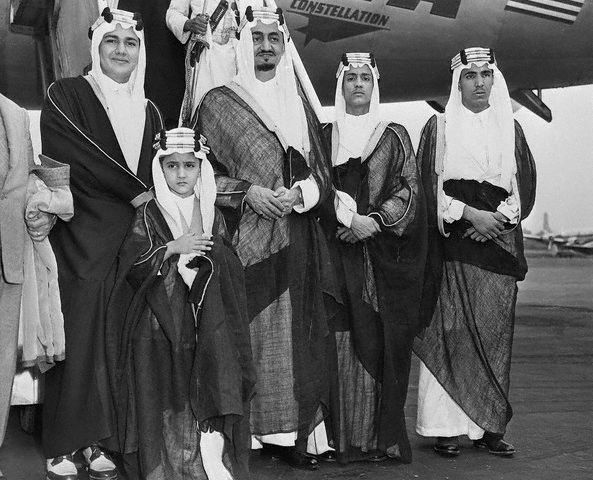

notulen ministerraad 19470403 en 19470425
Noot LT: dat de ministerraad hiermee niet akkoord gaat en opdracht geeft aan de minister van justitie om contact op te nemen met de auditeur-generaal, getuigt van het niet respecteren van de scheiding der machten; bovendien wordt een niet genoemd lid van de ministerraad belast met een contact met Kiebooms.



January 17
In Budapest, Hungary, Russian NKVD secret police arrest Swedish diplomat Raoul Wallenberg. During his time in Europe, he saved about 20,000 Jews from Nazi detainment.
http://www.islandnet.com/~kpolsson/swedhis/swed1930.htm

Leidende figuren: Marcel Grégoire, Antoine Delfosse en Jacques Basijn.
Spreekbuis: Cité Nouvelle onder hoofdredactie van Jean Bodart.
Officieel opgericht tijdens congres van 16 en 17 juni 1945.
Bron: Luykx 1978: 446



"JA": Gutt (Techn), Balthazar (Soc), Spaak (Soc), De Schrijver (Kat), Tschoffen (CD), Richard (Soc), Bondas (Soc), Delfosse (CD).
"Neen": Pierlot (Kat), De Vleeschauwer (kat), Hoste (Lib).
Bron: notulen ministerraad 19440620

MR 19450322 (opheffing)









Dit interview wordt tijdens de ministerraad van 13/10/1942 door Spaak aangehaald om Delfosse terecht te wijzen.
Bron: notulen ministerraad 19421013


bron: notulen ministerraad 19420924

Notulen ministerraad 19400703
Noot LT: waarom Delfosse dan geen contact opneemt met de andere leden van de regering - en meer nog - waarom daarover geen vragen worden gesteld, blijft een raadsel.



Bron: notulen ministerraad 19400528
Noot LT: bemerk de dubbelzinnige passage " ... et de traiter avec l'ennemi."


Bron: notulen ministerraad 19400516

Noot LT: wordt Sap hier geviseerd?

La charge du Premier Ministre revient, chacun le reconnait, à un socialiste. Mais encore faut-il que ce socialiste en soit vraiment un !" (...)

zie Engelse tekst: http://www.vatican.va/holy_father/pius_xi/encyclicals/documents/hf_p-xi_enc_14031937_mit-brennender-sorge_en.html (20030623)


Dit druist in tegen de officiële stellingname van de regering Van Zeeland.
De Man en Spaak verdedigen het regeringsstandpunt - om opportunistisch in de regring te kunnen blijven? - en komen alzo in botsing met Vandervelde.
Op 25 jan 1937 treedt EVDV af als minister van openbare gezondheid.
19950071: 238 e.v.

-
zie ook:
Bruno Kartheuser: Die 30er Jahre in Eupen-Malmedy
Einblicke in das Netzwerk der reichsdeutschen Subversion
Neundorf: Edition Krautgarten orte, 2001
ISBN: 2-87316-006-3
24,54 Euro
Das Buch beschreibt mit großer Detailfülle die Unterwanderung Ostbelgiens durch das Deutsche Reich in den 1920er und vor allem in den 1930er Jahren. Der Historiker Dr. Klaus Pabst führt dazu aus: ,,Erschreckend ist vor allem das Ausmaß und die Zielsicherheit, mit denen das Deutsche Reich schon in den 1920er Jahren, erst recht aber nach 1933, eine konsequente und möglichst alle Bevölkerungsschichten erfassende Subversion im Gebiet von Eupen und Malmedy mit dem langfristigen Ziel einer Reannexion betrieb, und wie offen die hinterhältige Methode, auf scheinbar harmlos-unpolitischen Wegen und mit reichen, aber geheimen Geldzuweisungen sehr konkrete politische Ziele zu verfolgen, von den Beteiligten intern auch zugegeben wurde." Das Buch ist reich illustriert (51 Seiten Fotos) und enthält im Anhang einen dokumentarischen Teil mit Haushaltszahlen, Helfer-Listen und Original-Texten aus damaligen Publikationen. Die Landeszentrale für politische Bildung Rheinland-Pfalz empfiehlt das Buch mit dem Hinweis: ,,In vielerlei Hinsicht kann dieses Buch ein Schlüssel zum besseren Verständnis der heutigen Lage Ostbelgiens sein. Die Studie ist auch repräsentativ für das subversive Vorgehen des Deutschen Reiches bei anderen deutschen Minderheiten in Europa."
Bezugsadresse:
Bruno Kartheuser
Postfach 42
B-4780 St. Vith
Fax 0032-80229412
http://www.german-foreign-policy.com/en/news/article/1032818400.php (20031016)

Production: Reichsparteitagsfilm from L.R. Studio-Film
Production management: Walter Traut
Director: Leni Riefenstahl
Photographic management: Sepp Allgeier
Camera: Sepp Allgeier, Karl Altenberger, Werner Buhne, Walter Frentz, Hans Gottschalk, Werner Hundhausen, Herbert Kebelmann, Albert Kling, Franz Koch, Herbert Kutschbach, Paul Lieberenz, Richard Nickel, Walter Riml, Arthur v. Schwertfeger, Karl Vass, Franz Weimayr, Siegfried Weinmann, Karl Wellet
Special shots: Sven Noldan, Fritz Brutsch, Hans Noack
Assistants: Erna Peters, Guzzi und Otto Lantschner, Walter Prager, Wolfgang Brüning
Length: 3,109 m
First performance: 28 March 1935
Documentary film about the NSDAP's 6th Reich Party Congress in Nuremberg from September 4th until September 10th 1934
http://www.leni-riefenstahl.de/eng/film.html (20030911)
film




L'indispensable
Le manifeste "Aux travailleurs" (5 mars 1934) est le texte fondateur du Comité de vigilance des intellectuels antifascistes (CVIA), créé sous le patronage de trois personnalités emblématiques des familles de la gauche, l'ethnologue Paul Rivet, socialiste, le philosophe écrivain Alain, proche du radicalisme, le physicien Paul Langevin, sympathisant du communisme. Le CVIA, large rassemblement d'intellectuels confrontés au défi fasciste à l'intérieur comme à l'extérieur, fut un précurseur du Front populaire par sa volonté unitaire. Il en préfigura également les déchirements face à la montée des périls extérieurs et les difficultés à conjuguer antifascisme et pacifisme.
Le document
Aux Travailleurs
Unis, par-dessus toute divergence, devant le spectacle des émeutes fascistes de Paris et de la résistance populaire qui seule leur a fait face, nous venons déclarer à tous les travailleurs, nos camarades, notre résolution de lutter avec eux pour sauver contre une dictature fasciste ce que le peuple a conquis de droits et de libertés publiques. Nous sommes prêts à tout sacrifier pour empêcher que la France ne soit soumise à un régime d'oppression et de misère belliqueuses.
Nous flétrissons l'ignoble corruption qu'ont étalée les scandales récents.
Nous lutterons contre la corruption ; nous lutterons aussi contre l'imposture.
Nous ne laisserons pas invoquer la vertu par les corrompus et les corrupteurs. La colère que soulève les scandales de l'argent, nous ne la laisserons pas détourner par les banques, les trusts, les marchands de canons, contre la République qui est le peuple travaillant, souffrant, pensant et agissant pour son émancipation.
Nous ne laisserons pas l'oligarchie financière exploiter comme en Allemagne le mécontentement des foules gênées ou ruinées par elle.
Camarades, sous couleur de révolution nationale, on nous prépare un nouveau Moyen Âge. Nous, nous n'avons pas à conserver dans le monde présent, nous avons à le transformer, à délivrer l'Etat de la tutelle du grand capital - en liaison intime avec les travailleurs.
Notre premier acte sera de former un comité de vigilance qui se tiendra à la disposition des organisations ouvrières.
Que ceux qui souscrivent à nos idées se fassent connaître.
Le bureau provisoire Alain, Paul Langevin, Professeur au Collège de France et Paul Rivet, Professeur au Muséum.
http://biosoc.univ-paris1.fr/frameset/hist_txtima.htm (20031002)


Peu avant sa mort (12 V 1935), Pilsudski promulgua la constitution dite d'avril, qui renforçait le pouvoir présidentiel au détriment de la Diète. Après la mort de Pilsudski, le "camp de sanacja" se divisa en groupes concurrents (les partisans du maréchal Smigly-Rydz et ceux du président Moscicki). Pendant cette période se distingua une personnalité éminente de sanacja : le vice-Premier ministre Eugeniusz Kwiatkowski, créateur du programme du développement économique de la Pologne, de la "Région industrielle centrale" et également constructeur du nouveau port de Gdynia.
http://www.msz.gov.pl/mszpromo/fr/5_1_5.htm#5 (20030905)





MR 19330518

MR 19330228



Venizelos ondertekende het Verdrag van Lausanne.






KVB 808: De socialisten halen de absolute meerderheid in 264 belangrijke gemeenten. In de grote steden eisen ze gemiddeld 1/3de van de mandaten op.
SEBERECHTS 2002: 34: In Antwerpen worden de liberalen uit de coalitie gestoten en vervangen door een coalitie van KAT-SOC.

MR 19200103





In chronologische volgorde beschrijft ze eerst de toestand in ons land vòòr de oorlog: demografie, economische prestaties in binnen- en buitenland, pijnlijke sociale wantoestanden, de strijd om het enkelvoudig mannenstemrecht, waarbij Emile Francqui van de Société Générale en mijndirecteur Raoul Warocqué in april 1913 grote sommen geld bezorgden aan de stakerskas van de POB - BWP (p. 23).
Sophie De SCHAEPDRIJVER, De Groote Oorlog. Het Koninkrijk België tijdens de Eerste Wereldoorlog.Uitg. Atlas / Veen, Amsterdam / Antwerpen, 1997. 382 p.; noten, bibliografie, foto's, reg.; 995 BF.





Défini comme « un congrès de travail pratique » (Jean Longuet), le congrès de Copenhague mit à son actif la discussion et le vote de nombreuses résolutions ayant trait aux relations entre coopératives et partis politiques, au chômage, à la législation du travail, à la peine de mort, à l’unité syndicale, au droit d’asile, etc.
La question la plus grave restait celle de la guerre et de la paix. L’Internationale, à Stuttgart, avait énoncé des principes, il importait maintenant de définir les moyen pratiques de les réaliser. C’était soulever à nouveau le problème de la grève générale, fermement combattue par les sociaux-démocrates allemands.
L’Anglais Keir Hardie, soutenu par le Français Vaillant, présenta un projet définissant la grève générale, en particulier dans les industries de guerre, comme un moyen particulièrement efficace. L’affrontement entre les délégations anglaise et française, d’une part, allemande et autrichienne, d’autre part, n’aboutit à aucune solution, - si ce n’est à renvoyer la question au Bureau socialiste international, chargé de la mieux étudier et de la présenter au prochain congrès prévue à Vienne.
Sous un aspect unanimiste et triomphant, le congrès de Copenhague révélait encore la profonde division tactique et théorique de l’Internationale.
http://www.minkoff-editions.com/histoire/pages/histoire_de_la_iie__internationale.htm (20060924)

Minister of War Arsenio Linares y Pombo called up the Third Mixed Brigade of Cazadores (Light Infantry), which was composed of both active and reserve units in Catalonia. Among these were 520 men who had completed active duty six years earlier, and who had not anticipated further service. One could hire a substitute if one did not wish to fight, but this cost 6,000 reales which was beyond the means of most laborers. (Most workers did not receive more than 20 reales or 5 pesetas a day.) The incident began when "a party of conscripts boarded ships owned by the marques de Comillas, a noted Catholic industrialist, en route for Morocco. The soldiers were accompanied by patriotic addresses, the Royal March, and religious medals distributed by pious well dressed ladies. Spain's narrow social construction was thus on display for all to see, an affluent Catholic oligarchy impervious to the rise of secular mass politics. As the crowd jeered and whistled, emblems of the Sacred Heart were thrown into the sea." [1]
These actions, coupled with anarchist, anti-militarist, and anti-colonial philosophies shared by many in the city (Barcelona later became a stronghold for the anarchists during the Spanish Civil War), resulted in the union Solidaridad Obrera - directed by a committee of anarchists and socialists - calling a general strike against Maura's call-up of the reservists on Monday 26 July 1909. Although the civil governor Ángel Ossorio y Gallardo had received ample warning of the growing discontent, acts of vandalism were provoked by elements called the jóvenes bárbaros (Young Barbarians), who were associated with the Radical Republican Party (Partido Republicano Radical) of Alejandro Lerroux. By Tuesday workers had occupied Barcelona, halting troop trains and overturning trams. By Thursday, there was street fighting, with a general eruption of riots, strikes, and the burnings of convents.
Many of the rioters were antimilitarist, anticolonial and anticlerical. The rioters considered the Roman Catholic Church to form part of the corrupt bourgeois class whose sons did not have to go to war, and much public opinion had been turned against the Church by anarchist elements within the city. Thus not only were convents burned, but sepulchers were profaned and graves were emptied.[2] Of 112 buildings set fire to during the disturbances, 80 were church-owned or associated.
After disturbances in downtown Barcelona, civil guards and police shot at demonstrators in Las Ramblas, resulting in the construction of barricades in the streets and the proclamation of martial law. The government, declaring a state of war, sent the army to end the revolt. Barcelonan troops stationed in the city, many of whom had working class origins, refused to shoot workers and so troops were brought in from Valencia, Zaragoza, Pamplona and Burgos; these finally ended the revolt, causing dozens of deaths.

19950042:45 die wijst op de koloniale triniteit in de kolonie: administratie, grote ondernemingen en de missies.
In de Koloniale Raad zetelen vertegenwoordigers van de missies en van de grote ondernemingen (19950042: 45). Noot LT: er valt toch te checken wie er juist in de koloniale Raad zetelde.




by Richard C. Pratt, Zachary Smith. 320 pgs.
...Hawai'i is in many ways the most unique of the American states. Distinguished by its unusual beauty, ethnic diversity, and lingering image as a paradise, Hawai'i is special
...
Hawaii: A History, from Polynesian Kingdom to American State
by Ralph S. Kuykendall, A. Grove Day. 336 pgs.
...in this fresh presentation of Hawaiian history for the reader of today. The...figures of eighteenth century Hawaiian history is not even mentioned by Cook...eighteenth...
A History of the Pacific Islands
by I. C. Campbell. 242 pgs.
...Zealand Maoris and Hawaiians had become citizens...colonizing power. The history of colonialism...of Polynesian history. The Hawaiians had robust double...hands of the...
Paradise Remade: The Politics of Culture and History in Hawai'i
by Elizabeth Buck. 246 pgs.
...This is a book about the politics of competing cultures and myths in a colonized nation. Elizabeth Buck considers the transformation of Hawaiian culture focusing on the...
The Pacific States of America: People, Politics, and Power in the Five Pacific Basin States
by Neal R. Peirce. 392 pgs.
...one of the best state governments in history, remarkably honest and responsive during...Warren court" assured itself a place in history by altering the basic thrust of...
An Island Kingdom Passes: Hawaii Becomes American
by Kathleen Dickenson Mellen. 387 pgs.
...volume I close a tetralogy of Hawaiian history from the birth of Kamehameha...measureless devotion. An era of Hawaiian history had died with him. The Hawaii...played an...
Kamaaina: A Century in Hawaii
by William A. Simonds, Keichi Kimura. 105 pgs.
...of time. As one student of Hawaiian history has put it, "no other island...doomed. Famous in the annals of Hawaiian history is the story of the high chieftainess...the...
Pineapple Town: Hawaii
by Edward Norbeck. 159 pgs.
...since established by Hawaiian corporations operating...companies. During the history of the pineapple...importantly into that history only in its later...peoples from which...
The Japanese Frontier in Hawaii, 1868-1898
by Hilary Conroy. 178 pgs.
...putting in at Hawaiian ports had made...age of whaling history. The whaling...Coman, "The History of Contract Labor in the Hawaiian Islands," Publications...verification of...
Cane Fires: The Anti-Japanese Movement in Hawaii, 1865-1945
by Gary Y. Okihiro . 330 pgs.
...Asian American history and culture series...than the persistent Hawaiian tradition of interracial...in expropriating Hawaiian land, installing...this interpretive history...
Hawaii, a Century of Economic Change, 1778-1876.
by Theodore Morgan. 262 pgs.
Landscapes of War: Rules and Conventions of Conflict in Ancient Hawai'i (and elsewhere), in American Antiquity
by Michael J. Kolb, Boyd Dixon. 1 pgs.
...in Hawaii Before 1778. The Hawaiian Journal of History 28: 1-21. Earle, T. 1977...Haleole, S. N. 1919 History of the Hawaiian Priesthood Called Hoomanamana...IT, J. 1963...
Excavations at the Kipapa Rockshelter, Kahikinui, Maui, Hawai'i, in Asian Perspectives: The Journal of Archaeology for Asia and the Pacific
by Sharyn Jones O'Day. 1 pgs.
...The Department of Hawaiian Homelands, likewise...Museum of Natural History, and comparative...Introduction to Hawaiian Archaeology

http://users.skynet.be/webgate/matin/ (20031105)
Wet van 18 april 1898 betreffende het gebruik van de Vlaamse taal in de officiële bekendmakingen [Gelijkheidswet]
http://reflex.raadvst-consetat.be/reflex/index.reflex?docid=91026&lang=nl (20060821)


Charte de Quaregnon
Un article de Wikipédia, l'encyclopédie libre.
Aller à : Navigation, Rechercher
La Charte de Quaregnon ou Déclaration de Quaregnon est une déclaration de principe, sorte de programme doctrinal et idéologique, de l'ancêtre du Parti Socialiste, le Parti Ouvrier Belge (P.O.B.), constitué en 1885.
Le rédacteur principal en a été Emile Vandervelde qui s'est inspiré de la pensée des Encyclopédistes (Voltaire, Rousseau, Diderot, ...) et des grands principes nés de la Révolution française.
Dans un premier temps, il avait été convenu que ce congrès se tiendrait à Mons en Belgique, mais en raison de "l'échauffourée" sanglante du 17 avril 1893, au cours de laquelle la garde civique de Mons avait tiré sur une colonne de mineurs borains qui voulaient pénétrer dans la ville, on décida, à la demande des Borains, de transférer le siège du congrès du P.O.B. à Quaregnon.
Elle fut adoptée le 26 mars 1894, au terme de deux jours de travaux, par les fédérations du Parti Ouvrier Belge (P.O.B.) réunies pour leur Xème Congrès à Quaregnon.
Si la forme de ce texte peut paraître désuète, ce manifeste traduit cependant en 7 points, les aspirations universelles, et toujours bien actuelles, de solidarité, de justice et d'émancipation politique et sociale des travailleurs.
http://fr.wikipedia.org/wiki/Charte_de_Quaregnon (20070124)
Charte de Quaregnon (1893)
1. - Les richesses, en général, et spécialement les moyens de production, sont ou des agents
naturels ou le fruit du travail — manuel et cérébral — des générations antérieures, aussi bien
que de la génération actuelle; elles doivent, par conséquent, être considérées comme le
patrimoine commun de l'humanité.
2. - Le droit à la jouissance de ce patrimoine, par des individus ou par des groupes, ne peut
avoir d'autre fondement que l'utilité sociale, et d'autre but que d'assurer à tout être humain, la
plus grande somme possible de liberté et de bien-être.
3. - La réalisation de cet idéal est incompatible avec le maintien du régime capitaliste, qui
divise la société en deux classes nécessairement antagonistes: l'une, qui peut jouir de la
propriété, sans travail; l'autre, obligée d'abandonner une part de son produit à la classe
possédante.
4. - Les travailleurs ne peuvent attendre leur complet affranchissement que de la suppression
des classes et d'une transformation radicale de la société actuelle. Cette transformation ne sera
pas seulement favorable au prolétariat, mais à l'humanité toute entière; néanmoins, comme
elle est contraire aux intérêts immédiats de la classe possédante, l'émancipation des
travailleurs sera essentiellement l’oeuvre des travailleurs eux-mêmes.
5. - Ils devront avoir pour but, dans l'ordre économique, de s'assurer l'usage libre et gratuit de
tous les moyens de production. Ce résultat ne pourra être atteint, dans une société où le travail
collectif se substitue de plus en plus au travail individuel, que par l'appropriation collective
des agents naturels et des instruments de travail.
6. - La transformation du régime capitaliste en régime collectiviste doit nécessairement être
accompagnée de transformations corrélatives :
a) Dans l'ordre moral, par le développement des sentiments altruistes et la pratique
de la solidarité;
b) Dans l'ordre politique, par la transformation de l'État en administration des
choses.
7. - Le socialisme doit donc poursuivre simultanément l'émancipation économique, morale et
politique du prolétariat. Néanmoins, le point de vue économique doit être dominant, car la
concentration des capitaux entre les mains d'une seule classe constitue la base de toutes les
autres formes de sa domination.
Pour la réalisation de ces principes,
Le Parti ouvrier déclare,
1. Qu'il se considère comme le représentant, non seulement de la classe ouvrière, mais de tous les opprimés, sans distinction de nationalité, de culte, de race ou de sexe;
2. Que les socialistes de tous les pays doivent être solidaires, l'émancipation des travailleurs n'étant pas une oeuvre nationale, mais internationale ;
3. Que, dans leur lutte contre la classe capitaliste, les travailleurs doivent combattre par tous les moyens qui sont en leur pouvoir, et, notamment, par l'action politique,
le développement des associations libres et l'incessante propagation des principes socialistes.
http://www.mouvementsocialiste.be/pdf/Charte.pdf (20070124)




20060025: 214 plaatst deze oprichting in augustus 1887 en vermeldt dat het de partij van Alfred Defuisseaux is.




Over de schoolstrijd schreef Johanna Courtmans op 25 juli 1884 in een brief:
'Er zijn gemeenten waar eene bekwame onderwijzeres is, wier school men heeft ontvolkt. Wel ! Dat men den banvloek opheffe, de vervolging stake, en in alle gemeentescholen zullen er leerlingen in overvloed zijn. Maar neen, dat willen de klerikale gemeentebesturen niet. De meisjes moeten onderwezen worden door het dom kloostergespuis. En wat zal er verder van het reeds verkwezeld Vlaanderen geworden? 't Is gedaan voor altoos met het meisjesonderwijs. Dat alles hangt af van den koning.' (19330047: 150)


by
Most Rev. Dr. Thomas Nulty
Bishop of Meath
BACK TO THE LAND
_________
DEDICATION.
BISHOP NULTY'S LETTER.
To the Clergy and Laity of the Diocese of Meath:
Dearly Beloved Brethren,—
I venture to take the liberty of dedicating the following Essay to you, as a mark of my respect and affection. In this Essay I do not, of course, address myself to you as your Bishop, for I have no divine commission to enlighten you on your civil rights, or to instruct you in the principles of Land Tenure or Political Economy. I feel, however, a deep concern even in your temporal interests—deeper, indeed, than in my own; for what temporal interests can I have save those I must always feel in your welfare? It is, then, because the Land Question is one not merely of vital importance, but one of life and death to you, as well as to the majority of my countrymen, that I have ventured to write on it at all.
With a due sense of my responsibility, I have examined this great question with all the care and consideration I had time to bestow on it. A subject so abstruse and so difficult could not, by any possibility, be made attractive and interesting. My only great regret, then, is that my numerous duties in nearly every part of the Diocese for the last month have not left me sufficient time to put my views before you with the perspicuity, the order and the persuasiveness that I should desire. However, even in the crude, unfinished form in which this Essay is now submitted to you, I hope it will prove of some use in assisting you to form a correct estimate of the real value and merit of Mr. Gladstone's coming Bill.
For my own part, I confess I am not very sanguine in my expectations of this Bill—at any rate, when it shall have passed the Lords. The hereditary legislators will, I fear, never surrender the monopoly in the land which they have usurped for centuries past; at least till it has become quite plain to them that they have lost the power of holding it any longer. It is, however, now quite manifest to all the world—except, perhaps, to themselves—that they hold that power no longer.
We, however, can afford calmly to wait. While we are, therefore, prepared to receive with gratitude any settlement of the question which will substantially secure to us our just rights, we will never be satisfied with less. Nothing short of a full and comprehensive measure of justice will ever satisfy the tenant farmers of Ireland, or put an end to the Land League agitation.
The people of Ireland are now keenly alive to the important fact that if they are loyal and true to themselves, and that they set their faces against every form of violence and crime, they have the power to compel the landlords to surrender all their just rights in their entirety.
If the tenant farmers refuse to pay more than a just rent for their farms, and no one takes a farm from which a tenant has been evicted for the non-payment of an unjust or exorbitant rent, then our cause is practically gained. The landlords may, no doubt, wreak their vengeance on a few, whom they may regard as the leaders of the movement; but the patriotism and generosity of their countrymen will compensate these abundantly for their losses, and superabundantly reward them for the essential and important services they have rendered to their country at the critical period of its history.
You know but too well, and perhaps to your cost, that there are bad landlords in Meath, and worse still in Westmeath, and perhaps also in the other Counties of this Diocese. We are, unfortunately, too familiar with all forms of extermination, from the eviction of a Parish Priest, who was willing to pay his rent, to the wholesale clearance of the honest, industrious people of an entire district. But we have, thank God, a few good landlords, too. Some of these, like the Earl of Fingal, belong to our own faith; some, like the late Lord Athlumny, are Protestants; and some among the very best are Tories of the highest type of conservatism.
You have always cherished feelings of the deepest gratitude and affection for every landlord, irrespective of his politics or his creed, who treated you with justice, consideration and kindness. I have always heartily commended you for these feelings.
For my own part, I can assure you, I entertain no unfriendly feelings for any landlord living, and in this Essay I write of them not as individuals, but as a class, and further, I freely admit that there are individual landlords who are highly honourable exceptions to the class to which they belong. But that I heartily dislike the existing system of Land Tenure, and the frightful extent to which it has been abused, by the vast majority of landlords, will be evident to anyone who reads this Essay through.
I remain, Dearly Beloved Brethren, respectfully yours,
THOMAS NULTY.
Mullingar, 2nd. April, 1881
het volledige essay vindt men op http://www.grundskyld.dk/2-Nulty.html (20060625)
BACK TO THE LAND
THE ESSAY
Our Land System Not justified by its General Acceptance.
Anyone who ventures to question the justice or the policy of maintaining the present system of Irish Land Tenure will be met at once by a pretty general feeling which will warn him emphatically that its venerable antiquity entitles it, if not to reverence and respect, at least to tenderness and forbearance.
I freely admit that feeling to be most natural and perhaps very general also; but I altogether deny its reasonableness. It proves too much. Any existing social institution is undoubtedly entitled to justice and fair play; but no institution, no matter what may have been its standing or its popularity, is entitled to exceptional tenderness and forbearance if it can be shown that it is intrinsically unjust and cruel. Worse institutions by far than any system of Land Tenure can and have had a long and prosperous career, till their true character became generally known and then they were suffered to exist no longer.
Human Slavery Once Generally Accepted.
Slavery is found to have existed, as a social institution, in almost all nations, civilised as well as barbarous, and in every age of the world, up almost to our own times. We hardly ever find it in the state of a merely passing phenomenon, or as a purely temporary result of conquest or of war, but always as a settled, established and recognised state of social existence, in which generation followed generation in unbroken succession, and in which thousands upon thousands of human beings lived and died. Hardly anyone had the public spirit to question its character or to denounce its excesses; it had no struggle to make for its existence, and the degradation in which it held its unhappy victims was universally regarded as nothing worse than a mere sentimental grievance.
On the other hand, the justice of the right of property which a master claimed in his slaves was universally accepted in the light of a first principle of morality. His slaves were either born on his estate, and he had to submit to the labour and the cost of rearing and maintaining them to manhood, or he acquired them by inheritance or by free gift, or, failing these, he acquired them by the right of purchase—having paid in exchange for them what, according to the usages of society and the common estimation of his countrymen, was regarded as their full pecuniary value. Property, therefore, in slaves was regarded as sacred, and as inviolable as any other species of property.
Even Christians Recognised Slavery.
So deeply rooted and so universally received was this conviction that the Christian religion itself, though it recognised no distinction between Jew and Gentile, between slave or freeman, cautiously abstained from denouncing slavery itself as an injustice or a wrong. It prudently tolerated this crying evil, because in the state of public feeling then existing, and at the low standard of enlightenment and intelligence then prevailing, it was simply impossible to remedy it.
Thus then had slavery come down almost to our own time as an established social institution, carrying with it the practical sanction and approval of ages and nations, and surrounded with a prestige of standing and general acceptance well calculated to recommend it to men's feelings and sympathies. And yet it was the embodiment of the most odious and cruel injustice that ever afflicted humanity. To claim a right of property in man was to lower a rational creature to the level of the beast of the field; it was a revolting and an unnatural degradation of the nobility of human nature itself.
That thousands upon thousands of human beings who had committed no crime, who had violated no law, and who had done no wrong to anyone, should be wantonly robbed of their liberty and freedom; should be deprived of the sacred and inalienable moral rights, which they could not voluntarily abdicate themselves; should be bought and sold, like cattle in the markets; and should be worked to death, or allowed to live on at the whim or caprice of their owner, was the last and most galling injustice which human nature could be called on to endure.
The World's Approval Cannot Justify injustice.
To arrest public attention, and fix its gaze effectively on the intrinsic character and constitution of slavery, was to seal its doom; and its death knell was sounded in the indignant cry of the great statesman who "denied that man could hold property in man." Twenty millions of British money were paid over to the slave owners as compensation for the loss of property to which they had no just title, and slavery was abolished forever.
The practical approval, therefore, which the world has bestowed on a social institution that has lasted for centuries is no proof that it ought to be allowed to live on longer, if, on close ex


Victoria is declared empress of India
India came under direct British government control in 1858, when the remaining authority of the East India Company was dissolved. The Conservative prime minister, Benjamin Disraeli, suggested to the queen that she should be proclaimed empress. His motive seems mainly to have been flattery. Despite objections from the Liberal opposition, who were not consulted, the title was endorsed and Victoria used it officially from 1877.
http://www.bbc.co.uk/history/british/timeline/victorianbritain_timeline_noflash.shtml (20061208)

À tous présents et à venir, salut.
Vu les lois du 7 juillet 1835 et du 30 mai 1868,
De l'avis du conseil des ministres,
Sur la proposition de notre Ministre de la justice,
Nous avons arrêté et arrêtons :
Article unique.
Il est enjoint au sieur Hugo, Marie Victor, homme de lettres, âgé de 69 ans, né à Besançon, résidant à Bruxelles, de quitter immédiatement le royaume, avec défense d'y rentrer à l'avenir, sous les peines comminées par l'article 6 de la loi du 7 juillet 1865 prérappelée.
Notre Ministre de la Justice est chargé de l'exécution du présent arrêté.
Donné à Bruxelles, le 30 mai 1871.
(Signé) LÉOPOLD.
http://users.skynet.be/litterature/hugo/cadre.htm (20050510)


18 janvier.- Proclamation de l’empire allemand dans la galerie des glaces au château de Versailles
http://biosoc.univ-paris1.fr/frameset/chronologie.htm (20081020)


2 en 5 december 1862: Bij een herverkiezing van de Antwerpse Gemeenteraad treedt de anti-militaristische en anti-Leopold I gerichte Meetingpartij naar voren. Een coalitie van katholieken, liberalen en vlaamsgezinden. ['Antwerpen', 19e jaarg. nr. 4, dec 1973, p.181] < zie 6 november 1862 >
http://www.strecker.be/2004/2004frames.htm (20060128)
zie ook 19970048:35

The Great Irish Famine: Words and images from the Famine Museum, Strokestown Park, County Roscommon Stephen J. Campbell. 1994. Published by the Famine Museum, Strokestown, County Roscommon, Ireland. (fax: 011-353-078-33454)
The Great Famine: Studies in Irish History: 1845-53 ed D. Edwards & D. Williams, 1956.
The Great Hunger: Ireland 1845-1849 Cecil Woodham-Smith. 1962. Reprinted as Penguin ppbk 1991. Currently available in major book stores.
History of the Great Irish Famine of 1847 J. O'Rourke. 1874. Reprinted by Veritas 1989. 1st major book about Irish famine.
The Famine in Ireland Mary Daly. 1986. 138pp.
The Great Irish Famine Cormac O Grada. Repr. 1992. 87pp.
The Visitation of God?: The Potato and the Great Irish Famine Austin Bourke. ed Jacqueline Hill, Cromac O Grada. 1993. 230 pp.
Paddy's Lament: Ireland 1846-47 Thomas Gallagher. 1982. 345 pp. American author. Currently available in ppk in major bookstores.
Famine: The Irish Experience 900-1900 - Subsistence Crisis and Famines in Ireland ed E. Margaret Crawford. 1994.
The History and Social Influence of the Potato Redcliffe Salaman. 1949. Repr 1987.
The Largest Amount of Good: Quaker Relief in Ireland 1654-1921 Helen E. Hatton. McGill-Queen's University Press, [1939?].
"The Irish Famine: A Blighted Fable." In The Fourth Horseman: a short history of epidemics, plagues, famines, and other scourges. Andrew Nikiforuk. 1991. NY: M. Evans & Co.
> Ireland
Crawford, E. Margaret, ed. Famine: The Irish Experience:900-1900 [Edinburgh, 1989]
Daly, Mary The Famine in Ireland [1988]
Donnelly, James, Chapters XII - XIX in A New History of Ireland. Vol. V. Ireland Under the Union I: 1801-1870 ed by W.E. Vaughan [Oxford, 1989]
Edwards, R.D. & Williams, T.D. ed. The Great Famine: Studies in Irish History [1956]
Garner, Edward. To die by inches : an account of the Fermoy Poor Law Union during the Great Famine, 1845-1850 HC260.5.Z7F474 [1986]
Irish University Press Series of British Parliamentary Papers : Famine (Ireland) -- Shannon J301.H1F34
Litton, Helen The Irish Famine: An Illustrated History Published by Wolfhound Press, Dublin, 1994, reprinted 1995.
Lowe-Evans, Mary Crimes Against Fecundity: Joyce and Population Control [1989]
Mokyr, Joel. Why Ireland Starved: A Quantitative and Analytical History of the Irish Economy, 1800-1850 [1983]
Morash, C. The Hungry Voice [1989]
O'Grada, Cormac The Great Irish Famine [1989]
O'Neill, Kevin Family and Farm in Pre-famine Ireland: The Parish of Killeshandra [1984]
O'Rourke, J. History of the Great Famine of 1847 [1875]
Transactions of the Central Relief Committee of the Society of Friends during the Famine in Ireland in 1846 and 1847 [Dublin, 18??]
Woodham-Smith, Cecil The Great Hunger [1962]
>Fiction
Mangan, James. Famine Diary: Gerard kegan's diary of a coffin ship journey Wolfhound Press, 1993
O'Flaherty, Liam. Famine Wolfhound Press. This is the classic novel on the great famine, and was reviewed by Anthony Burgess as "a masterpiece...the kind of truth that only a major writer of fiction is capable of." [reviewed in The Irish Press]
http://www.uhb.fr/Langues/Cei/gfbiblio.htm (20060107)
zie ook: http://vlib.iue.it/history/europe/eire/ (20060107)
D.G. Boyce, The Irish Question and British Politics, 1868-1996 (1996).
Nicholas Canny, "The Ideology of English Colonization: From Ireland to America", William and Mary Quarterly 30 (1973), 575-598.
S.J. Connolly, "Revisions Revised? New Work on the Irish Famine", Victorian Studies (Winter 1996), 205-216.
L.P. Curtis, Anglo-Saxons and Celts (1968).
James S. Donnelly, Jr., "The Great Famine: Its Interpreters, Old and New", History Ireland (1993), 27-39.
------------------------- "'Irish Property must Pay for Irish Poverty': British Public Opinion and the Great Irish Famine", in C. Morash and R. Hayes, eds., Fearful Realities: New Perspectives on the
Famine (1996), 60-76.
------------------------- "Mass Evictions and the Great Famine", in Cathal Poirteir, ed., The Great Irish Famine
(1995), 155-173.
S. Gilley and Roger Swift, eds., The Irish in Britain, 1815-1939 (1989).
------------------------- The Irish in the Victorian City (1985).
Peter Gray, Famine, land, and politics (1999).
Alvin Jackson. Ireland 1798-1988 (Oxford, 1999).
Christine Kinealy, This Great Calamity: The Irish Famine 1845-52 (1995).
------------------- A death-Dealing Famine: The Great Hunger in Ireland (1997).
------------------- "Beyond Revisionism: Reassessing the Great Irish Famine", History Ireland 3 (1995).
------------------- "The Famine, 1845-52: How England Failed Ireland", Modern History Review (1995), 18-21.
Noel Kissane, ed., The Irish famine: a documentary history (1995).
Ed Lengel, "A "Perverse and Ill-Fated People": English Perceptions of the Irish, 1845-1851" Essays in History 38 (1996) in http://etext.lib.virginia.edu/journals/EH/EH38/Lengel.html
F.S.L. Lyons, Ireland since the Famine (1973).
Christopher Morash, Writing the Irish Famine (1995).
Brendan Ó Cathaoir, Famine diary (1999).
Alan O'Day and D. George Boyce, eds, The Making of Modern Irish History: Revisionism and the Revisionist Controversy (1996).
Cormac Ó Gráda, ed., The Great Irish Famine (1989).
-------------------- Black '47 and Beyond: The Great Irish Famine in History, Economy, and Memory (1999)
-------------------- Ireland before and after the Famine (1989).
Patrick O'Sullivan, ed., The meaning of the famine (1997).
Cathal Póirtéir, ed., The Great Irish Famine (1995).
Susan Shaw Sailer, ed., Representing Ireland : gender, class, nationality(1997).
Cecil Woodham-Smith, The Great Hunger: Ireland, 1845-49 (1962).
http://www.umbc.edu/history/CHE/InstPg/RitFamine/irish-famine-bibliography.html (20060107)
zie ook: http://www.ucc.ie/famine/Ireland's%20Famine/bibliography.htm (20060107)
zie ook: http://www.humboldt1.com/~history/lexiso/bib.html (20060107)


Monsieur le comte,
J’ai l’honneur de vous transmettre le protocole de notre conférence d’hier. Vous y verrez que […] nous sommes parvenus à faire reconnaître en principe par les plénipotentiaires la neutralité de la Belgique. J’ai été fort secondé par lord Palmerston, dans lequel je trouve toujours de la droiture et des dispositions pacifiques très réelles.
Je n’ai pas besoin de vous dire que la lutte a été longue et difficile; l’importance de cette résolution était bien sentie par tous les membres de la conférence, ce qui fait que notre séance a duré huit heures et demie.
La neutralité reconnue de la Belgique place ce pays dans la même position que la Suisse ; et renverse, par conséquent, le système politique adopté en 1815 par les puissances, et qui avait été élevé en haine de la France. Les treize forteresses de la Belgique, à l’aide desquelles on menaçait sans cesse notre frontière du Nord, tombent, pour ainsi dire, à la suite de cette résolution, et nous sommes désormais dégagés d’entraves importunes. Les conditions humiliantes proposées en 1815 décidèrent alors ma sortie des affaires, et j’avoue qu’il m’est doux aujourd’hui d’avoir pu contribuer à rétablir la position de la France de ce côté.
Vous jugerez comme moi, monsieur le comte, l’avantage immense que cette résolution produira pour le maintien de la paix. Les Belges, se trouvant isolés et libres de choisir une forme de gouvernement en harmonie avec leurs souvenirs et leurs habitudes, cesseront d’inquiéter l’Europe; ils deviendront sans doute plus faciles à diriger, lorsqu’ils sauront que leurs folies ne peuvent plus retomber que sur eux-mêmes. Quant à la France, j’ai lieu d’espérer qu’elle verra une satisfaction éclatante pour le passé et un gage de sécurité pour l’avenir. […]
Cette grande victoire, car aujourd’hui encore je la considère comme telle, venait à point pour me permettre de calmer les inquiétudes qu’on m’exprimait incessamment de Paris et de Bruxelles et qui sont à peu près résumées dans les lettres suivantes du général Sébastiani et de M. Bresson.
Talleyrand to Sébastiani – 21 January 1831 Les Mémoires du Prince de Talleyrand, IV 18-19

articles affectant La Hollande et la Belgique

voor de samenstelling verwijzen we naar 19580059: 57-58


19480052: 253
19580059: 57 vermeldt dat van de 600 opgeroepen notabelen er 474 kwamen opdagen en dat de GW werd goedgekeurd bij 448 stemmen voor en 26 tegen.
18280002: 162 vermeldt de exacte datum: 29/3/1814

19580059: 58
zie beknopte biografie in 20000048: 537

over de datum: "eind december" zegt 19890083: 159, en wij nemen aan dat de commissie onmiddellijk van wal is gestoken, gezien de gedrevenheid van van Hogendorp


18850003: 219
20060089: 596



